HISTORY



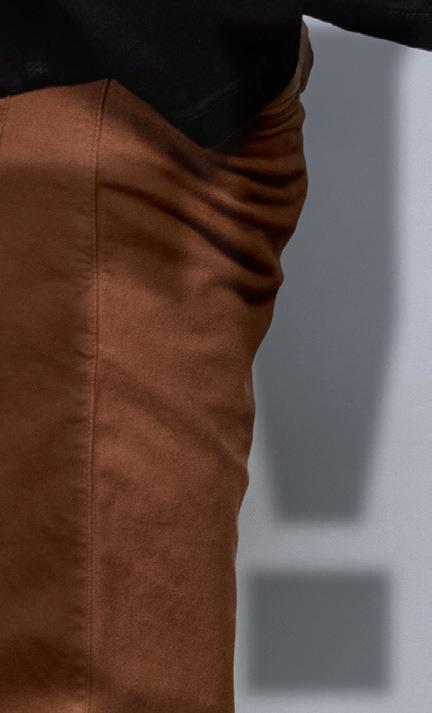

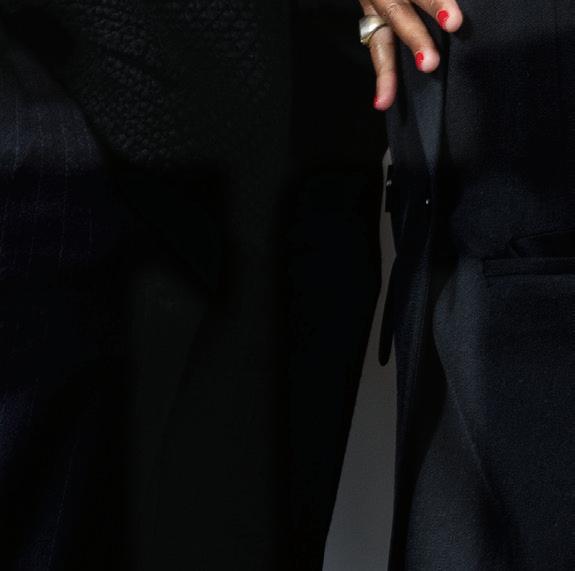
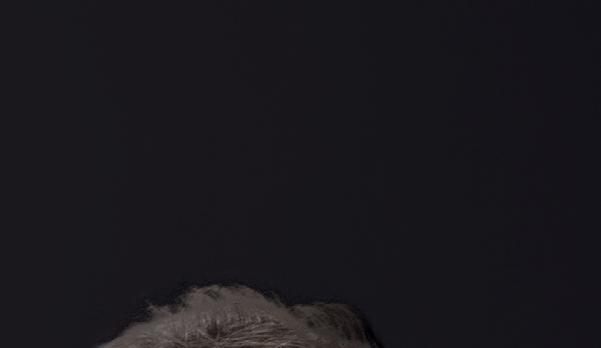




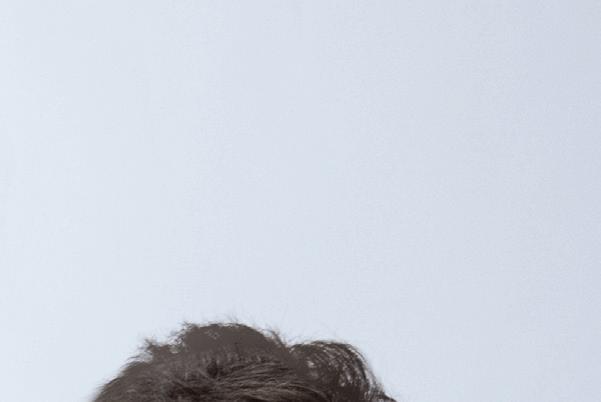






 WILD RIDE: JESSIE BUCKLEY’S JOURNEY TO STARDOM
CHANNELED: THREE FILMS THAT TURN BACK TIME PLUS: HUGH JACKMAN + KE HUY QUAN + AUSTIN BUTLER + JEREMY POPE + BRIAN TYREE HENRY , P
WILD RIDE: JESSIE BUCKLEY’S JOURNEY TO STARDOM
CHANNELED: THREE FILMS THAT TURN BACK TIME PLUS: HUGH JACKMAN + KE HUY QUAN + AUSTIN BUTLER + JEREMY POPE + BRIAN TYREE HENRY , P

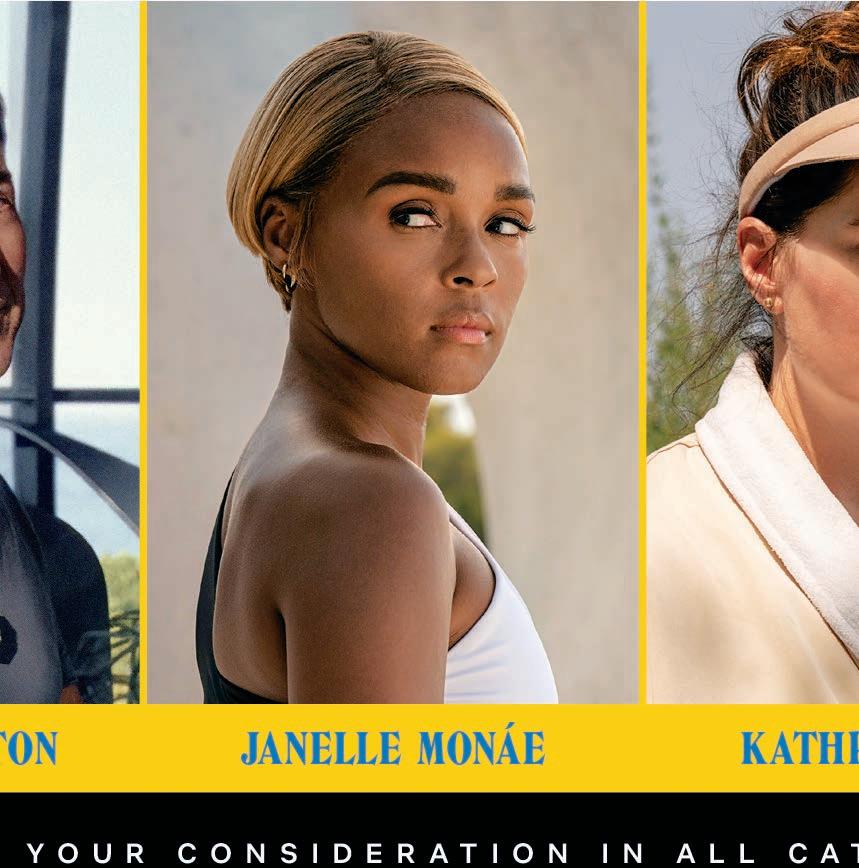
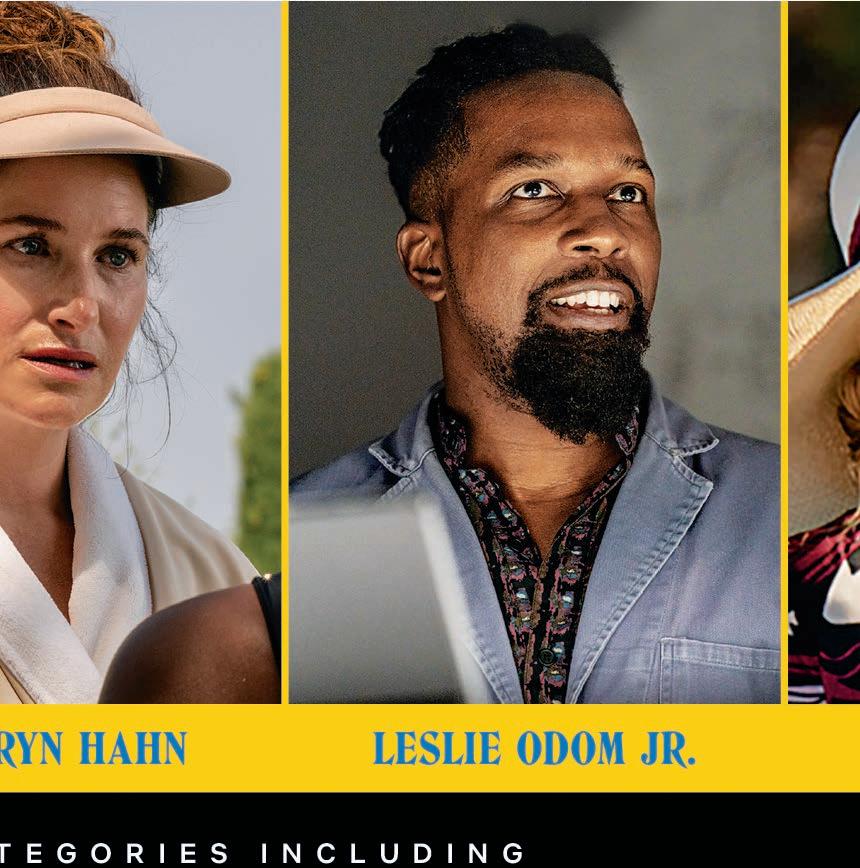

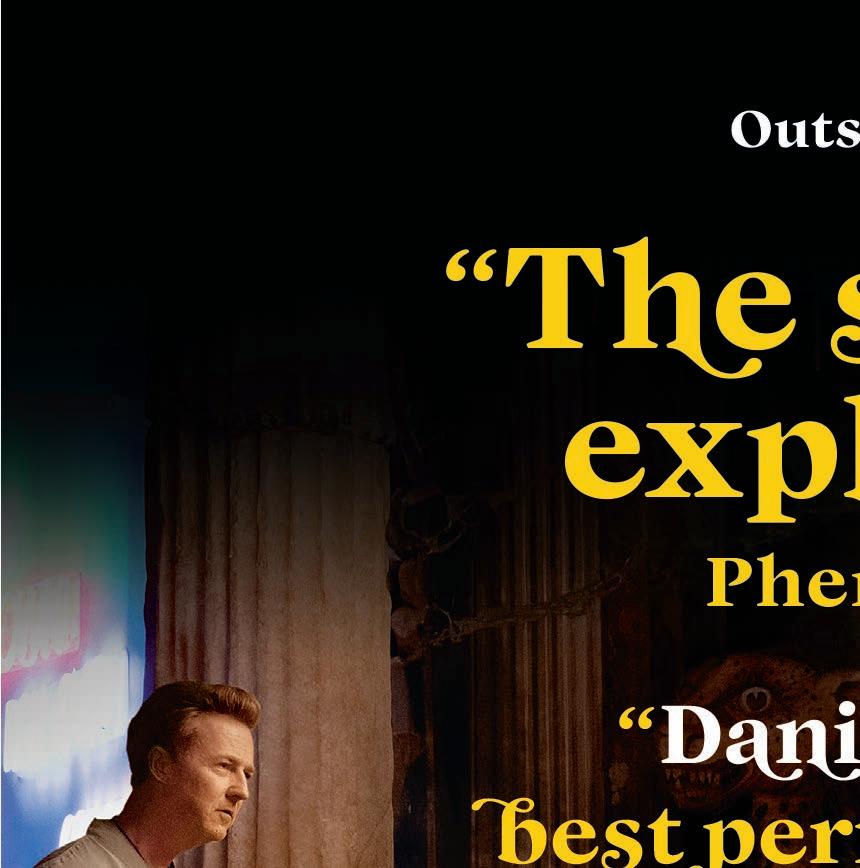
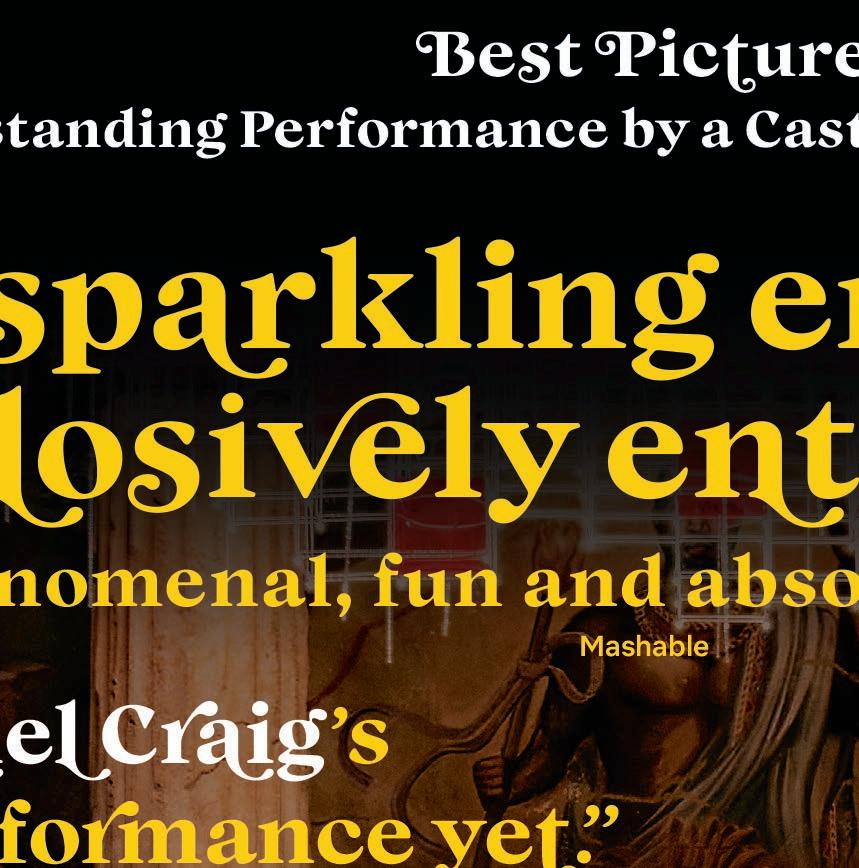
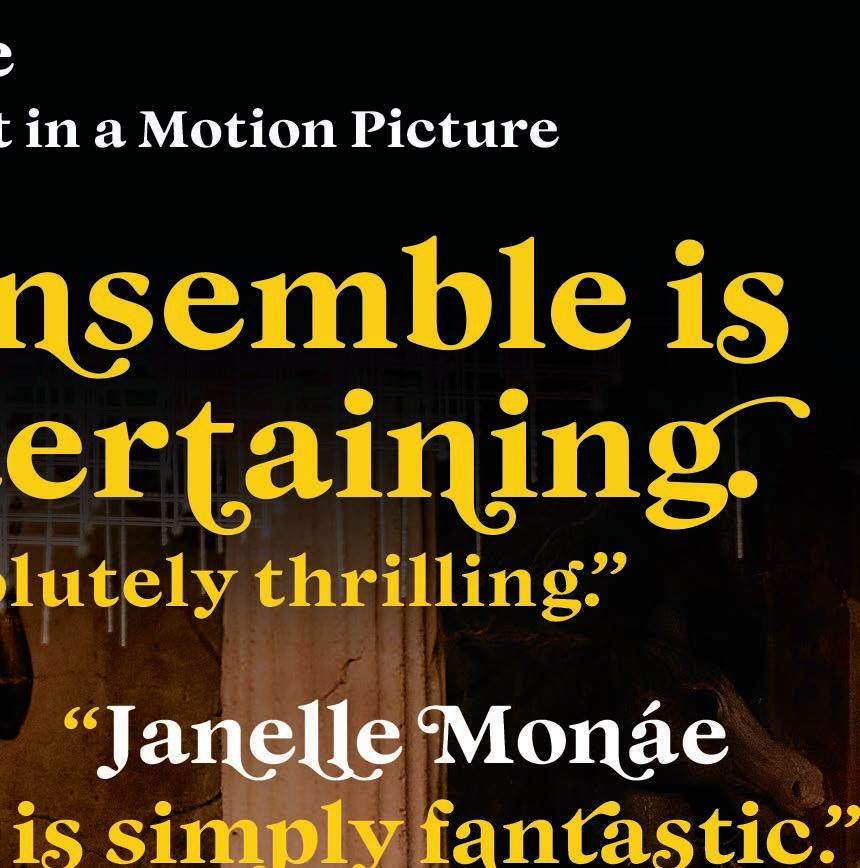
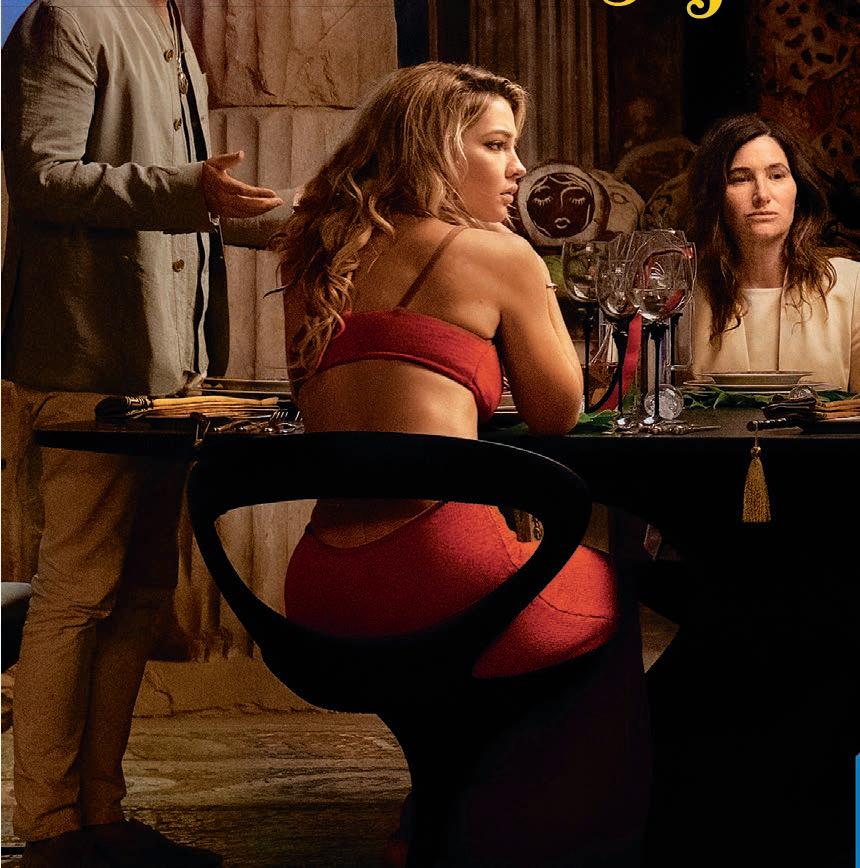
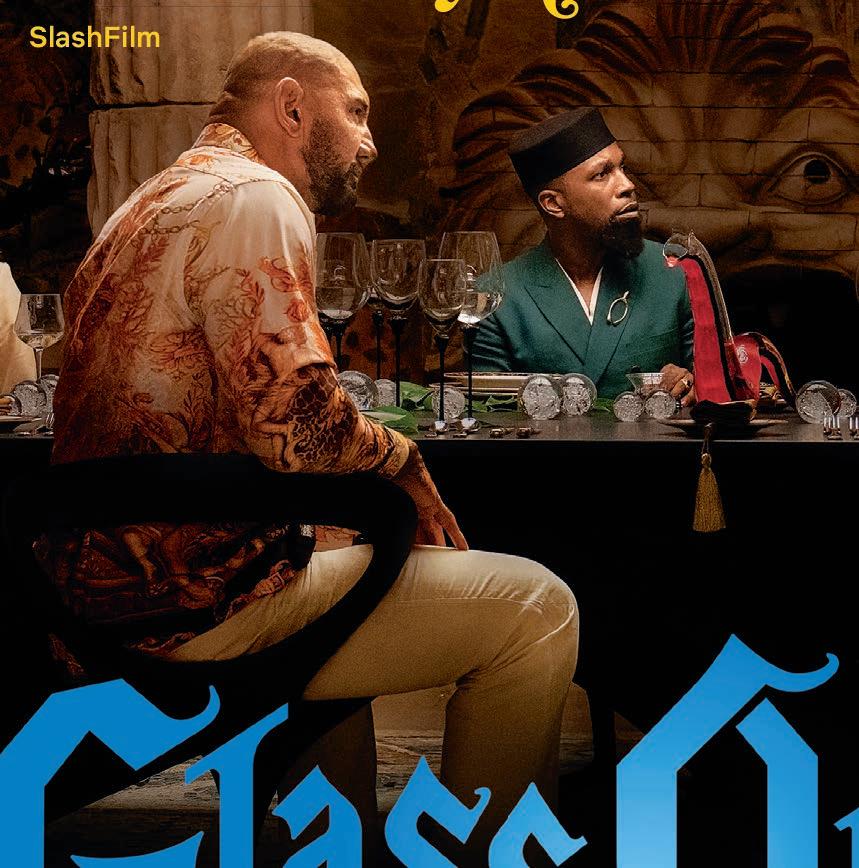



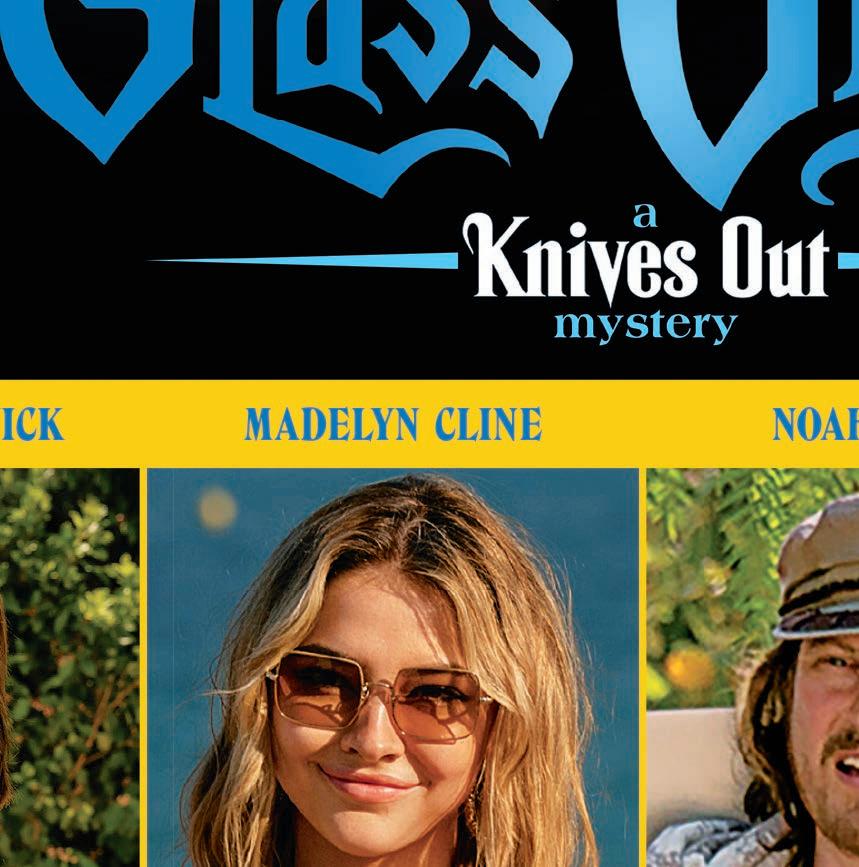
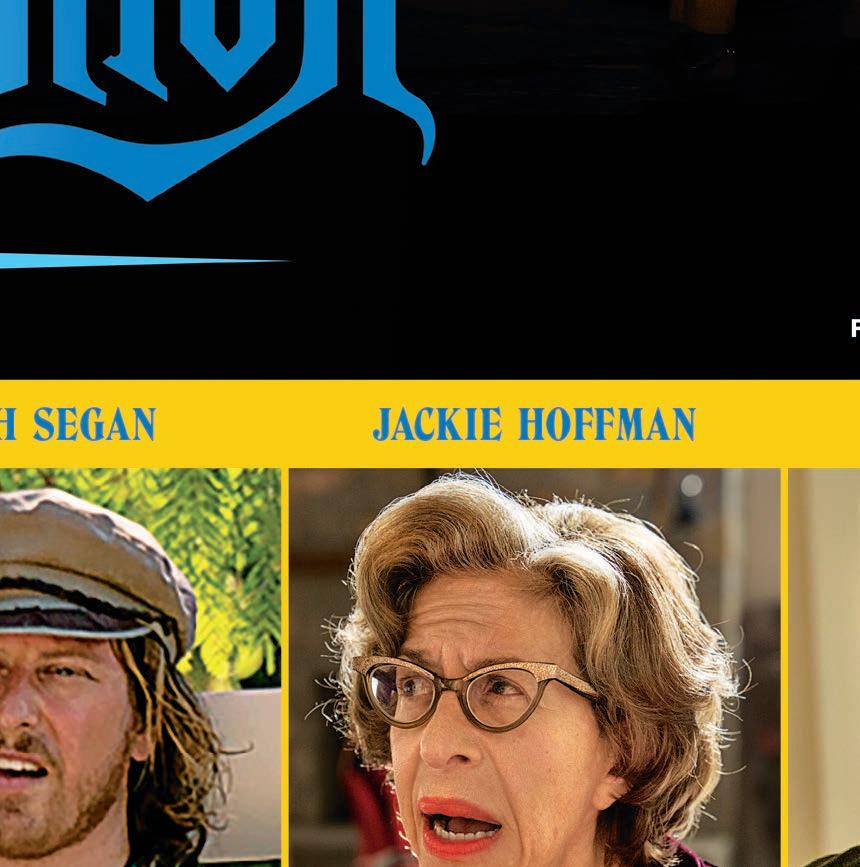
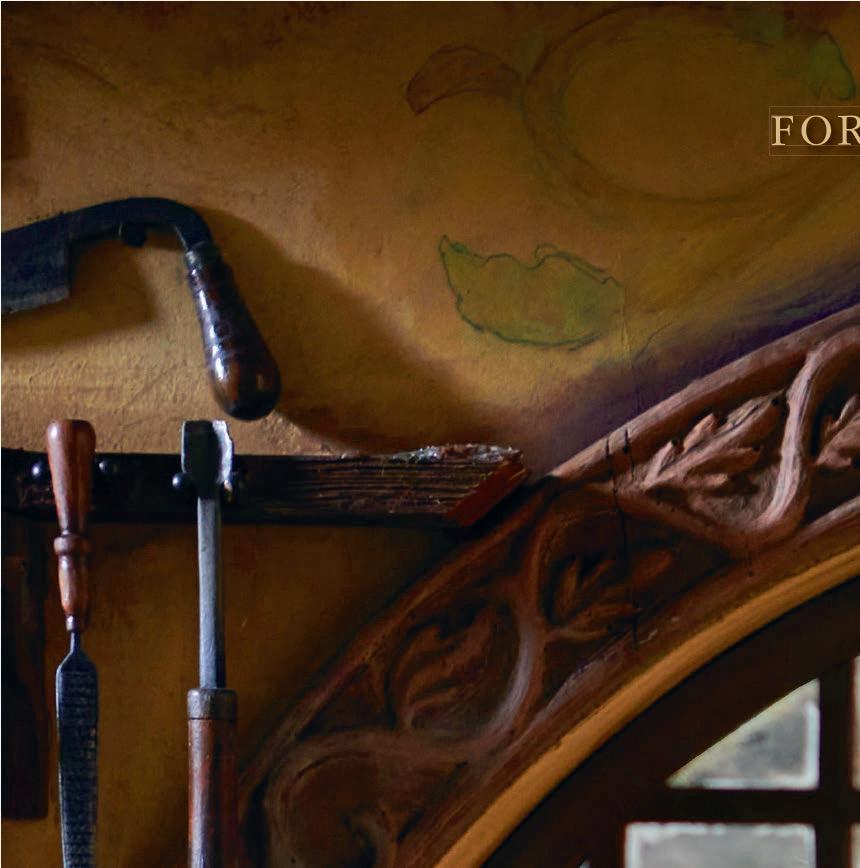
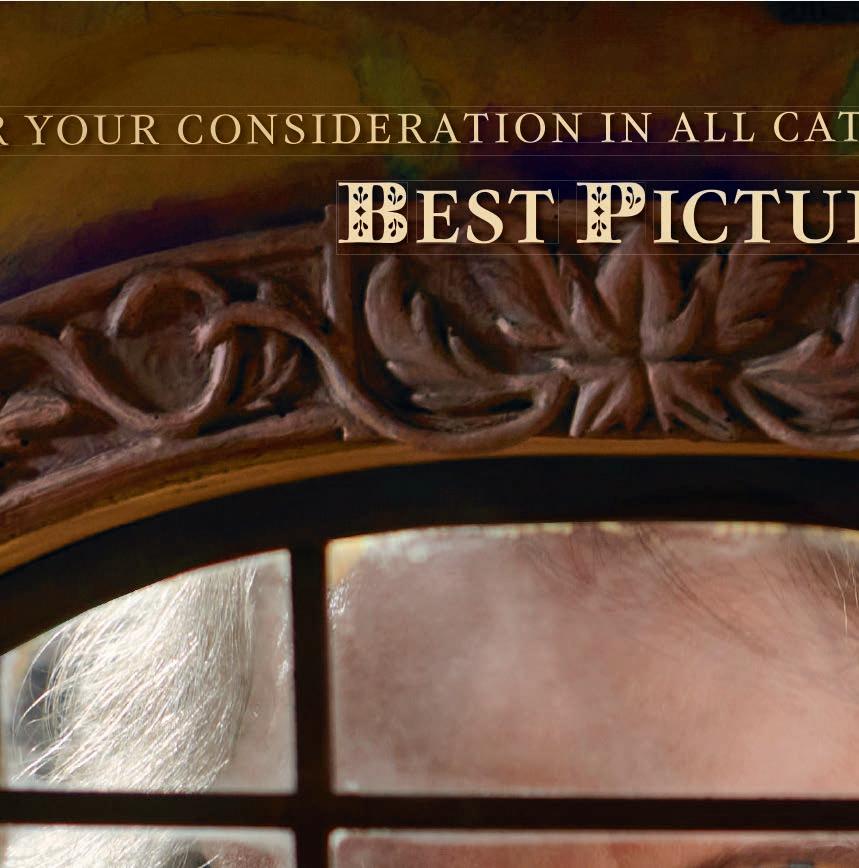
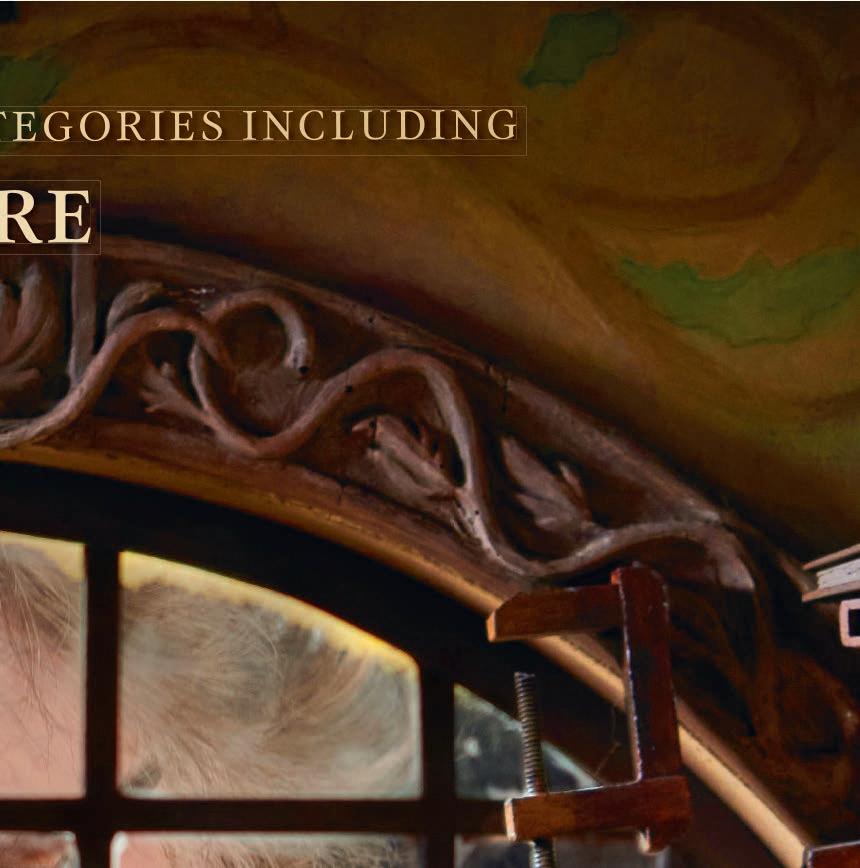

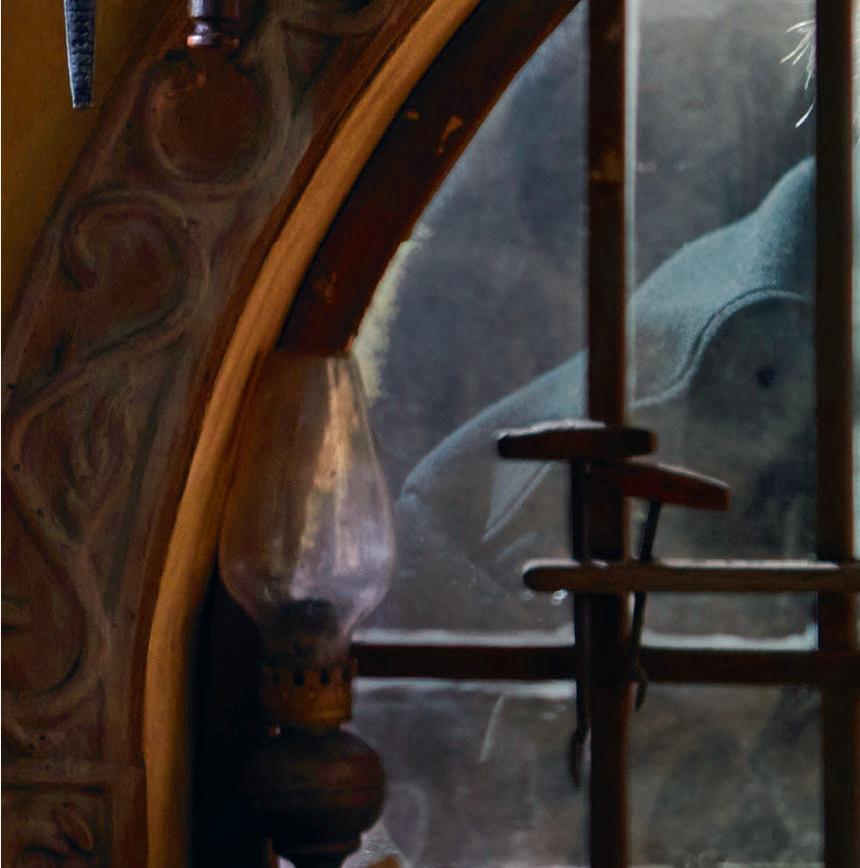
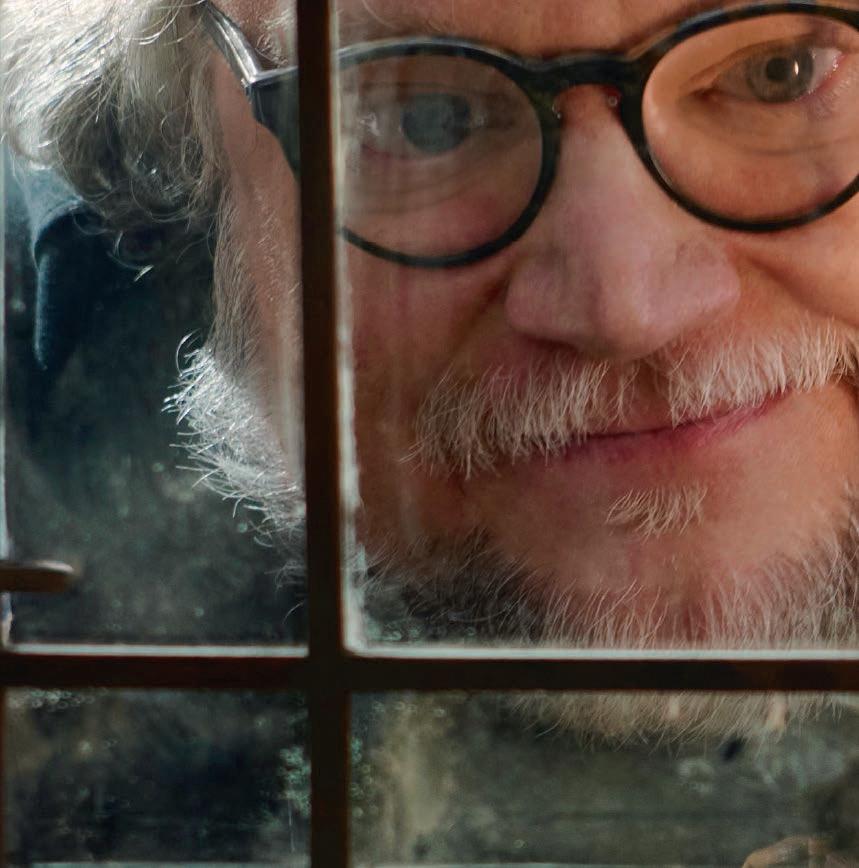

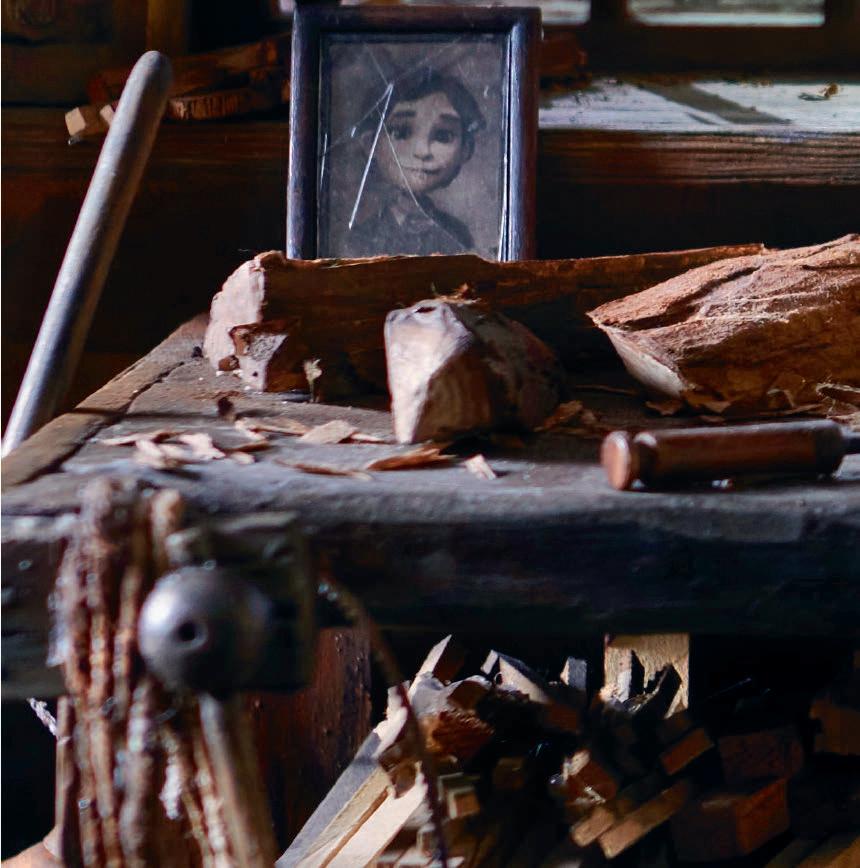

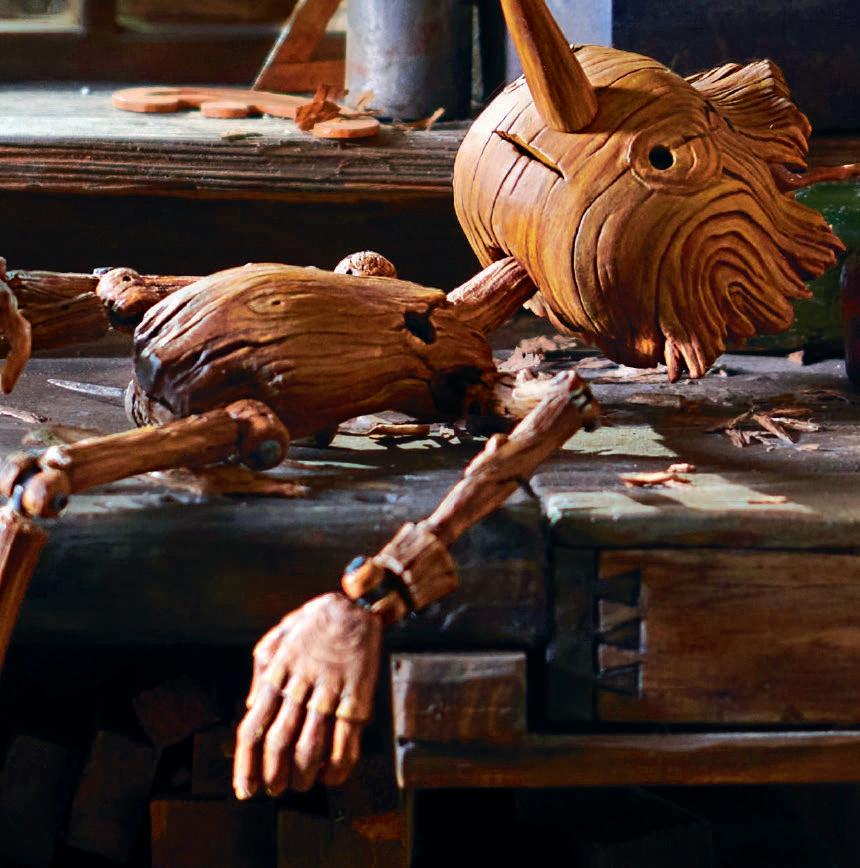



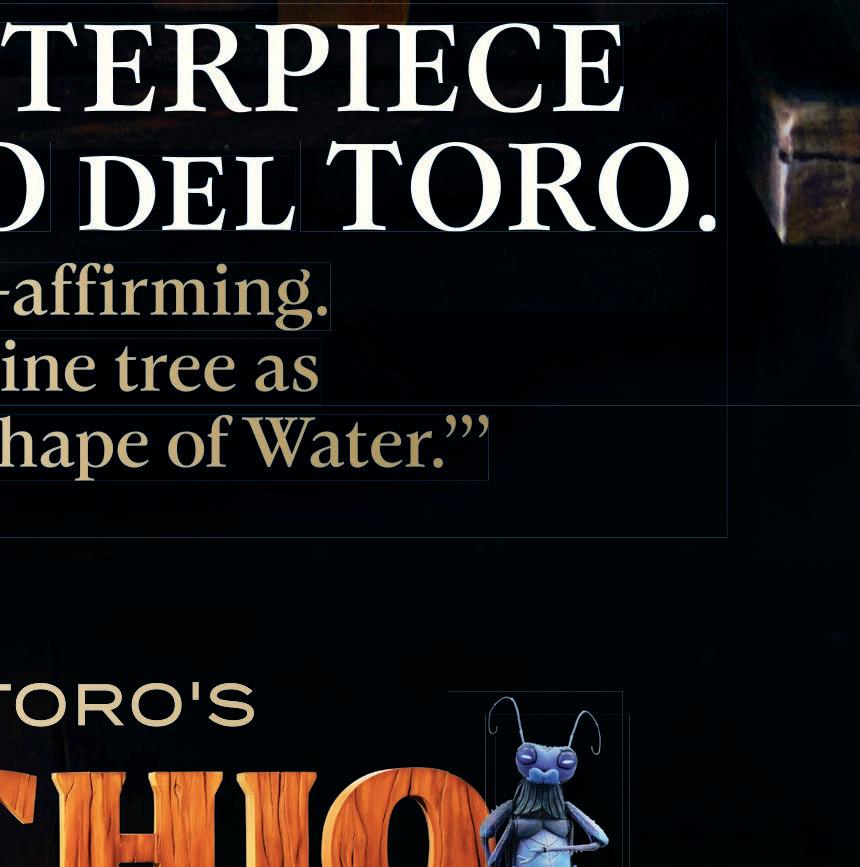
CO-EDITORS-IN-CHIEF
AWARDS
COLUMNIST
EXECUTIVE MANAGING EDITOR Patrick Hipes
EDITORIAL DIRECTOR & BOX OFFICE EDITOR Anthony D’Alessandro
SENIOR
SENIOR
DEPUTY
INTERNATIONAL TELEVISION EDITOR Max Goldbart
INTERNATIONAL FEATURES EDITOR Diana Lodderhose
INTERNATIONAL BOX OFFICE EDITOR & SENIOR CONTRIBUTOR Nancy Tartaglione
INTERNATIONAL TELEVISION CO-EDITOR Jesse Whittock
ASSOCIATE EDITOR & FILM WRITER Valerie Complex
ASSOCIATE EDITORS Greg Evans Bruce Haring
CONTRIBUTING EDITOR, ASIA Liz Shackleton
SENIOR TELEVISION REPORTER Rosy Cordero
SENIOR INTERNATIONAL FILM CORRESPONDENT Melanie
DEADLINE.COM
Breaking News Follow Deadline.com 24/7 for the latest breaking news in entertainment.
Sign up for Alerts & Newsletters
Sign up for breaking news alerts and other Deadline newsletters at: deadline.com/newsletters
VIDEO SERIES
The Actor’s Side Meet some of the biggest and hardest working actors of today, who discuss their passion for their work in film and television. deadline.com/vcategory/theactors-side/
Behind the Lens
Explore the art and craft of directors from first-timers to veterans, and take a unique look into the world of filmmakers and their films. deadline.com/vcategory/ behind-the-lens/
The Film That Lit My Fuse
Get an insight into the creative ambitions, formative influences, and inspirations that fuelled today’s greatest screen artists. deadline.com/vcategory/thefilm-that-lit-my-fuse/
PODCASTS
Scene 2 Seen Valerie Complex offers a platform for up-and-comers and established voices. deadline.com/tag/ scene-2-seen-podcast/
Crew Call
Anthony D’Alessandro focuses on the contenders in the belowthe-line categories. deadline.com/tag/ crew-call-podcast/
SOCIAL MEDIA
Follow Deadline
Facebook.com/Deadline Instagram.com/Deadline Twitter.com/Deadline YouTube.com/Deadline TikTok.com/@Deadline
CHAIRMAN & CEO Jay Penske
VICE CHAIRMAN Gerry Byrne
CHIEF OPERATING OFFICER George Grobar
CHIEF ACCOUNTING OFFICER Sarlina See
CHIEF DIGITAL OFFICER Craig Perreault
EXECUTIVE VICE PRESIDENT, BUSINESS AFFAIRS & CHIEF LEGAL OFFICER Todd Greene
EXECUTIVE VICE PRESIDENT, OPERATIONS & FINANCE Paul Rainey
EXECUTIVE VICE PRESIDENT, OPERATIONS & FINANCE Tom Finn
EXECUTIVE VICE PRESIDENT, PRODUCT & ENGINEERING Jenny Connelly
MANAGING DIRECTOR, INTERNATIONAL MARKETS Debashish Ghosh
SENIOR VICE PRESIDENT, SUBSCRIPTIONS David Roberson
SENIOR VICE PRESIDENT, DEPUTY GENERAL COUNSEL Judith R. Margolin
SENIOR VICE PRESIDENT, FINANCE Ken DelAlcazar
SENIOR VICE PRESIDENT, HUMAN RESOURCES Lauren Utecht
SENIOR VICE PRESIDENT, BUSINESS DEVELOPMENT Marissa O’Hare
SENIOR VICE PRESIDENT, CREATIVE Nelson Anderson
SENIOR VICE PRESIDENT, LICENSING & BRAND DEVELOPMENT Rachel Terrace
VICE PRESIDENT, ASSOCIATE GENERAL COUNSEL Adrian White
VICE PRESIDENT, HUMAN RESOURCES Anne Doyle
VICE PRESIDENT, REVENUE OPERATIONS Brian Levine
HEAD OF INDUSTRY, CPG AND HEALTH Brian Vrabel
VICE PRESIDENT, PUBLIC AFFAIRS & STRATEGY Brooke Jaffe
HEAD OF INDUSTRY, FINANCIAL SERVICES Carla Dodds
HEAD OF INDUSTRY, TECHNOLOGY Cassy Hough
VICE PRESIDENT, SEO Constance Ejuma
VICE PRESIDENT & ASSOCIATE GENERAL COUNSEL Dan Feinberg
HEAD OF LIVE EVENT PARTNERSHIPS Doug Bandes
VICE PRESIDENT, AUDIENCE MARKETING & SPECIAL PROJECTS Ellen Deally
VICE PRESIDENT, GLOBAL TAX Frank McCallick
VICE PRESIDENT, TECHNOLOGY Gabriel Koen
VICE PRESIDENT, E-COMMERCE Jamie Miles
HEAD OF INDUSTRY, TRAVEL Jennifer Garber
VICE PRESIDENT, ACQUISITIONS & OPERATIONS Jerry Ruiz
VICE PRESIDENT, PRODUCTION OPERATIONS Joni Antonacci
VICE PRESIDENT, FINANCE Karen Reed
VICE PRESIDENT, INFORMATION TECHNOLOGY Kay Swift
HEAD OF TALENT Marquetta Moore
HEAD OF AUTOMOTIVE INDUSTRY Matthew Cline
VICE PRESIDENT, STRATEGIC PLANNING & ACQUISITIONS Mike Ye
VICE PRESIDENT, PRODUCT DELIVERY Nici Catton
VICE PRESIDENT, CUSTOMER EXPERIENCE & MARKETING OPERATIONS Noemi Lazo
VICE PRESIDENT, ASSOCIATE GENERAL COUNSEL Sonal Jain
VICE PRESIDENT, MARKETING & PORTFOLIO SALES Stephanie Parker
VICE PRESIDENT, ASSOCIATE GENERAL COUNSEL Victor Hendrickson
DEADLINE HOLLYWOOD IS OWNED AND PUBLISHED BY PENSKE MEDIA CORPORATION
Nellie Andreeva (Television) Mike Fleming Jr. (Film)
COLUMNIST & CHIEF FILM CRITIC Pete Hammond
& INTERNATIONAL EDITOR-AT-LARGE Baz Bamigboye
EDITOR, LEGAL & TV CRITIC Dominic Patten
MANAGING EDITOR Denise Petski
MANAGING EDITOR Erik Pedersen
MANAGING EDITOR Tom Tapp
TELEVISION EDITOR Peter White
INTERNATIONAL EDITOR Andreas Wiseman BUSINESS EDITOR Dade Hayes EDITOR-AT-LARGE Peter Bart
FILM CRITIC & COLUMNIST Todd McCarthy EXECUTIVE EDITOR Michael Cieply
SENIOR FILM WRITER Justin Kroll CO-BUSINESS EDITOR Jill Goldsmith LABOR EDITOR David Robb
POLITICAL EDITOR Ted Johnson
Goodfellow FILM REPORTER Matt Grobar INTERNATIONAL FILM REPORTER Zac Ntim TELEVISION REPORTER Katie Campione PHOTO EDITOR Robert Lang PRESIDENT Stacey Farish EXECUTIVE AWARDS EDITOR Joe Utichi VICE PRESIDENT, CREATIVE Craig Edwards SENIOR AWARDS EDITOR Antonia Blyth TELEVISION EDITOR Lynette Rice FILM EDITOR Damon Wise DOCUMENTARY EDITOR Matthew Carey CRAFTS EDITOR Ryan Fleming PRODUCTION EDITOR David Morgan EDITORIAL ASSISTANT Destiny Jackson DIRECTOR, SOCIAL MEDIA Scott Shilstone DIRECTOR, EVENTS Sophie Hertz DIRECTOR, BRAND MARKETING Laureen O’Brien EVENTS MANAGER Allison DaQuila VIDEO MANAGER David Janove VIDEO PRODUCERS Benjamin Bloom Jade Collins Shane Whitaker DESIGNERS Catalina Castro Grant Dehner SOCIAL MEDIA COORDINATOR Natalie Sitek EVENTS COORDINATOR Dena Nguyen DESI N/ RODUCTION COORDINATOR Paige Petersen CHIEF PHOTOGRAPHER Michael Buckner SENIOR VICE PRESIDENT, ASSOCIATE PUBLISHER Kasey Champion SENIOR VICE PRESIDENT, GLOBAL BUSINESS DEVELOPMENT & STRATEGIC PARTNERSHIPS Céline Rotterman VICE PRESIDENT, ENTERTAINMENT Caren Gibbens VICE PRESIDENT, INTERNATIONAL SALES Patricia Arescy VICE PRESIDENT, SALES & EVENTS Tracy Kain SENIOR DIRECTOR, ENTERTAINMENT Brianna Corrado DIRECTOR, ENTERTAINMENT London Sanders DIRECTOR, DIGITAL SALES PLANNING Letitia Buchan SENIOR DIGITAL ACCOUNT MANAGER Cherise Williams
PLANNERS Luke Licata Kristen Stephens SALES ASSISTANT Daryl Jeffery
DIRECTOR Natalie
DISTRIBUTION DIRECTOR Michael Petre PRODUCTION MANAGER Andrea Wynnyk
SALES
PRODUCTION
Longman
First Take
4 JESSIE BUCKLEY: The Irish actor and singer reveals how she got Women Talking 8 QUICK SHOTS: Lighting The Woman King and composing mood music for The Menu 10 ON MY SCREEN: Daniel Radcliffe talks Weird Al and his secret Bachelor shame 14 FRESH FACE: Till’s Jalyn Hall on playing a tragic civil rights icon.
Cover Story
16 BLANC CHECK: Last year, Glass Onion: A Knives Out Mystery was the sale of the century. Turns out Rian Johnson’s $400m murdermystery deal was a bargain…
Dialogue
The Small Screen
42 NEW TV: The stranglehold of limited series, plus The Bear’s Jeremy Allen White and Aubrey Plaza in The White Lotus

Flash Mob
50 NEW YORK CONTENDERS: The Deadline team showcases the best and brightest in the Big Apple.
ON THE COVER: Glass Onion writer-director Rian Johnson with his cast, Daniel Craig, Janelle Monáe and Edward Norton, photographed for Deadline by ioleta ofia
CALL SHEET
PETER YANG
28 AUSTIN BUTLER 30 BRIAN TYREE HENRY 32 KE HUY QUAN 34 JEREMY POPE 36 HUGH JACKMAN Craft Services 38 ONE ERA, THREE FILMS: Three production designers conjure up very different visions of the 1950s with Till, Don’t Worry Darling and Living
F
T I A
QUICK SHOTS
R K
S E T
ASCENT OF A WOMAN
Though Jessie Buckley now has a thriving musical career, her fiery performance in Women Talking proves her acting is still very much alive
 By Stephanie Bunbury
By Stephanie Bunbury
FACTORY
MICHAEL
I SON/ORION ICTURES/NEON/SHOUT
/COURTESY EVERETT COLLECTION
When Jessie Buckley first read Sarah Polley’s script for Women Talking, it bothered her. There they were, a bunch of women sitting in a barn in the back-blocks of Canada, talking about what they were going to do with their lives: they wouldn’t let her go. “There was so much unknown within it, which was the best part of it, because it kept nagging me,” she says. “Even after I’d read the original book and met Sarah, it was something that kept just returning. I was like, ‘Get out! Get out of my head!’”


Of course, Women Talking wasn’t going anywhere. Buckley duly ended up playing Mariche, an abused wife and mother in a fundamentalist Chris tian community where women are not even allowed to learn to read. Buck ley shows us a woman simmering with an incipient anger she can’t even name. It is a shining performance within a strong ensemble that could well bring her a second Oscar nomination for Best Supporting Actress, follow ing her nomination last year for her complex portrait of a reluctant young mother in Maggie Gyllenhaal’s The Lost Daughter
All this is part of a seemingly unstoppable phenomenon. Now 32, Buck ley was 17 when she left Killarney in Ireland, hoping to get into London’s Guildhall School of Music & Drama. When she didn’t make the cut, she threw herself into Andrew Lloyd Webber’s I’d Do Anything, a television tal ent quest to find a young unknown to play Nancy in a West End revival of Oliver!. She missed out by a few votes, went on to sell cereal in a street market, then got into Royal Academy of Dramatic Art. The year was 2010; Jessie Buckley was up and away.
Since then, she has brought a forthright conviction to every role, her guileless lopsided grin lighting up the screen as an aspiring country singer in Wild Rose, as a fish out of water in Charlie Kaufman’s elliptical I’m Think ing of Ending Things, and as a romping rebel in a dramedy about ’70s
feminism, Misbehavior Women Talking, however, doesn’t allow for much smiling.
Based closely on a novel by Miriam Toews, it is a what-if scenario inspired by a bizarre, reallife campaign of rape that took place in a Menno nite colony in Bolivia. Between 2005 and 2009, women and girls in the community were waking up in the morning bruised and bleeding, having been attacked in the night, their injuries, preg nancies and diseases written off by their elders as hysteria, Satan’s work, or a punishment by God. Eight men in the colony were eventually found guilty of drugging the women with animal tran quillizers and raping them. In her novel, Toews turns the tables on events by staging a summit meeting in a barn where women of the colony debate what to do. Should they stay and demand equal rights? Or should they just leave, even though few of them have even stepped outside the colony’s gate before?

Buckley comes from a large family with
parents who encouraged everyone to do whatever they liked, but to be bold about it. In a recent interview with The Guardian, she said that she wanted to “live life with danger and darkness and character, and wild ness and stories, and ancient things and new things”: a shopping list of raw experience.
Below: Buckley in Wild Rose . Bottom, from left: Buckley, Ruby Bentall and Lily Newmark in Misbehavior
DEADLINE.COM/ AWARDSLINE 5
From left: Michelle McLeod, Sheila McCarthy, Liv McNeil, Buckley, Claire Foy, Kate Hallett, Rooney Mara and Judith Ivey.
Even so, the kind of closed hivemind in the sect shown in Women Talking was something she rec ognized from childhood. “When I was growing up in Ireland, there was definitely a part of me as a young teenage woman that was terrified of being the woman that I might become, because I was told to be accepted, you have to be smaller in life,” she says. “All the things that you just quoted: they were so in me already. Before I’d even stepped into that, I was exploding! I guess things shift within you. If you get an opportunity to read a book or to experience different cultures, or to have a voice, or to challenge what you’ve always understood, then you will move through the ‘struggling’ part of it all.”
She knew nothing about the Mennonites (although, as she points out, the sect in the film is not named). “But I guess [the appeal] was an unspoken conversa tion that I often wished I’d had between women, about where we were in the world, and that I often felt we had had silently between each other,” she says. “And it isn’t just a female experience, it’s a worldly experience we all have.” She paraphrases Gloria Steinem, saying we have to unlearn what we know about ourselves in order to move forward. “But I don’t think that’s just a female want. That’s a human want.”
Even so, being in a room full of women—and Ben Whishaw, playing a self-deprecating schoolteacher brought in to take the minutes—was definitely a differ ent experience from the usual film set, even if she finds the essence of that difference hard to pin down.
“What was really exciting was that I’ve never been in a situation where I’ve been fully able to explore or experience a female dynamic in that kind of height ened space,” she says. With nine actors playing every scene, they sometimes did 150 takes of one conversa tion, many of them clearly at an emotional fever pitch. It sounds intense. “It bloody was. I didn’t realize until
we actually had to leave, and I had a minor kind of falling apart. I was like, ‘What, do you mean we have to leave?’”
On working with a woman as director, however, she is on firm ground. The Lost Daughter was a turning point for her. “It’s so thrilling to be with female directors, especially because that is still new,” she says. “You feel like a really hungry force-field coming from these women who really want to challenge something. With Maggie or Sarah, they’re asking really provocative questions and asking you as a woman to step forward and be part of that, not just for yourself but culturally as well.


“To move through something with a woman like Maggie, who is beckoning—‘Come on; don’t apologize. Step into it, all of you’—was kind of life-changing. She wasn’t willing to tell a story about a woman that was small. It was complex and full of so many things that I think we all experience as women and that she was brave enough to say out loud. I really, really felt like I grew up on that set. She offered me a place to step into and I did. And it was one of the best experiences of my life.”
There are so many bests, however. This year, Buckley won the Olivier award for best actress in a musical and a Critics’ Circle Theatre Award for her impassioned embodiment of Sally Bowles in Cabaret, playing opposite Eddie Redmayne. It was a landmark theatrical event, staged as if in a 1930s Weimar cabaret with the audience at tables and the performance moving around them.
“Oh, it was intoxicating!” Buckley says. “Sally is just like electricity in a some times scary way. And there is nothing like that live experi ence with an audience, and especially with that piece.
Because when we were in the middle of the show, Russia invaded Ukraine, and all of a sudden Cabaret’s story became a real-life thing. This isn’t some thing that’s happened in the distant past. So, to tell that piece and to be provocative and intimate with that provocation, was a once-in-a-lifetime kind of thing. Terrifying and exhausting.”
As if this were not enough for a year’s work, she also made an album with ex-Suede guitarist Bernard Butler that was nominated as the Mercury album of the year. Buckley talks about the folk-inflected For All Our Days That Tear the Heart as if were almost an accident. “I kind of just wanted to make something differently,” she says. “Usually, you get handed a script and you adopt a story and you make it your own. Whereas for this, I would walk up to this man Bernard’s house, sit on his floor and we just kind of would sit around and talk for two hours every day and somehow, by the end of the day, we would’ve written a song every time.”
How do these experiences scramble together? Are there things she learned making The Lost Daughter or Women Talking that are now in the songs? Is there some of Sally Bowles’s electricity in the album’s mix? “I guess there is a kind of energy in there,” Buckley says, with some hesitation. “I’m very proud of it, but I don’t know if it’s for me to know what’s in there. I guess those experiences gave me a boldness to just do it. I love making things, and I like being in an unknown space. I’m up for failing. Life! There’s so much of you that you don’t know. Just go and do it.” ★
DEADLINE.COM/ AWARDSLINE NETFLIX/YUI MO / A IMA ES VIA ETTY IMA ES FT CLOSE-UP
Above: Jessie Buckley in The Lost Daughter . Right: with Claire Foy at the BFI London Film Festival.




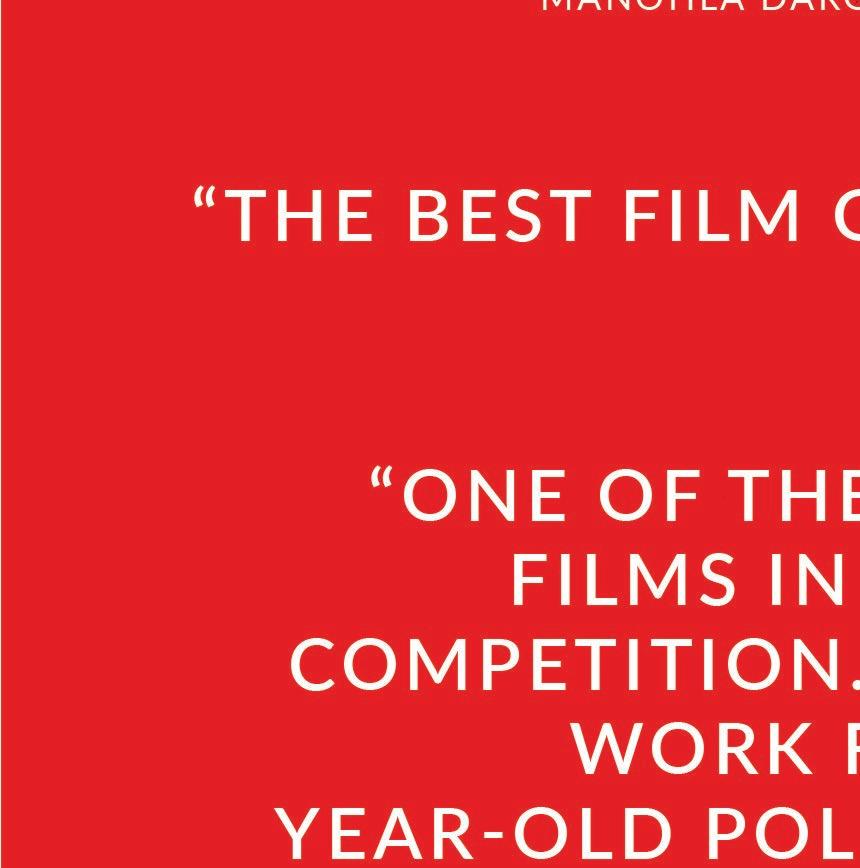




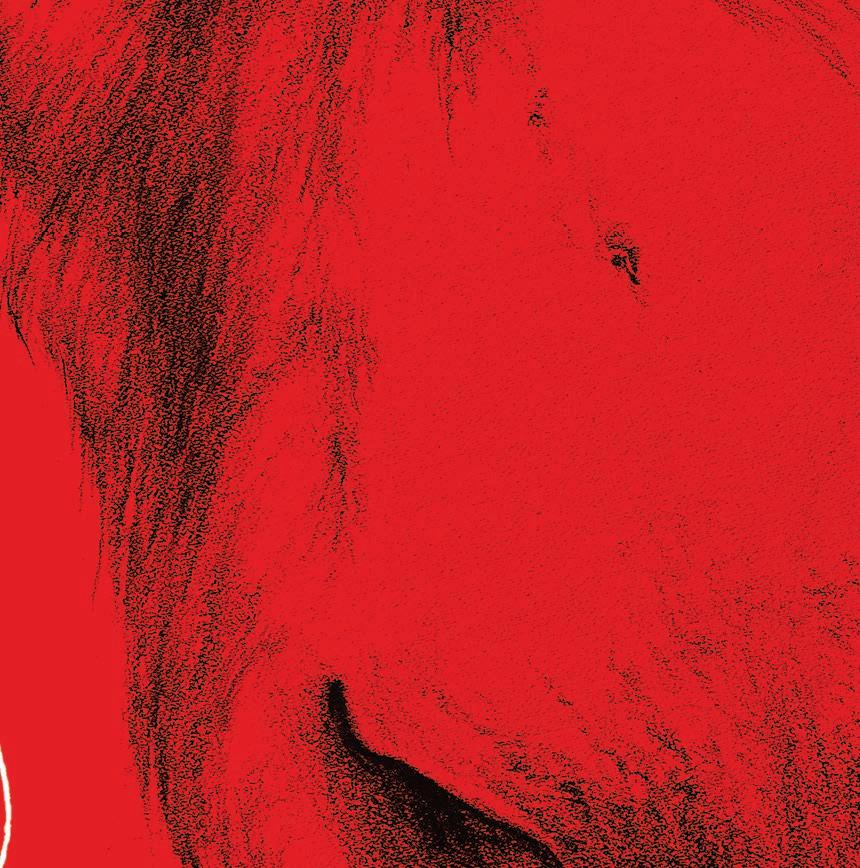




Light in the Dark
The Woman King cinematographer Polly Morgan on capturing natural beauty
Director Gina Prince-Bythewood’s goal for The Woman King was to create a sprawling epic based on a group of all-female warriors in Africa. Cinematographer Polly Morgan says her job was to “capture the beauty of the landscape, and lean into the colors of the environment.”
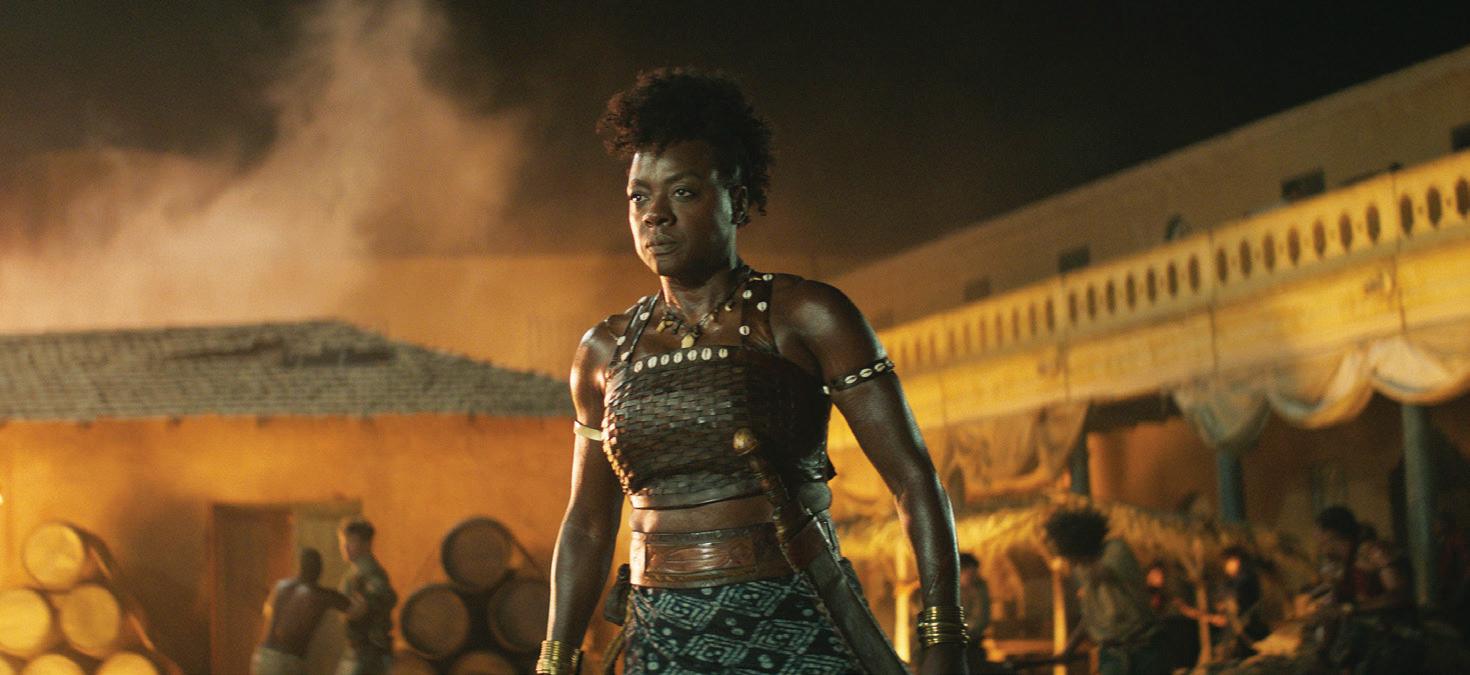
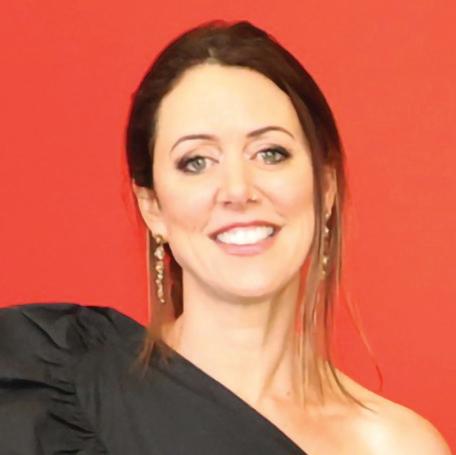
Filming in Africa presented a challenge for the production, but the location allowed Morgan to highlight the colors and tones of the period. “We wanted to have really beautiful, natural, saturated color,” she says, “and to highlight the reds of the earth and the greens of the
forest and jungles and capture the beautiful light and lean into the ares and back light.”
The Woman King tells the story of the all-female Agojie warriors in the African Kingdom of Dahomey. Some scenes needed to be filmed at night, which can present a problem with capturing detail. “When you are lighting a movie for a theatrical release, you really have to make sure that you are conscious of the fact that a projector is half as bright as the screens that we would watch at home,” Morgan says. The moonlight presented a cooler h e to the filming, which she contrasted with another form of natural light. “We would contrast that with the warmth of fire, she says, so we act ally sed real fire to light their faces and not just rely on modern LED tubes. You would see the ames re ected in their eyes and get that nat ral icker that only an act al fire so rce will give you.” —Ryan Fleming
Charted Territory


At press time, here is how Gold Derby’s experts ranked the Oscar chances in the Lead and Supporting Actor races. Get up-to-date rankings and make your own predictions at GoldDeby.com
Actor in a Leading Role
Actor in a Supporting Role
A Balanced Meal
How composer Colin Stetson scored the genredefying The Menu
Mark Mylod’s The Menu takes place at an exclusive island restaurant where the chef has prepared a men filled with shocking s r rises for the g ests he film has ele ments of horror, comedy and satire,

which challenged composer Colin Stetson to score all of the genres.
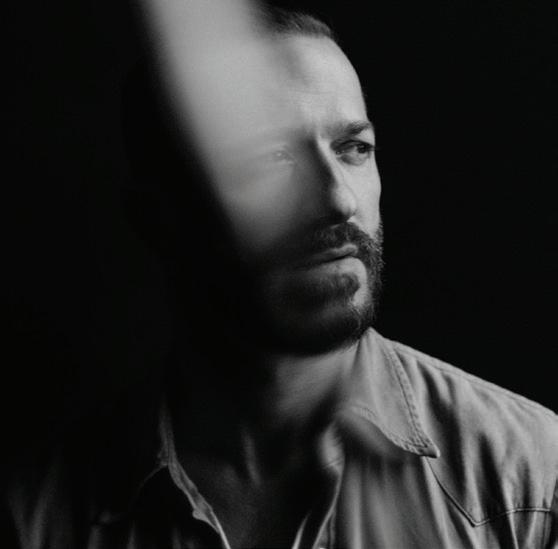
He decided that an orchestral score would highlight the fine-dining atmosphere of the setting, with added elements of unsettling sounds, like the nyckelharpa. “It’s a keyed string instrument that’s just beautiful,” he says. “In this instance it’s played decidedly unbeautiful by me. It’s a more grotesque and
abrasive element of the score.”
Mylod and Stetson also wanted to include some elements of culinary sounds in the score, to add “fast, rapid and thick textural sounds, almost in the same vein as blast beats in black metal,” Stetson says. “Instead, we used an array of pitched water glasses a number of times over to get this very agitated, yet exultant feeling.”
Ryan Fleming
DEADLINE.COM/ AWARDSLINE 1 Ke Huy Quan Everything Everywhere All at Once ODDS / 2 Brendan Gleeson The Banshees of Inisherin ODDS / 3 Judd Hirsch The Fabelmans ODDS / 4 Paul Dano The Fabelmans ODDS / 5 Ben Whishaw Women Talking ODDS / 1 Brendan Fraser The Whale ODDS / 2 Colin Farrell The Banshees of Inisherin ODDS / 3 Austin Butler Elvis ODDS / 4 Bill Nighy Living ODDS / 5 Hugh Jackman The Son ODDS
/
FT QUICK SHOTS TRISTAR ICTURES/ERIC ACHANO ICH/SEARCHLI HT ICTURES/ COURTEST EVERETT COLLECTION
Viola Davis in The Woman King
Ralph Fiennes in The Menu
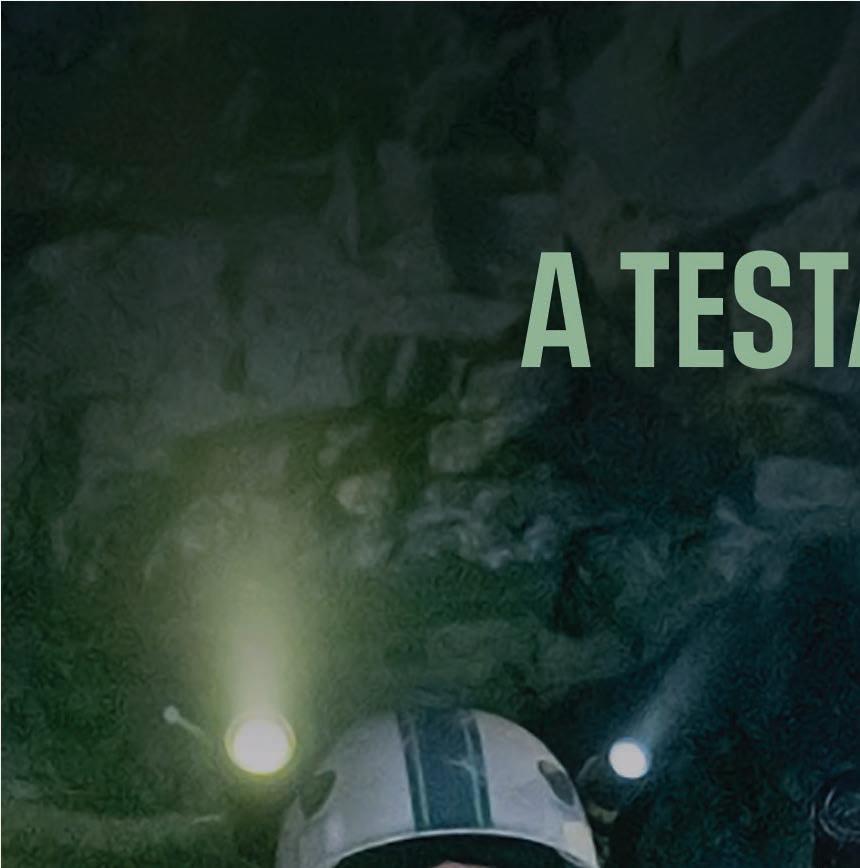

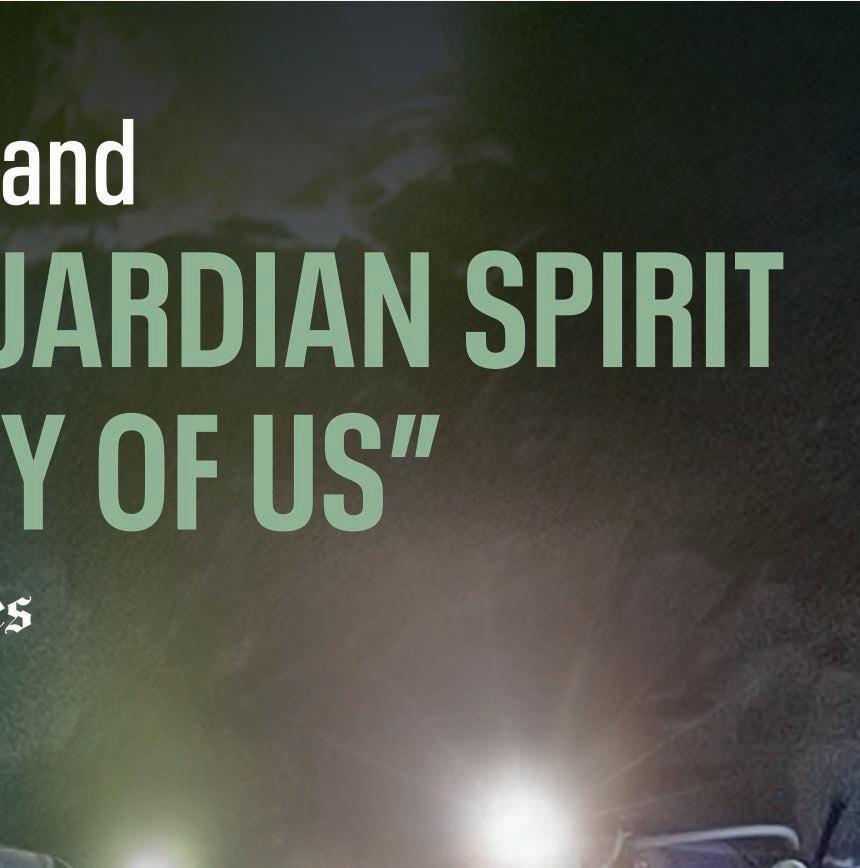

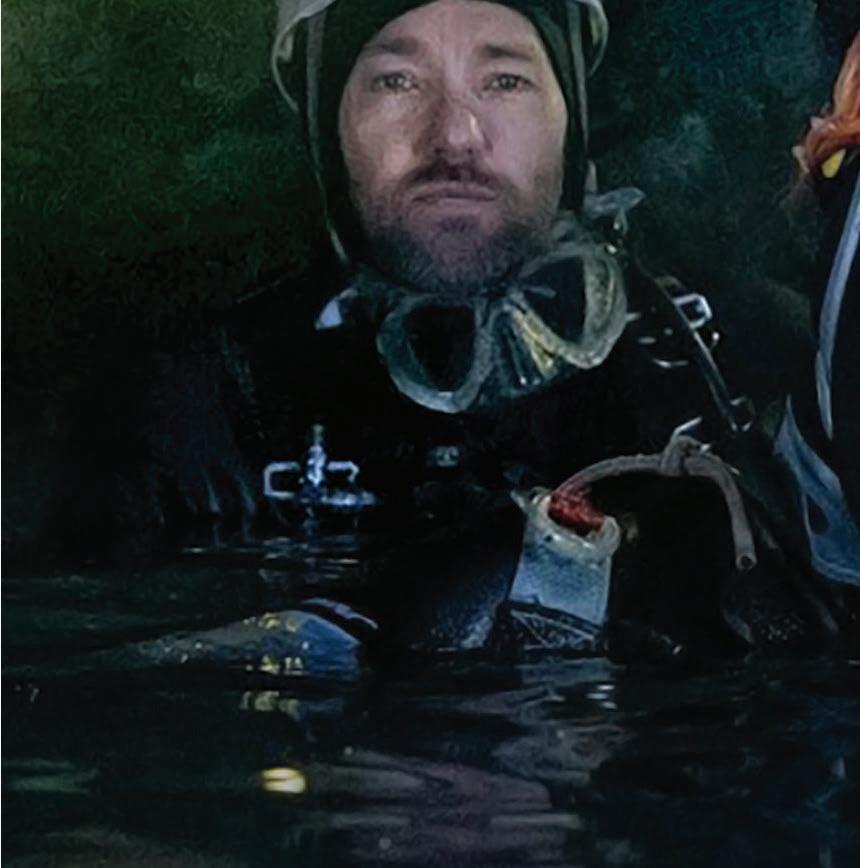
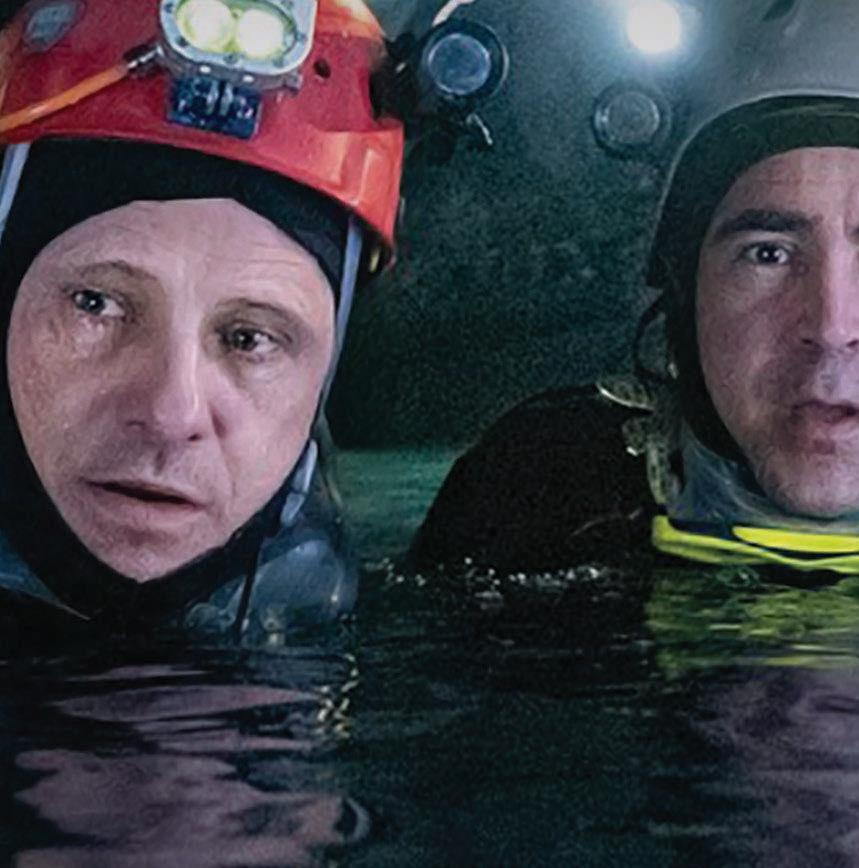
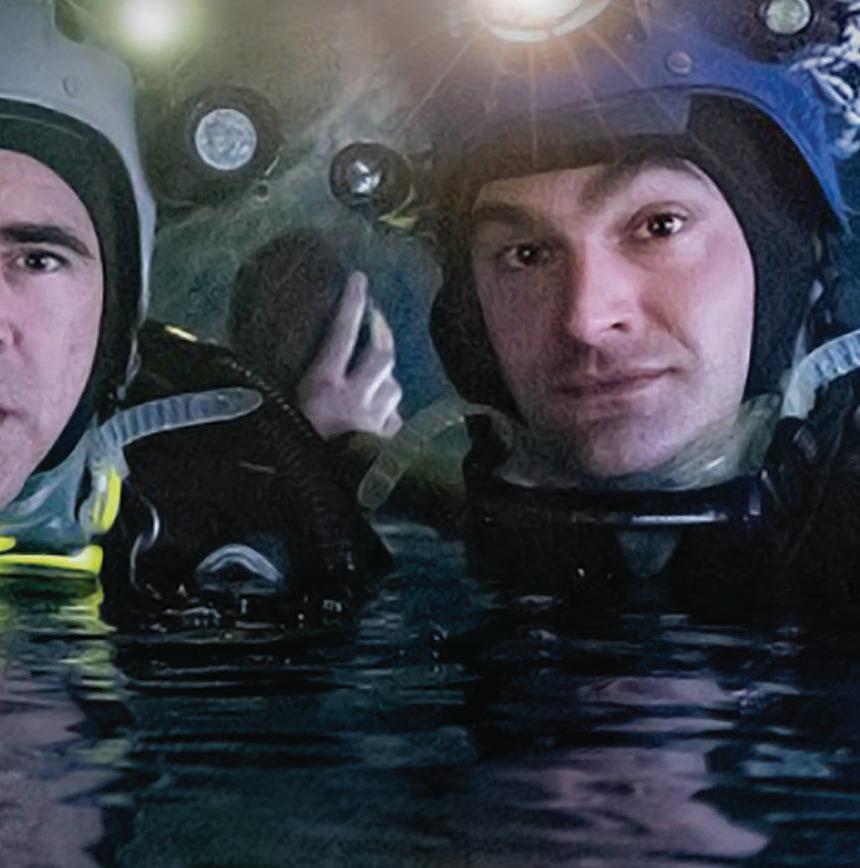

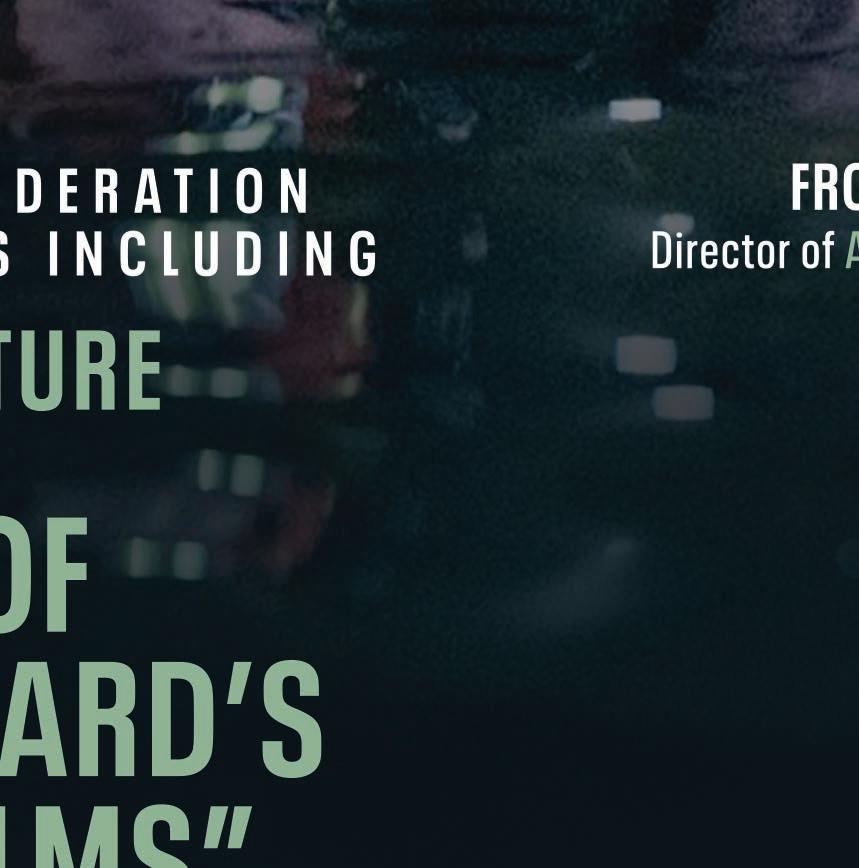


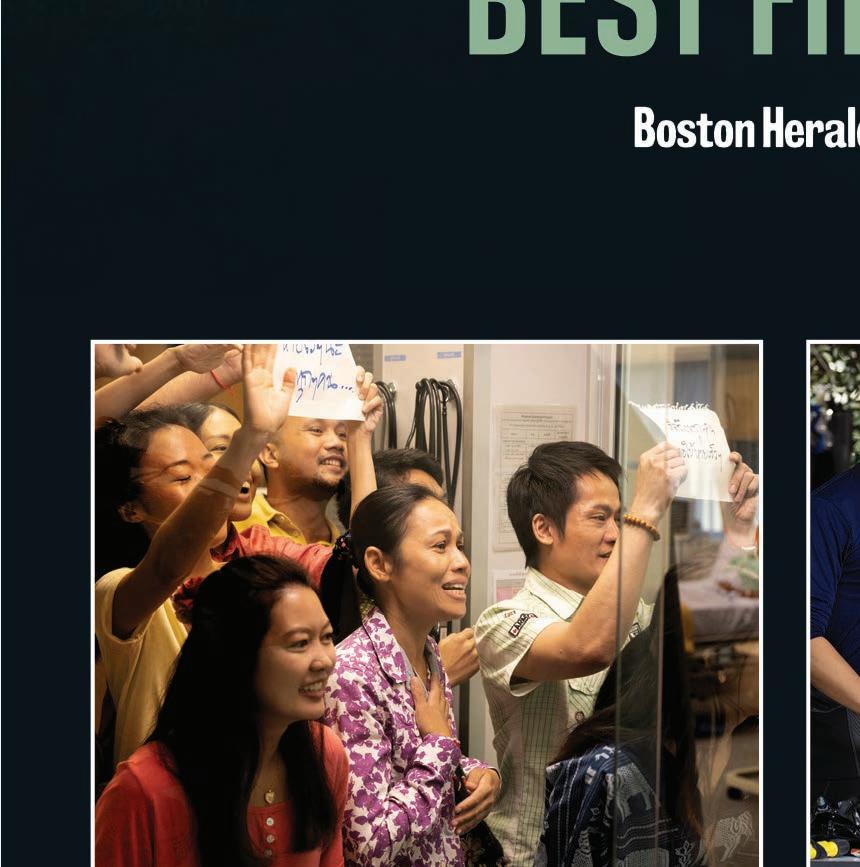


DANIEL RADCLIFFE
By Antonia Blyth
In Weird: The Al Yankovic Story , Dan iel Radcliffe steps into a surrealist, fictionalized take on the rise to fame of the quirky accordion player and singer. “Being British, I think the first time I ever heard him referenced was in The Simpsons ,” Radcliffe says. Featuring a cast of cameos so unexpected and rich that even the Harry Potter star was constantly taken aback, the film led him to attempt the accordion for real, in this latest of a series of roles in which he has leaned into his comedic and musical chops. He recalls the films that make him cry and his early life on set, and quietly admits to a penchant for The Bachelor franchise.

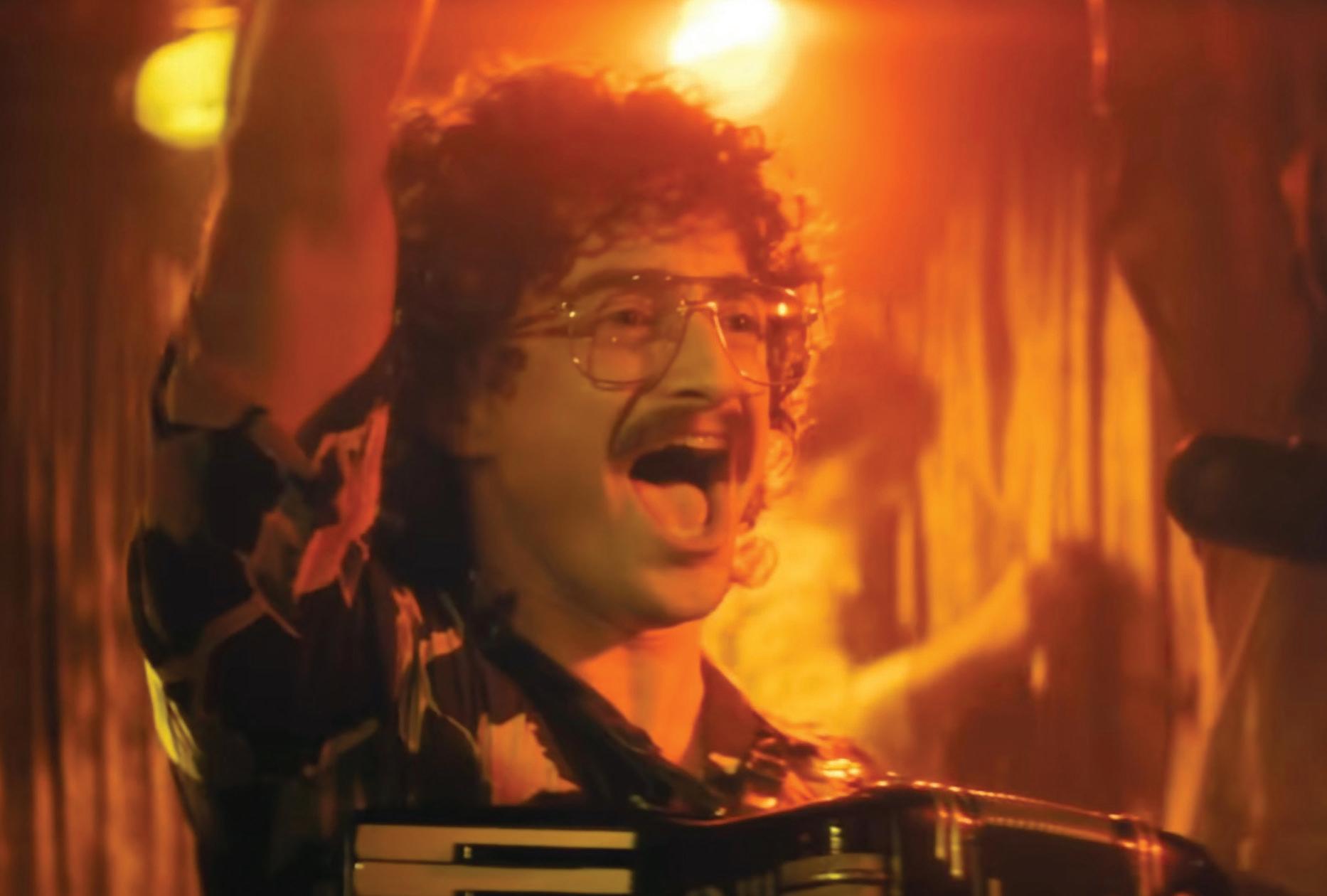
My First Film Lesson
lot of the crew of the first Potter film had come from a film with a ery notori ously hard to work with lead actor. And then we also had a very legendary assistant director from the British film ind stry called ichael Stevenson who had worked with and knew Michael Caine really well. The dif ference between how the crew talked about a bad actor and how the crew talked about Michael Caine taught me a lot about how you want to be on a set and how actors have a huge
amount
of responsibility
for the general tone and mood of the set.
The Best Advice I Ever Received
My dad always told me when I was young that when you meet people, try to shake theirs. Just show that kind of eagerness. And I think particularly because of what people expect child stars to be like, and the de sire to dispel that as quickly as possible, that was some thing that was useful. The other thing he said to me,
early on, was there’ll always be somebody being waited for on a film set and all yo can do is try and make sure it’s not you. I know it’s really simple advice, but really underrated qualities in ac tors are being there on time and knowing your lines, and knowing how to operate on a film set
My Dream Project
I would love to direct, so I have written something which I’m in the process of trying to get made. It could be a film, absol tely lo e film sets and feel like e
DEADLINE.COM/ AWARDSLINE THE RO U CHANNEL/COURTEST EVERETT COLLECTION
The actor talks Weird Al, the joy of musical theater, Harry Potter memories, and his dreams of directing
FT ON MY SCREEN
Daniel Radcliffe in Weird: The Al Yankovic Story.

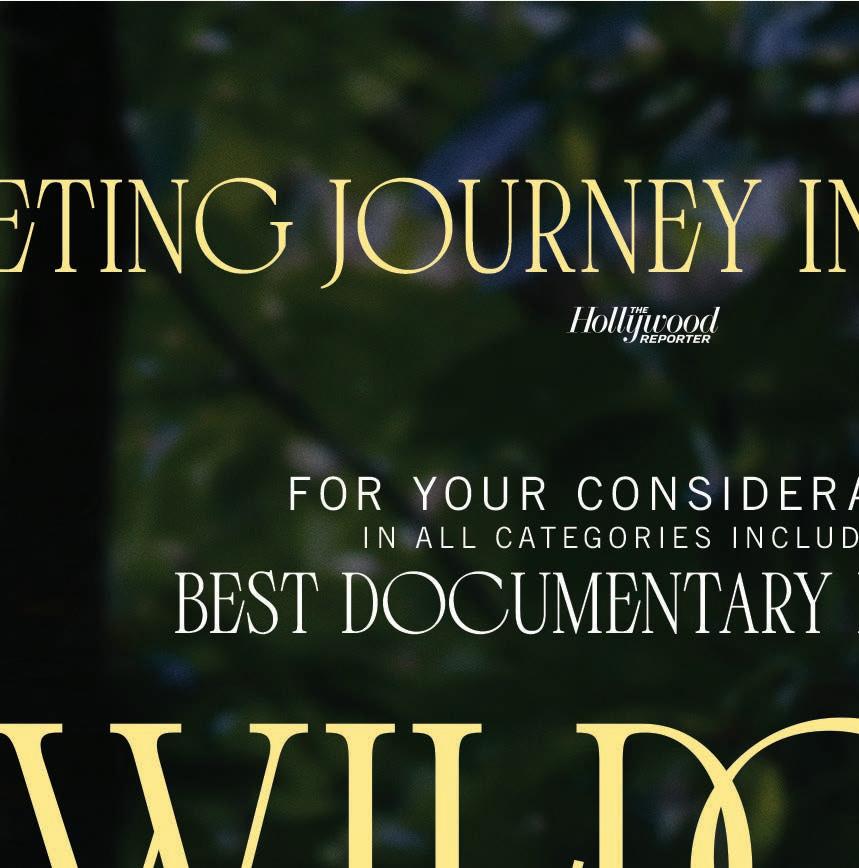


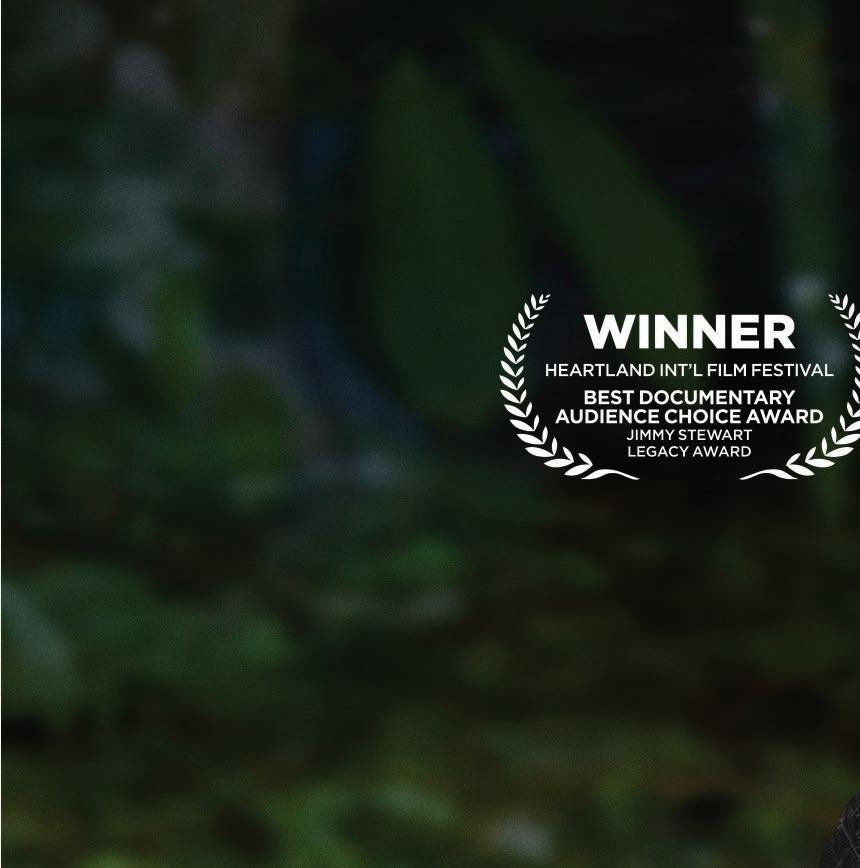

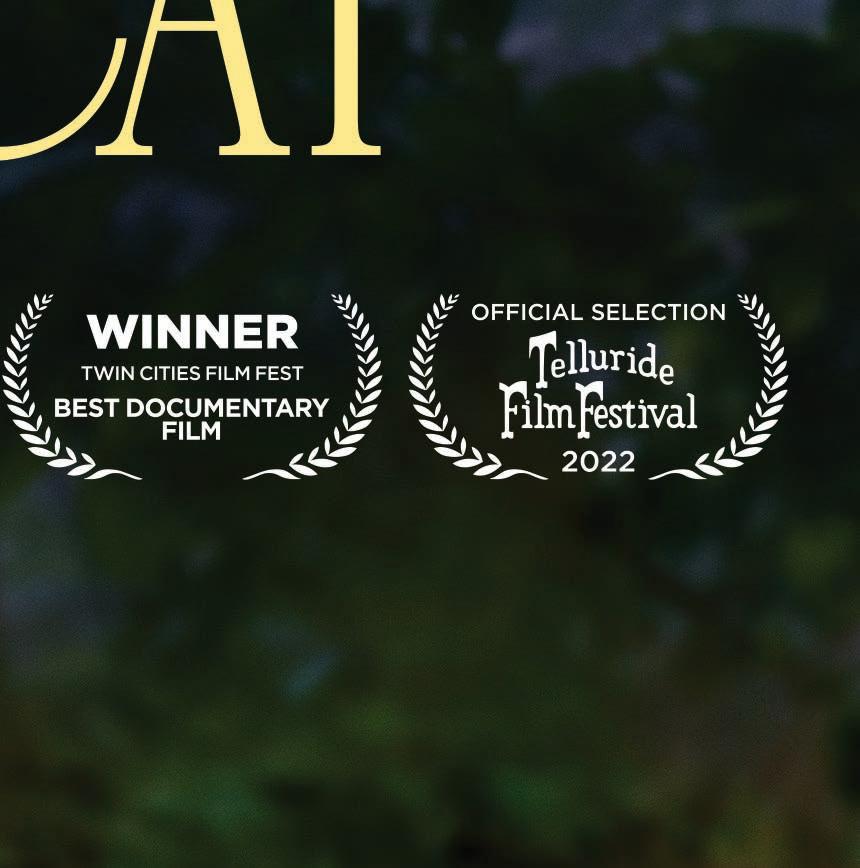
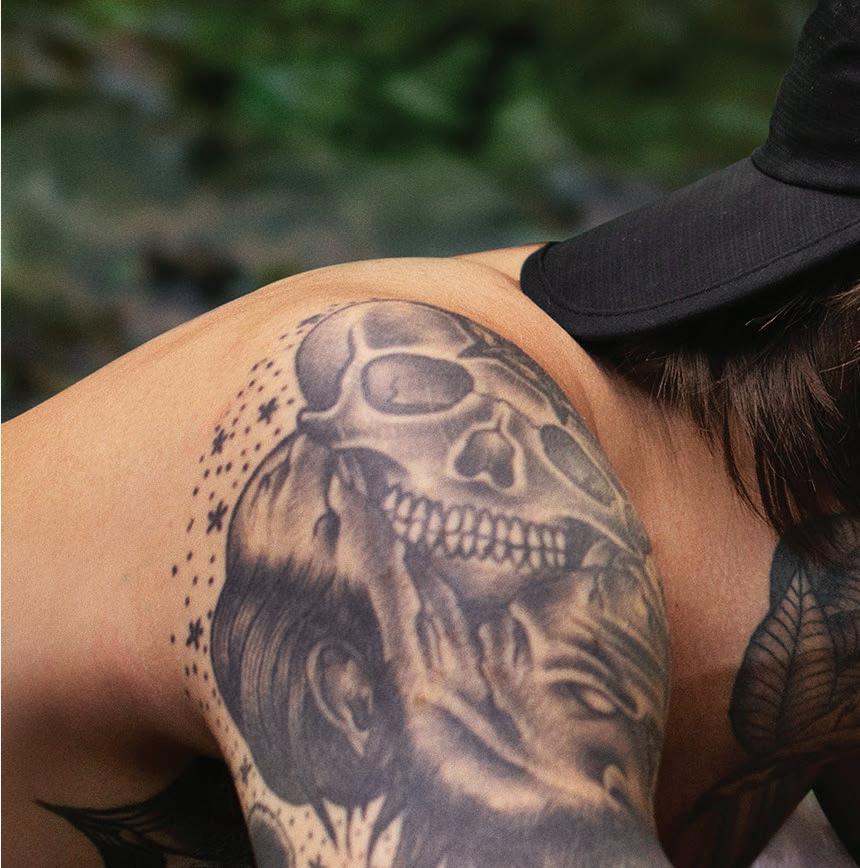




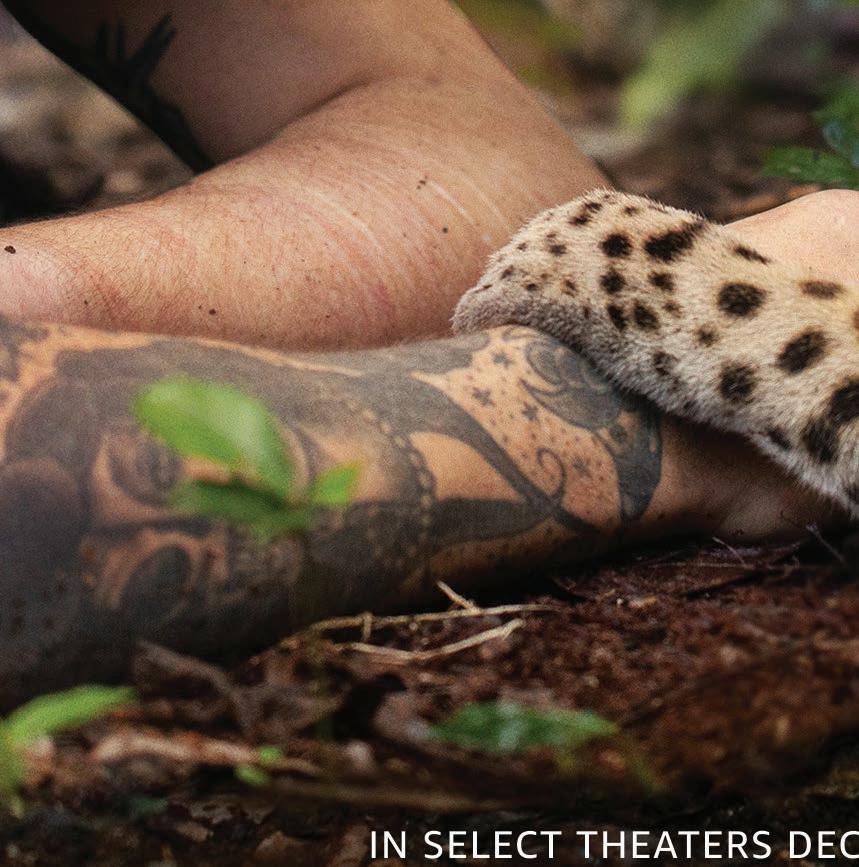

hopefully learned enough in the time I’ve had on sets so far to have a sense of how to lead one and I think I’d love to move into directing.
The Most Fun I’ve Had On Set
Weird was incredibly fun.
Weird was just awesome
We only had four hours to shoot the whole thing and the stunt team were absolutely incredible. I got to jump in and do bits, and when you’re doing that kind of stuff and it’s chaos and you’re against the clock but it’s going really well, that’s really, really exciting.
I would also say Swiss Army Man was incredibly fun, because of the Daniels [Scheinert and Kwan] and how they make films the feeling on their set. But also, Harry Potter was incredibly fun. I was a kid getting to play around on some of the craziest, amazing sets. So, I’ve gotten to do a lot of fun stuff in my career. I’m very lucky.

I did a musical 10 years ago [ ], which required a lot of dancing, and I’m not naturally great at that. But I went from being abjectly terrible to, “OK, I’m doing a Broadway show and not sucking.” I was very proud of that. I remember the
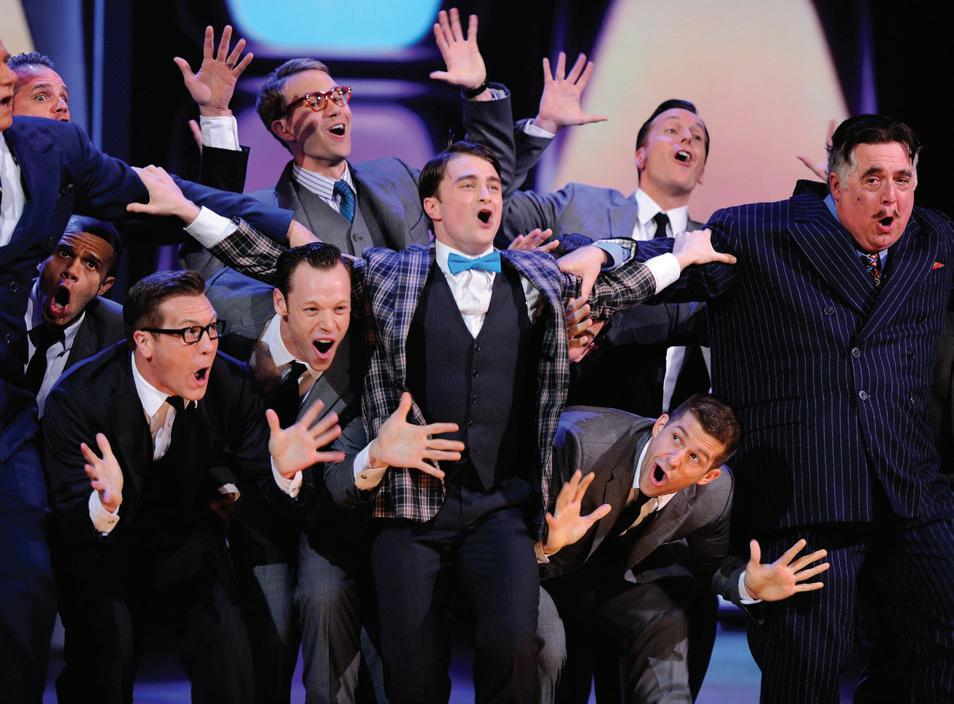
part I was panicked the most about beforehand was Swiss Army Man. I was playing this magical corpse who was coming to life but was not a zombie. So, it’s somehow distinct from that. I knew that I loved the script and wanted to play the part, but I didn’t really know how. I was in my bathroom, looking in the mirror doing weird faces and experimenting with voices and feeling completely ridiculous. And it was, “I’m on set in three days m filming in fi e ow is this going to work?” And then it was immediately getting there and being in the hands of those directors and coming to realize, “Oh, they know exactly who they want. All I have to do is let them tell me.” It was a real lesson.
Me Cry
he first film that my girl friend remembers me crying at—we’d been together for about a year and a half and she had never seen
me cry in any context at that point because it’s not something that generally happens a lot—was when we watcheda documentary called Undefeated about an American high school football team in Tennessee. I cried three times at three completely separate things in the last min tes of the film o, that’s a long way of saying sports movies and particularly sports documentaries make me tear up.
I would love to say people are shouting Escape from Pretoria things at me. But Harry Potter. I’m sure somebody drunk at some point in my life has shouted “you’re a wi ard, arry at me, b t it is thankfully not a common occurrence. Other than Potter, which people just generally want to talk about, it would probably be Swiss Army Man. And I think possibly that is the future of Weird. I think there’s going to be a lot of Weird references and I’m very OK with that.

so far ahead of its time. And 12 Angry Men I’ve always loved. I grew up watching that, and it was a really imortant film for me in terms of showing what films co ld be. Dr. Strangelove was always one of my favorites as well. Anchorman, that was a big film for me at a certain point in my life.
ing, it is that character on so much cocaine. It is just an incredible performance.
eryone is in this film, genuinely. Ben Foster, Colin anks, irsten nst, ila Kunis, it’s got these ridiculous stars.
On the night my girlfriend and I met for the first time, we were at a Kill Your Darlings event and Ben Foster was there. Suddenly, we turned to each other and said, “I’m a huge Ben Foster fan from the movie Get Over It,” and realized that we both loved this film that no one else knew.
Also

There’s a movie called A Matter of Life and Death, by [Michael] Powell and [Emeric] Pressburger, starring David Niven and a bunch of other amazing actors, and it’s brilliant. It is just so wild to me every time I watch it that the movie was made in the ’40s and is

I wish it was one of the more interesting characters that I’ve played, but it’s probably just
What If. We are not completely alike, but in tone and manner we are. Basically I do very little acting in that film m wracking my brains like, “Wait, I’m sure he does a pretty terrible thing,” so ignore that.
This is a super easy one for me. I feel bad that I’ve given this answer so much because I imagine he probably gets asked about it then as well. But
The early 2000s Get Over It. If you like Martin Short in Only Murders in the Build-
We are of a type. This guy the other day was driving past and just shouted out the car window, ey rodo, I love your work.” And I was just like, “Great, thank you.” There’s no point ruining it. e s had a good day be cause he’s met Elijah Wood, so why would I screw that up for him?
★
2 DEADLINE.COM/ AWARDSLINE
/CAITLIN
S
FT ON MY SCREEN
ARNER ROS
CRONEN ER /C
FILMS/COURTESY EVERETT COLLECTION/ ETTY IMA ES
From left, Radcliffe and Zoe Kazan in What If.
Radcliffe as Harry Potter.
Radcliffe, center, on stage at the Tony Awards.


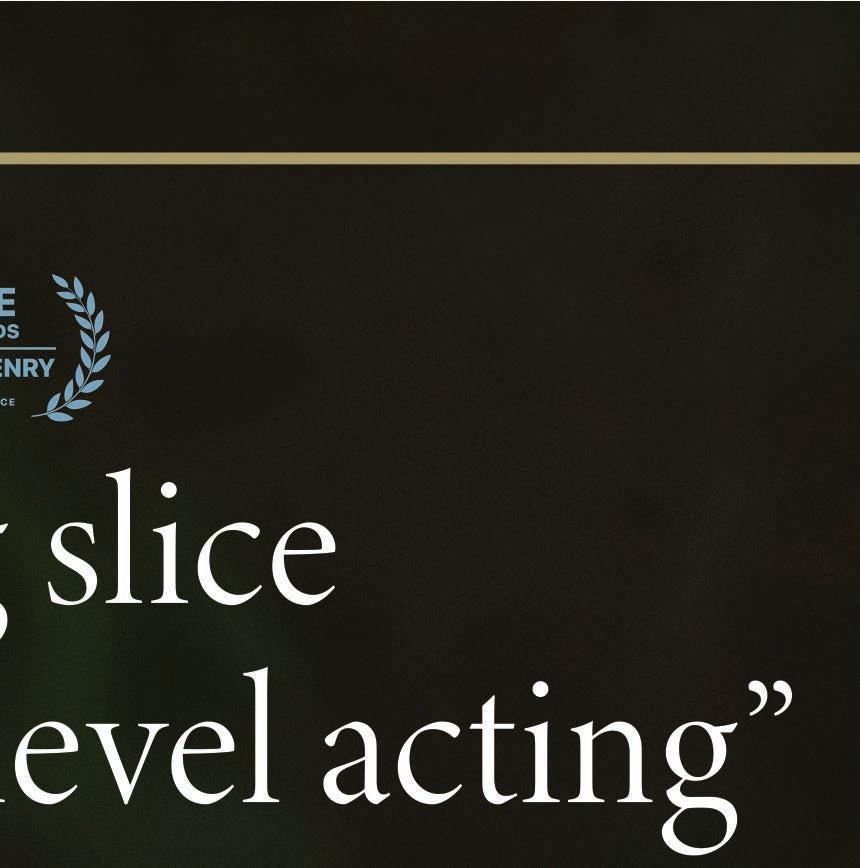


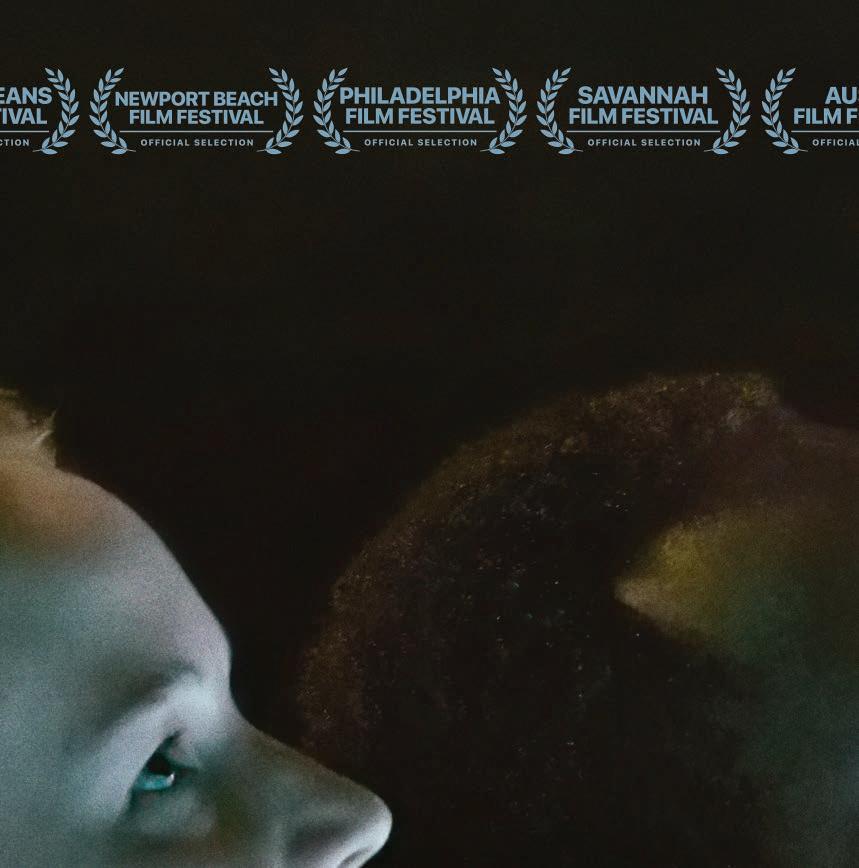
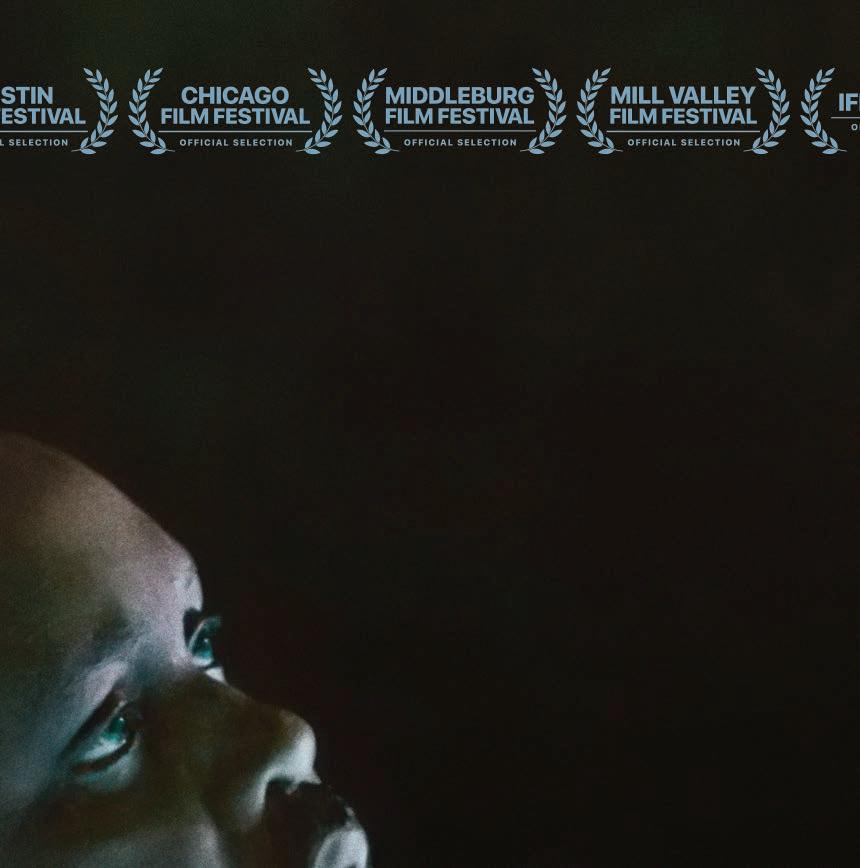
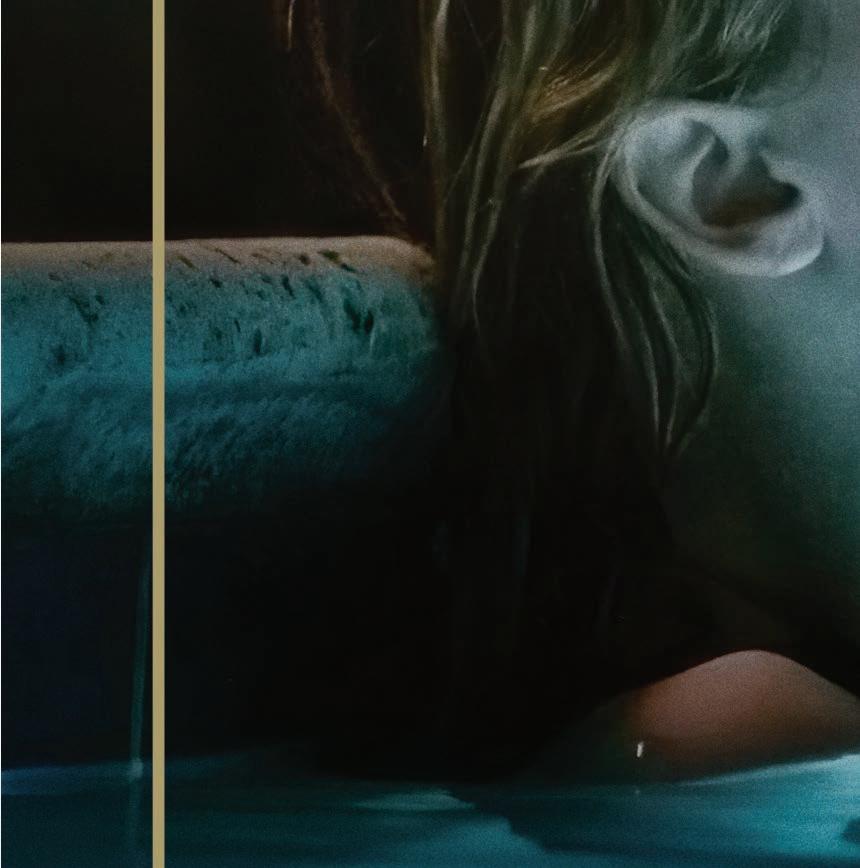

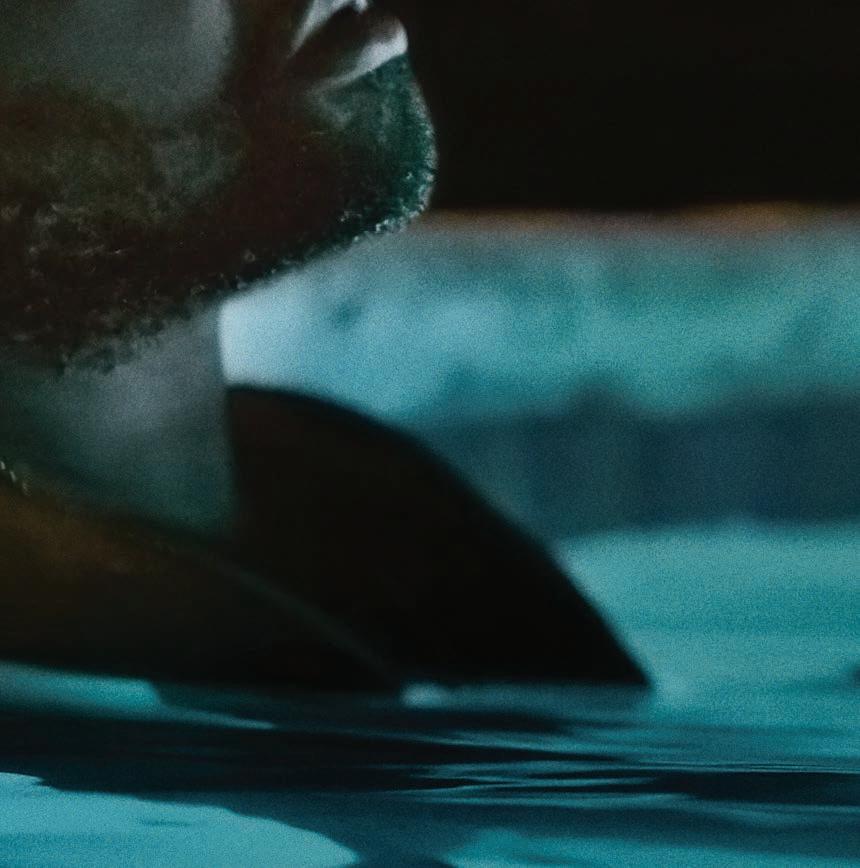

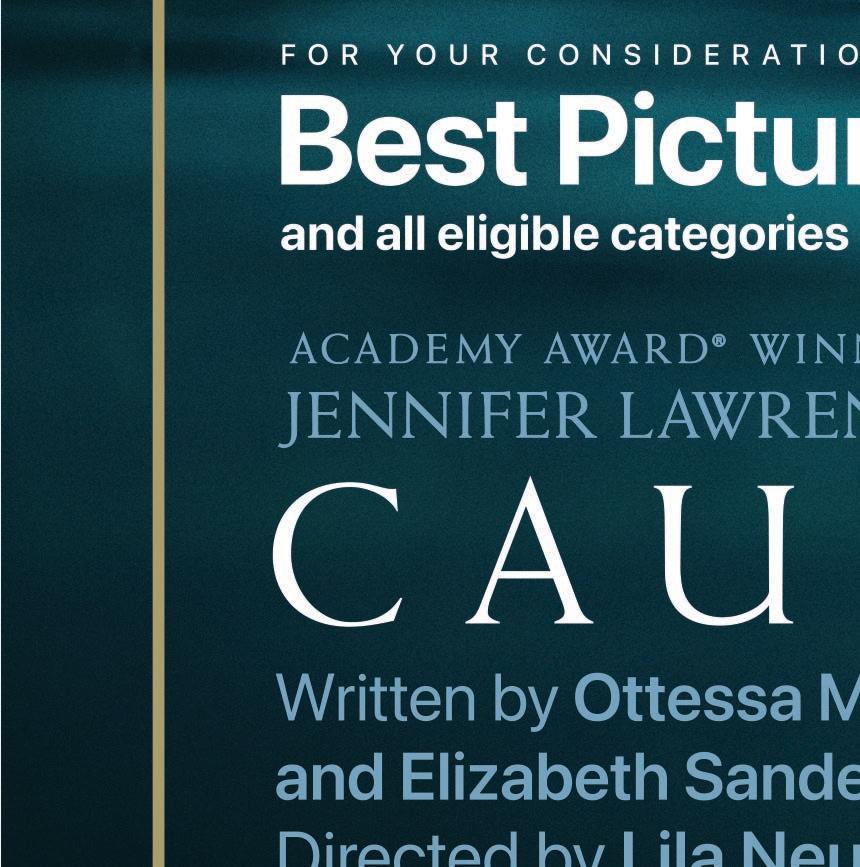
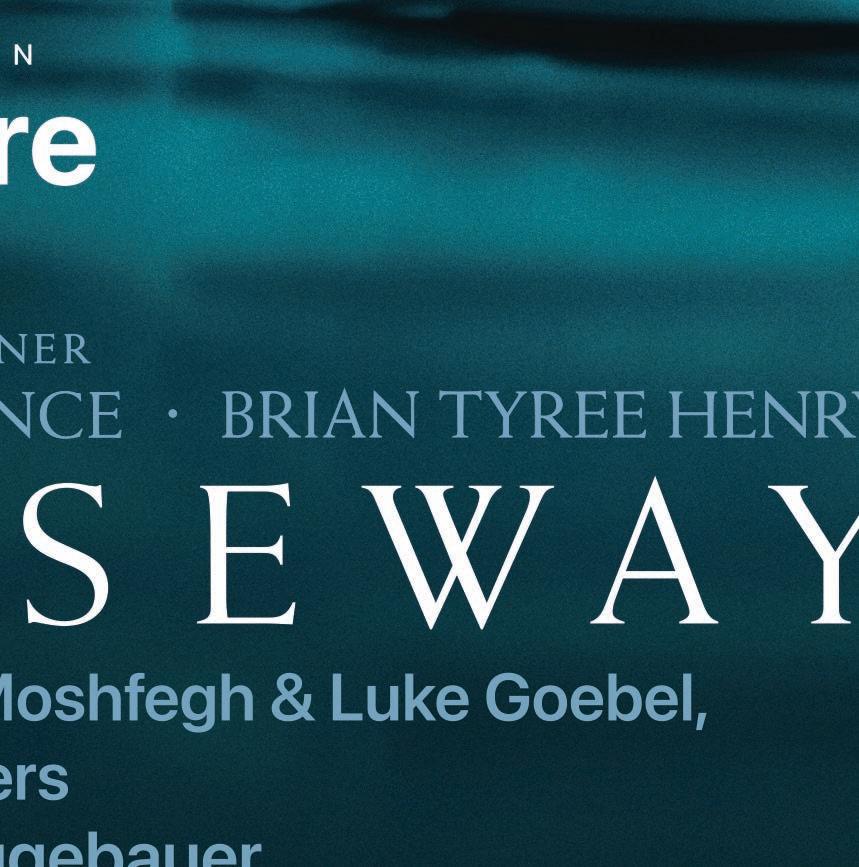

FRESH FACE
By Destiny Jackson WHO Jalyn Hall
Age: 15
Hometown: Atlanta, Georgia
WHAT
Telling the tragic true story of 14-year-old Emmett Till is no easy feat but rising star Jalyn Hall brings him to viscerally painful life in Chinonye Chukwu’s Till. Hall reminds us that Emmett was an ordinary, playful teenager before his shocking murder compelled his devoted mother Mamie (Danielle Deadwyler) to confront the racism of Jim Crow America.

“I feel a lot of the time, people forget that he was a 14-year-old boy,” Hall says, “and it was crucial for me to represent that accuracy. I was 14 when we filmed it. Emmett and I were very similar. In all the research that I did and in learning about all his traits, I saw a lot of myself in those. That’s the one thing I want to bring to everything I do, so that the world will be getting a very accurate and authentic representation of what they’re watching.”
WHY
Hall wanted to act from early on. “When I was younger, I was really adamant about being on TV,” he says. “At that age you don’t really know what you want to be. But I kept saying it.”
After he attended a showcase for a performing arts camp, Hall persuaded his mother to let him attend AGI Entertainment, a performing arts school based in Marietta, Georgia. And by the age of eight, he had been discovered by Pantheon Talent Agency’s Nick Roses. At 10, Hall landed a major recurring TV role in the CW drama All American, but it’s his most recent role in Till that has pulled him into the awards conversation. Hall recalls the unconventional audition process that landed him the titular role. “I didn’t even know I was auditioning for the role of Emmett Till until my second audition,” he says. “My audition tape was the scene in the car with Danielle and I singing, and then us dancing in the bedroom while

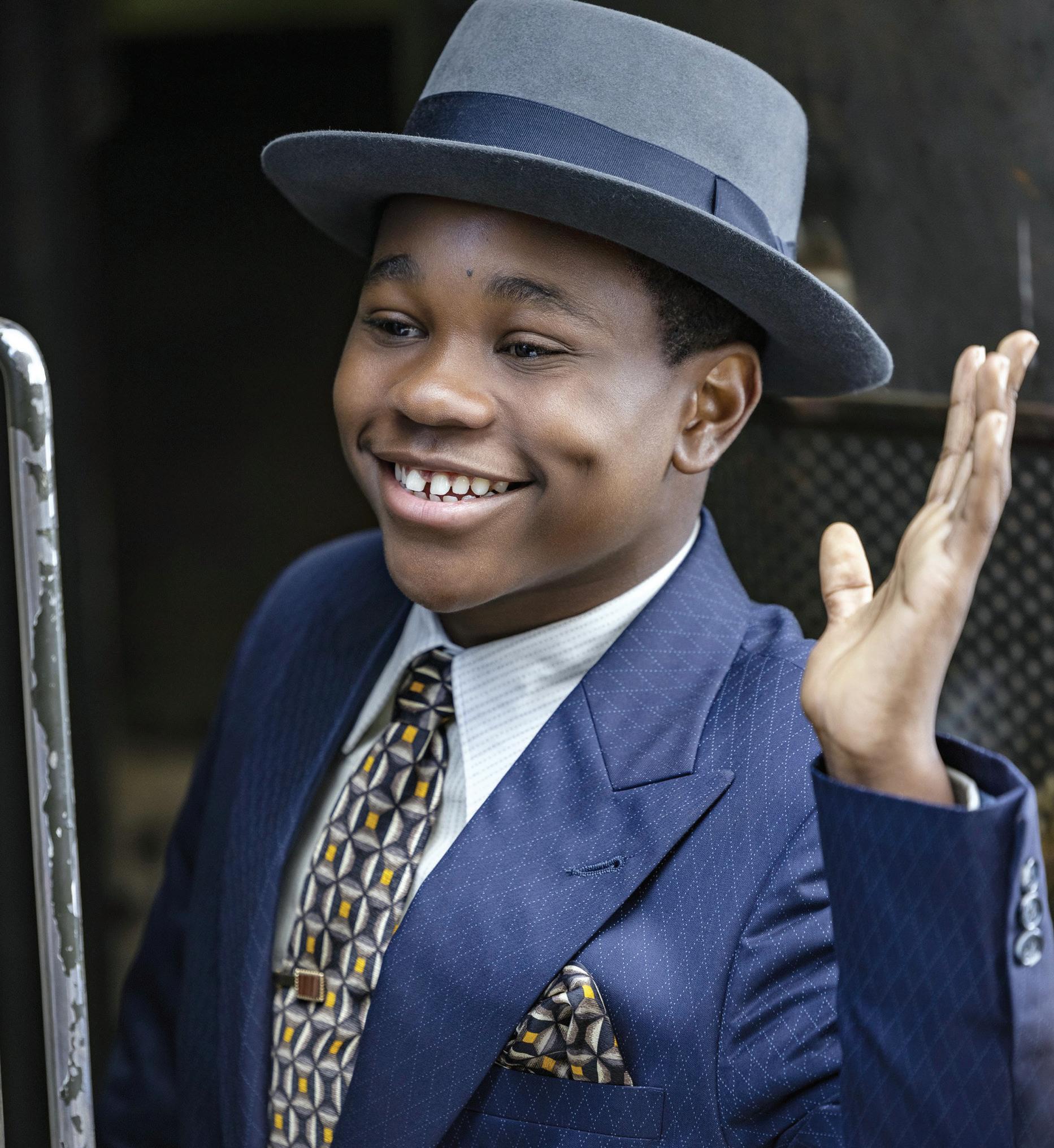
exchanging dialogue. It was easy to get into that headspace the first time, because it wasn’t the heavy stuff, so I could interpret a good way to do it.”
His perception of the role changed once he understood he was to portray a monumental figure from the civil rights movement. “They told me what the role was for, and I had these deeper conversations with my mom because this is very serious stuff, having to see her son endure just a tiny fraction of what Emmett endured, but for acting purposes.”
WHEN & WHERE
Next up on Hall’s roster is Miles Warren’s Bruiser, in which he plays Darious, a teenage youth yearning for a worthy father figure. “It’s a very inspiring and eye-opening story to me. It has those tense moments that really grab your attention. I was very happy to be a part of it.” Then there’s the upcoming Disney+ TV adaptation of Kwame Alexander’s novel The Crossover. The series is a coming-of-age story that follows twin brothers (Hall and Amir O’Neil) as they deal with the pressures of teen life and basketball superstardom. You can also still catch him currently starring in Season 5 of All American
“I want to have a lot of diversity in my career,” Hall says. “With All American, I can be a snarky, growing teenage boy. With Till, I can be a part of heavy material that sparks conversation that affects the world in a historical way. I have things that I’m working on which shows me as an actor in an entirely new light. And that’s important, because to have different tricks up your sleeve, is something that I think every great actor should have. And that’s what I hope to have.”★
DEADLINE.COM/ AWARDSLINE FT FRESH FACE
EVIN ESTRADA/THE C
/LYNSEY
EATHERS OON/UNITED ARTISTS RELEASIN /COURTESY EVERETT COLLECTION
Hall as Emmett Till with Danielle Deadwyler as Mamie Till-Mobley
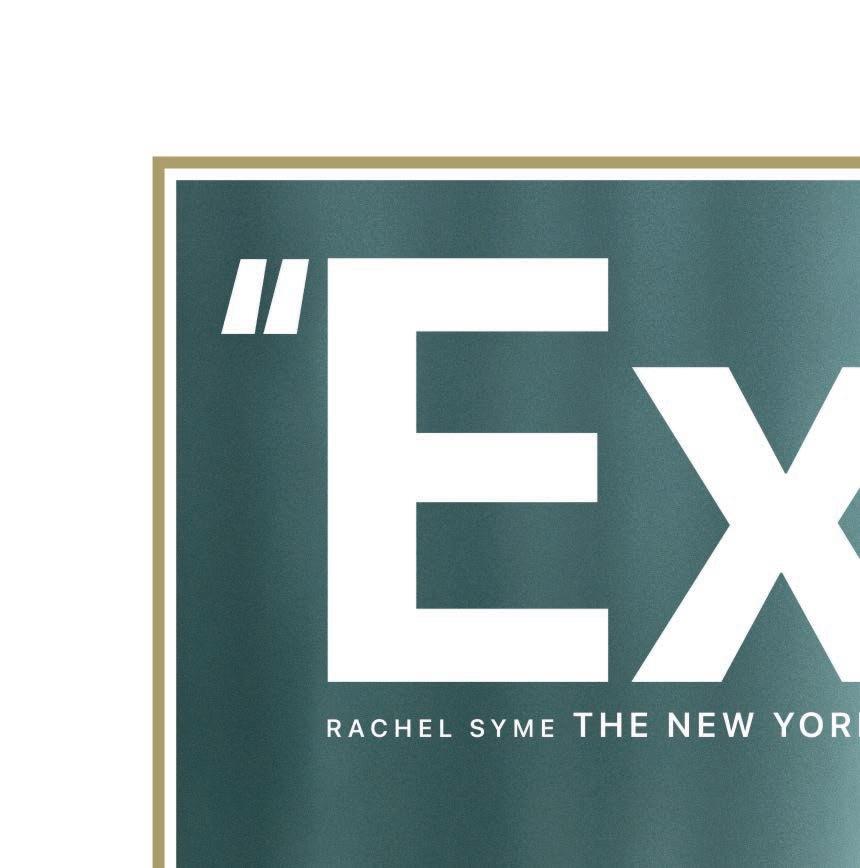
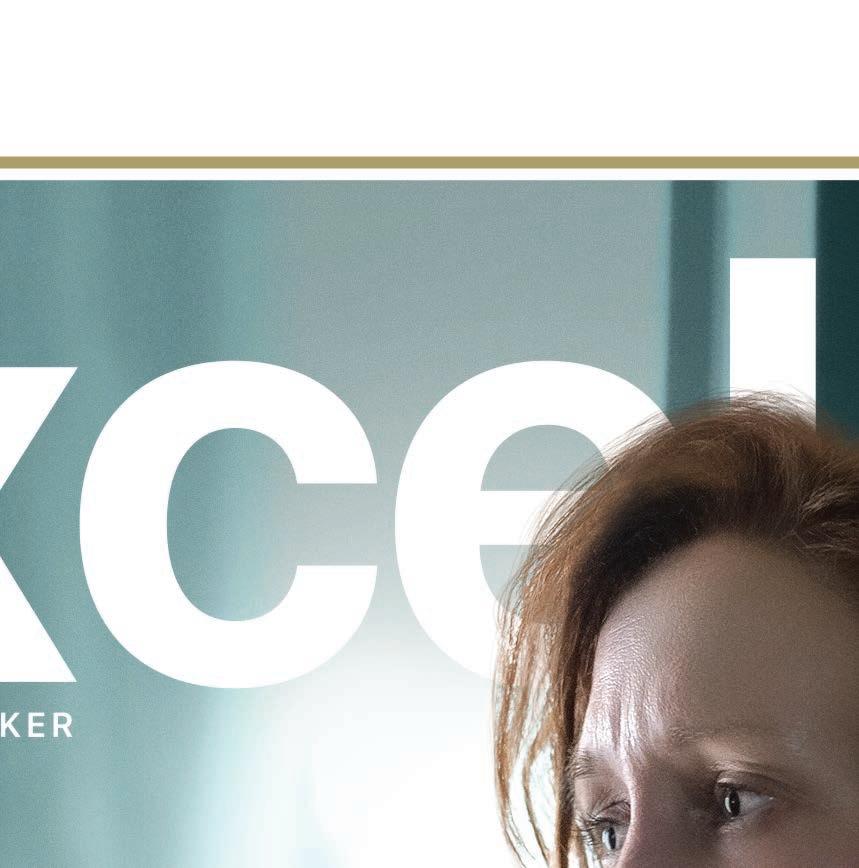
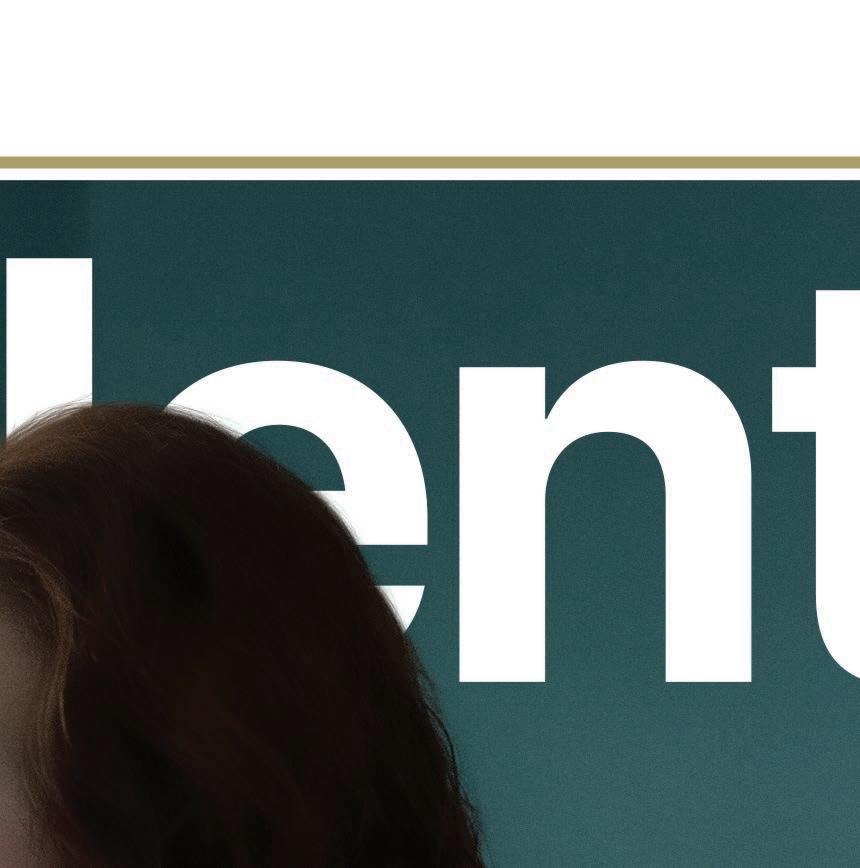


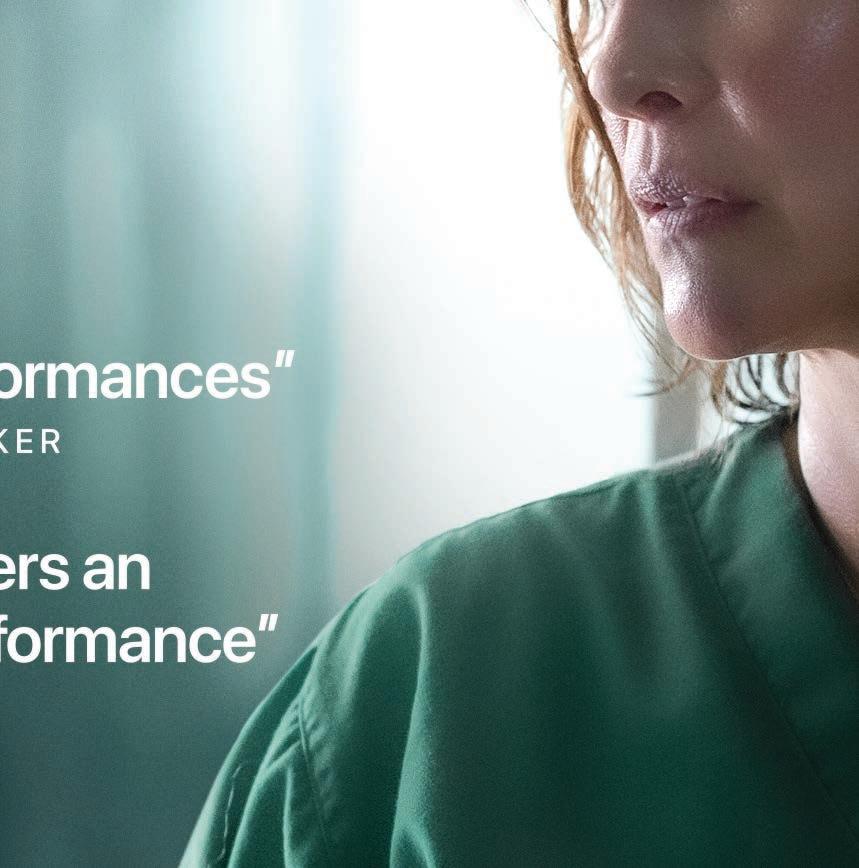
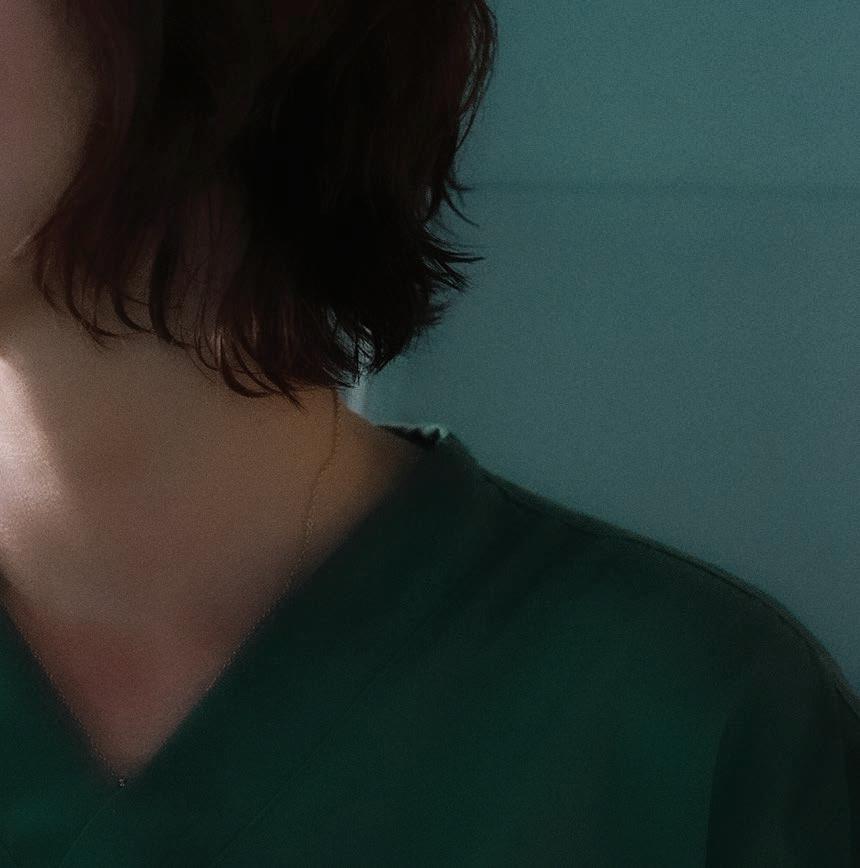

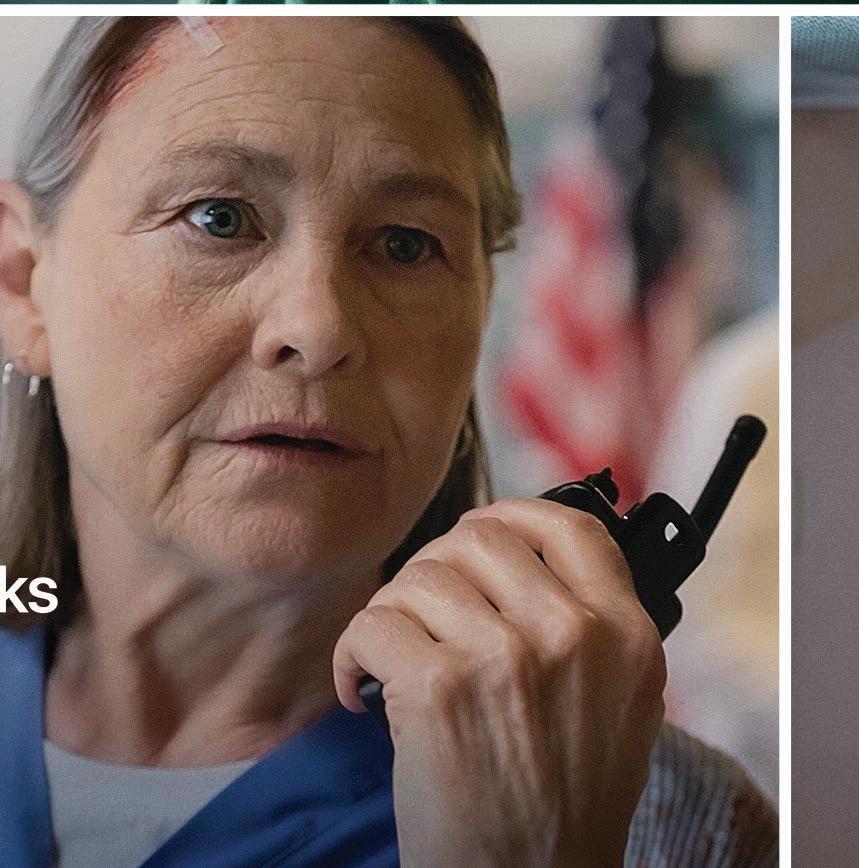



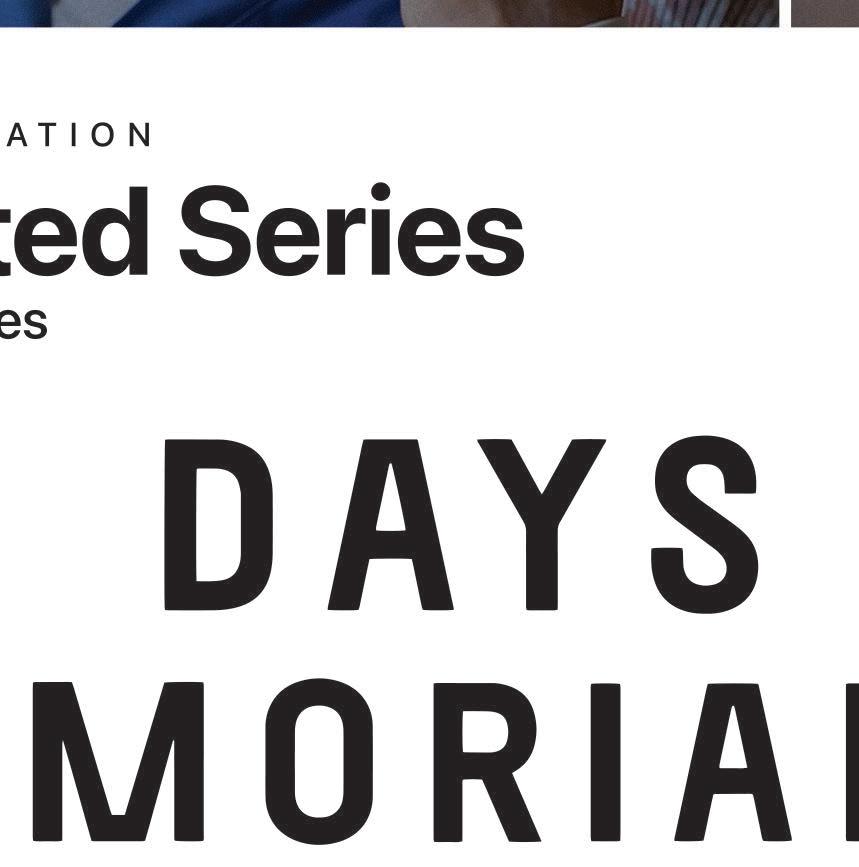


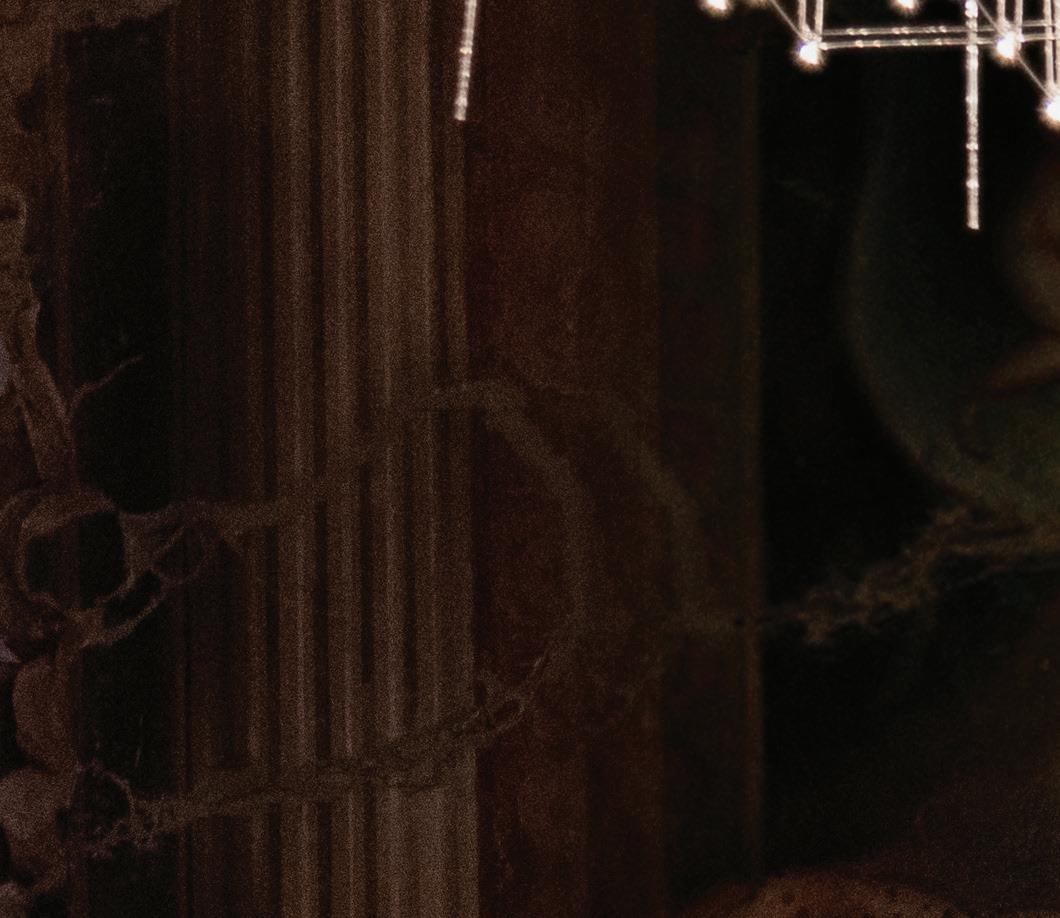



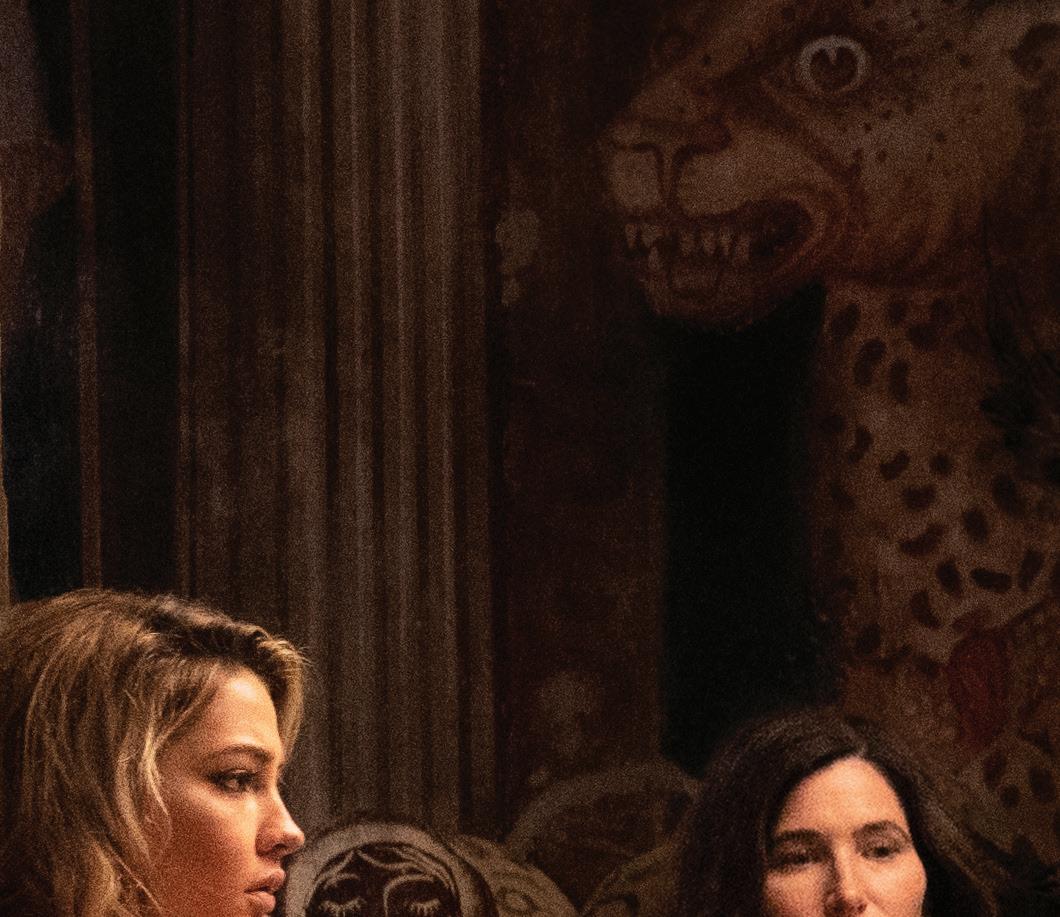
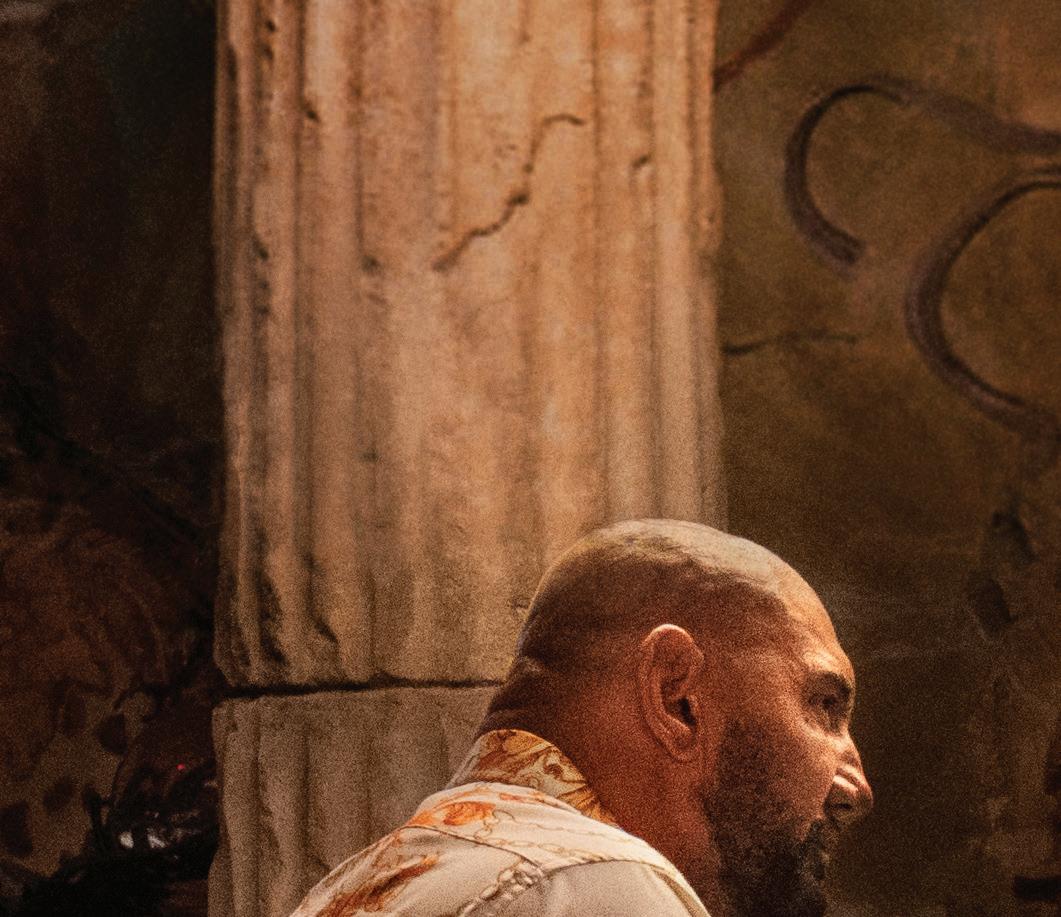

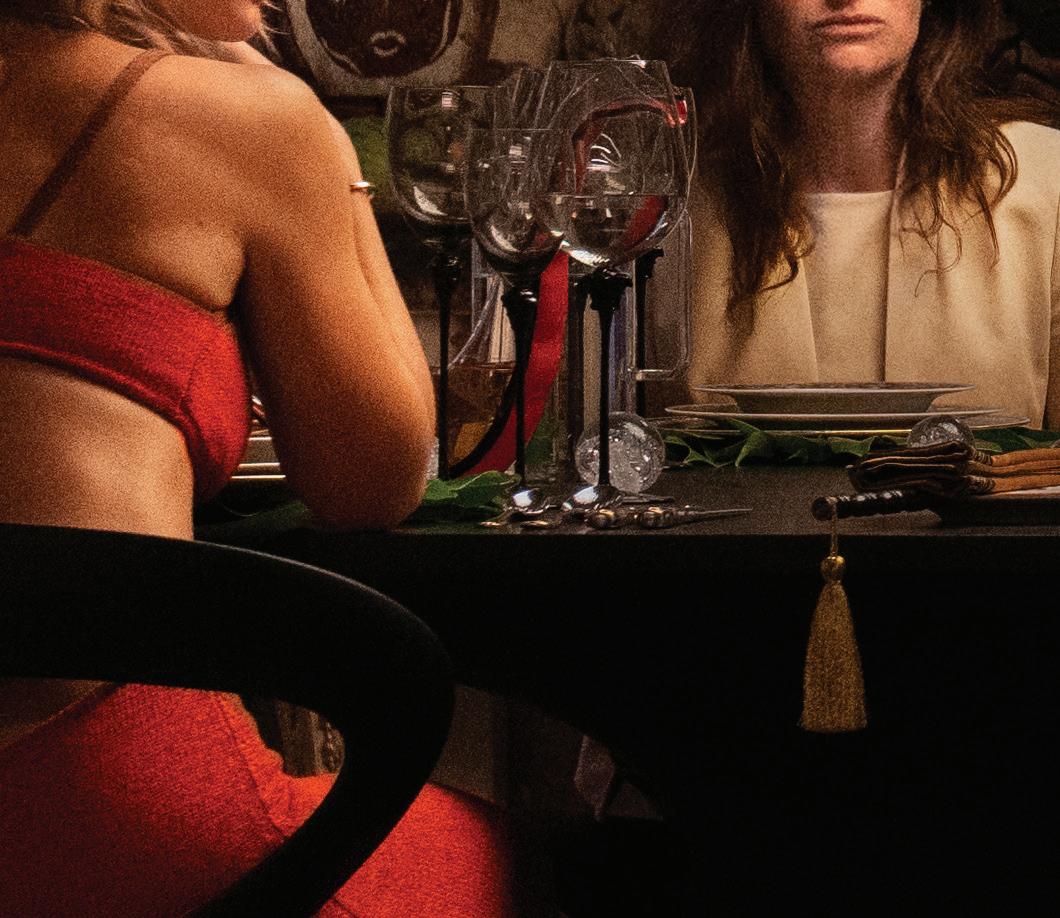
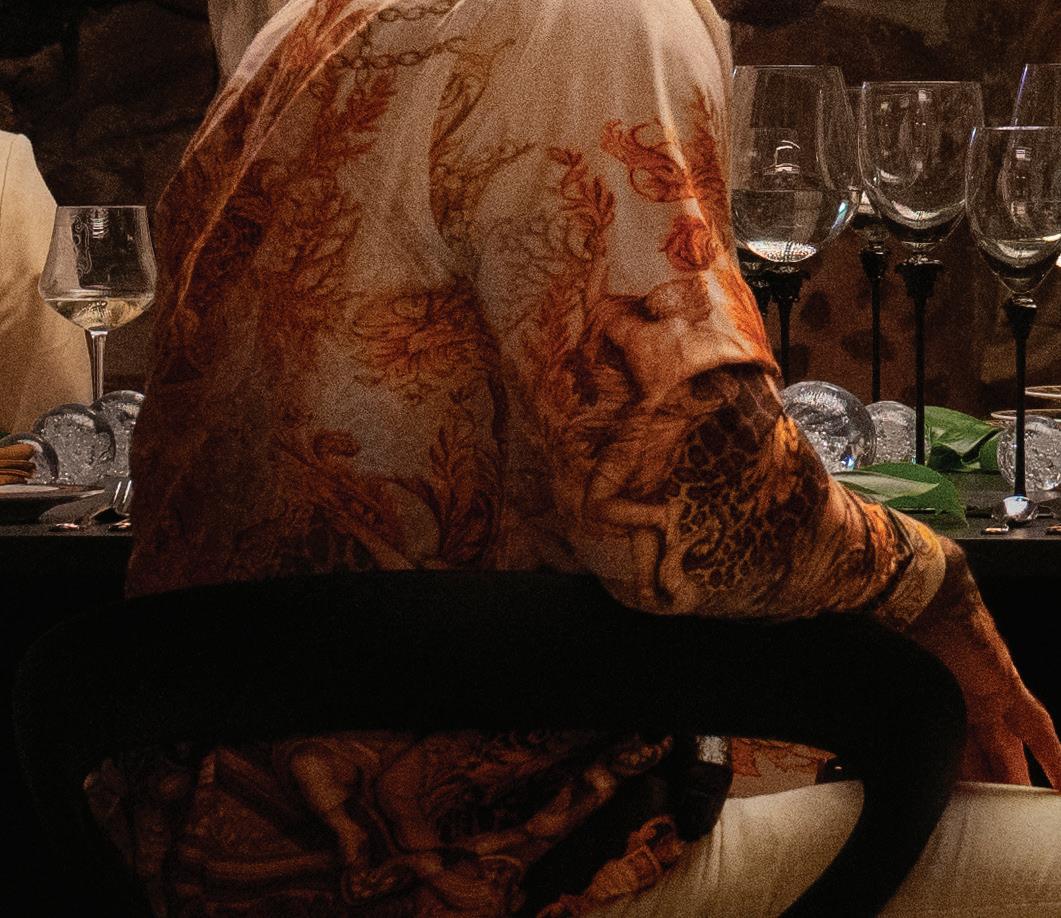


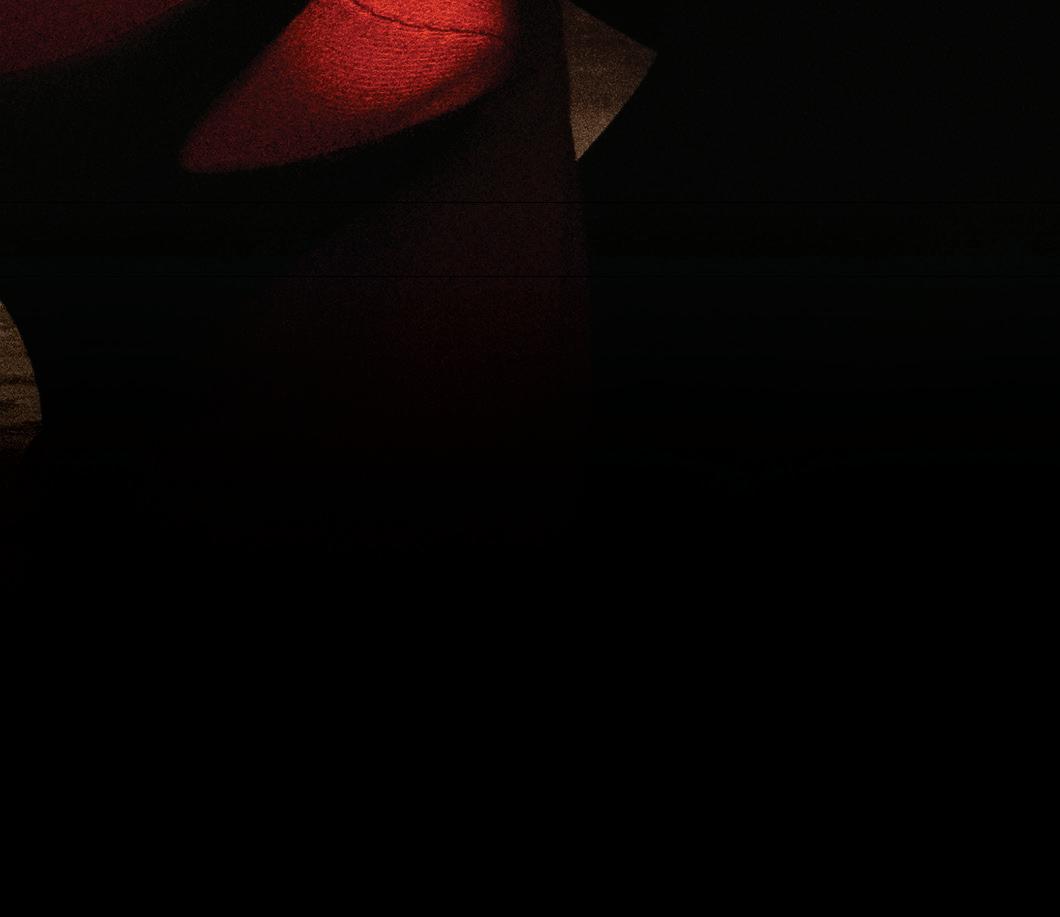

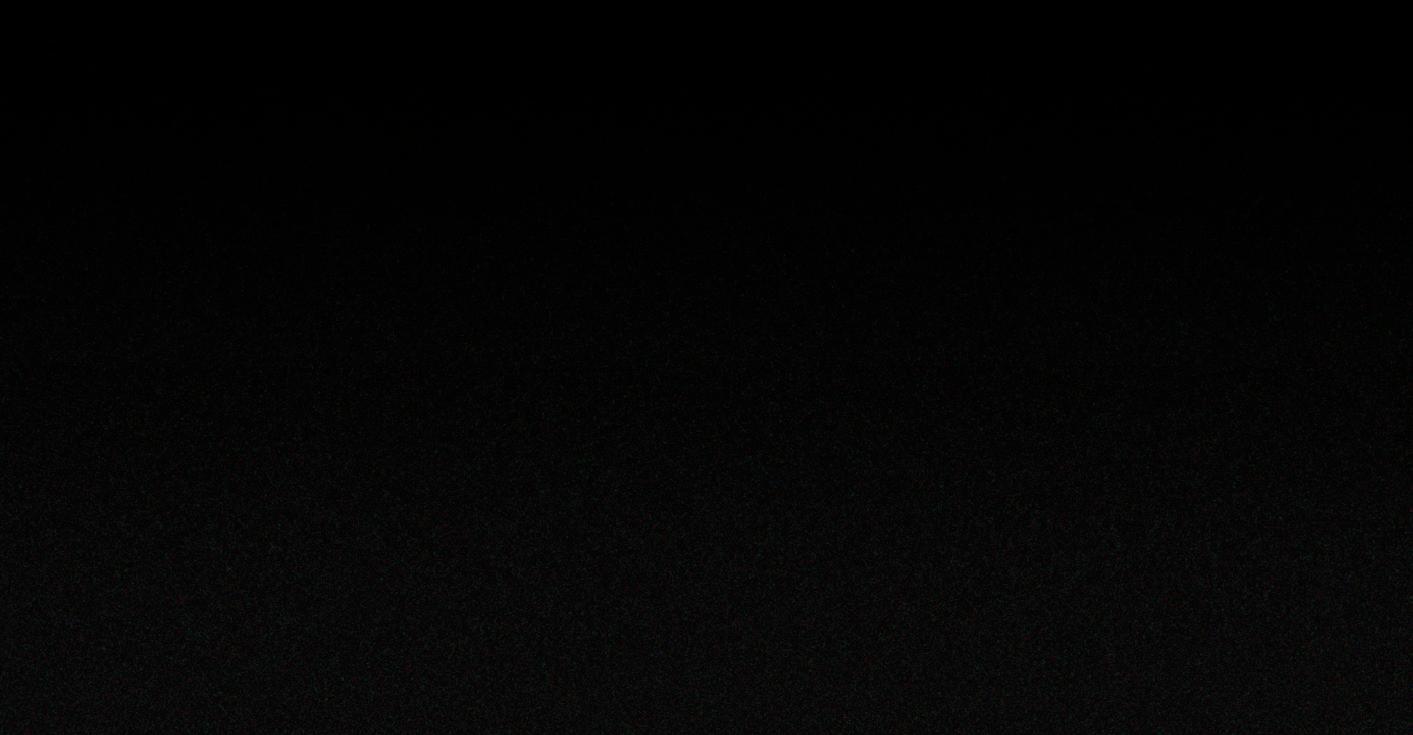

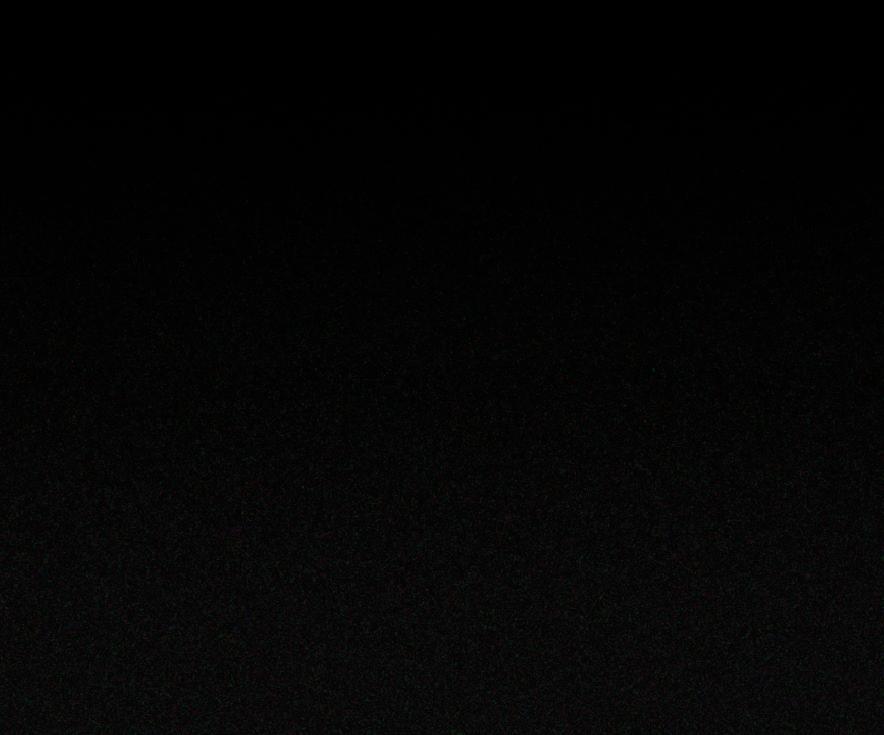

16 DEADLINE.COM/AWARDSLINE
JOHN WILSON/NETFLIX
When the director of Star Wars: The Last Jedi and the incumbent James Bond said they were going to make an Agatha Christiestyle murder mystery, it seemed like a stab in the dark. At the box o ce, however, Knives Out killed all those doubts—and now everyone wants a piece of the sequel, Glass Onion: A Knives Out Mystery Damon Wise speaks to Rian Johnson, Daniel Craig, Edward Norton and the lm’s star Janelle Monáe to investigate the dark secrets of this most unexpected franchise.












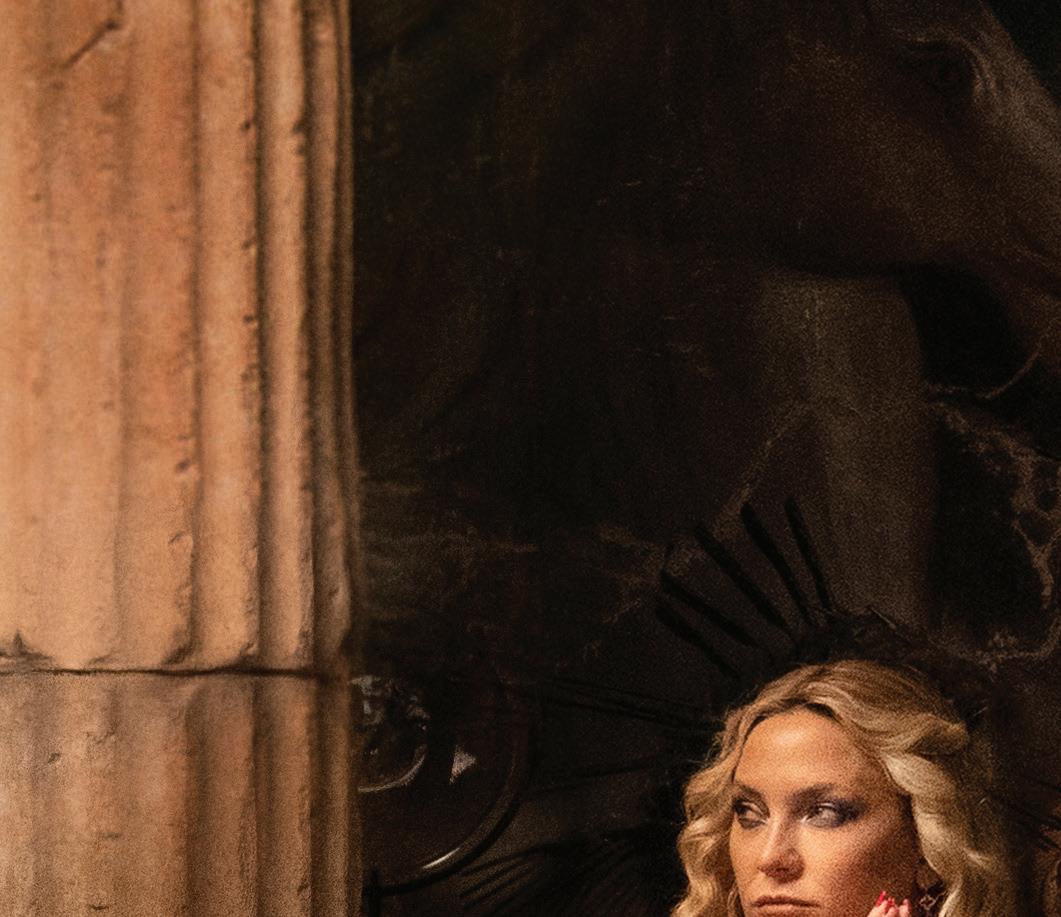
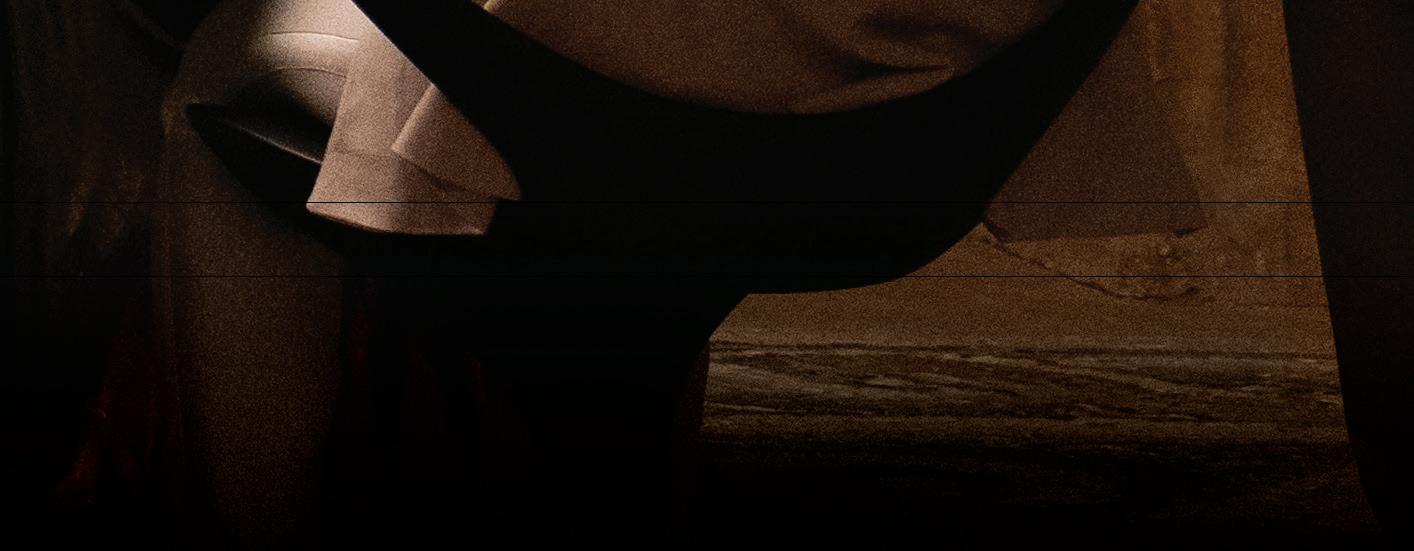

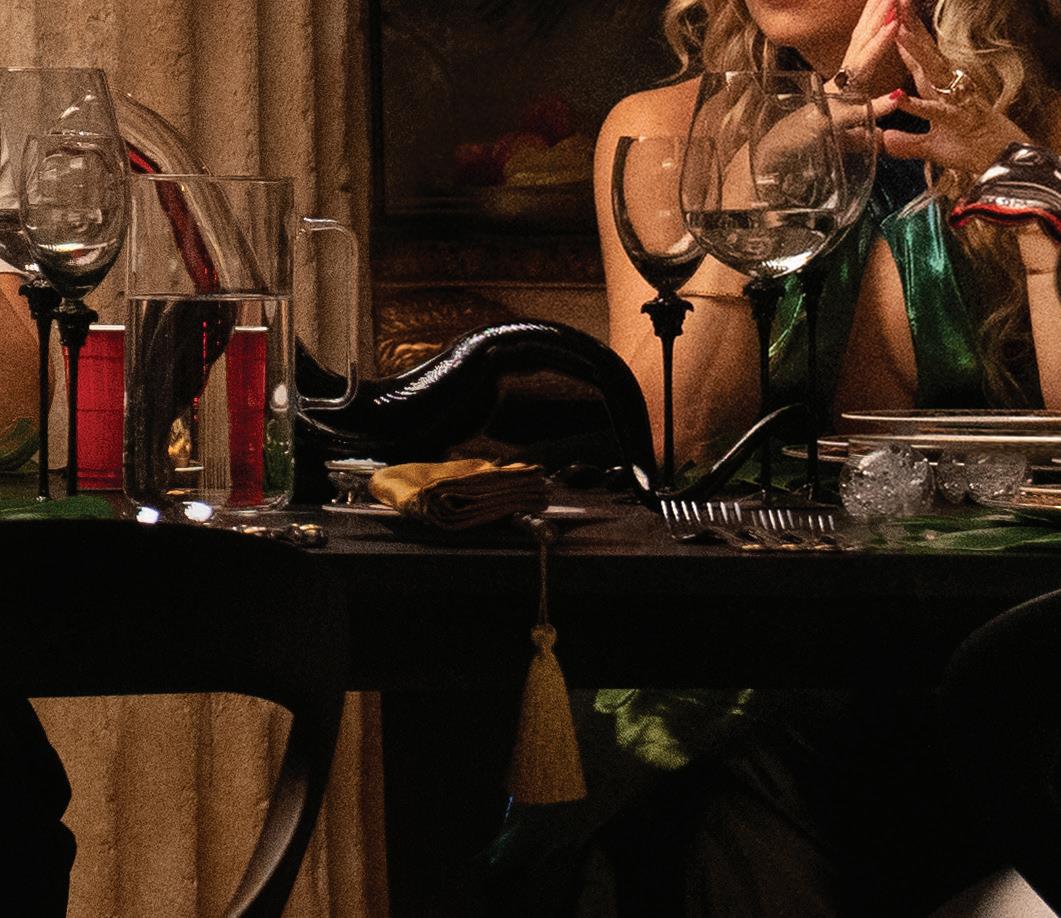


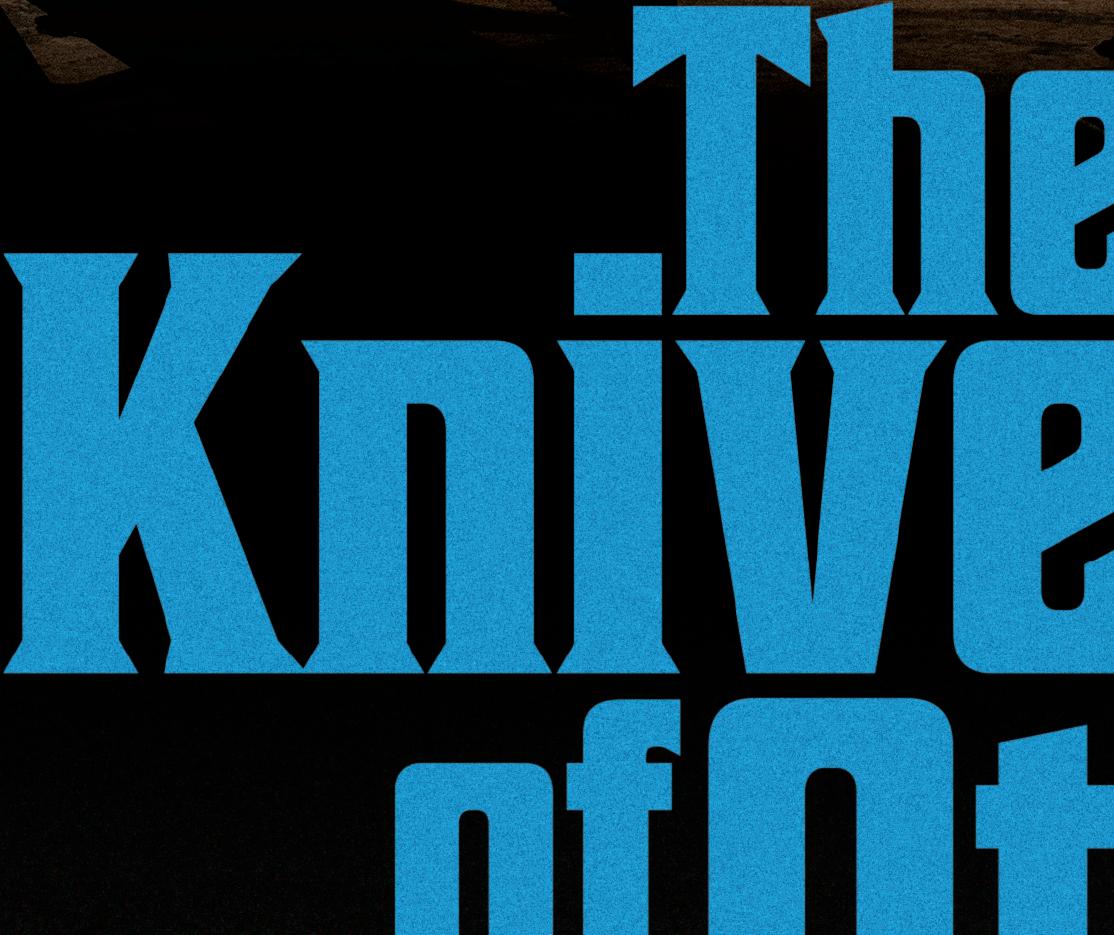
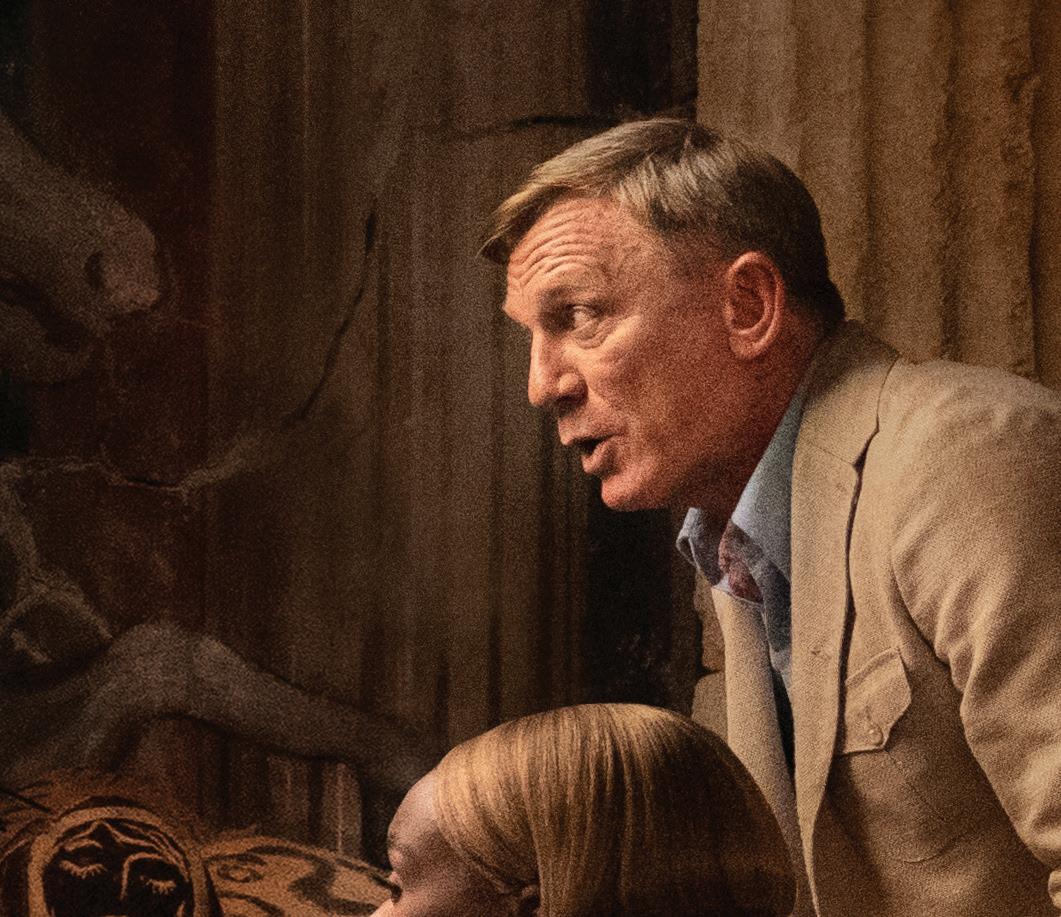
DEADLINE.COM/AWARDSLINE 17
Portraits by Violeta So a
with The Beatles. At the end of 1968 the Fab Four released The White Album, which would become tabloid-notorious within a year because some hippie cult leader named Charles Manson sent his followers on a killing spree under the guise of the hidden meanings he’d uncovered in their songs. What no one really remembers nowadays though, is that there was already a track on that album aimed squarely at the kind of weirdos who looked for hidden meanings in Beatles songs.
Credited to Lennon-McCartney, the song “Glass Onion” was primarily written by Lennon, as a tease to those looking for profundity in the band’s surreal lyrics. And as a title and an end-credits theme it ts the rst sequel to Rian Johnson’s Knives Out perfectly. A er the old-dark-house setting of the 2019 lm, where Daniel Craig’s detective Benoit Blanc snooped in the shadows trying to smoke out the killer of elderly Boston crime novelist Harlan Thrombey, this time events take place in broad daylight, in the sunny Greek holiday home of tech billionaire Miles Bron (Edward Norton), who has summoned some people he thinks are his closest friends for a murder-mystery weekend.
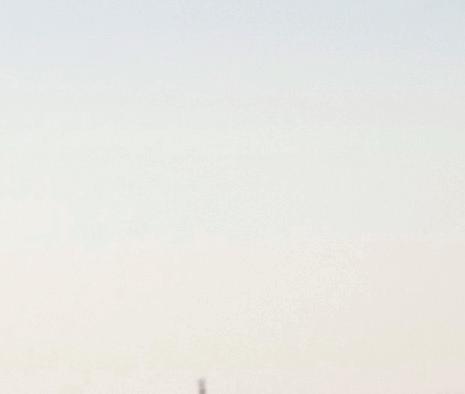
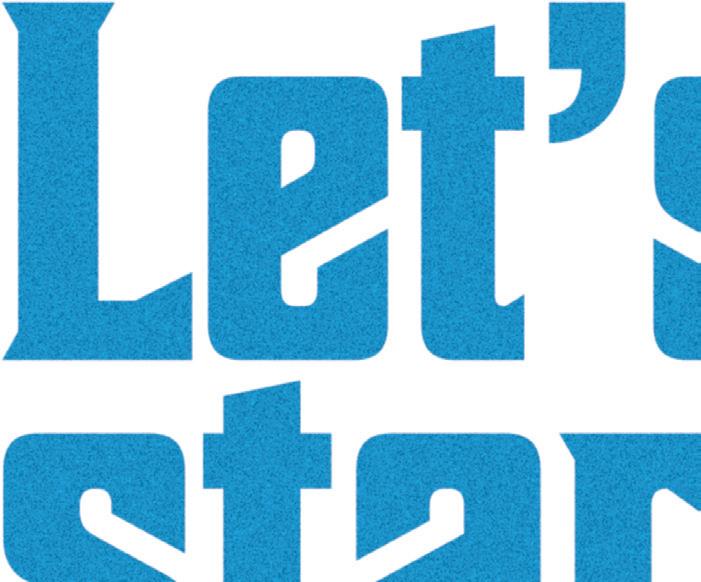
As a casual collector of priceless art and other popcultural items, Bron’s vulgarity is breathtaking, and in that sense, the song’s line about seeing “how the other half live” seems especially cutting. But Johnson hadn’t actually thought of it as a title until he’d already started on the script. “I didn’t have anything in mind, which was terrifying, because the rst movie I’d had cooking for about 10 years,” he says.
Which is where The Beatles come in. “I’d gotten to a point where I had the idea of a central metaphor that Blanc could latch onto and beat like a dead horse,” he says. “Something that was made of glass. Something that was layered, but the center was in plain sight, and so on. And I thought, OK, well the billionaire is going to have an island, and maybe he has some structure on it that’s made of glass, so… is it a glass castle? Is it a glass palace? I literally opened the music app on my phone and just searched the word ‘glass’, and “Glass Onion” popped up.”
Once it did, he realized it was quite perfect. “But I was always surprised, when I was showing the script around, how many people didn’t know it was a Beatles song. I thought everybody knew “Glass Onion”, but I guess they don’t.”
The original Knives Out premiered in Toronto in 2019, following just two years after Johnson’s Star Wars movie, The Last Jedi . At the time, it was seen as one of those smaller, more personal movies that a director might do as a big exhalation of breath after making a studio monster, but, in retrospect, that wasn’t quite the case. It rocked the house at its premiere at the Princess of Wales Theater, and very seriously recalibrated the public perception of Daniel Craig.




But even before it screened, thoughts of a sequel were bubbling away. “The rst one was clearly so much fun to do,” says producer Ram Bergman. “It was a no-brainer: we should go and make another one. I always believed, even from the script stage, that, if this worked out, this was a character you could actually build a franchise—for lack of a better word—around. But it was only around the time the movie was coming out that we realized it could work.”
Craig certainly wasn’t expecting it either. In fact, the way he describes it, his appearance in the original Knives Out almost didn’t happen. “My agent was so cloak-and-dagger about it, which I suppose is apt,” he recalls. Craig had been tracking Johnson since 2008’s The Brothers Bloom, and just the director’s name alone piqued his interest. “I can say this now, but normally a script has to have my name watermarked all over it, so that if I decide to sell it, then they know it’s me. This was my agent’s one, with his name emblazoned over it. He said, ‘Read this. Don’t tell them I’ve shown it to you.’ So, I read it. And of course, I was just like, ‘Oh my God, I’ve got to do this.’”
DEADLINE.COM/ AWARDSLINE OHN ILSON/NETFLIX










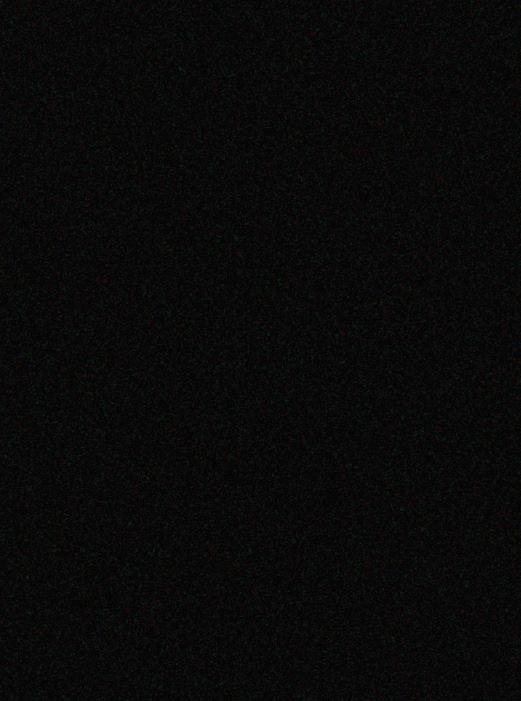
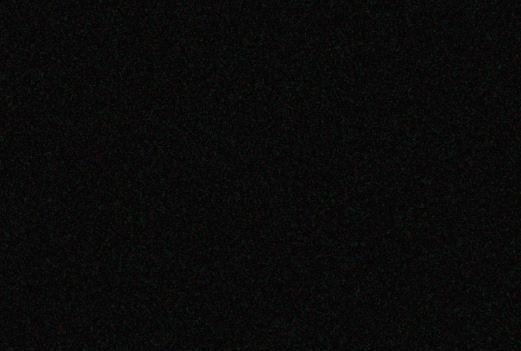




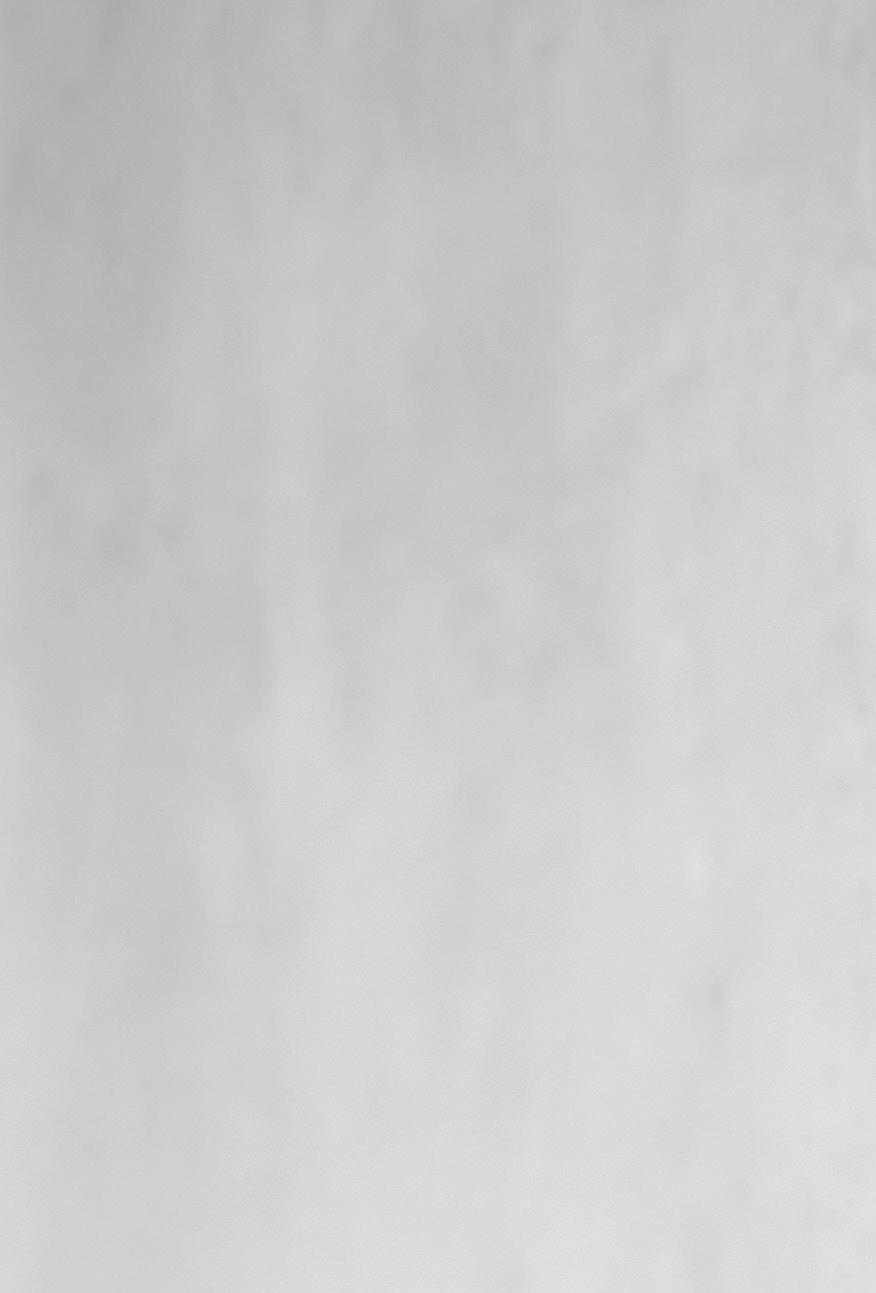
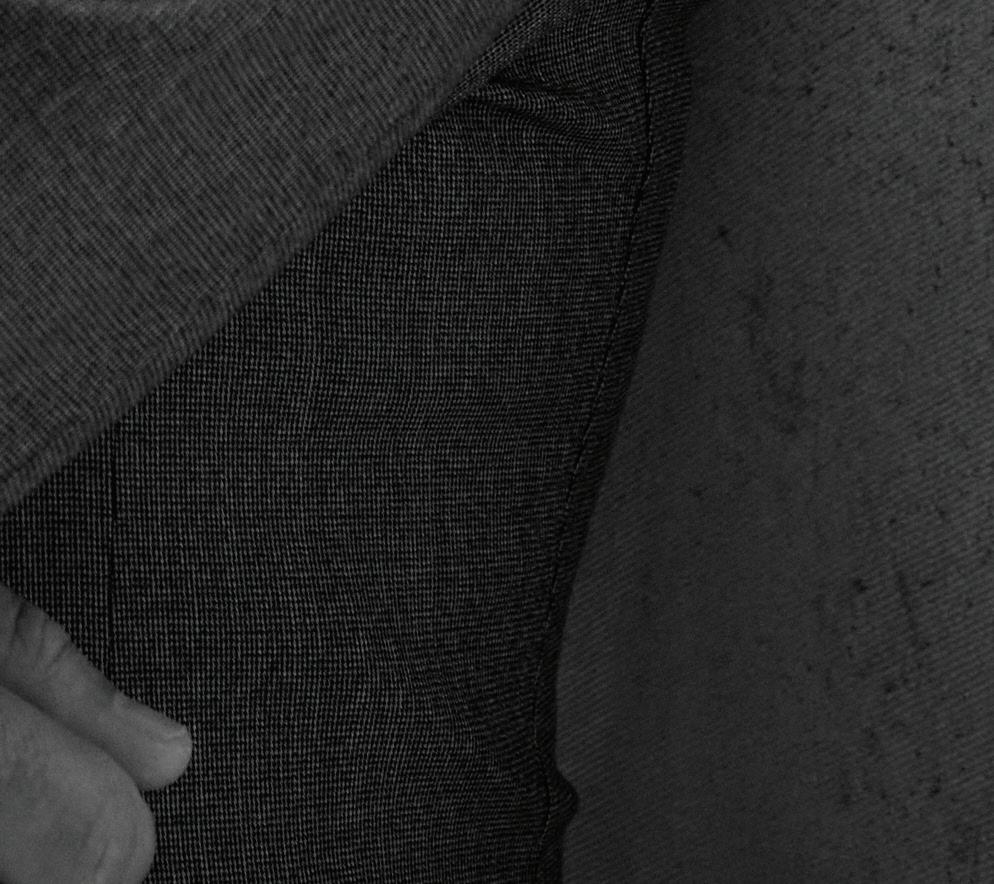
DEADLINE.COM/AWARDSLINE
The appeal, he says, was less about the character and much more about the script. “The character wasn’t quite there for me. There was stage direction: ‘lilting Southern accent’. But that’s all I got, so, it wasn’t in my head; I didn’t have a clear picture. But when you read a script that good, it’s so rare.”
Nevertheless, there was no serious thought of a franchise at that point, even with Craig coming to the end of his tenure as Bond. “When we were lming,” he says, “we fantasized about it, like you do: ‘It would be quite nice to do another one of these.’ But who knows? You don’t want to make predictions that the movie’s going to be successful. We’ve been there, done that, and failed, on a number of occasions.” (The specter of 2011’s Cowboys & Aliens comes to mind.) “But the fact that people liked Knives Out so much, and the fact that it was such a success, made us think, Let’s see what happens.”
The timeline of how long the script for Glass Onion took to come together exists mostly in the elastic mind-fog of the Covid era, but it was certainly pretty quickly by anyone’s standards. “I think it was less than six months,” Craig says. “Rian was in lockdown, so he didn’t really have an awful lot else to do. He was sort of a prisoner. But I was nervous to read it. Where do we go next? You don’t want to say that you have to top the last movie… but you kind of do have to top the last movie. That’s what it is, isn’t it? And he did.”
The rst Knives Out owed a subtle debt to one of Johnson’s favorite lms, The Last of Sheila, a 1973 cult curio written by Stephen Sondheim and Anthony Perkins. Glass Onion, however, pretty much borrows the whole premise. “It’s a great murder-mystery,” he says, “but the main thing that I took from it was the idea of a rich jerk inviting all of his friends out to an exotic locale for a murder-mystery game. Within that, there’s also the hierarchy of a group of friends, with somebody at the top of the pyramid, and everyone having a reason to bump them o , and the way that money plays into that.”
With Glass Onion hitting cinemas, and later TV screens, in the wake of Elon Musk’s Twitter takeover, it might seem like serendipity, but Johnson really wasn’t anticipating that. “The fact that Bron’s a tech billionaire—which made a lot of sense for the story—became an obstacle in
the writing. Because—I don’t think I even have to say the names—there are some obvious, real-world analogs. And the instant I started thinking about any of them too speci cally, it got so boring so quickly. And so, disconnecting him from that, and trying to build him as his own kind of clownish character, became a challenge.”
Which is where Edward Norton comes in. “Edward and I have wanted to work together for years,” says Johnson, who was approached by the actor a er his eye-catching debut, the 2005 Sundance hit Brick, a highly stylized indie lm noir set in high school. “He’s a tremendous actor, and he also has a foot in that world of tech investors and all of that. He’s moved in those circles, and he was able to really have fun with it.”
They rst met in a New York co ee shop, Norton recalls. “We talked about doing something someday, but it took a little while longer than we hoped.” That chance nally arrived in the spring of last year when Norton received the script for Glass Onion. “I laughed so hard,” he says.
Like Johnson, Norton instantly brushes away any attempt to identify the Miles Brons of the real world. “My take on this was really to know that Miles is a character cut from a very speci c species,” he says. “They’re all around us these days, and they’re really getting lionized. So, for me, the job was with Rian to pick and choose the perfect characteristics to send up a particular type of person, and to do it by embedding within him a lot of the best and worst of what we see in these people, but still nd a way for it to feel organic. With satire, if you overplay it…”
He pauses. “It’s like the line in Raging Bull,” he says, referencing Jake LaMotta’s thoughts on cooking steak. “‘You overcook it, it’s no good. It defeats its own purpose.’ You’ve got to nd the moment where it’s both funny and credible at the same time.”
The social satire this time round is certainly very di erent from the rst Knives Out, which played out in a comparatively simple setting of the modern MAGA-era American landscape. Says Craig, “The di erence with Benoit in this one, is that when he goes to Boston, the sort of people that he has to deal with are urbanites. They’re quite di erent from the people he has to deal with in Glass Onion. I’m not saying that the people in Glass Onion are necessarily stupid, but… Well, some of them are.”
This time around we get an insight into Blanc’s process, as he reveals a little more of his personality and, especially, his methods. “It was really just a product of the requirements of this story,” explains Johnson. “In the rst movie, we come in through the eyes of Ana de Armas’s character, Marta, who’s Thrombey’s nurse, and Blanc is very much like the shark in Jaws—he’s kind of circling her, and on the periphery—but we’re seeing things through her perspective. Whereas in this, we’re coming to the island through Blanc’s eyes, so when we meet all the characters for the rst time, they are the enigmas. That naturally leads to the audience being with Blanc.”
Though Blanc is much more rounded this time round, Craig laughs out loud at the concept of any “character development” that may have been worked on between Knives Out and Glass Onion (“I don’t know if I’m that kind of actor”). But he does agree that he is much more secure in Benoit Blanc’s skin these days. “My go-to with him in Glass Onion is that he’s incredibly curious,” he says. “I think he’s kind. He’s genuinely interested in human stories, in people, and what they’ve got to say. It’s how he does his job. He may want his suspects to hang themselves, but he does it by being open. You see it in the movie, he says, ‘I’m going to loosen them up.’”
Though he refuses to be drawn on plot points that could be considered spoilers—and in Glass Onion there really are a lot of them—Craig is surprisingly ne about the recent revelation, made onstage at the London Film Festival, that Blanc is gay and shares his home with a
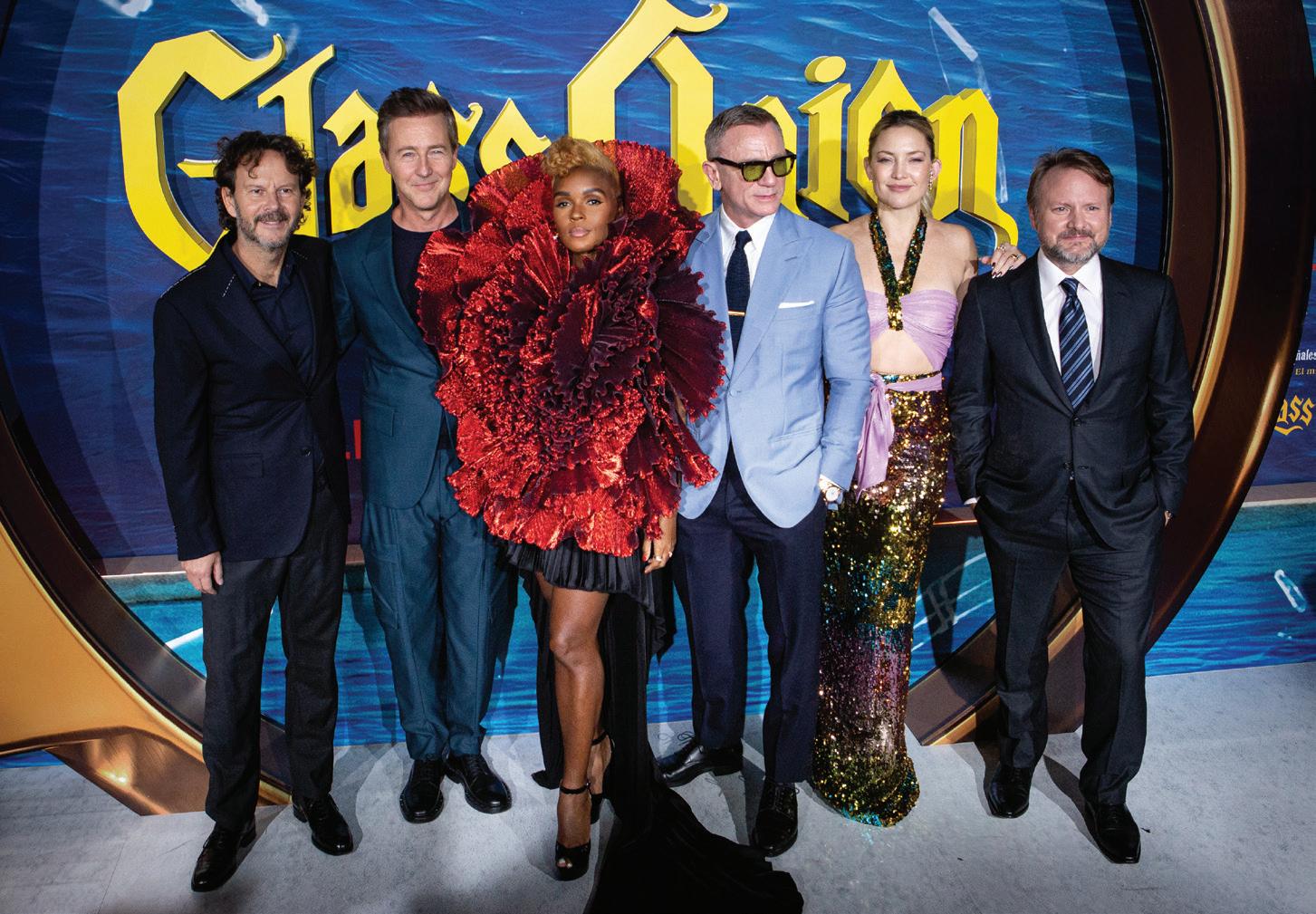
A LO CUADRA/ IREIMA E/NETFLIX/DAVE HO
ES
AN/ ETTY IMA
2 DEADLINE.COM/ AWARDSLINE
From left: Ram Bergman, Edward Norton, Janelle Monáe, Daniel Craig, Kate Hudson and Rian Johnson at a gala in Madrid.
character played by… well, that’s one of the surprises Craig does not want to talk about. “It’s all good,” he says. “The less of a song and dance we make about that, the better, really, for me, because it just made sense. And also, as I said at the LFF, who wouldn’t want to live with the human being that he happens to live with? It’s nice, it’s fun. And why shouldn’t it be? I don’t want people to get politically hung up on anything.”
Before the lm take us to Miles Bron’s Greek island lair we get an insight into his social circle via the invites that he sends out: a lavish wooden box incorporating a series of physical puzzles. “First of all,” says Johnson, “it felt like a great way to get through the tough part of any murder mystery, which is introducing all of the suspects. But it was also a very nice, shorthand way of seeing them all at home during the pandemic.”
There’s a further hint as to how things will go when the guests arrive on a Greek jetty to catch a boat laid on by Bron: a famous actor gives them all “the rich person vaccine” in a eeting cameo that is just one of many.
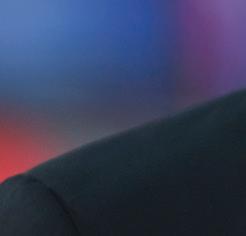



“I think we can say that people know Ethan Hawke is in the movie,” shrugs Johnson, who accepts that a fair few of the lm’s secrets are already out. “He was in Budapest doing Moon Knight with Oscar Isaac, and he very kindly came down with his family for a weekend to do that one little scene. It was at the beginning of our shoot, so he was like a saint, blessing us. He gave us his blessing and then kind of vanished o into the sunset.”
The set, as it turned out, did indeed need blessing. “It was right during the Delta spike,” says Johnson, “so the numbers were really, really bad.” The burden of safeguarding against this fell to producer Bergman, who, a er scouring the four quarters of the globe—“There wasn’t a place or an area we didn’t think about”—settled on Villa 20 at the luxurious Amanzoe resort in Porto Heli for the exteriors (“Not a bad place to hang every day”). Still, there was some work to do:
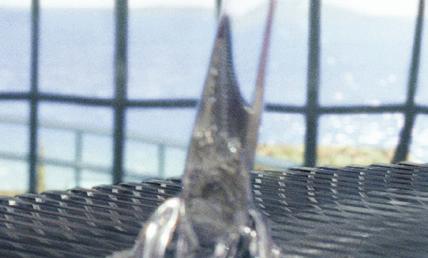
as you might suspect, the house’s giant glass-onion feature is a visual e ect, but then so is the island (“It’s actually, like, 20 minutes from the beach”). The scenes inside Bron’s resort were shot even further away, some 500 miles north, in the capital of Serbia. “We’d looked in London,” says Bergman, “but we couldn’t nd enough stage space. So, a er Greece, we went to Belgrade where we built all the interiors. Everything that you see inside the house, we built.”

The behind-the-scenes photography from the shoot shows a world at odds with the idyllic world of Miles Bron’s champagne get-togethers. “I would say that probably, of all the shoots I ever had, this was the most stressed,” says Bergman, “because of the fear that one of the actors, or Rian, would get Covid, and then we’d have to shut down for two weeks. On top of that, there’s the ripple e ect, especially with a cast who are working together every day. What impact will it have on their next project?”
“Ram was just tearing his hair out,” laughs Craig. But he did a brilliant job, as did all the team that were there to keep us all safe. I suppose we were fairly isolated anyway—being in Greece, it was easier to be able to go out and be a bit more kind of social.”
Indeed, Craig felt comfortable enough to throw a welcoming soiree. He laughs, “I said to Ram, ‘I’m going to have a party whether you like it or not. We need to do this. I need to get this group of people together, so that we can get to know each other.’ So, The rst week I was there, I rented a place, and I got a stack of booze and some food. And Ram parked an ambulance at the end of my drive, so everybody could be tested.”

The situation became a bit more serious when the shoot reached Serbia. “We were much more in lockdown there, because we were in a studio,” says Craig, “and I didn’t get to know the crew the way one normally does. I didn’t know what anybody looked like because they were wearing masks.” The actor still has mixed feelings about the fact that the cast were also put up in a di erent hotel to the crew. “But it meant that we could socialize together and hang out. Which I think was a really good thing for the lm. We got to gel socially, and that helped the movie for the energy on set.”
“We were very, very lucky,” says Johnson. “Everybody stayed safe. We had some positive cases, we had a few people get sick, but we never had any major shutdowns. And given the size of our production, I was thankful for that.”
And, as a director, he doesn’t take that for granted. “I’ve talked about this recently with some lmmaker friends,” he says. “When you’re making a movie, there’s a strange little bubble of unreality that forms around the production. It’s always very weird when, for instance, there’s a death in the family, either for you or someone in the cast or crew, because your reality, your fairy tale world, has been punctured, and you remember that the real world
DEADLINE.COM/ AWARDSLINE 2
From top: Edward Norton as host Miles Bron; Daniel Craig as Detective Benoit Blanc; director Rian Johnson.















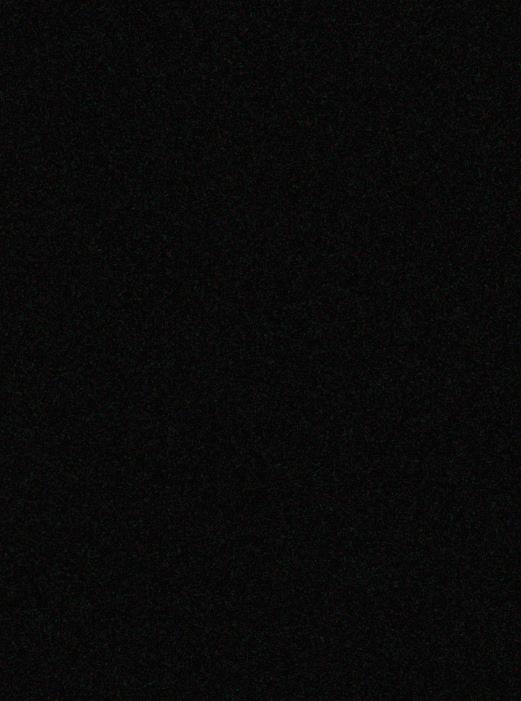
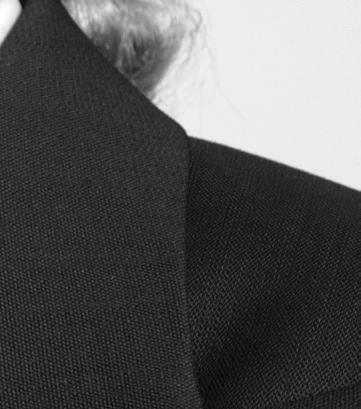
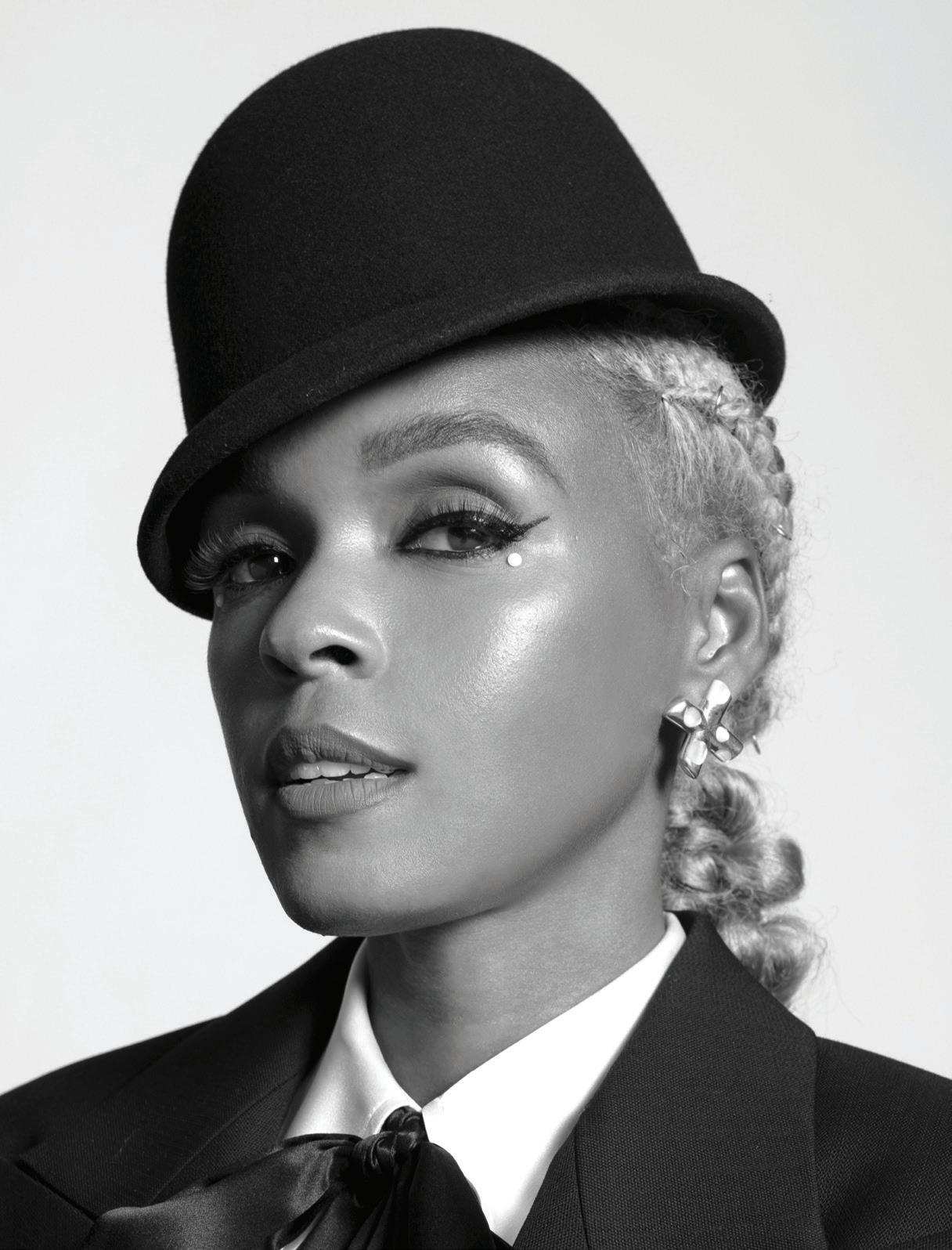




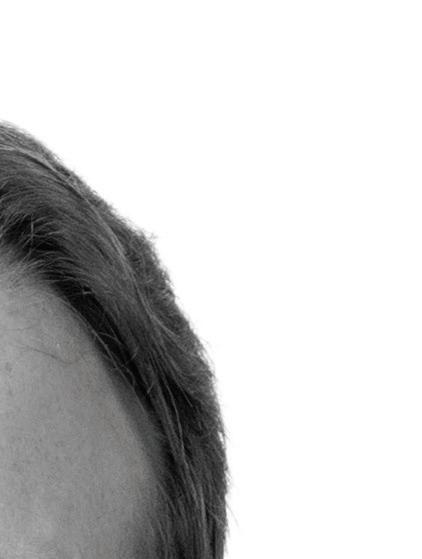
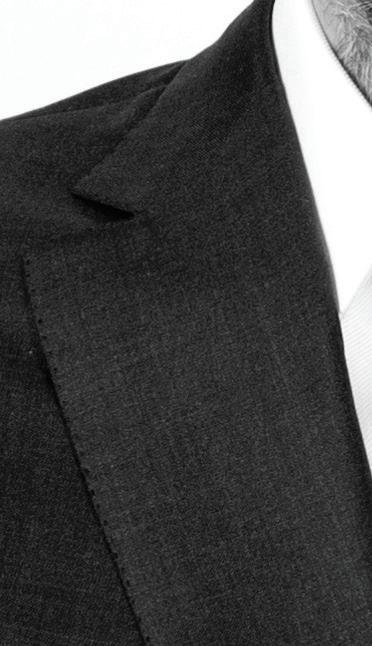
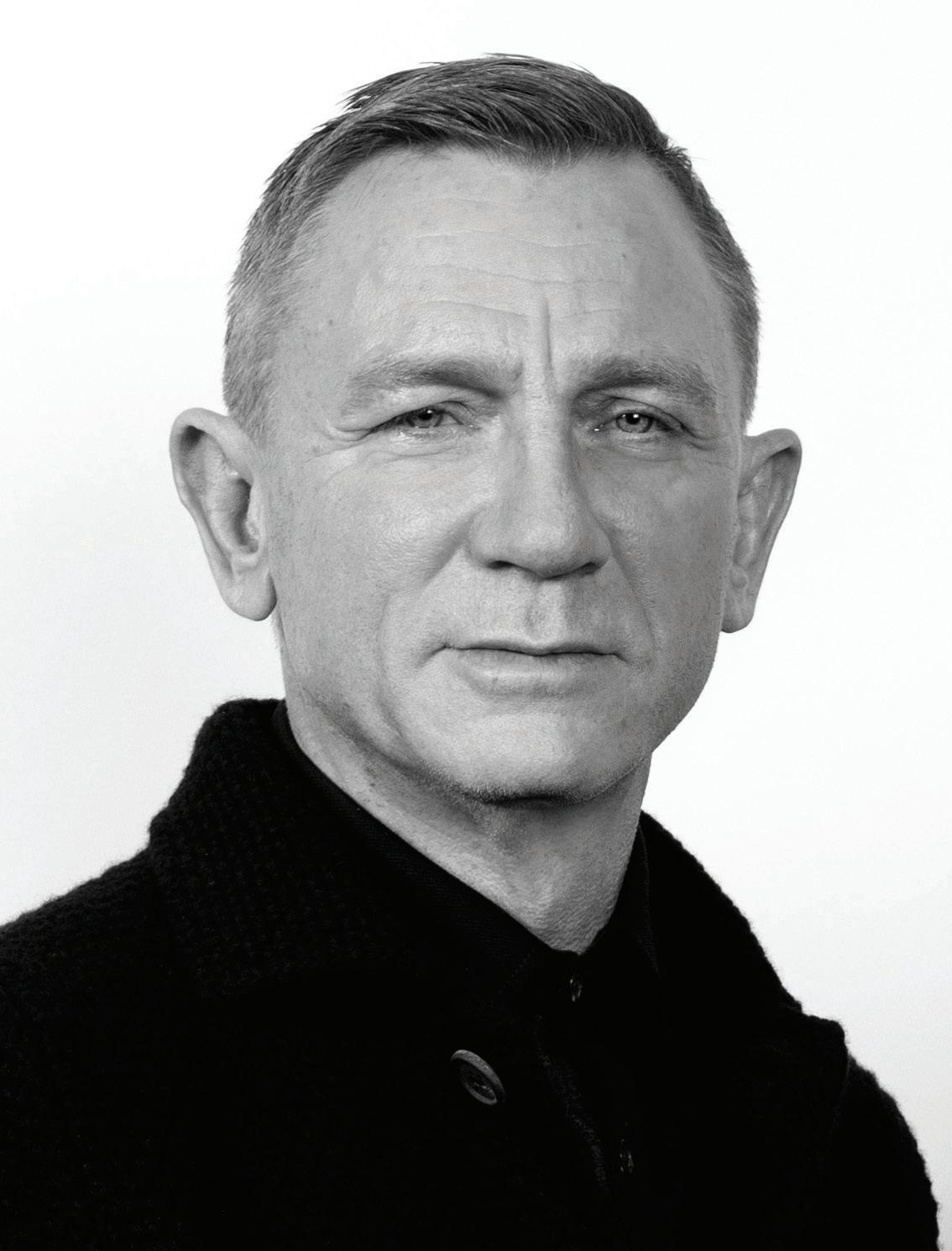
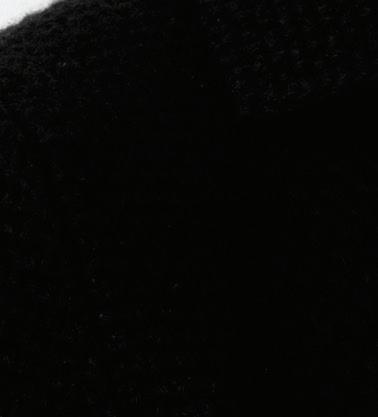

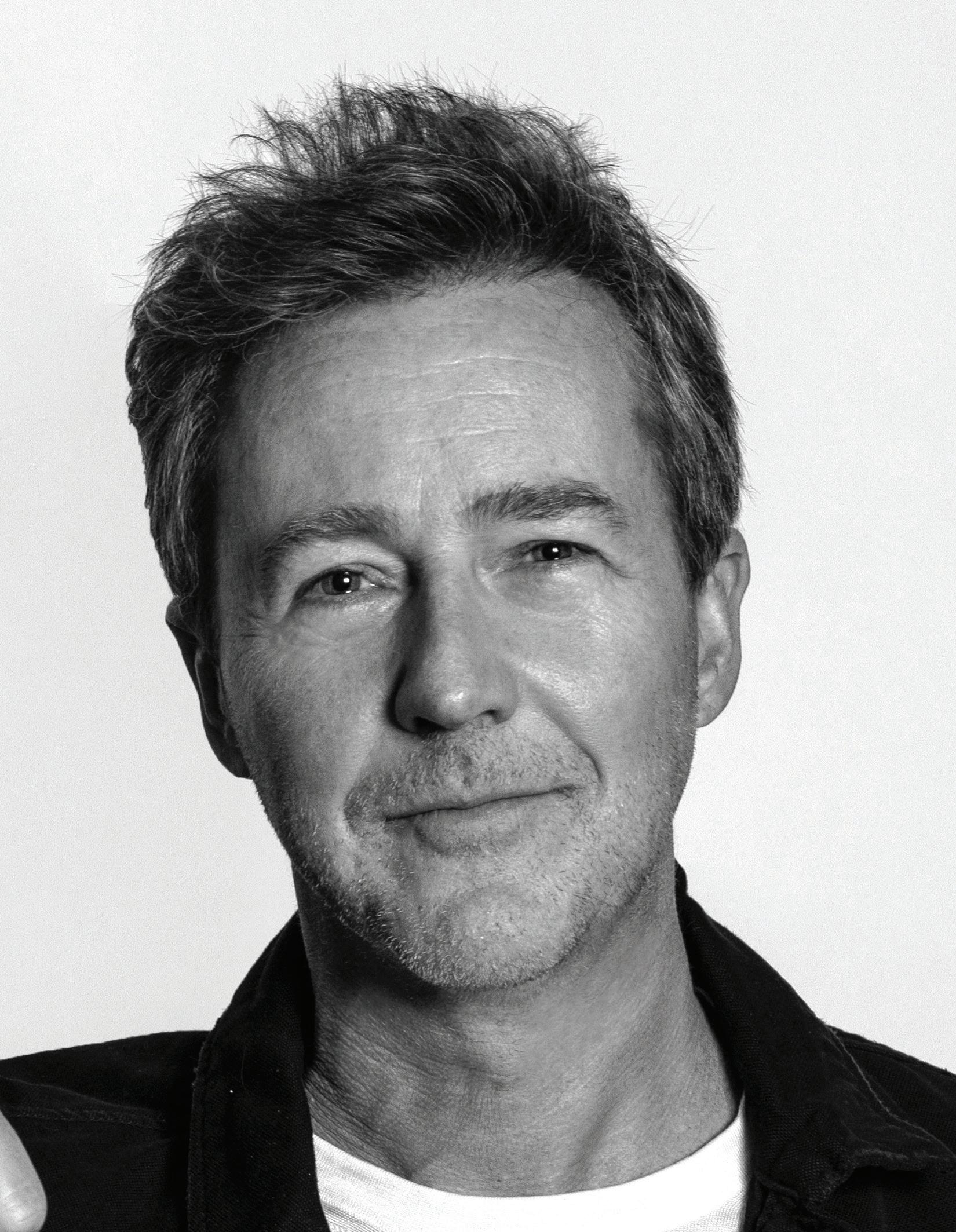
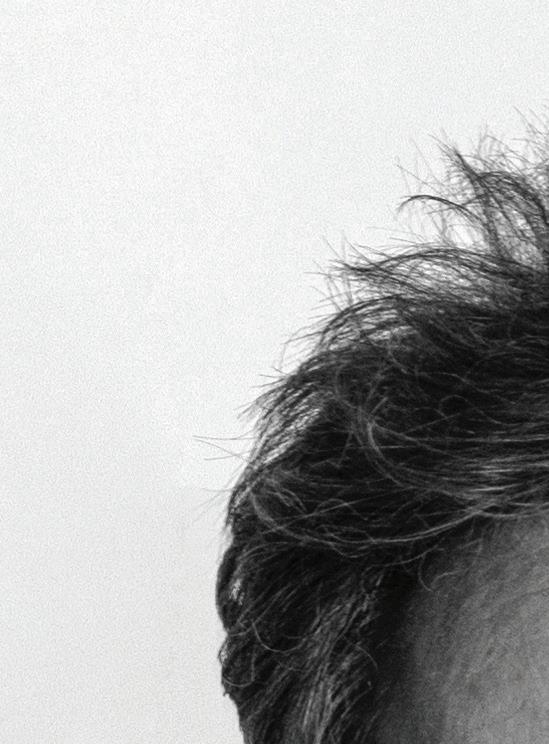
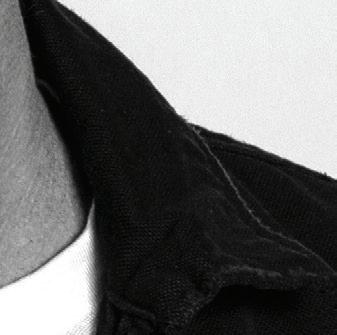
22 DEADLINE.COM/AWARDSLINE NETFLIX
is happening outside. And for anyone who made a lm during Covid, the constant presence of that felt very heavy, in terms of how essentially inconsequential the thing that you’re doing basically is—you’re making a dumb little movie, but you’re asking people to show up during a pandemic and put themselves at risk.”
Someone who de nitely put themselves at risk is Janelle Monáe, but for very di erent reasons. Until now better known as an R&B/soul singer, Monáe plays the ice queen of the piece, Cassandra “Andi” Brand, Miles Bron’s former business partner whose unexpected presence sets the other guests’ tongues wagging, mostly because they know about the shabby way he has treated her. But as the story unfolds, so does Monáe: rather like the glass onion of the title, she reveals layer a er layer.
“I’m so happy that we got Janelle,” Johnson says. “Really, what her performance is about is the scope of the performance. It’s not one speci c scene. It’s not anything you can capture in an audition read, so, to a certain extent, we were going with our gut and rolling the dice. But the scope of what she accomplishes—and the fact that
she’s able to do all that and emotionally ground it—is pretty amazing to me.”
Fortunately for Johnson, like many of the cast of Glass Onion, Monáe already had him in her sights. “I met Rian through his work,” she says. “He didn’t know me, but I knew him. I saw a lm of his called Looper that just blew my mind—being a time-traveler myself, the idea of you having to go and kill your future self is just wild. I was like, ‘Rian is doing something superinnovative in the sci- genre and if I ever get an opportunity to work with him, I don’t care what it is, I’m saying yes.’” The chance came when the script for Glass Onion arrived. “I was a big fan of Knives Out,” she recalls, “and a er I got nished reading the script, it was, ‘Hell, yes.’” All she will say about her character is that “Andi’s a leader. A gatherer. Very wealthy.” And once the party gets started? “Let’s just say shit gets weird.”

As her fans know, Monáe herself is not short of fashion con dence, as witnessed by the insanely elaborate Fi h Element costume she recently wore to a Halloween party. But she’s full of praise for costume designer Jenny Eagan. “I have to give her the biggest round of applause,” she says. “I had one conversation with her about what I thought, then she told me what she thought. We went back and forth, and when I came to the rst tting, she had knocked it out
the park. It really took just that one tting.
“With every character, the clothing has to speak before the character speaks,” she explains, “and through Andi’s clothing you get a deeper understanding of who she is. She’s very stylish, there’s a lot of attention to detail. She’s a Type-A
personality, so she’s totally on point in the fashion world.” But, surprisingly, for a seasoned performer, Monáe wanted to preserve some distance. “It was a beautiful thing to be able to watch the lm and not see myself. I saw the essence of Andi. It wasn’t Janelle Monáe playing this person. I was like, ‘Wow, I really see this person’s spirit. I see what they want. I see what they’re trying to get. I empathize with them, and I’m going on this wild ride.’”
How did she keep it together? “That’s my job,” she says atly. “I had to lock in, focus. I had to cut out all the noise. I had to fully submit. Being in Greece wasn’t a bad thing, but, just as I would on the singing side, I never stopped training, bouncing
“I would say that probably, of all the shoots I ever had, this was the most stressed.”
back and forth ideas. I’d say, ‘What about this? What about that?’ Luckily, I also had an amazing, collaborative director who just allowed me to play.”
There is a literal dimension to this quote, as cast members were actively encouraged to take part in various parlor games. “Rian made everybody comfortable,” she says. “He saw us as humans, he cared about us as people, not necessarily for what we could do for the lm, and he would invite us to these murder-mystery games on the weekends where we would drink, listen to music, tell stories, and really just bond. All of that o screen quality time helped with us to be able to trust each other on screen.”
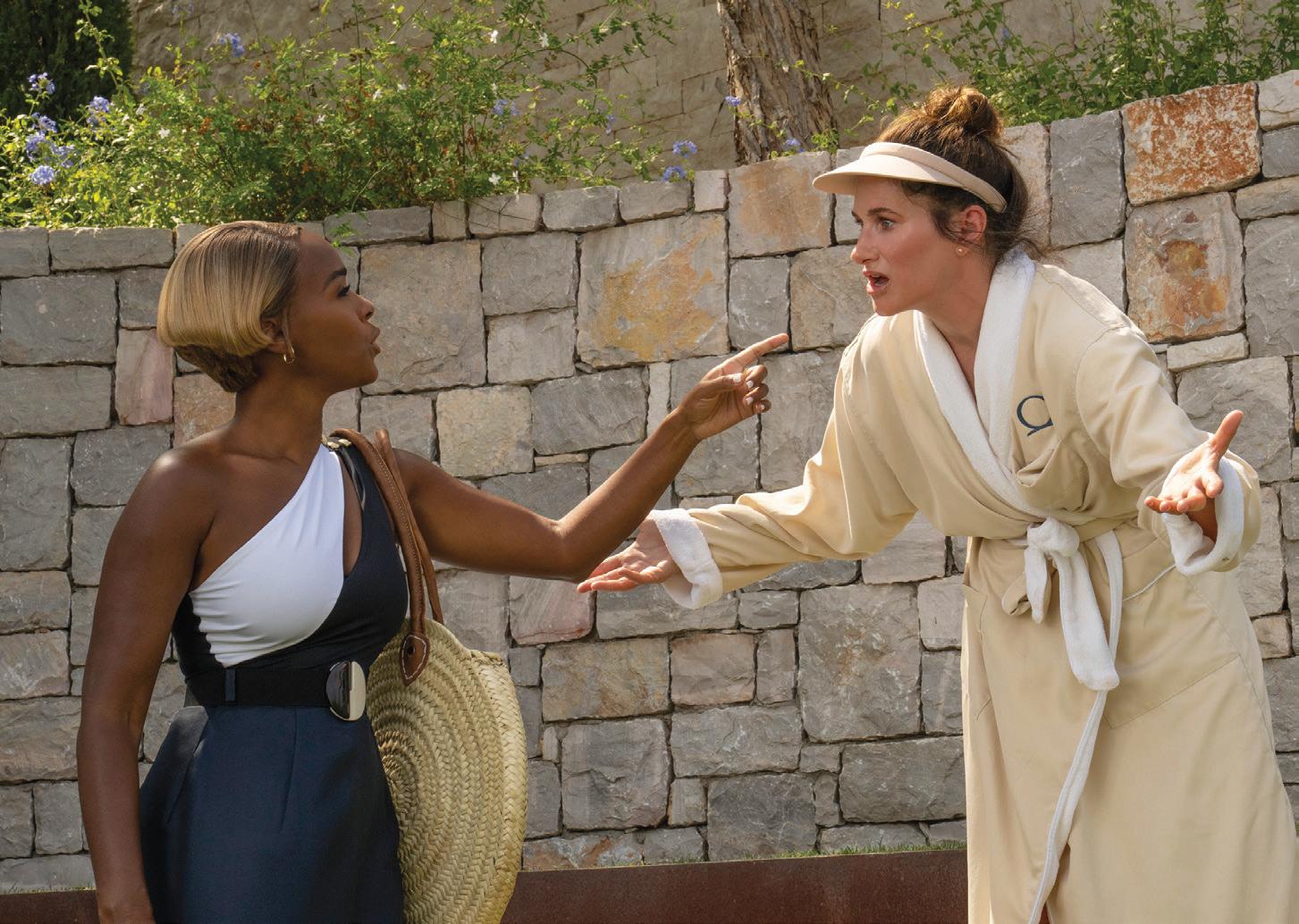
What kind of games? Games, she says, like Werewolf and Assassin, where random cards assign killers and their victims. There’s a pause. “You’ve never played them?” she asks. “I do this at my house all the time with my family, for Christmas or Thanksgiving. We play games, we dress up, and we have a really good time.”
She remembers watching Murder She Wrote with her grandmother, and was as surprised as anyone else to see Jessica Fletcher pop up in the movie. This shout-out to Angela Lansbury—glimpsed playing an online Zoom game during lockdown with Blanc and The Last of Sheila co-writer Stephen Sondheim—is an apt one: when Murder She Wrote debuted in 1984, TV crime shows were a male-dominated a air. And though Glass Onion starts out as another case for the genius detective Benoit Blanc to crack, it’s actually Monáe’s character who sets him on the path to put right an egregious wrong. In that way, for an escapist comedy-thriller, there are some quite serious realworld points raised in Glass Onion, about morality, responsibility, and how badly people are inclined to treat others they don’t believe are their equals (also a big theme of Knives Out).
“Yeah,” says Monáe, who clearly isn’t inclined to read too much into that. “But I think Rian said it best: it’s about bad people on a beautiful island, and a brilliant detective.”
With Glass Onion, Rian Johnson is now just six lms deep into his lmography, but it seems like much more. That might be because there doesn’t seem to be any hesitancy, any oundering: they are what they are. His debut, Brick, was a stylized attempt to transplant Raymond Chandler’s hardboiled noir novels to high school, while the 2008 follow-up, The Brothers Bloom, might best be described as a fever dream of a romcom made under the in uence of Hunky Dory-era David Bowie. It wasn’t until Looper, though, that it felt as though a pattern was emerging. Here was a director testing the boundaries of well-worn genres but at the same time nding new ways to make them human, relatable, and not just slick, knowing carbon-copies. At which point—perhaps quite obviously, in retrospect—he was scooped up by the Star Wars universe.
We’ll return to that later, but Johnson is quite unusual among his peers in the sense that his resumé bucks the typical “one for them, one for me” trend. For instance, he still refutes any suggestion that his Star Wars experience sent him back into the indie world, gasping to nd an outlet for his real ideas. “I’ve been very lucky to feel a sense of freedom with every movie that we’ve done,” he says. “And this was no di erent.”
What makes Glass Onion no di erent is Johnson’s continued fascination with the rules of storytelling and exploring the plethora of subgenres that exist within every genre. He describes The Brothers Bloom as “a conman movie”, while also accepting that’s “a weirdly limited genre in itself.” Looper, he notes, was similarly amorphous, being more of a nuanced time-travel movie than an out-and-out sci- . “But with a murder-mystery, it’s tighter. There’s a murder, there’s a group of suspects, the detective investigates the crime, and at the end of the movie he sits in the library and solves it. You couldn’t lay out those beats for a conman or a time-travel movie.”
Though critics o en dwell on the quirkier aspects of his lms, which the market has bent to accommodate in the last 17 years, they can’t deny the attention to logic that goes into them. “The thing that’s fun to me about working in any genre—and in this one speci cally—is that it’s such a de ned chess board. First of all, it’s a lot of fun to play with the form, but it also, for me, makes it way less daunting to come into it.”
Edward Norton has something to say about that, notably in the way that Johnson has blown the cobwebs o the murder-mystery genre. “Old-fashioned remakes of Agatha Christie can be fun, but they can get a little bit clinical,” he says. Instead, he points to Knives Out and its focus on Ana de Armas’s character Marta. “Rian always makes sure that, at some point, you know who you’re rooting for. He gives you just enough of an emotional investment to decide that there’s one character you can ethically relate to. There’s one person who, amidst all the nefarious undercurrents, is actually kind of righteous. And once you gure out who that is, you have someone to root for. There’s some heart in it, and that’s not always true with murder mysteries.”
The fact that everyone responsible for Glass Onion feels compelled to stress words like “fun” and “entertaining” to describe one of the most satisfying crowd-pleasers of the year says a lot about the strange times that followed the Covid pandemic of 2020. In those two years, as the studios cautiously yanked their big-budget releases, the Oscars came to resemble the Independent Spirit Awards, giving Best Picture to indie hits Nomadland and CODA, a trend that re ected how di use and personal the consumption of movies had become in the absence of tentpoles. And when it came to getting nervous audiences back into the picture palaces, it didn’t help that the blockbusters that did get released weren’t even that escapist: the bedrock of Marvel, Star Wars and DC movies alike is the fear of a cruel superpower that will happily destroy everything just because it can.
In this sense, Glass Onion is at the forefront of a wave of lms that are trying to reboot lm culture in a way that doesn’t just rely on the industry guilt-tripping audiences back into cinemas to see their expensive movies just because that’s the way the system used to work. As the trailers acknowledge, Johnson’s lm is an invitation, and, like Miles Bron, he’s worked very hard to make it one that’s impossible to refuse.
Norton thinks the key is comedy. “A good hearty laugh is a nice medicine in anxious times,” he says. “Coming out of Covid, the pleasure of comedy within a group experience is something we’ve perhaps forgotten, and it’s nice to remember how that feels. And in this case, a lot of it has to do too with the fact that Rian is very adept at the pleasures of the Swiss-clock murder-mystery. He achieves that perfect sou é of the extra-special laugh you get from the knowing recognition of the times you’re living in, but
2 DEADLINE.COM/ AWARDSLINE OHN ILSON/NETFLIX
From left Janelle Monáe and Kathryn Hahn.












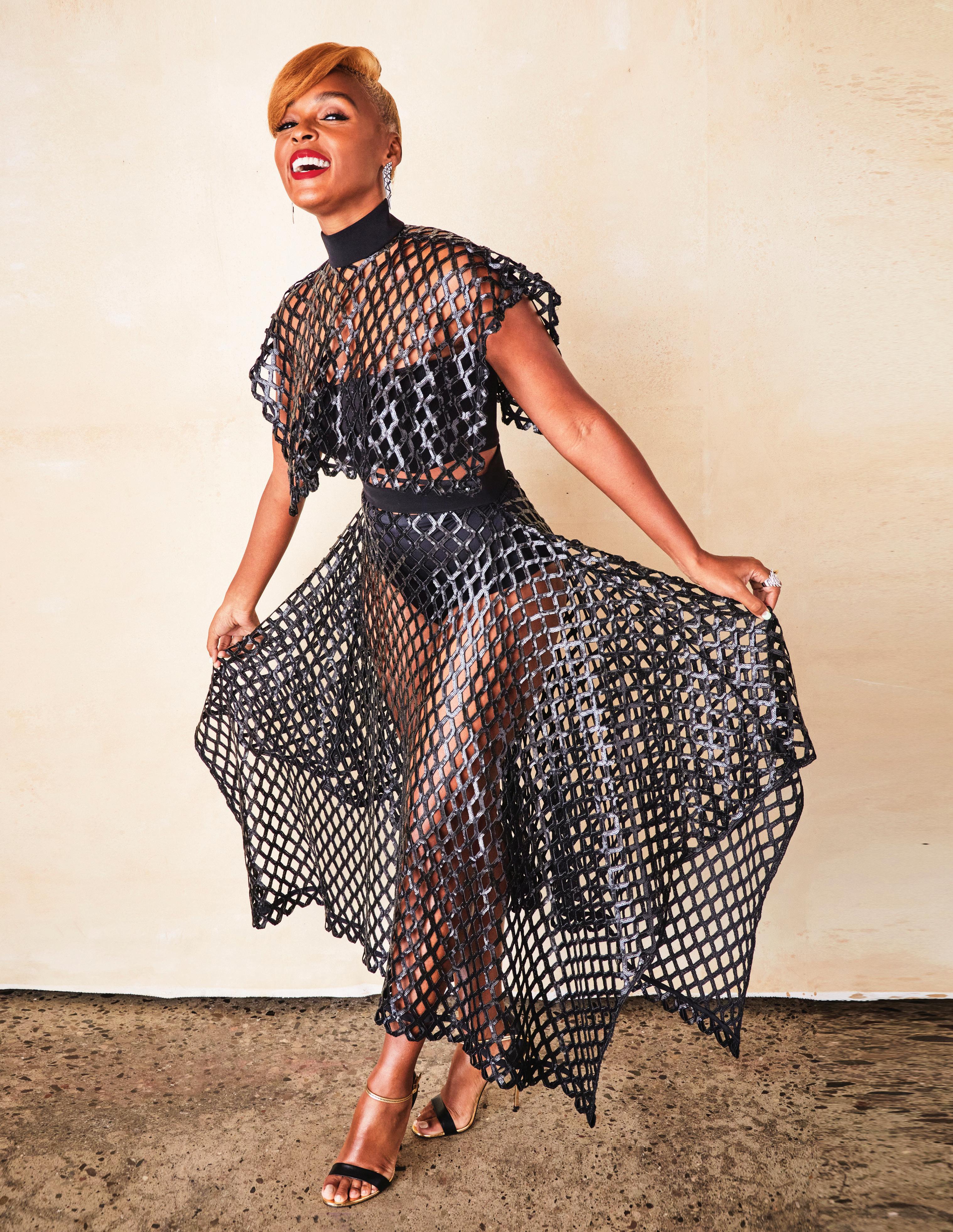

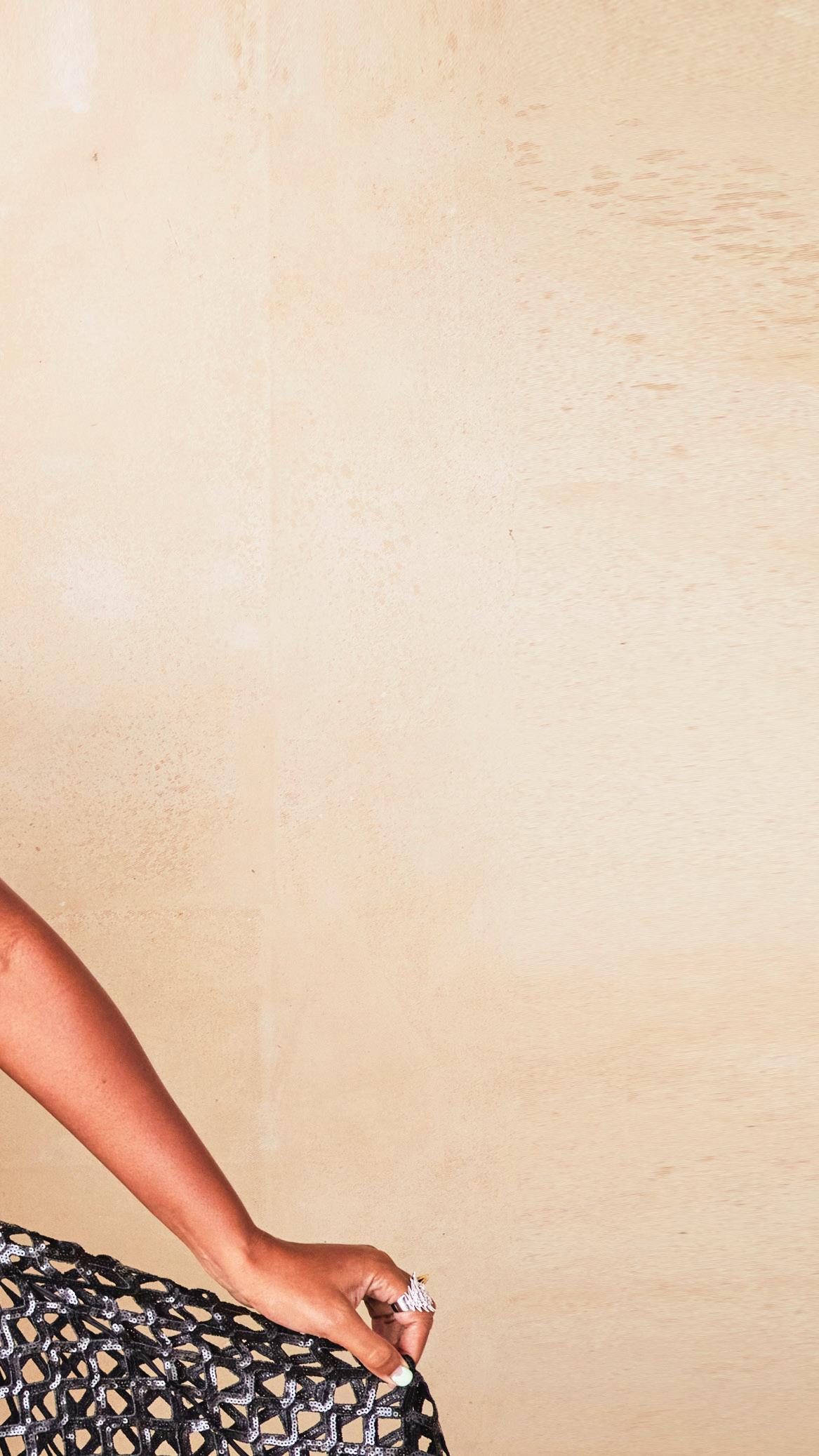
DEADLINE.COM/AWARDSLINE 25
over and over, for 24 hours, and then you’d have to give it back. And because of that, the VHS tape was already wearing thin by the time you got it.”
In that way, he gets, and respects, the whole concept of fan ownership. “Maybe it has something to do with having the toys, too,” he says. “Feeling like they’re yours to play with, that this world is yours. That’s something that’s been baked into Star Wars fandom, and not in a bad way, not in a toxic way. That kind of ownership is also why it means so much to people, and it explained why, when people would visit the set, inevitably they would start crying when they walked onto the Millennium Falcon.”
His cast all have stories about the movies that impacted their lives. For one, Monáe vividly remembers seeing Robert Townsend’s The Meteor Man for a dollar back in Kansas City, then a few years later being blown away by The Matrix. And Daniel Craig laughs as he remembers watching Grease with his sister while 300 screaming kids threw candy at the screen. “I grew up in a golden age,” he smiles.
But then, he’s also just signed o on another one, having nally let go of 007 in a swansong that sat in Covid limbo for 18 months, making the gap between No

Time To Die and Glass Onion seem deceptively short. How does he feel about retiring the Walther PPK? “Listen,” he says, “I look back at it with a lot of emotion—a lot of emotion—and real joy and pleasure. But it’s very hard to sum up. It’s impossible, both because it was a huge part of my life for so long, and because I’ll never really be able to gure out all the experiences that I had on those lms. I mean, I crammed at least three working lifetimes into 17 years. And that’s not just sum-up-able.” He pauses. “Is that a word?” But as to what’s coming next, no one really knows. “The industry is changing so drastically, especially now,” Johnson says. “It really is a bit like an avalanche that we’re all running on top of, waiting to see where it settles.”
without going too heavy on the commentary. It’s entertainment, but it’s also taking the piss out of the right targets, and he balances those two things really beautifully.”
Indeed, although Johnson enjoys playing with the boundaries of genre cinema—“It’s like having a de ned chess board,” he says—there is also the fact that he’s trying to channel his own memories of cinema, like the time his father said, “Get in the car, I’m going to show you something that will blow your mind.” They went to see the original Star Wars, and his epiphany there explains not only why he jumped to make a Star Wars movie when he was o ered the chance, but also why The Last Jedi stands out as the most energetic entry in the closing trilogy of the saga.
“The kinds of lms I’m drawn to making are things that I have a personal connection to,” he says, “either from seeing them as a kid, or having been deeply a ected by them growing up, or having some kind of rooted memory of watching them with my family. In other words, I know, on a very intimate level, what the essential pleasures of those lms are. And part of what I’m trying to do—always—is to tap back into that.”
It’s worth noting here that Johnson, 48, grew up in the age of VHS: for the rst time, a whole generation didn’t have to wait for a lm like Star Wars to return to cinemas or, worse, turn up on TV. “When I was a kid, though, you had to get on the waiting list because the local store would only have ve copies of it,” he laughs. “You’d get the tape, you’d watch it solidly,

Now, the elephant in the room when discussing Glass Onion is the record-breaking deal signed with Net ix. Deadline’s Mike Fleming broke the news of the eye-watering gure— reputedly north of $400 million—in the spring of 2021, calling it “one of the biggest streamer movie deals in history.” Producer Ram Bergman, however, is quick to play it down. “Listen,” he says, “we didn’t really want it to be a big deal. We didn’t want it to be in the news. We’re very low-key. But somehow, perhaps not surprisingly, it blew up. We’re not interested in that. All we’re interested in is having the best infrastructure and the best way to make a movie. And at the time, during Covid, it seemed like Net ix was clearly the best partnership. They o ered the best deal and were willing to commit to more than one movie. So, we got very excited about that.”

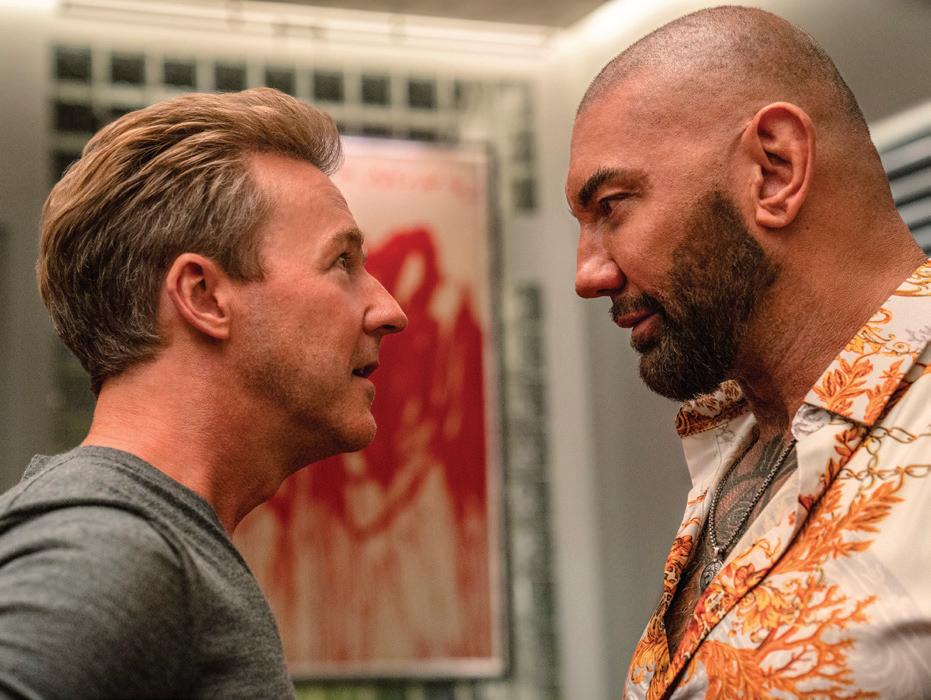
If Glass Onion had tanked at its world premiere in Toronto this fall, Net ix would have had a lot of questions to answer, especially a er the mixed critical reception that awaited the rest of the company’s 2022 arthouse slate: Noah Baumbach’s White Noise, Andrew Dominik’s Blonde and Alejandro González Iñárritu’s Bardo: False Chronicle of a Handful of Truths. But a er a standing ovation—Bergman’s insistence that the lm should screen in the same cinema, on the same day (Saturday) and in the same time slot as Knives Out clearly paid o —industry talk was not about the money spent on it but whether the third installment would maintain the franchise’s high quality.
It was a juicy prospect for the exhibition industry, too. As a result, the lm will have a limited Thanksgiving release in cinemas, as much to satisfy audience demand as qualify for the Oscars. That, says Bergman, was “very, very important. We know that the rst movie worked really big. Watching it in a movie theater with 400 or a thousand people is absolutely an experience, so we got Net ix to agree to really make an event out of it.”
And if it’s successful? “Hopefully it will get people to spread the word and more people can watch it on the platform,” he muses. “But also hopefully it can help mediate between the chains and the streamers, because, until Glass Onion, Net ix movies only played on Cinemark here in the U.S. They never really played in AMC, they never really played in Regal, they never played in the cineplexes. So, this is kind of the rst movie where there is the bridge between them. I can’t take all the credit for it, but we clearly wanted this and pushed for it. But I think
2 DEADLINE.COM/ AWARDSLINE OHN ILSON/NETFLIX
Top, from left: Edward Norton, Madelyn Cline and Daniel Craig. Left, Norton and Dave Bautista.
Net ix wanted it too, and the chains wanted it, too.” The chains will also presumably want a piece of Knives Out 3. “Oh yeah, we’re thinking about it,” says Bergman, “but we need this movie to come out rst, then I need Rian to clear his head, take a break, and then go and start. I mean, he’s been thinking about it.”
Johnson con rms that he has, indeed, been thinking about it. “It’s interesting. We structured the [Net ix deal] so that if I wanted to do something else next, I could. And I think everybody assumed I’d have a couple other random ideas—unrelated projects—that I’ve been kicking around. But, honestly, over the past couple of months, the most exciting creative thing to me right now is that third movie. And so, I think I’m going to hop right into it. Not because of a contractual obligation, but, genuinely, that’s the shiny object I nd my nose pointed toward right now. [It’s] the idea of guring out how it can be completely di erent from this one as well as the rst one.”
Surprisingly, that process has already started. “I’ve got a Moleskine notebook that I carry everywhere and I’m constantly jotting stu down in it,” he says. “The rst 80 percent of the process, for me, is scribbling in notebooks and structuring it all out. I’m trying to get ahead. Even when I’m doing all the publicity for this lm, I’m trying to start building up a structure, an idea, so that a er New Year, when it’s time to actually get to work, I’m hopefully not just staring at that horrible blank page. But you always are, I guess.”
Johnson’s job is made even harder by the fact that there isn’t really a road map towards where he wants to go. “It’s tough,” he says, “because it’s not an expansive genre. It’s not like there are thousands of classics, like lm noir, where it feels like there’s unlimited amount of stu to draw from. There’s been plenty of di erent Agatha Christie adaptations over the years, and those are always fun to dig into. But in terms of actual innovative stu in the genre, you do nd yourself coming back to the same titles. It’s funny, because every time we release a Knives Out movie, I’m asked, ‘What are the ve whodunnits that you would recommend to people?’ And it’s going to be very frustrating by the third movie to be naming the same ve over and over again. That’s why I’m trying to dig deeper into the genre and see if there’s any hidden gems I’m missing.”
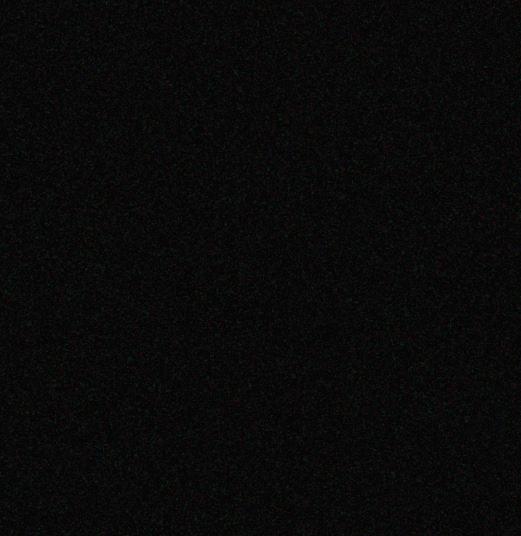
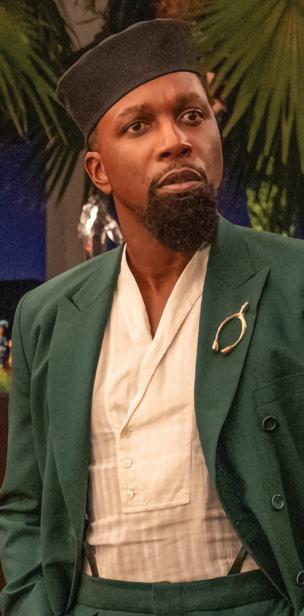
The Unusual Suspects
Craig is fully aware of this, but has every con dence that Johnson will get the inspiration he needs to nail down the third. “Rian seems to me to be very excited about getting on with the next one,” he says. “He’s already got some ideas, and they sound to me to be really interesting, so I’m going to let him just get on with that.”
And what about after that? “Down the line, yes, of course. I mean, if people are interested, then we’ll make them. But if there ever came a point where either Rian and I thought we were just churning them out, I think we would back away. I mean, I just don’t think that’s what either of us want to do in life. Unless people are getting genuine fun out of them, forget it.”
Johnson agrees about the dangers of complacency. “Just in terms of my own personal feeling when I step onto a set, I’ve become much more con dent over the years. But that comes with its own set of dangers—you’ll settle into a routine—and I’m especially conscious of that now that I’m making a series. Daniel and I have talked a lot about that, how the instant we feel like we’re turning the crank on another one of these, we have to stop. So, it’s very important with each one now, and the third one especially, that it feels kind of scary and dangerous. You have to shake the box.” ★
 Cassandra “Andi” Brand
Janelle Monáe
Cassandra “Andi” Brand
Janelle Monáe
“Andi is Miles Bron’s former business partner, a tech entrepreneur.
Janelle I’ve loved as a performer with her music and I’ve always loved her on screen. This movie de nitely asks a lot of her, and she has to play in a lot of di erent modes.”

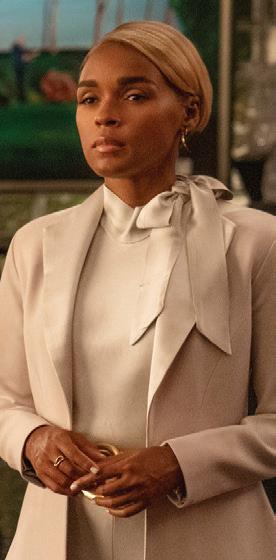
Lionel Toussaint

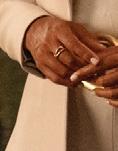
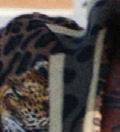
Leslie Odom Jr.
“Lionel is Miles's chief scientist. He’s sort of the grownup of the group, and Leslie brings a grounded strength to the part. Your eyes automatically go to him as kind of an anchoring presence with all these crazies around him, and Leslie tapped into that.”

Duke Cody Dave Bautista




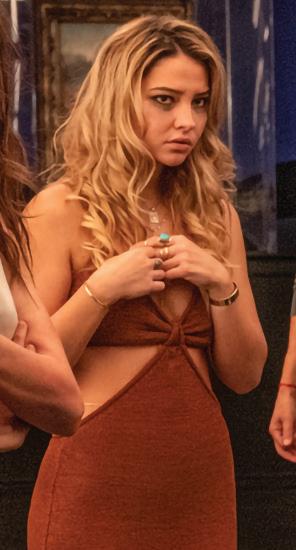
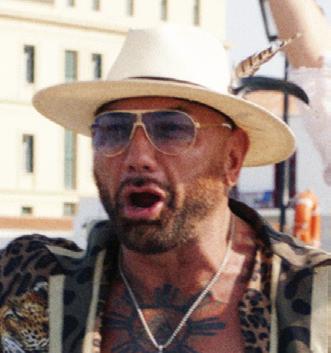

“Duke is a YouTube in uencer who’s kind of doing an alpha male scam. Dave was interesting to me because, physically, he’s the stereotypical version of that character, but he actually has a real sensitivity to him that undercuts that. It was an intriguing combination to me. It would not have been interesting to just cast somebody who was just a big hulking presence in that part—what’s interesting to me is the humanity.”









Whiskey

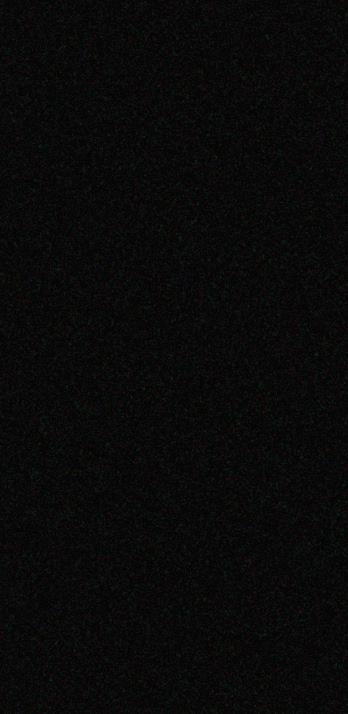
Madelyn
Cline
“Whiskey is Duke’s girlfriend. Maddy has incredible comic instincts, and she’d always come up with shit. If you keep your eyes on her in the background of any shot, inevitably, she’s doing something insane. It’s like watching a whole di erent movie.”
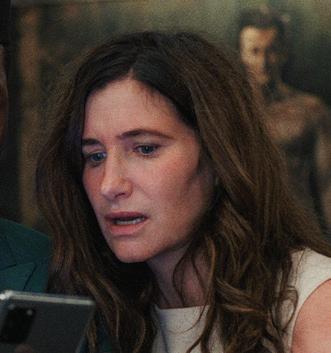



Claire Debella

Kathryn Hahn
“Claire is a politician. You know, when people sign up for a lm like this, I think they o en expect that they’re going to have a fabulous wardrobe. But my directive for Kathryn’s character was just: beige. I wanted her to be just sad-trumpet beige. So, Kathryn would show up to the dressing room, and there’d be all the colorful pops of Benoit’s rack and Birdie’s rack. Then she’d see Claire’s rack… Just tan sadness!”
Birdie Jay Kate Hudson
“Birdie is a former model who has her own sportswear line. I actually didn’t know that Kate’s nickname growing up was Birdie. She’s a great comic actor, and it was fun to give her a role where she could have an open eld to run with those instincts. On set, Kate also had the best description of her performance. She said, ‘The way I play it, Birdie understands every third word,’ which I thought was terri c.”
Peg
“Peg is Birdie’s assistant. Jess is hilarious—she’s kind of a brilliant straight man.”
Rian Johnson on the guests at Glass Onion’s murder-mystery party
Jessica Henwick
DEADLINE.COM/AWARDSLINE 2
Austin BUTLER
BY NADIA NEOPHYTOU
Word of Austin Butler’s steadfast work ethic was already becoming known in Hollywood before the 31-year-old actor played Elvis Presley. But in taking on the part of a lifetime, the titular role in Baz hrmann s film Elvis, the actor truly proved his dedication beyond any expectation. Butler may have moved on to his next projects (among them, the Tom Hanks and Steven Spielberg exec-produced Masters of the Air, and Dune: Part Two), but he still relishes talking about playing the king of rock 'n' roll. Here he describes how he aimed to capture both the physical depiction and the soul of the man.

You spent more than two years getting into character for this, and it’s been a few months now since Elvis came out. Have you been able to shake him or is there still something that’s stayed with you from playing Elvis?
I think there will always be. It was such a huge chunk of my life that
I was doing nothing else, so there are certain parts of it which will be infused in my DNA. But I think because I’ve been playing other roles now, I’m able to give myself over to the obsession of each role. And so, that, in a way, has been my process in somewhat being able to shed it.
2 DEADLINE.COM/ AWARDSLINE ARNER ROS /COURTEST EVERETT COLLECTION
The Elvis star on how playing the King inspired a change in his personal priorities
★ ★ ★ ★ ★
The Best Of 2022 | Actors
You spoke previously about wanting to humanize Elvis. What do you
Well, I know in moments when I met Lisa Marie or I met Priscilla, Elvis ceased to be this icon. In those moments you realize so deeply how he is a father, and he is a husband and a son. Even though Priscilla and Lisa Marie weren’t involved in the cre ation of the lm, or weren’t reading the scripts or anything, I felt this deep duty to them, because of the fact that he was so human to them. So, I know that was one thing that was at the core of it for me, as far as legacy goes. When I think about it, just on the level of family, that’s something that I’ve been very proud of, and just so grateful for, because I had no idea how they were going to respond to it. The fact that they were moved, that really just meant so much to me. Well, as you say that, I just closed my eyes and I thought back to the fear that I actually felt. It was so intense. One, I was very fortunate to have a lot of time, so the fear changed with my process. There were times where I was trying one thing, and then I would try a di erent technique, or this or that, or focus on something di erent.
And at rst, it just seems like there’s almost an impossible amount of information out there, and images and sounds, recordings. Then once I went through every photo that I could nd and every book that I could read and every bit of footage, or whatever I could get my hands on, then I felt this fear that I couldn’t infuse it all into me or somehow hold it all at once. It felt like there were a million spinning plates that I was trying to spin, so that was terrifying.
But then at a certain point, because I had so much time, there were things that I just didn’t have to think about, because I practiced them so many times, maybe physical things, or I just watched something so much that it started to feel like it was becoming a part of me, and I wasn’t having to consciously think of things.
The real fear is that you’ll either
focus so much on the speci c external things, like the way that he moves or speaks, that you’ll then lose the soul. But if you don’t have those meticulous things, then you don’t have the individual. And so it had to be a merging of those two.
That was a bit overwhelming at rst, but once I had the amount of time, and then I was able to just be there, and then focus on those things of, what is he feeling right now? Where is he, in this moment? It’s got to feel as though it’s happening for the rst time. So once all those things were inside, then I wasn’t having to really think about that on set. Then the fear gets sort of transmuted into an energy.
And then the fear subsides. And then I go home, and then I wake up at four in the morning with more fear, as I think about the next day of lming. So it kind of goes away in the moment, but it never goes away always, or completely.
as I could about each one of those voices of his.
The particular challenge with Elvis, especially, is the fact that so many people have their version of his voice, and then there’s this cultural or soci etal idea of what Elvis’ voice is, of this impersonation. So for me, it was kind of wiping my memory of any one of those voices I had ever heard, and then going to the man himself and going, “OK, what does his voice actu ally sound like?” And then I would let my curiosity lead me. I just became obsessed with the way he said one word, and then the entire day, I would just spend guring out the exact lilt and rhythm of the way that he said a certain word. But thankfully, I had a year and a half before we started shooting. O en I would wake up in the morning and have this just intense fear that I wasn’t going to be able to cap ture his voice somehow.
When you’re working with someinto his mind did you get when you
throw our original plan to the side and now dig into something that we’ve never thought of before. That can be scary at rst because when you’ve prepared a lot, you want to hold onto whatever the homework was. But that’s something that he taught me, that if you really do all the work, then you can show up and change every thing and you’ll capture something that you didn’t expect before.
What do you think you will remember about playing Elvis going
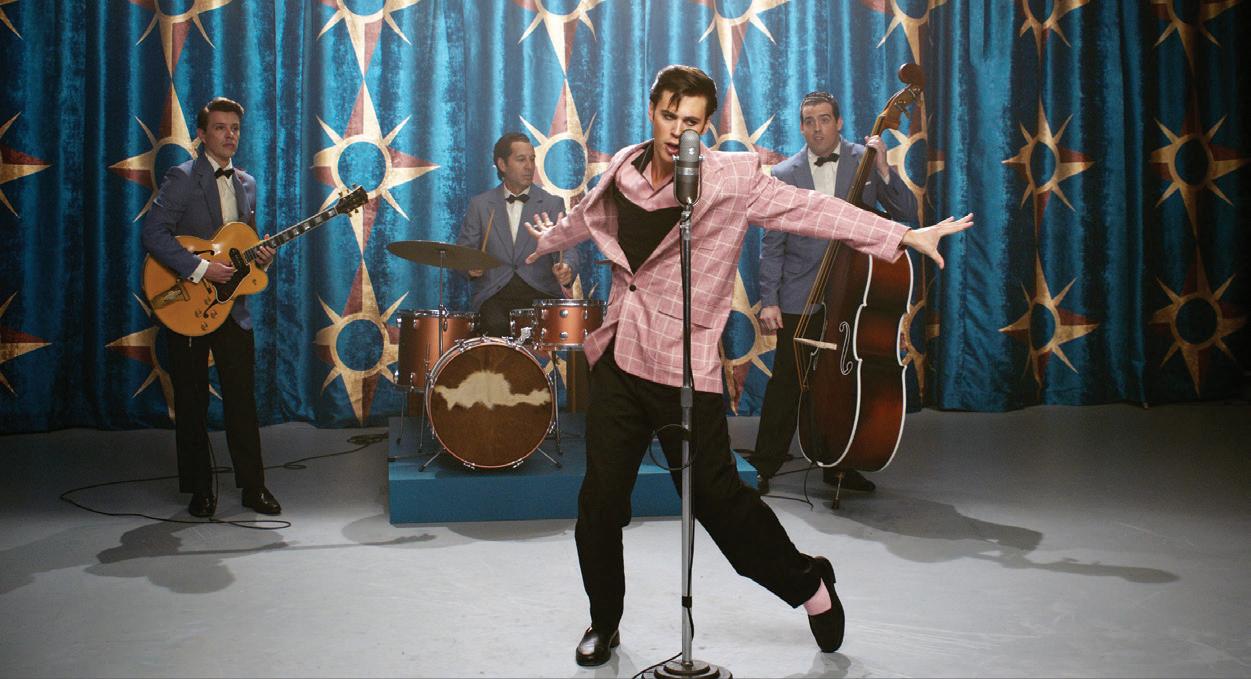
There are a couple things that come to my mind, I’ve said before that my relationship to fear has changed. Partly because Elvis was a shy child and he had stage fright, and yet he went out and did what he did. Through stepping into his shoes, I felt an immense amount of fear, but then was able to see it through his eyes, and then go and then work through these things that I didn’t think that may be possible for me.
Yeah, it was when I listened to every one of his interviews. There’s this great archive of every one of his interviews, and telephone recordings. You can trace his voice, and you realize that it’s not just one voice; the voice changed a lot over the years. I knew that we were going to be lming out of sequence as well. So, it wasn’t just clicking into this one era or something, so that was a challenge, because I knew that one day we were going to be lming in 1974 and the next day we would be in ’56. And so, I had to get as speci c
Baz and I have spent so much time together now. He’s a guy who doesn’t have a demarcation between his art and his life in a way. That is really amazing energy to be around, because he has this beautiful ow between his life and whatever he’s creating. So, whether we were at din ner or we were on set lming there, we were constantly in it together. He’s incredibly focused and detailed, but then loves spontaneity and trusts that if we’ve done all the homework, that when we show up, we could
I also wasn’t a dancer before; I wasn’t a singer before. There’s a sort of liberation that I felt in it. It’s sort of like anytime that you stretch yourself out of your comfort zone, you sud denly feel a little freer in the world. Elvis gave me that gi of expanding my sense of comfort in certain areas.
Then on the ip side of it, expe riencing the end—I get emotional talking about this—experiencing the end of his life, and knowing the details so intimately of everything that led to that point, allowed me the abil ity to feel like I’m looking back on my own life in retrospect, and changed my own priorities. And then I almost get to do it again. Especially when I’m dealing with being in a similar industry and that sort of thing, it’s allowed me to really appreciate the things that I’m now getting to experience in my life, even just being with my family or any thing like that. Because there was a lot of loneliness in Elvis’ life, and there were people who took advantage of him and there was so much tragedy. So now I feel like I’m so much more aware of those things. In a way, he’s protecting me from certain pitfalls and things, so I owe him for that as well. ★
DEADLINE.COM/ AWARDSLINE 2
Austin Butler as Elvis Presley.
Brian Tyree HENRY
 BY CARITA RIZZO
BY CARITA RIZZO
As grieving mechanic James Aucoin in Causeway, Lila Neugebauer’s film abo t a soldier ennifer awrence trying to assimilate into life in ew rleans after a brain in ry sends her home, rian yree enry, who lost his mother in , fo nd not st the biggest role of his career, b t catharsis from his own ain ome of s hold onto o r grief so tightly that we don t know who we are witho t it, enry says e talks abo t the emotional im act of the film, both ersonally and on screen fo nd a great so rce of strength in ames ore than e er knew that co ld
Causeway
First and foremost, to be able to do a movie with Jennifer Lawrence. I’ve been such a huge admirer of her work and wanted to get a chance to play with her. The other thing that stood out was that it really wasn’t one of those scripts that had a huge climax, or characters that nd this con ict and have to overcome something. It was just about two people existing in space and time, forming a connection. I really wanted that. What’s really appealing is that we know that existing, sometimes, is incredibly hard to do. Living is
incredibly hard to do. What I found remarkable about this piece was that you found these two people who were existing in a very com plicated way, when all they really needed was to see that they weren’t alone. Maybe friendship would shed some light on how they could get through and get over how they were living. That that was truly the meat and potatoes of what the script was.
My understanding is that the
We discovered that Lynsey’s journey was evolving based on who she was coming in contact with. She’s com ing back from war to a hometown that she was trying to escape, and she has su ered an injury that is making it hard for her to navigate that terrain the way she used to. I don’t think what she thought she would make, coming back, was a friend. We discovered that, with my character, there is hope for reestablishing what home meant for her. And we discovered that was also possible for James himself. James is a person who endured one of the greatest losses of his life in his hometown, and now has to g ure out how to move through that terrain in a di erent way, while also wanting to hold on to who he was. So, Lila, [producer] Justine [Ciar rochi], Jennifer and I really wanted to dissect what that was. Also, there was a connection that was grow ing between Jennifer and me, and we really wanted to showcase that friendship, because, truly, what they’re both looking for in the movie is friendship.
For sure. I realized I had to re-teach myself how to be human. I know that sounds crazy, but it’s true, because we all dealt with loss that year in a way that was magni ed because we had to be in isolation. It was so stark and bleak. Meeting somebody new in 2021 was like going to a theme park.
DEADLINE.COM/ AWARDSLINE ILSON E /A LE TV
The Causeway star on bonding with co-star Jennifer Lawrence and how he found strength in his character
★ ★ ★ ★ ★
To actually hug someone, to look someone in their eyes, to even sit in silence and stillness with somebody was something that our bodies had missed. Also, what was happening a lot, is that we were doing this thing called trauma bonding, and I realized that when you trauma bond with somebody, [the relationship] actually just stays in that place. It stunts your growth a bit. So, we wanted to dis cover if these people, who start with a trauma bond, can somehow nd a way through it. That’s the hardest part of grief, I think—to nd another way.
I brought a lot of that to James because he’s a man that I believe is truly a likable, beautiful person, but because of the circumstances of what happened to him, he lives his life as a person who feels like he got what he deserved. What I really wanted for James when I was play ing him, which in turn I also wanted for Brian, was a release of not having to explain why you feel weak some days. Another thing is that he was able to sit there with his thoughts. There are a lot of us who like to busy ourselves so that we don’t have to think about what we’ve lost and the obstacles that lie ahead. When he met Lynsey, she really gave him a place to just sit and think about what it is that he’s missing.
It’s great because we sometimes get trapped in this story development of boy-meets-girl, and all of a sudden it has to be romantic. We didn’t want that. We really wanted to show that these two people can exist in a way where they are just so human. That was what I needed, and I think that’s what Jen needed as well, with all the turmoil and the upheaval we were seeing in 2020. We wanted to show that it’s possible to just have a connection with somebody that doesn’t have to come with any kind of weight or obligation other than to be human with one another. As it develops, you start to see both of them shed layers. That’s why I love the pool scene so much because it really is about being bare. I call it the baptism scene, because it feels like they both get cleansed and lay everything out. And they’re so exposed.
-
There’s something so remarkable in stillness. I swear to God, when I got a chance to explore the stillness of this character, it was a true relief. I realized, when I was going through grief, that you want to be held up and you look to your le and right, and you realize nobody is really there holding you up. Then you start mak ing up these stories, that nobody understands what I’m going through.
politics, we talked about Covid. We talked about the social injustice. We just let it out. It was such a purging, in a way, that we stopped at one point and looked at each other and was like, “Oh, well, here’s James and Lynsey.” This is all they wanted. The simplicity of being able to sit across from each other, sit in the loss, sit in the anger. It really does create a sense of healing. That is what I think most of us are yearning for.
-
I wanted it to be what it was because I didn’t want to run away from it. I didn’t want to, in essence, do what those two characters have been doing at the beginning of the lm. I wanted to confront it in my own way. I wanted to also get over it. I didn’t want it to paralyze me like it had done at the beginning of my career. I didn’t want it to be this looming cloud. When I saw what it was that he had lost, I immediately related. And the part I related mostly to was him losing his leg. No, I didn’t lose a body part, but I did lose one of the most important people in my life. My creator, actually. So, I didn’t want them to change that because that is a huge part of who he is. But I also wanted to make sure that it wasn’t his only story. I found strength in James, honestly, because most people who go and su er such a horrible car accident would prob ably never drive again, but James was. Most people who were respon sible for losing a life in a car accident would probably not work on cars, but James did. There is a strength to this guy that he just needs to be reminded is there.
Also, this is how petty the universe
is: No matter how much you run, where you go, there you are. It’s like one of the oldest proverbs ever. And it’s very, very true. I found a great source of strength in James, more than I ever knew that I could. We went back and really tried to explore that: Him asking to have a roommate to cook breakfast with; him having somebody in his house; letting somebody drive his car for him. There’s something to be said about that. I didn’t want them to change any part of the accident or where he worked, because that’s truly where he drew strength from. And I think that I drew my strength from him, as well, in going through that. -
It was above and beyond. I don’t think I could have ever imagined working with someone that’s such a great scene partner. What’s great is it was a true manifestation of our collaboration. During the pandemic Jen and I broke the rules once and met each other, because we real ized we were up the street from one another. And we just sat in her garden and talked about everything that was going on. We talked about
A er we had that meeting in her garden, there were three earthquakes that night. I remember texting her at three in the morning and I was like, “See what a connection does? See what happens when you open your heart and just let the universe make its way?” I really believe that there is a charge when you make yourself bare to somebody who really sees you. And I think that that’s what we discovered, not only working together, but having these characters put in front of us. We knew we wanted to do them right, and we wanted to make sure that they got over to the other side of whatever their grief and their loss was, because that’s what we needed to see.
Sinking Spring
Here’s the thing. I’ve had a good run. Tonight is the series nale of Atlanta and I’ve been saying all day, it’s the end of an era. Alfred was kind of a testimony for me. There were parts of him that were, of course, sup posed to be funny, but there was so much catharsis in playing him as well. Last week’s episode, he nally got his own place on a farm, but also had to ght for his life, and still came out on the other side. There’s still humor there with him, but there’s also this well of emotion. As long as I continue to lean into stories and characters like that, I’m always going to be ful lled. So, I’m very excited to go back to television to do Sinking Spring. I really want to peel back the layers of who this character is and what life is. Who knows what the destination’s going to be, but I’m just grateful every time to get char acters like this. It’s truly a blessing. ★
DEADLINE.COM/ AWARDSLINE
Ke Huy QUAN
BY STEVIE WONG
The mid-1980s were magical for Ke Huy Quan. Not only was he chosen by Steven Spielberg to co-star with Harrison Ford in Indiana Jones and the Temple of Doom, the young Vietnamese-American actor followed that up with The Goonies too. But with very few roles for Asian actors at that time, Quan decided to stop acting and rs e a career behind the camera ere, he re ects on his time away from the spotlight, how the 2018 comedy Crazy Rich Asians was a personal game-changer, and the deeply humbling experience of his return in Everything Everywhere All at Once

A lot of people don’t realize that you took some time off from being In
you ended up working for renowned Hong Kong action director Corey
A long time ago in the late ’80s, Corey came to me wanting me to star in his movie in Hong Kong. At the time I was contractually tied to a television series, but we kept in touch over the years. So, when
he found out that I graduated from USC lm school, he called me and said, “Ke, I just got this little movie in Toronto, I would love for you to come work for me.” This is literally right a er graduation, so I packed my suitcase, got on a ight, landed, walked on set and realized it was The X-Men [laughs]. We then spent the next nine weeks together choreographing the Wolverine-Mystique ght at the end of the movie.
Then a er that, Corey kind of took
me under his wing and we worked on a number of projects including Jet Li’s The One. He also asked me to work on a couple of projects in Hong Kong and it was there that I met this wonderful lmmaker named Wong Kar-wai.
What was that meeting like? Kar-wai said, “Ke, great to meet you, I want to do some stu in America and I was wondering if you’d be interested to come and work for me.” Those who know me know that In the Mood For Love is one of my all-time favorite movies, so I immediately said, “I would love to work for you, but only if I get a DVD signed copy of In the Mood For Love [laughs].” I remember distinctly he got up from his chair, went over to his bookcase, pulled out his own copy of In the Mood For Love, signed it in front of me and said, “Welcome to Jet Tone [Wong Kar-wai’s production company].” I ended up working a number of years for him.
To then work on Everything, Everywhere All at Once, which introduces various multiverse versions of your character, Waymond Wang, it feels like you were able to tap into everything you learned
Honestly, between these two lmmakers, I learned about how to shoot an action sequence and what looks good on camera. There’s a big di erence between real ghting versus cinematic ghting, so when it was my turn to do the fanny pack ght sequence in this lm, I was very comfortable in that space. All those years working for Corey Yuen, I studied Taekwondo and I also helped train a lot of the actors. So, when it was my turn to do it for this lm, I was very comfortable and I knew how to get myself trained and make myself look good on the screen.
There are so many variations of prepare for them and which one did you feel the closest to?
When I got this part, I knew a couple of things. I knew that it was going to be physically demanding and
also emotionally demanding. But somehow when I read the script, I thought this role was written for me. I understood where I needed to go. So, when I got the role, I had three months to prepare and I guess because I was so hungry and eager, I stopped watching movies because I didn’t want to absorb any of the performances from other actors.
This script was written very well, but it was always written that Way mond changes from one second to the other. I knew the audience needed to distinguish the di erent versions, not just by how he talks but through his gaze. So, I hired an acting coach, a dialogue coach, a body movement coach and a voice coach to help me work through the way he moves and acts. I just needed to make sure I could nail these three performances down separately and make them my own, because everything that I have experienced up to this point were moments in my life that I could con nect to these characters.
How so?
I grew up with very traditional Chinese family values. Since I was a little kid, my parents taught me to internalize the emotions that we have instead of projecting them outward. It’s very contradicting to what an actor is. With all these internalized emotions, I just needed to spend a long time with myself and bring all of that out. If I had this role given to me 10 or 15 years ago, I don’t think I could have played him back then.
Present day Waymond expresses himself by speaking very little but saying everything through his
It was a creative decision that I had with the Daniels [directors Dan Kwan and Daniel Scheinert] from the very beginning. I wanted the audience to know immediately through his eyes. It was one of the most di cult things for me to do in the movie.
Because all the other actors were going through similar experiences playing different characters, did you guys have a lively lunch break
2 DEADLINE.COM/ AWARDSLINE ALLYSON RI S/A /
The Everything Everywhere All at Once star talks getting a second chance to pursue his dream career
★ ★ ★ ★ ★
where everyone compared notes?
Well, we never had that luxury of time where we could sit down and chat, because our shooting schedule and budget was so tight. The Daniels have a huge shot list that we have to go through every single day. We would start by gathering the cast and crew together to do warmups for half an hour. Once that was done, we started rolling the camera and we would not stop until they got the entire shot done. And then we did it all over again, every single day for the next 38 days.
Did that remind you and Michelle Yeoh of working on the fast-paced
Yes and no. The pacing of it was very similar and, of course, it was something that Michelle and I were very familiar with because of our years working in Hong Kong. But in this lm, the majority of the shots were done in two to three takes maximum. For example, the fanny pack sequence, it was shot in one day [laughs]. That scene would’ve taken two weeks in Hong Kong. You can imagine what our schedule was like. If you look at all the di erent edits, all the di erent shots that they pulled o , I don’t think it could have been done with anybody else.
And there were no egos on set; everybody came to the set with a great attitude and wanted to do the best we could for this movie. From the Daniels to our matriarch Michelle, all the way down to the entire crew, it was like a family getting together, and we just had a really good time.
Everything not only celebrates Chinese culture, but uses a lot of Cantonese and Mandarin as part of everyone’s daily language. Well, one of the rst thing that resonated with me was the switching back and forth between the languages. In all diaspora families, going from the native language to English and back and forth, is something that we do naturally every single day. So, when the Daniels incorporated that into the script, it felt very comfortable and familiar.
Do you feel that destiny played a big part in getting this role?
I do. The interesting thing is when I decided to get back into acting, it was literally two weeks a er that I got the call for this. The Daniels found out about me when they were scrolling through Facebook and found a gif of Andrew Yang, who was running for president at that time, and someone made a joke that Short Round is all grown up and running for president. That triggered them to go, “Oh, I wonder what Ke’s doing nowadays?”
So, they did a search and then found that I’m about that right age for Way mond. That’s why when I read the script, I told my wife, “I think this role is written for me.”
I truly believe that our script had a very strong soul. It knew exactly what it wanted, and because of that, it pulled us all together. Everything just came together perfectly, the timing, all the pieces, all the talents, every body. I do think it’s meant to be.
Crazy Rich Asians was an impor tant instigator for you to come back to acting because you saw
movies for an all-Asian cast. Let me tell you, how I’m feeling is so complex. I grew up watching Bruce Lee and James Hong, and honestly, growing up in the States, those were the only Asian faces that you'd see up on the screen. So, when I got my opportunity to be in a movie with Steven Spielberg, Harrison Ford and George Lucas, that was the big thing. Nobody put an Asian kid in a huge blockbuster movie, and a er The
Goonies, nobody else did it. Over the years, a lot of Asian talents have come up to me and said, “Oh my God, we grew up watching you and you are the reason why we want to be in this business.” But that compliment always felt bittersweet to me. For the longest time, I would go watch movies and I would enjoy them completely but I wondered how come they didn’t write roles like that for Asians? How come it’s only for one group of people? That’s why I stepped away.
Crazy Rich Asians featured an entire Asian cast, which I didn’t think was possible before. But since then, we’ve have The Farewell , Shang-Chi , and now our movie. It’s a wonderful feeling and I can’t believe how far we have come. Of course, as long as we’re still talk ing about it, there’s still a lot more to be done. But we are finally here. Dan Kwan gave a wonderful speech the other day. He said, “We finally have a seat at the table, so what do we need to do moving forward? Representation matters.”
since this lm came out. In the past, people recognized me and they’d go, “Oh hey, are you the kid from Indiana Jones and the Temple of Doom?” Or, “Are you the kid from The Goonies?” It’s wonderful, I’m so grateful for those two movies, and it’s changed my life, but for the longest time, I wished I could do something as an adult that people would recognize me for.
I was at a restaurant the other day in London shooting Loki Season 2 and a grown man recognized me from being in Everything. And he said, “I love you in that movie.” He started talking about the movie and started crying in the middle of the restaurant. I saw him cry and I cried, too. Honestly, it’s so heartwarming.

Since Everything has come out, you’ve worked with Michelle Yeoh again, on American Born Chinese, and Loki Season 2, and now a project with the Russo Brothers. You’re quite popular now.
all these accolades and to see how people around the world? It’s been incredible. I’ve been overwhelmed with emotions since our movie came out. In fact, every time I do an interview, I get emotional and my wife says, “Ke, can you not cry anymore?” I tell myself every time before I do an interview, I say, “Don’t cry, don’t cry.” But I’m so grateful for everything that’s happened
Let me tell you, we nished shooting Everything at the beginning of 2020. During that entire time of the pandemic, I was auditioning again and again, because there were more roles for Asians, and I got nothing. I didn’t land any role, not even a call back. I called my agent desperate for anything from series regular all the way down to a guest star spot and still nothing. When 2021 passed and I lost my health insurance, I was so miserable and I felt so nervous because this was all happening again, like in my younger days. I called our producer for Everything, Jonathan Wong, and I said, “I can’t get any job, nobody wants me. Please tell me how is the movie? Am I even good in it?” His response was very sweet, he said, “Ke, just be patient. Just wait until the movie comes out.” And yeah, he was right. When the movie came out, everything changed. That’s why to this day when I walk on a movie set, knowing how di cult it is to get to have this opportunity, I’m always grateful. I didn’t think I would have this amazing second act as an actor in my early 50s, and I hope my story inspires someone to not give up on their dreams.
★
DEADLINE.COM/ AWARDSLINE
Ke Huy Quan in Everything Everywhere All at Once .
Jeremy POPE
The Inspection star on his most difficult role and how it helped him come to terms with his own issues
BY STEVIE WONG
You may have seen two-time Tony nominee Jeremy Pope in Ryan Murphy’s Hollywood or Steven Canals’ Pose, but those shows were just a warm-up for the emotional shoot of The Inspection, the im ressi e first feat re from writer director legance ratton Po e was immediately drawn to the story of Ellis French, who joins the Marines thinking that if he dies in combat, at least his life will mean more as a gay lack man in niform n a dience fa orite on the fall festi al circ it since its deb t in oronto, the film is a tri m hant showcase for the 30-year-old, who hopes that its message will inspire other lack eer yo ths as m ch as the role ins ired him

My team and I are always investigating cool creatives, directors, producers that speak the same love language, in regards to the arts, that I do. Elegance was one of those people that my agent at the time was just very passionate about and she was like, he has a project which feels almost too right. So, I was sent the script, fell in love with it and really
wanted to connect with Elegance. I remember after I read the script, my big thing was like, “Well, where is he now?” I almost needed the part two to what happened after. I had so many estions on how he became this light of a person and to be so smart and so funny and excited about life after going through so much.
I hopped on a Zoom with him the next day and we just chatted it up and connected on life and what it
means to be eer and lack artists en tho gh this was his first big project, we shared a lot of similar ideals and I think that’s really where the collaborative process began with The Inspection -
I think meeting and working with Elegance was a very delicate process, because not only was I taking on his story, but he also wrote this and was going to be directing me in the film So ultimately, I had to ask him to trust me and said, “There is going to be a negotiation that happens when we’re being collaborative together because my job is to be the vessel. I’ll take information that you’re giving me, but I’ll use my own vibrations and stories and things that have happened to me to be able to find a dee er layer to this character nd early on in the process he was like, “I do trust you.”
He was championing me and he wanted me to have all of the resources and tools I needed to give the best performance. So once I
knew that we were rooted in that, my approach was just to make as much space as I could for Elegance. There were all of these elements from him that affirmed to me that he wanted me to win.
efinitely wanted to t myself in front of him because I had been in the business for a bit longer. I know how diffic lt and hard and fragile it feels to be a representative of the lack and the eer and the cost that you have to give for people to nderstand or find their way in So, I knew that I was going to be protecting him. I just wanted him to feel safe and know that we could try together. It was more collaborative than any other experience I’ve had, being that he was still dealing and healing from this experience. I also understood that when you’re this vulnerable with your story, once you give it away, you can’t get it back.
lso, his mom had assed right before we started filming this hings were actively happening in real time and he was having to address those things. It was dark and it was hard and it was emotional, but I think we could just lift each other up when one
DEADLINE.COM/ AWARDSLINE A /COURTESY EVERETT COLLECTION
★ ★ ★ ★ ★
of us was feeling weak or whatever because we knew that ultimately the story was going to be something bigger than just Jeremy and bigger than Elegance. Plus, how important it would’ve been for us to be able to ha e seen this ersion of a fighter, a believer who wins, who becomes his own hero, and how important that representation is and can be.
Ellis has been betrayed by everyone around him and left to fend for him self as a young boy. How did you empathize, given his situation is still common for Black gay teens?
I think I can only speak from just my experience and what I know. I’ve had my own share of abandonment and feeling mistreated because of how I identify and how I choose to show up in this life and that’s very hard. I’m part of an industry where code switching as a Black individual and as a queer individual is a norm. I have to shape shift myself to feel like, if there is any space for me in this room, how can I take it? I can’t be loud. There’s a way of survival and I think that’s what Ellis is doing. Ellis knew that he had to go to the streets, he had to find a comm nity where he wo ld be loved and accepted and if that meant a limited resource, that was his only way. He knew that he wasn’t going to survive living in a household that was toxic and where his mother didn’t approve of him. So, when he reaches that place of, “I need something better,” his option was to join the Marines. Because the world is showing him that Black queer men die, but if he dies in service then at least he will have some type of value. With Ellis, his love to his mother is conditional f yo fit these bo es, if you do it this way, I will love you. But that isn’t the ultimate freedom that he’s deserving and striving for, and I think that’s his journey we watch his film is not abo t someone going to the Marines and can do 10 push ups instead of fi e, llis always had the strength and the tools within himself. His challenge is to show up. But in him showing up for himself, he realizes this responsibility of taking care of the man to the left and to his right
shows that he is strong, powerful, and deserving of love.
And that is essentially what Elegance did. He didn’t talk to his mom for many years and this film was an attempt to connect again. e knew that if he made this film, she would have to acknowledge his existence. In his mind, he was able to use some painful moments and offer it as a beacon of love; it was an olive branch. He doesn’t hate his mom; it was just complicated.
How did you discover your own sense of worthiness?
Any group of marginalized people, it’s like you have to recreate a narrative for yourself sometimes before the world even shows you that you are worthy and deserving of opportunities and experience and love that is not conditional.
This role allowed me to pull from my own experiences that were heavy and dark. Just growing up as a Black queer individual whose dad was a pastor and a bodybuilder, I was always centered in rooms that felt hyper-masculine. I was taught that this version is what a Black man is supposed to look like. From my own experience with the Black community and the church, there is this complexity with homosexuality b t still trying to find yo r relationshi with God and what it means to be in the church. There is a lot of, “We’ll pray the gay away and if you don’t acknowledge this side of you then you’re OK.” But can those two things exist? Can I still be a Christian and identify as a queer Black man? Can I still have morals of a Christian individual or morals of the heteronormative relationships I was raised upon, but identify as a queer indi id al o, when yo don t define that, you feel like you’re worth nothing.
Over the years, I’ve had to understand my al e and t myself first and believe in things that I can’t see.
Your character is a man of few words, but through his eyes you can tell everything he is going through. At what point did you make that decision in your perfor mance to be so still?
One thing that I do is to always try to find what s not on the age think there is such a nuance in the silence that sometimes is stronger, because as humans we’re afraid to say things, but we still feel them. Something that Elegance and I were very aware of was a lot of the character building in Ellis was in the silence. Like, his perspective of seeing the environment, or when he walks into a locker room full of men. As a queer individual, even going to the gym, because yo identify in a s ecific way and you don’t want any trouble, there is a s ecific energy that ha ens in your body just out of survival. That was a heavy throughline in o r film, which is always coming back to the perspective of Ellis and seeing where his gaze was in this institution and how it was shifting.
I think another beautiful thing that starts to ha en in o r film once llis finds his lace in this institution is that you then see how everyone is also unravelling and having their own moments. And Ellis becomes an emotional center for people to come and say, “I’m also scared,” or, “I’m also feeling this.” I think that was very beautiful and interesting to understand, but I think we only understood that because we see where his perspective started.
Ellis sometimes misconstrues acts of kindness for sexual attraction. Can you break that down?
I think it opens up a complex conversation because much of Ellis’ perception of love has been transaction-based. I think a lot of marginalized individuals feel like if you’re offering me this thing, you must want something and you must be interested in it. And I think what happens is he has this person (Raúl Castillo, as drill instructor Rosales) who begins to care for him and give him extra attention. But that’s just because Rosales wants him to be the best. In that olive branch exchange, Ellis goes, “Well, what do you want from me? And yes, you’re attractive so I guess sexually this must be what you want.” So he begins to fantasize and do all of these things, much to his embarrassment. And I think that is such a complex understanding for him because he’s ha ing to redefine his inter retation of what love and support is. He has to learn that a man that comes to you with support or protects you doesn’t mean he wants to be sexual with you. He’s having to relearn his connection to lo e, and st how he identifies in an exchange of support; it’s not transactional all the time.
Did you and Gabrielle Union rehearse a lot? The mother-son scenes are electrifying. Actually, it wasn’t a lot of rehearsal, it was just a lot of conversation between the three of us. Because in those s ecific scenes, all of the dialog e that Gab’s character says to my character are things that have been said to Elegance. So those days were very sensitive and hard. The thing that me and Gab really just held onto was that they don’t hate each other. They just needed to feel the tension in all ways because they both loved and cared for each other. I know that Gab had to go to some places and I was so super proud of her because this is a type of role that people haven’t seen her in before. I also think that what she and her family do representing and caring for their trans daughter, is a real testament to the work and the understanding and the listening that she’s doing as an individual. ★
DEADLINE.COM/ AWARDSLINE 5
I've had my own share of mistreatment and abandonment because of how I identify and how I choose to show up in this life and that's very hard.
Hugh JACKMAN
BY ANTONIA BLYTH
In Florian Zeller’s follow-up to The Father, which scored a surprise Oscar win in 2020 for Anthony Hopkins as an elderly man with dementia, Hugh Jackman plays his son Peter, who is forced to confront a different kind of torment when his ex-wife Kate (Laura Dern) comes to him for help in dealing with their troubled teenage son Nicholas (newcomer Zen McGrath). In trying to do the right thing, Peter finds himself trying to break the chains of his own generational trauma. Jackman, whose own father passed away during the shoot, was so deeply moved that he found it affected the way he parents his own children.
I was personally so affected by this
First of all, thanks for saying that. Florian used to say, when they did the play in Paris ve years ago, that people would stay in their seats, or wait a er to meet with him and the actors. Not to say, “congratulations,” or, “can I get an autograph?” Rather just to talk about their experience. There are so many people experienc ing this, or who know someone very close to them who is, and there’s just very little opportunity to really talk about it.
By the way, the experience still sits with me a year later, watching the movie, and not as an actor, but as a father, as a son. So, I know what you mean, but I appreciate you saying it.

The
Father. But had you seen the play The Son before taking this on? I knew of Florian’s work. I almost did one of his plays about six years ago, but the timing didn’t work out. I’d seen The Father and absolutely loved every frame of the lm. And then my agent told me that they were going to make The Son. So, I read the play that day and rang her back and she told me there were a couple of other actors circling it that Florian was talk ing with. And I was like, “Oh, this is awkward.” But I really felt an immedi ate urgency to play the role, or to put my hand up for it.
I emailed him and I said, “Listen, if you’re dancing with someone else, I don’t want to cut in. But if you’re not, I would love to play the part.” And I was just very upfront about that. He emailed me back, said, “No, I don’t
DEADLINE.COM/ AWARDSLINE COURTESY SEE SA FILMS/SONY ICTURES CLASSICS
With The Son , the actor faces down generational trauma and examines what it means to love with true selflessness
★ ★ ★ ★ ★
know what you’ve heard. I’m not talking to anyone, so let’s speak.” We Zoomed the next day and that was it. He o ered me the part seven min utes into the conversation.
He's very, very smart. He operates on and trusts his instincts as much as anyone I’ve ever met. He’ll just go with his gut. He was not planning to o er me the part originally, he just thought I’d meet him. And he said he had an instinct in his gut seven min utes in. He said, “I want you to play the part.” I was completely surprised. I had no idea.
I remember being terri ed making the Zoom call. I said to my wife, “I’ve never been so scared to get a part or to not get a part. Both things at once.” I knew what it would be to play the role, but I also really felt an urgency to do it and to be part of the story.
How did Florian explain your character to you?
He explained him as a good man, really trying his hardest to do the right thing with unresolved issues from his childhood, from his exwife and his marriage. And some one who believes he’s doing the right thing at all times and feeling it’s his responsibility to fix things. Ultimately, a good man under a lot of pressure.
We didn’t rehearse, which was unusual. Florian’s a theater guy, as am I, so I love rehearsals, as does he. But he said, “I don’t want to rehearse. And Hugh, I invite you not to feel that this character is very far from yourself.” Basically, he was asking me to bring myself to the part and to the experience, and just to trust whatever I was feeling. And so, we really would go in every day having no idea... I mean, he obviously had an idea, but I had no idea where we would start and where we would nish in terms of levels, or where we would go. It was just very free.
You’ve played a vast plethora of different roles, but this is tonally very different from anything you’ve done before.Was that what frightened you about it?
The challenge Florian was giving all of us was to reveal ourselves; reveal our
own hearts and our own experience of life, and allow that to be enough.
He invited us to let go. That’s the sort of thing you talk about a lot as an actor; letting go and allowing instinct to take you. And, for whatever rea son—the time in my life, the part, the way it was beautifully written—I could see what an extraordinary opportu nity it was, and I just didn’t want to screw it up.
how we aim to escape what our parents did, and yet ultimately do exactly what they did.
Yeah. The scene which was not in the play, with Anthony Hopkins, was so beautiful because you’re halfway through the movie, and of course, with the title, The Son, you’re focusing on this troubled teenager. Then all of a sudden you go, “Oh, hang on. Peter’s the son. Oh, I see. We’re all still children.” It’s so beautifully done.
These traumas, they just are passed down like a wild re through the generations. It takes such enormous wisdom and courage to be able to stop it.
On a smaller level, I remember when my son was born. All of a sudden I was very regimented, very disciplined, and on a timetable at all times. For the rst time in our marriage, my wife said, “Oh, who’s this guy?” It’s really interesting how that happens.
You lost your own father during the shoot. I’m so sorry for your loss, it must have been so hard working on this at that time.
Thank you. He passed away during the lm and nearish to the end.
I remember that scene at the end where Peter imagines his son coming back. That particular scene, which was very di cult to do, was just a few days a er he passed away. Normally, I would approach a scene like that as almost, “I need to get into my zone, let everyone do their job around me. I can’t be a ected by it. I need to cre ate my own space here.” But weirdly, I didn’t feel like I could get through it without the help of everyone. So, without them knowing it, I would look at [everyone on set]. I actually wrote something down the morning of that scene. I wrote down all of them by name. I needed help. I needed their support. I needed to connect rather than to close o . And I can remember feeling his presence there, very clearly, in the room. I don’t know, maybe I was making that up, but that’s what I remember feeling.
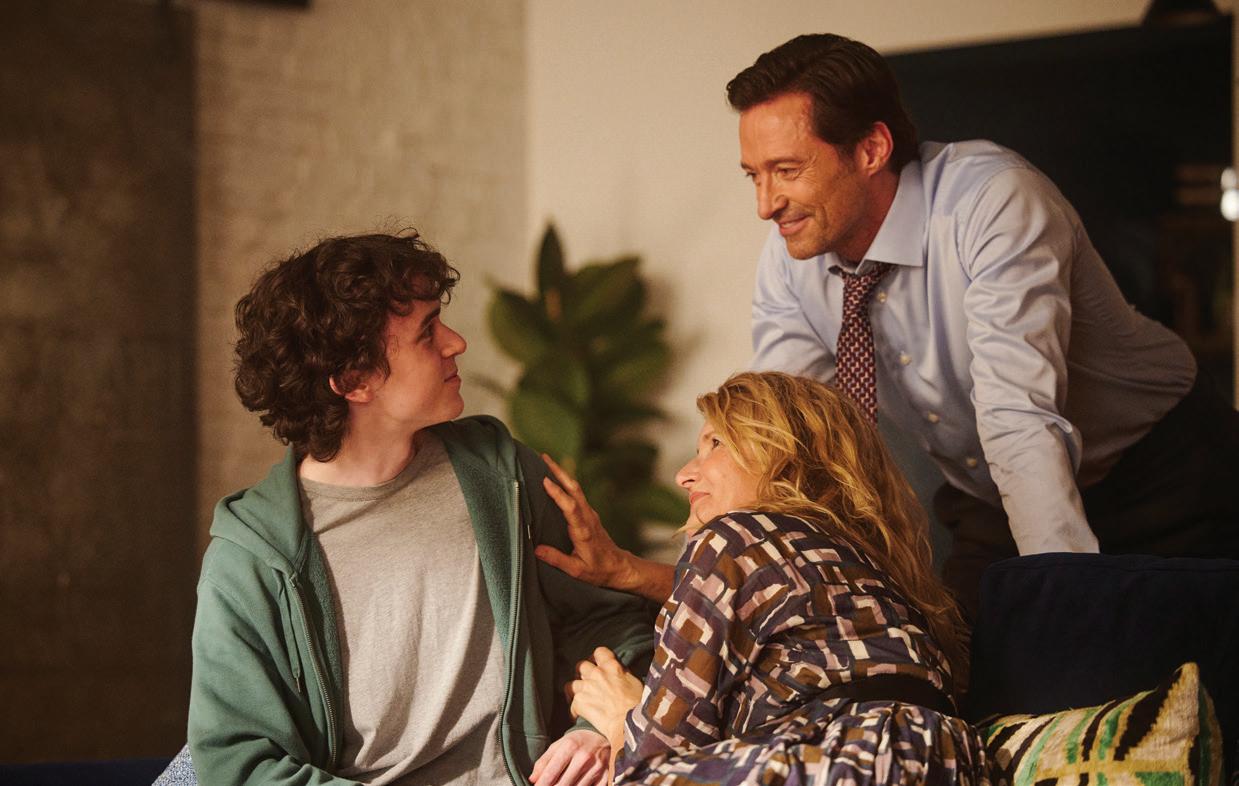
It must have just been an eviscerating experience. And cathartic as well.
What has stayed with you from this experience personally and professionally?
I certainly have learned a lot about vulnerability as a parent. The idea of not knowing. The idea of admitting. I have a 17- and a 22-year-old. So, the idea of leading with not hiding from them my vulnerabilities, my doubts, or my worries.
Just recently, I remember I was worried about something with one of my kids and I could see the look
on their face. I could see that they thought I was disappointed. That’s what I was reading. My son walked o and I went downstairs, and I said, “I get that feeling you think I’m disap pointed, but I’m just worried.” And we ended up having really good con versation. I think prior to this movie, I would’nt have thought that was help ful for them. That actually, what they needed was strength and surety and a kind of feeling that their dad knows what to do. But actually, I realize that doesn’t help, and in fact it’s okay to have these discussions.
I think what I learned profession ally was a sense of trust in myself and my fellow actors; allowing things to open up on the day and not to control things too much. To let go more. Trust my instincts more.
Do you know how would you deal with the kind of serious mental illness we see in the lm?
It’s so hard to know what to do, and I think there’s so much shame around it. There’s so much guilt and ignorance. We really don’t know a lot. We’re in the infancy, I think, of understanding it.
I think what I’ve learned is never worry alone. Just being in the nuclear family is not enough. And there’s a line and I think love is not enough. It’s not always enough. It’s essential, you need it, but it’s not enough in these situa tions. You need professional help. You need family and friends. Everybody needs di erent support.
My wife and I talk about that a lot, to make sure that our village is strong and not just hiding things o or thinking there’s going to be shame associated with this. There’s a di er ence between secrecy and privacy obviously, but just making sure there’s enough help, and things aren’t just being bottled up, or denied, or kept hidden. It’s easy to think, Oh, it’s just a phase. And people go, “Well, they’re 17, it happens, and we’ve just got to push through a little bit.” But it’s so hard to know what is actually a problem that’s going to be around for a long time, and what is just a little six-month phase. I think it takes people with real knowledge of that to understand it, and real experience. And maybe some objectivity.
★
DEADLINE.COM/ AWARDSLINE
From left: Zen McGrath, Laura Dern and Hugh Jackman in The Son .
MidCentury Modern
Production designers Curt Beech , Katie Byron and Helen Scott mined the 1950s for the year’s best retro looks
 By Ryan Fleming
By Ryan Fleming
The 1950s can inspire various forms of nostalgia. Three lms this Oscar season give life to that bygone era in three very di erent ways. Till gives a historically accurate representation of that era, heavily based on newsreels and photos docu menting the Emmett Till case. The ’50s gets a rose-colored perspective with Don’t Worry Darling, taking a more opulent and luxurious lens to the Golden Age in America, while Living takes on 1950s London, showing a more restrained aesthetic and color palette than its American counterparts.
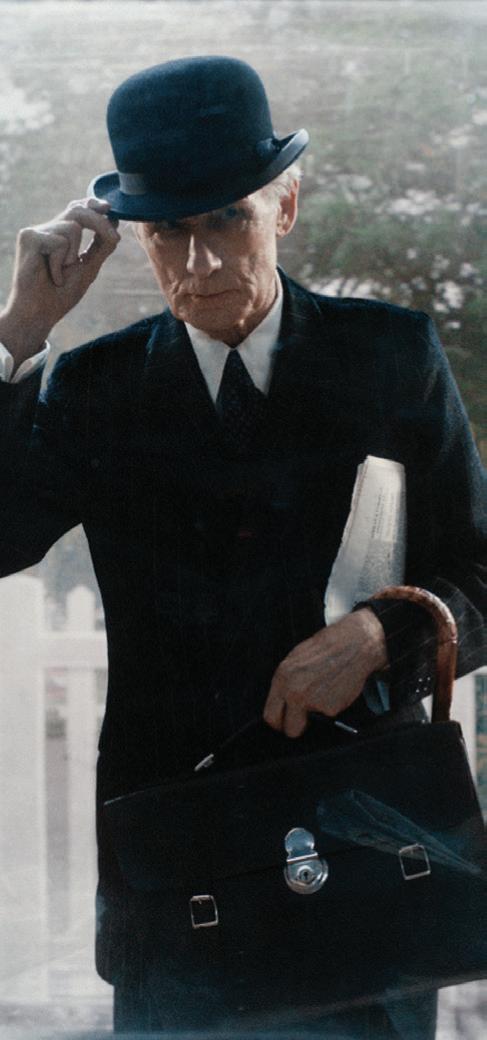
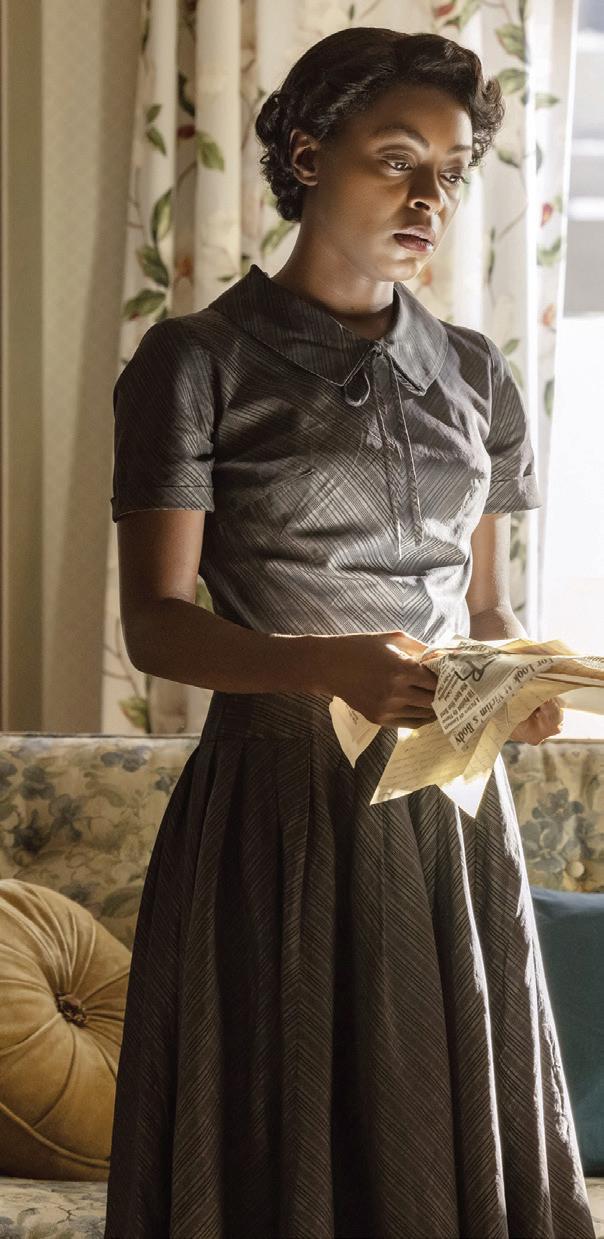
RELEASIN
SONY ICTURES CLASSICE/UNITED ARTISTS
/ ARNER ROS/COURTESY EVERETT COLLECTION
TillBased on a true story in 1955, Chinonye Chukwu’s Till follows the life of civil rights activist Mamie Till-Mobley after the brutal lynching of her teenage son Emmett Till in 1955. While Till-Mobley’s journey starts in her Chicago home, the bulk of the work for production designer Curt Beech was to recreate areas in Mississippi that were key to the Emmett Till case, notably the grocery store where Till was accused of flirting with a white woman.


“The news reels that showed the town were really valuable,” says Beech, “and there were even some of the store and everything that went down around the courthouse, the courthouse square and the courtroom.” While there was no footage from inside the courtroom,
Beech had a vital source of informa tion through co-writer and producer Keith Beauchamp. As someone who worked closely with the real Till-Mobley, Beauchamp was a major resource for Beech when no historical evidence was available.
Outside of recreating historical sites, Beech needed to figure out how people of the time designed and decorated their homes. The 1950s was a time before consumer culture really took off, which meant that not everyone could go to the local department store and buy the latest styles for their home. “Decorations in people’s homes were much more per sonal then,” says Beech. “So, there’s a sparseness to decor and design in the 1950s. The reality is people didn’t have their walls lined with photographs of loved ones, because
photographs were very valuable and they were hard to get.”
Since the homes were sparsely decorated, the wallpaper was essential to create a color scheme for a room. “We sourced a lot of vintage wallpaper from the period,” Beech says. “We had to scan it and reprint it and, in that process, we were able to tweak the colors a little bit and saturate or empha size them a bit more to get that colorful look that Chinonye was seeking.”
The only color they stayed away from was yellow, which they reserved for scenes involving Emmett Till. “At the beginning, he’s in this very yellow room, he has a yellow dresser, and we really leaned into this yellow,” says Beech. “Yellow became his color and a color of joy for him. The only other time you see yellow in the film is at Moses Wright’s house and there is a yellow lamp and the yellow chair where Emmett sat to write a letter to his mother.”
DEADLINE.COM/ AWARDSLINE
Till , from top: Emmett Till (Jalyn Hall) outside of Bryant’s Grocery in Money, Mississippi; Danielle Deadwyler as Mamie Till-Mobley (center) in her Chicago home with Whoopi Goldberg as her mother Alma Carthan (left).
Don’t Worry Darling
Moving into a fictional version of the ’50s, Don’t Worry Darling presents an idealized vision of the time period. Director Olivia Wilde’s film takes place in an experimental utopian community, where Alice (Florence Pugh) begins to discover that the town of Victory may not be as glori ous as it appears.
used jewel tones. “We’d bring in color through optics, colored glass and mirrors to make it feel more like the color is coming from light and texture,” she says. “When I first read the script, I imagined black and gold and silver and glass and then slowly started to weave in color.”
Having previously collaborated with Wilde on Booksmart , production designer Katie Byron had the advantage of knowing what the direc tor wanted for her story. “We did a lot of research for the 1950s, but we moved in the direction of opulence, luxury and sensuality in color palette and tone, and then we got to refine the details through the period,” she says.


The town of Victory, California is based on Palm Springs, where the
One important color used in the film is Albert Frey Blue, named after the Swiss architect responsible for the desert modernist style. “It’s a robin’s egg blue that Albert Frey would use in a lot of his desert homes,” she says. “He was at the forefront of design in Palm Springs, and we actually used quite a bit of his architecture as reference.” Frey used the color in his designs as a way to fuse the modern appearance of construction materials with the organic look of the desert. “It was a color he really loved because it spoke to the desert landscape.” bulk of the film was shot, which was the center of the Desert Modernism movement. “We used Palm Springs as a model because it’s an oasis in the middle of the desert, constructed for people to play with materials for design aesthetic,” Byron says. “The idea is that it’s in California, but the nearest city is very far away, so you’re protected in this desert utopia bubble.”
The architectural style also lent itself to a utopian feel, where things seem almost ahead of their time. “Some aspects of Desert Modernism feel almost futur istic,” says Byron, “and we were interested in the progressive new designs of the period that were more commonplace in the 1970s, but had their birth in the 1950s.”
Pastels were popular during the time period, but Byron opted to avoid the flat colors and instead
DEADLINE.COM/ AWARDSLINE
From top: Alice (Florence Pugh) as Alice in Don’t Worry Darling ; Alice with her friend Bunny (Olivia Wilde) and children.
ARNER ROS/COURTESY EVERETT COLLECTION/SONY ICTURES CLASSICS
Living takes us to postwar Britain, showing us a very different style of design. Oliver Hermanus’ English adaptation of the 1952 Japanese film Ikiru sets the stage in London in 1953. The film follows Mr. Williams, played by Bill Nighy, a bureaucrat facing a fatal illness as he tries to find meaning in his life before it’s too late. Production designer Helen Scott had the challenge of bringing London back in time.
“You get little pockets of the 1950s,” she says, “but you don’t really get a complete journey on foot or by vehicle.” As the script required a lot of exterior shots, including a community playground area, Scott needed to get creative with the locations. “The walk to the bomb site where the playground was created was split over several loca tions just kind of joining together,” she says. “It was a walk from Central London through the suburbs and out to the East End, so it was quite difficult.”
Whereas Beech and Byron had color to play with to enhance the stories, Scott says the most important aspect of design in 1950s London was
restraint. “We obviously didn’t shoot in black and white, but we had a very pared-down palette,” she says. “We started off with black and white, and we actually did use whites as opposed to grays and off whites.” The monochrome palette enhanced the dull, static feeling of Nighy’s character, as a man who has worked his entire life without searching for meaning. “The visuals have quite a simple aesthetic,” she says. “We never had a kind of grungy, textured feel about anything. It was always quite clean and sharp and clear and explicit.”
The London County Hall served as the backdrop for the film, though the building is no longer used as a government headquar ters. The location now holds two hotels and an aquarium, but luckily part of the old building remained. “We based ourselves in that area and utilized what we could,” says Scott. “All the staircases and corridors are pretty much the same, but we obviously had to strip them of their modernity and take them back to the ’50s.” ★
Living , from top: Mr. Williams (Bill Nighy) stands outside the London County Hall; Mr. Wakeling (Alex Sharp) waits for the train with his coworkers; Mr. Williams visits Margaret (Aimee Lou Wood) at her new job.

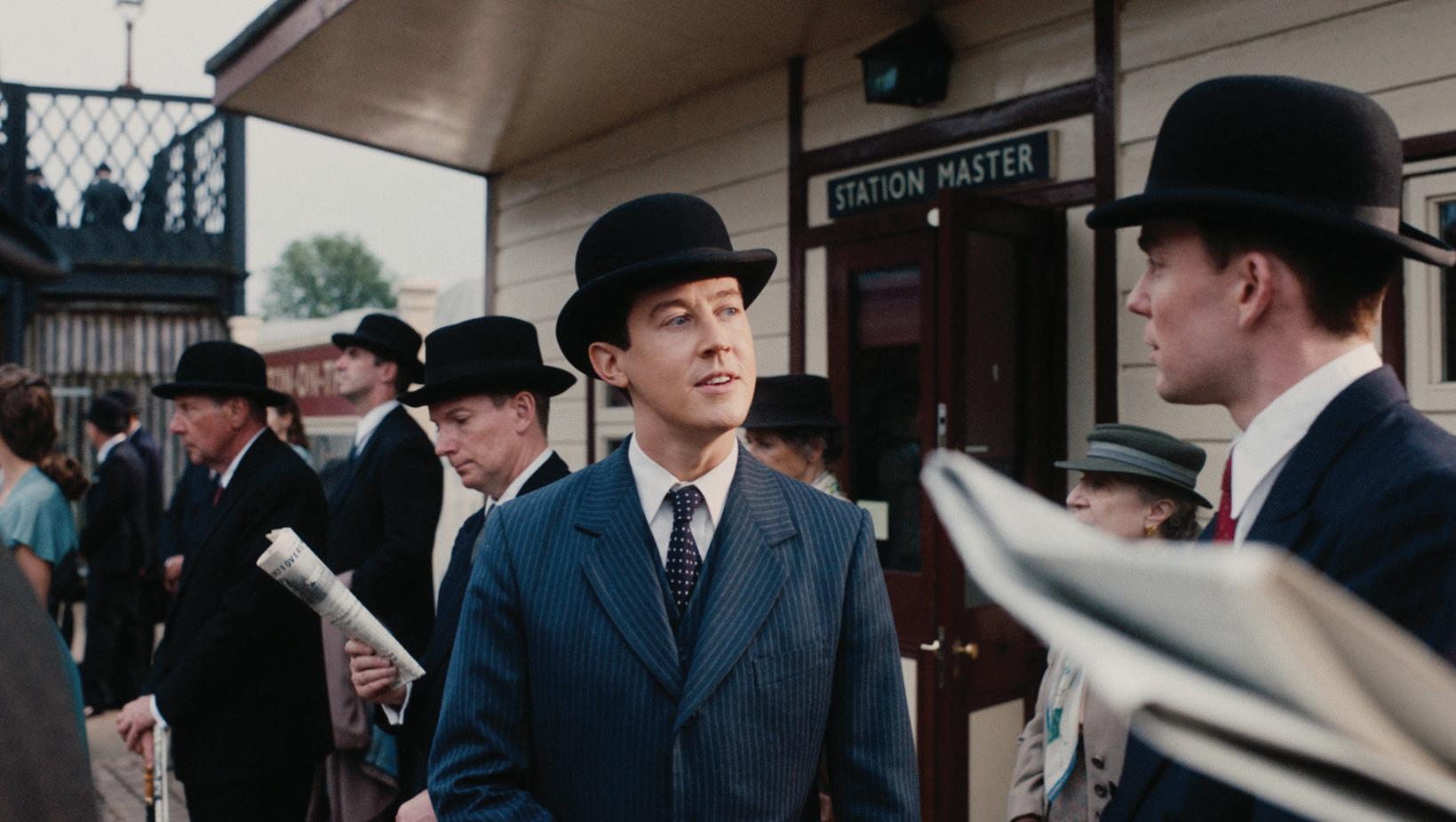
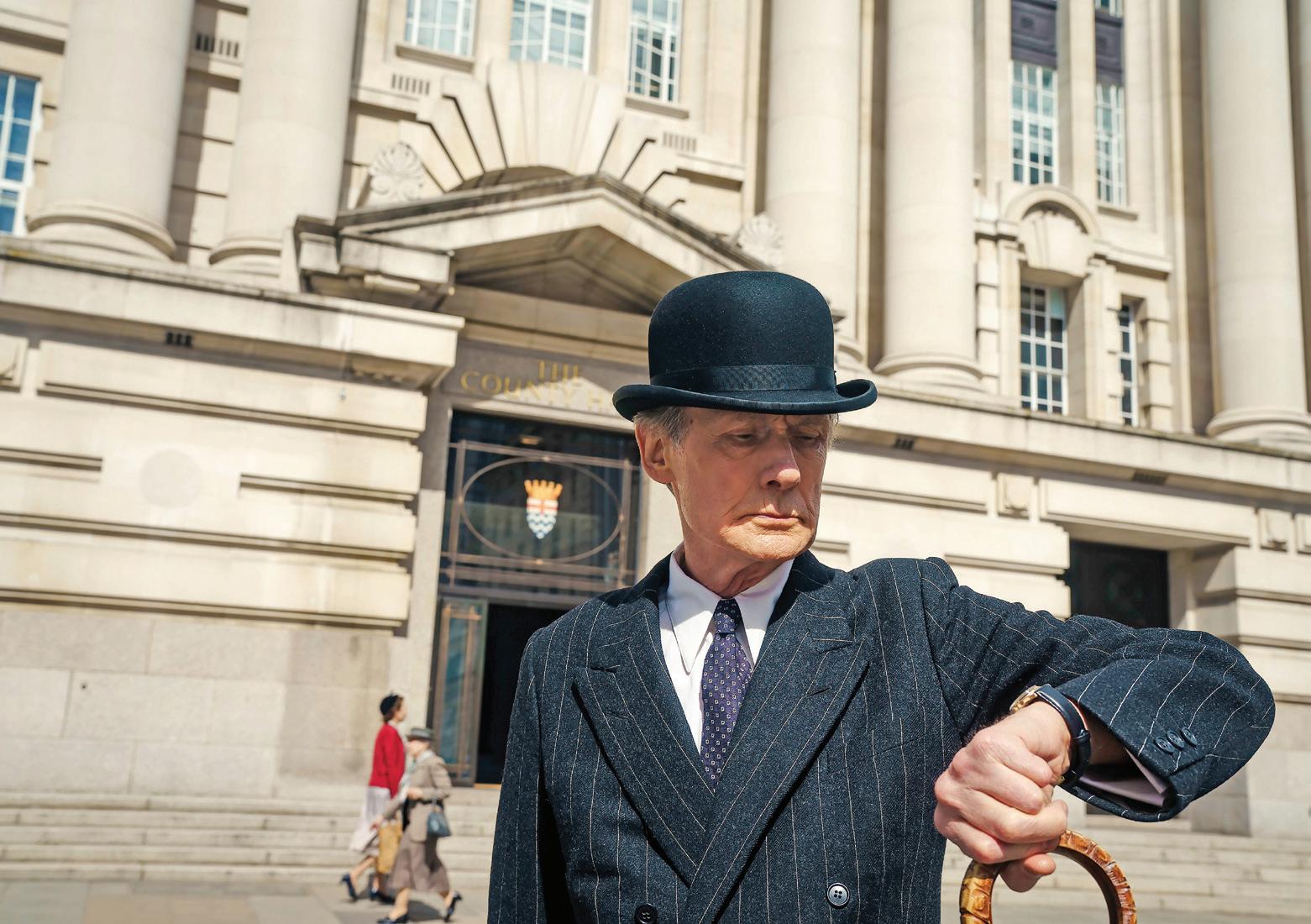
DEADLINE.COM/ AWARDSLINE
Living
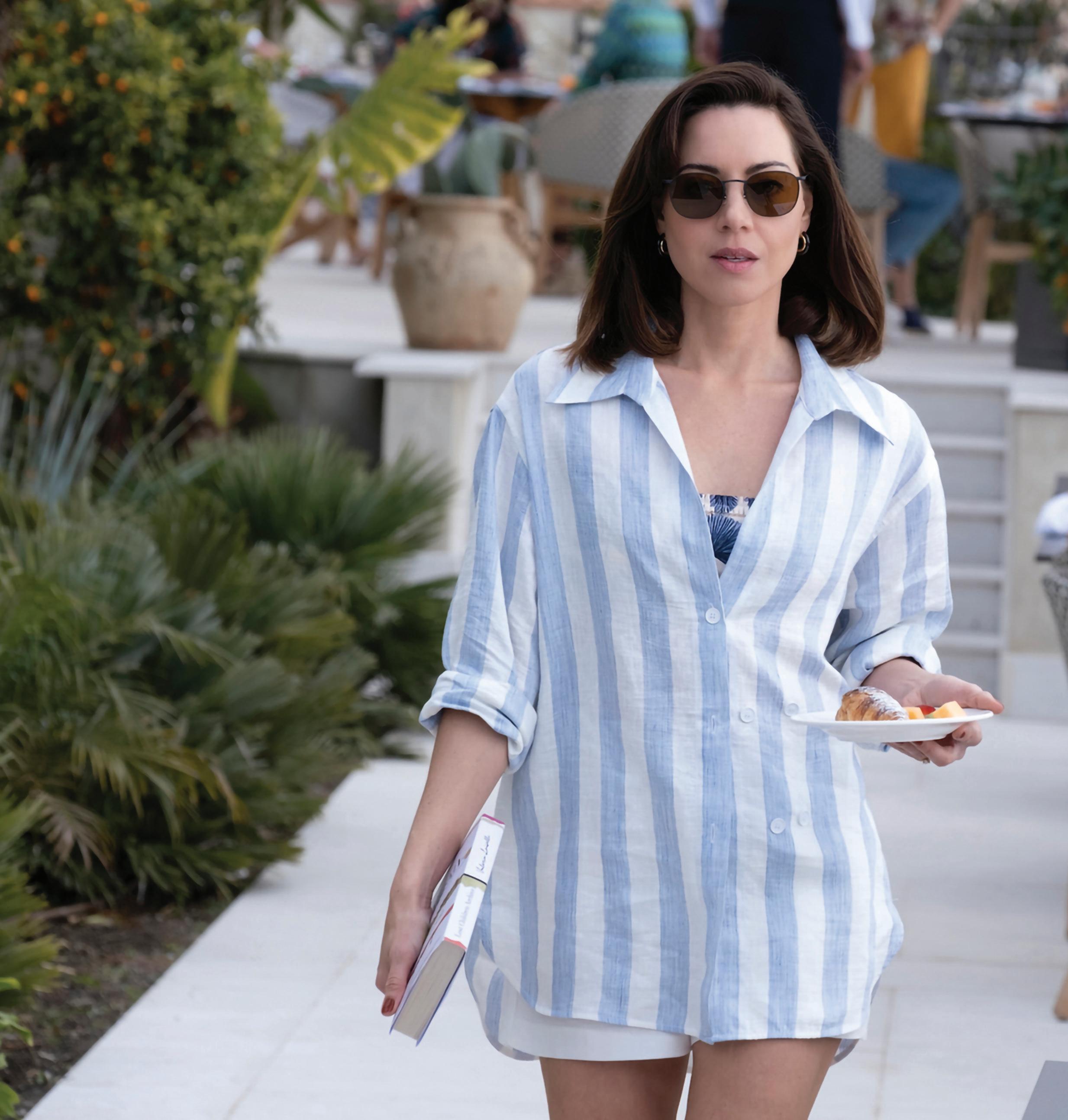



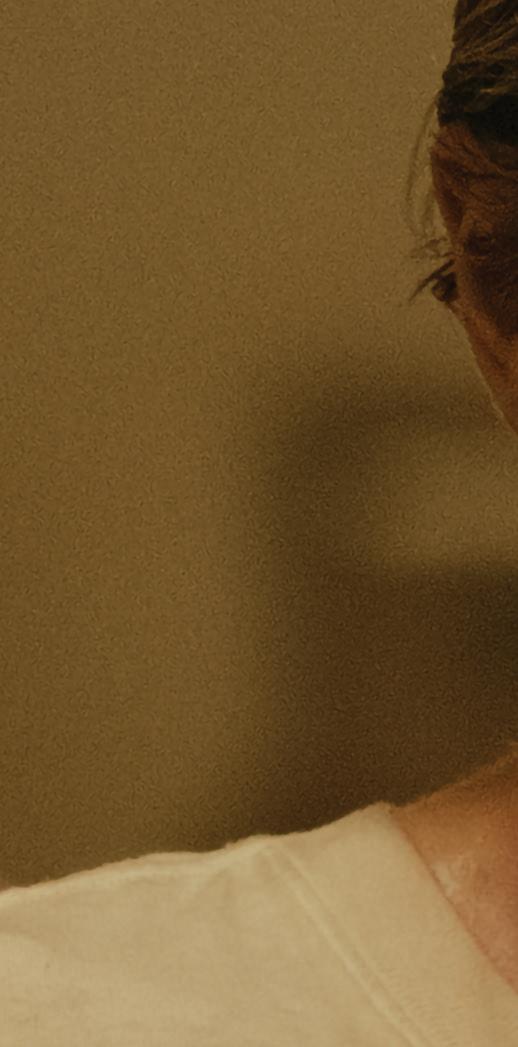





New TV | 2022
IO LOVINO/H O/NETFLIX
FA


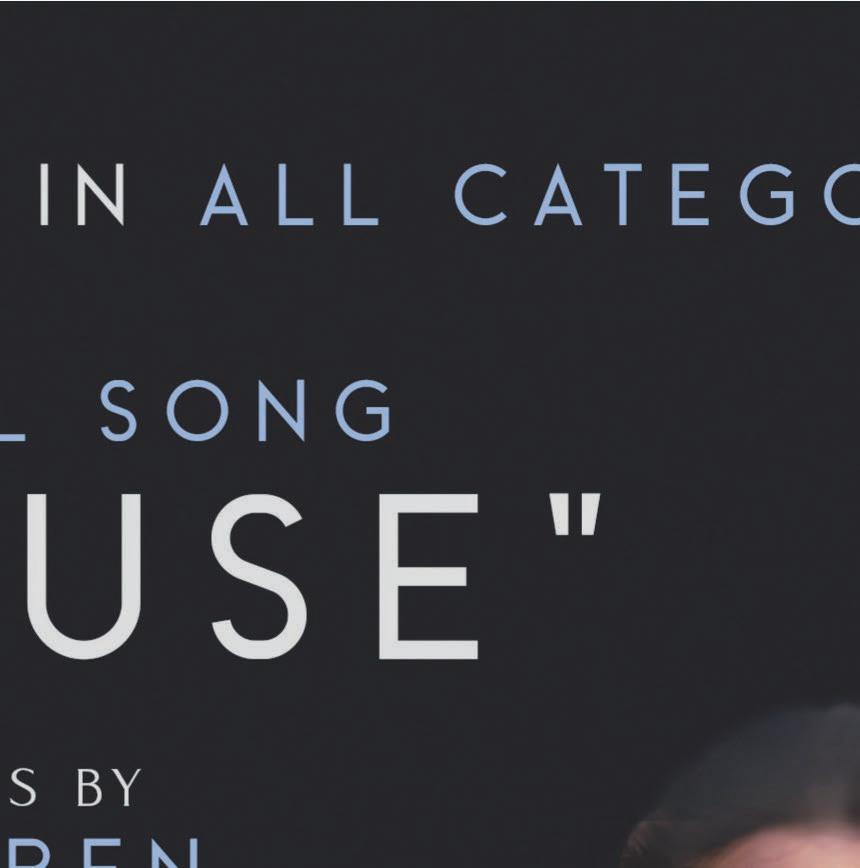



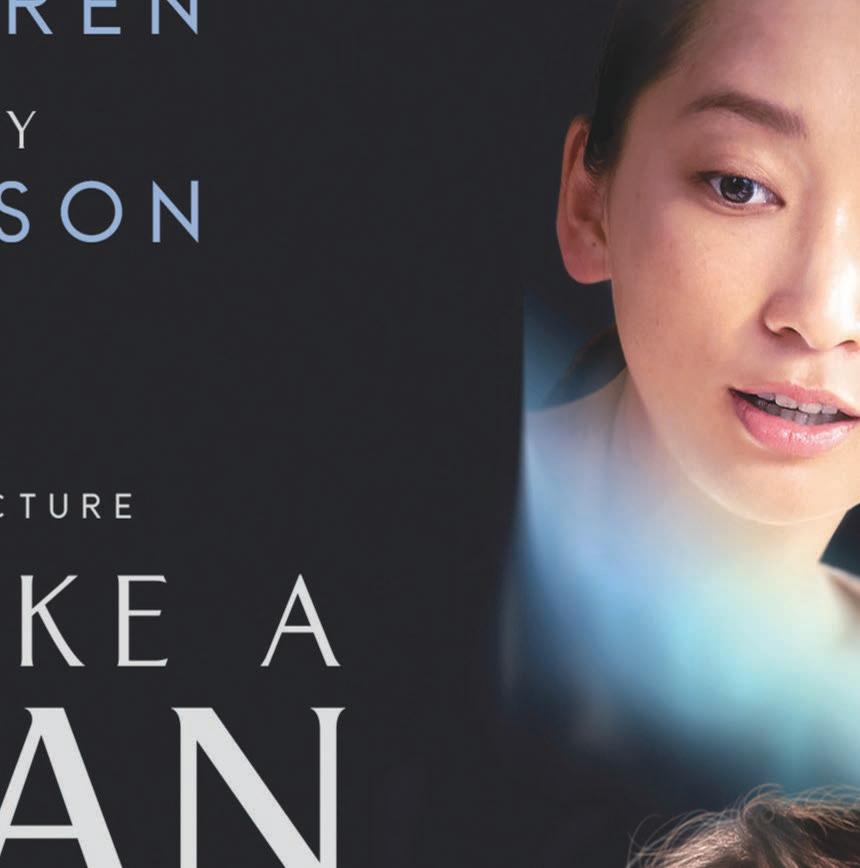


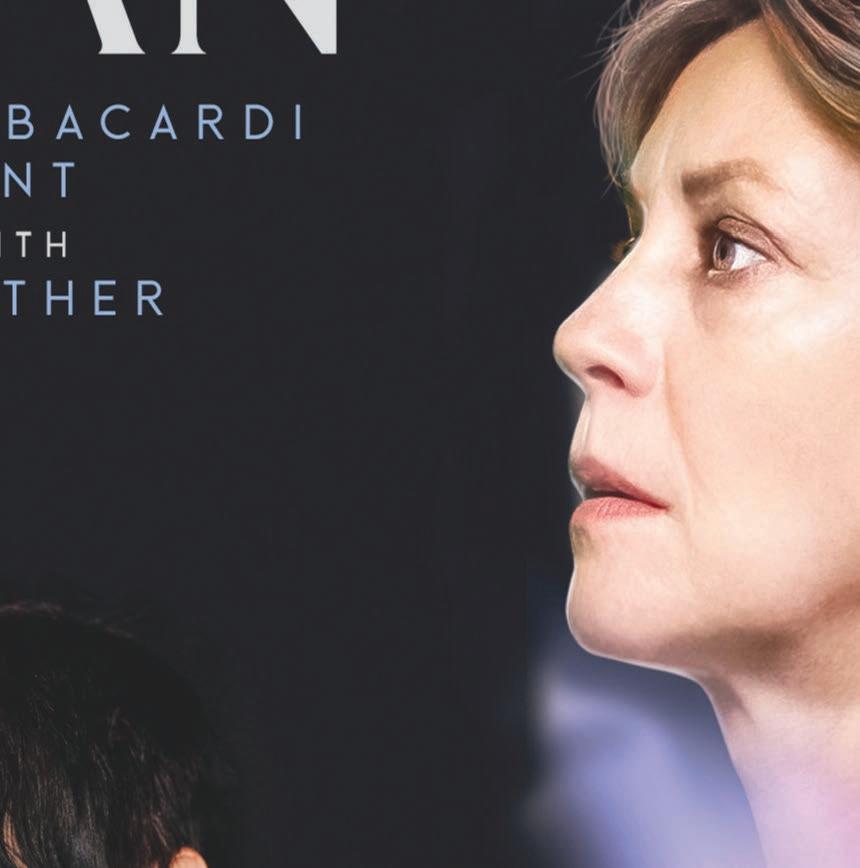


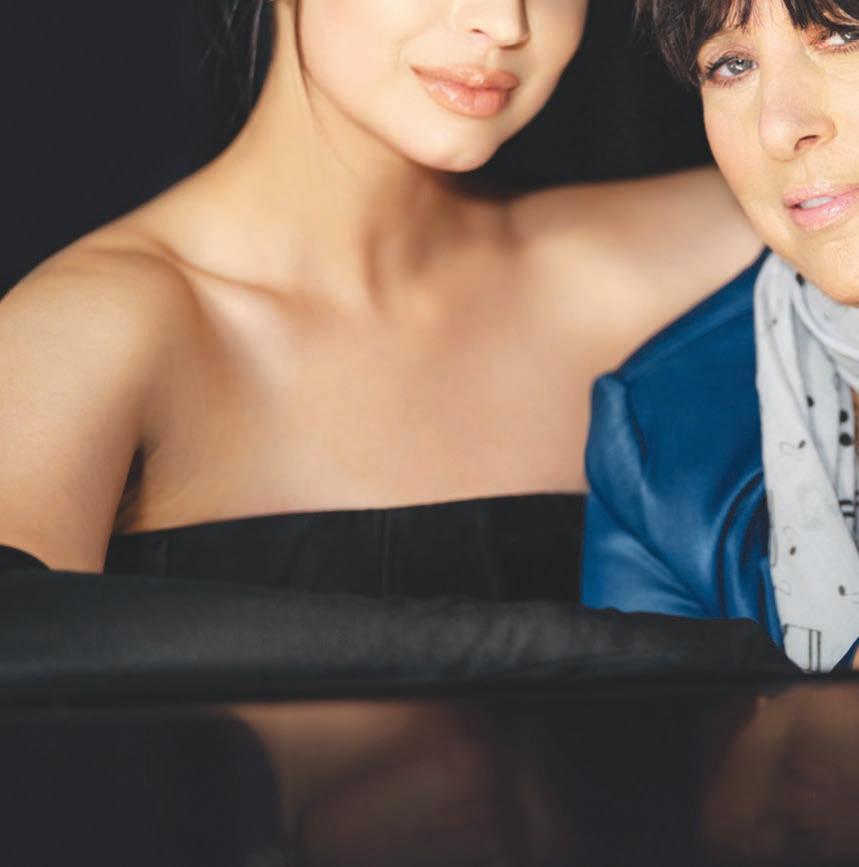
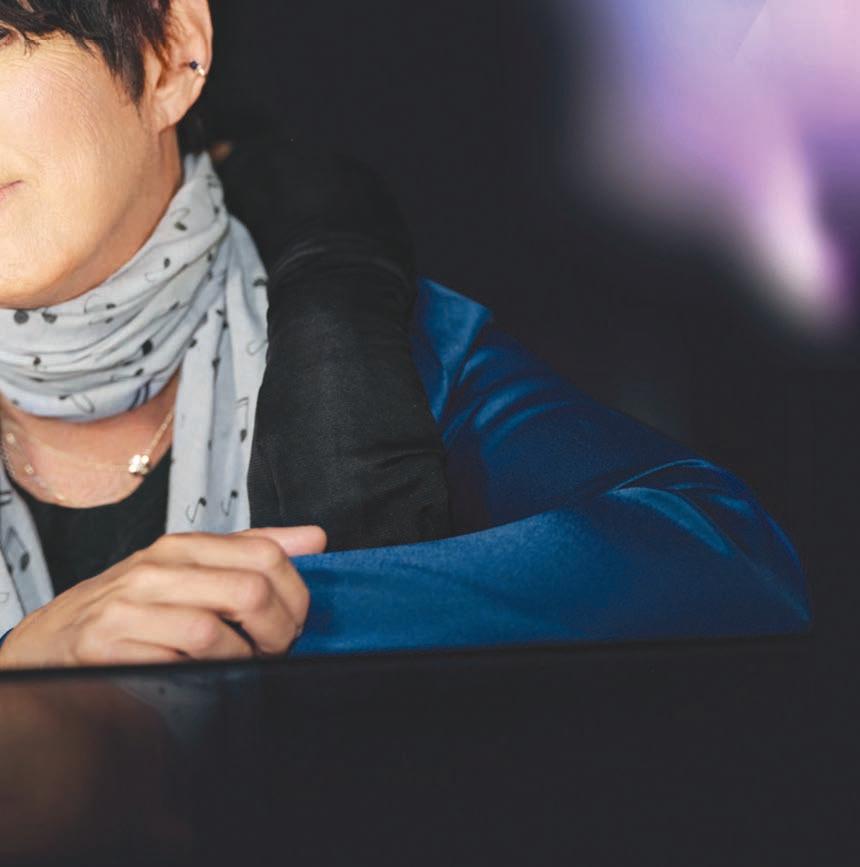
QUICK FIXES
In 2022, limited series delivered some of the year's most compelling TV with Dahmer , The Patient and Five Days at Memorial leading the pack
BY LYNETTE RICE
Some of the best work in television has occurred in the limited series genre, and the 2022 contributions have been no exception, given how they commandeered the zeitgeist and outperformed the likes of the muchpublicized House of the Dragon and The Lord of the Rings: The Rings of Power. We’re speaking, of course, of Dahmer - Monster: The Je rey Dahmer Story, Ryan Murphy’s 10-episode deep dive into the notorious serial killer. Aside from its clunky title, the Net ix series trans xed the true crime obsessed despite the surpris ingly understated way it depicted the grisly murders. Viewers were largely left to imagine what happened to Dahmer’s victims, a testament to the series’ chill ing score and the extraordinary work of Evan Peters, Murphy’s longtime muse. Peters is a slam dunk for a nomination, if not for his co-star Niecy Nash as Glenda Cleveland, Dahmer’s next-door neighbor who heard the terrifying carnage go down in Dahmer’s apartment. And if you need more proof of the show’s immense popularity, look no further than the headlines from Nov. 7, when Net ix announced two more installments of Murphy’s Monster franchise.
Another breakout perfor mance came from an actor primarily known for his com edy: the proli c Steve Carell, who took a break from the tomfoolery of shows like Space Force to appear in FX’s ThePatient on Hulu. Carell personi ed the role of Alan Strauss, a sympathetic yet bereft psychotherapist who becomes the downstairs prisoner of a serial killer (played by the superb Domh nall Gleeson). The 10-episode thriller ends in the most unexpected and dismal way, but Carell’s plight with both his captor and his adult son was appointment viewing.
Lost in the peak TV boom but no less worthy of Emmy gold is Five Days at Memorial, a grim retelling of the events that took place at a New Orleans hospital after Hurricane Katrina. Penned with care and great detail by Carlton Cuse and John Ridley, the eight-parter for Apple TV was a triumph in that it actually made you feel like you were sweating alongside Dr. Anna Pou (Vera Farmiga) and incident commander Susan Muld erick (Cherry Jones), who faced overwhelming odds to
save patients at Memo rial Medical Center. Do yourself a favor and watch it, and then ask yourself what would you do if faced with the same predicament.
The series world wasn’t exactly devoid of fresh and exciting new arrivals this fall. FX hit it out of the park yet again with The
Left, Evan Peters in Dahmer; above, Vera Farmiga in Five Days at Memorial

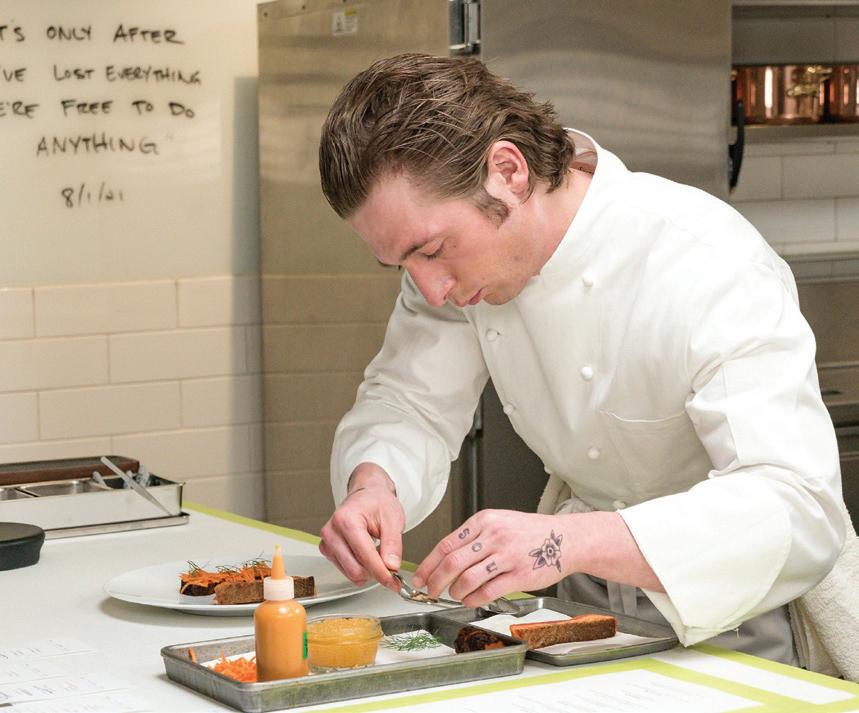
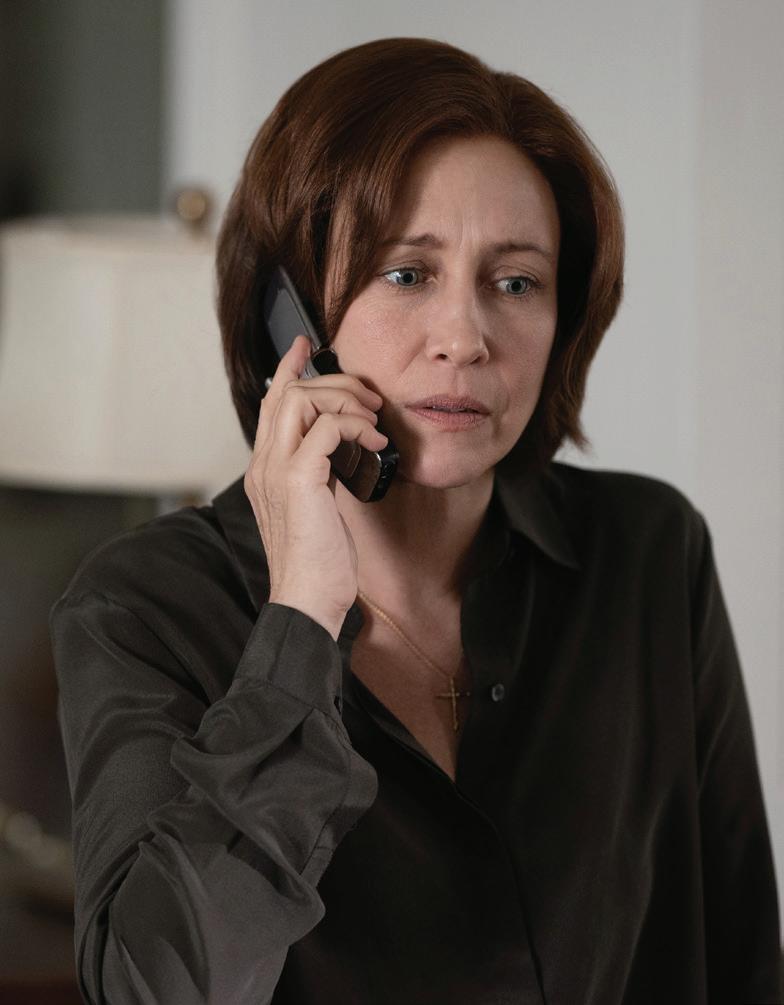
Bear, a workplace show about a brilliant cook (Shame less’ Jeremy Allen White) who returns to his Chicago home to take over his dead brother’s greasy spoon. Each episode is only a half-hour and there are plenty of knee-slapping moments (wait until you see how guests at a kids’ party are accidentally drugged with downers), but the series from Christopher Storer (Ramy) is really about a family’s struggle to cope with the suicide of a beloved brother-cousin-boss. (Good luck guring out
which Emmy category to submit this gem, FX.)
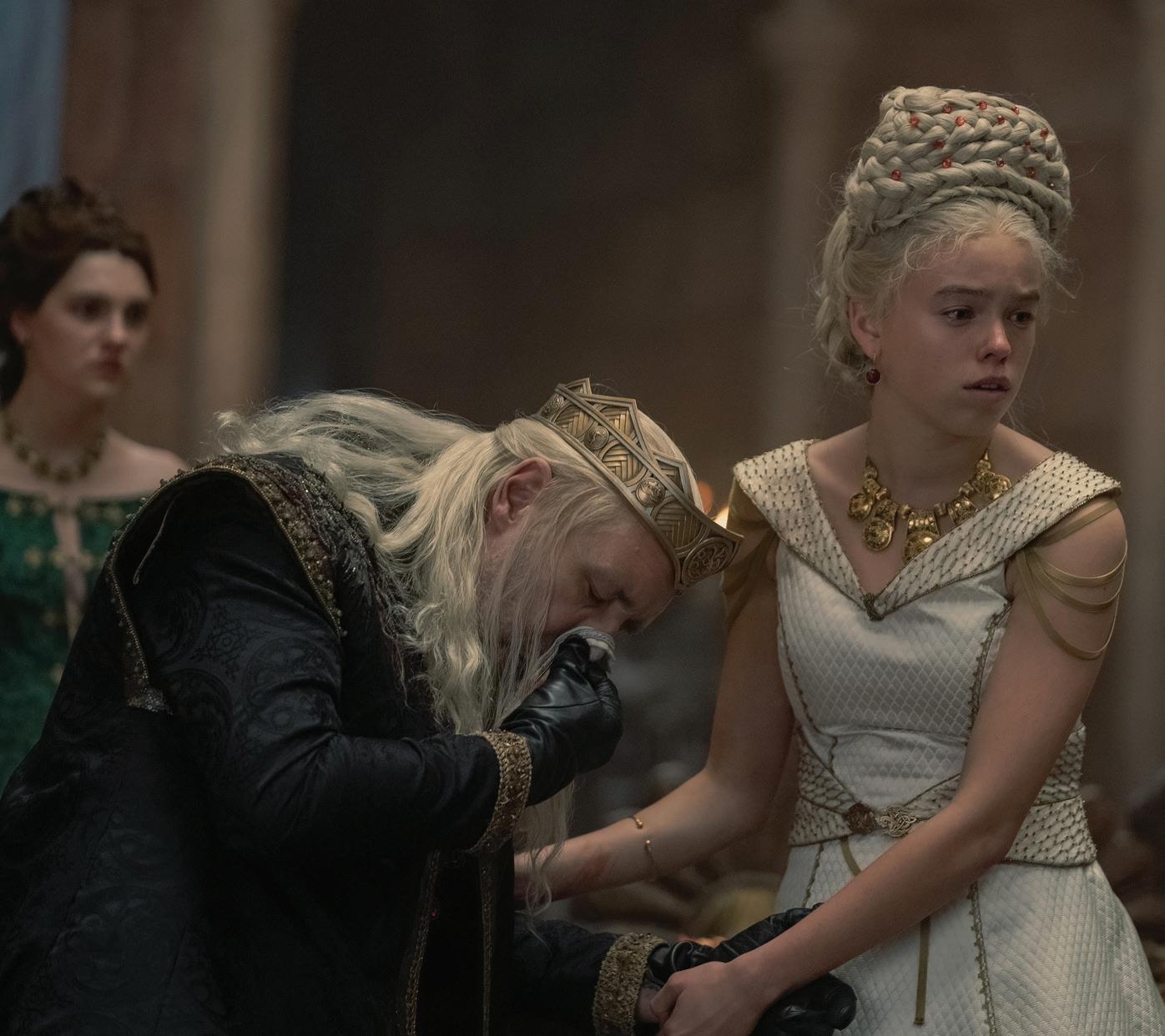
Meanwhile, House of the Dragon—while no Game of Thrones, the early years—boasted several of its own breakout stars, from Milly Alcock as a young Princess Rhaenyra Targaryen to Paddy Considine as her loving but useless king-father Viserys and Matt Smith as the rebel prince
Daemon Targaryen. The Rings of Power served up a few contenders too, like Cynthia Addai-Robinson as Queen Regent Míriel. Jennifer Coolidge will likely attract atten tion once again for round two of The White Lotus, and we’re already predicting that The Crown’s Imelda Staunton as the Queen and Jona than Pryce as Prince Philip—not to mention Elizabeth Debicki as Princess Diana—will make a royal showing during awards season.
Above, Jeremy Allen White in The Bear; below, Paddy Considine and Milly Alcock in House of the Dragon
SER
AFFO/NETFLIX/A
LE TV /MAX DINERSTEIN/FX ON HULU/OLLIE U TON/H O
DEADLINE.COM/ AWARDSLINE New TV | 2022


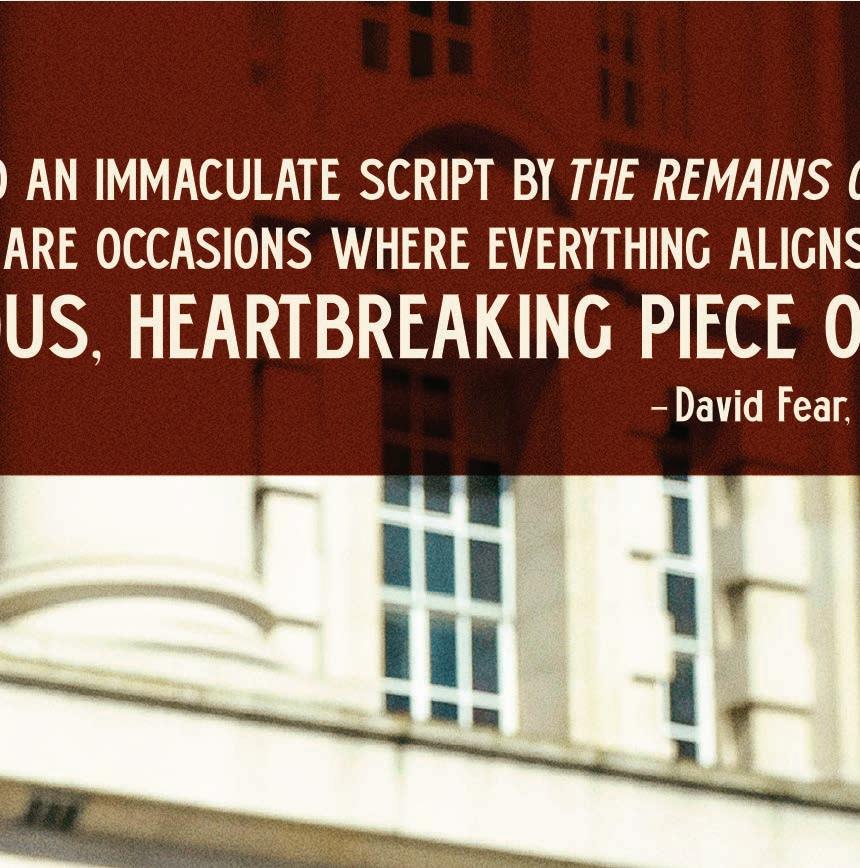

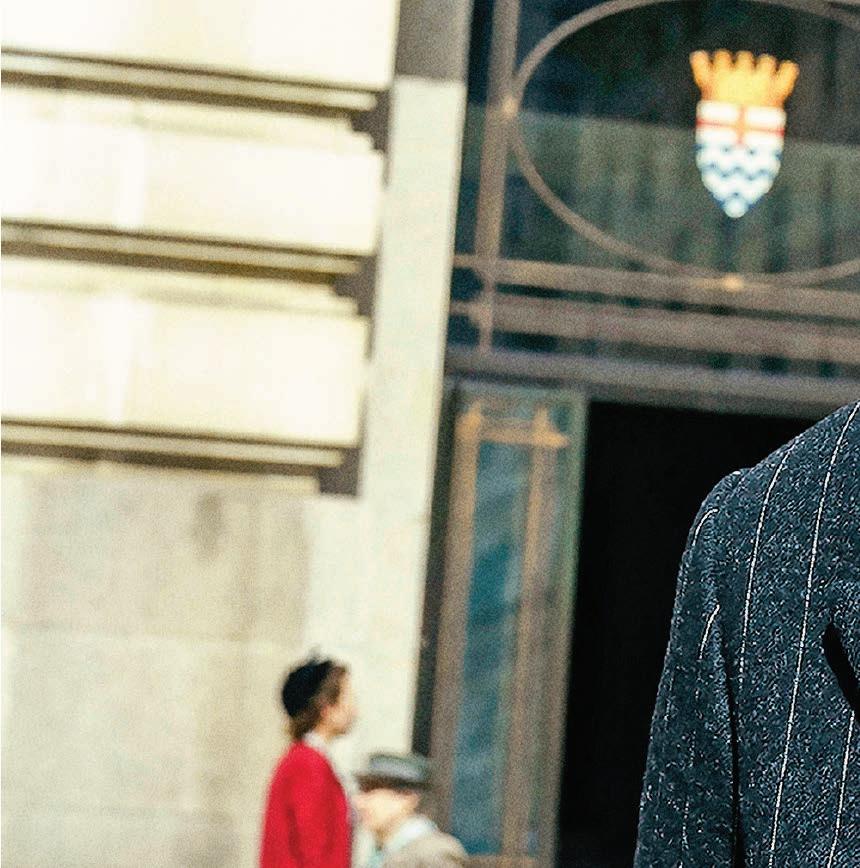
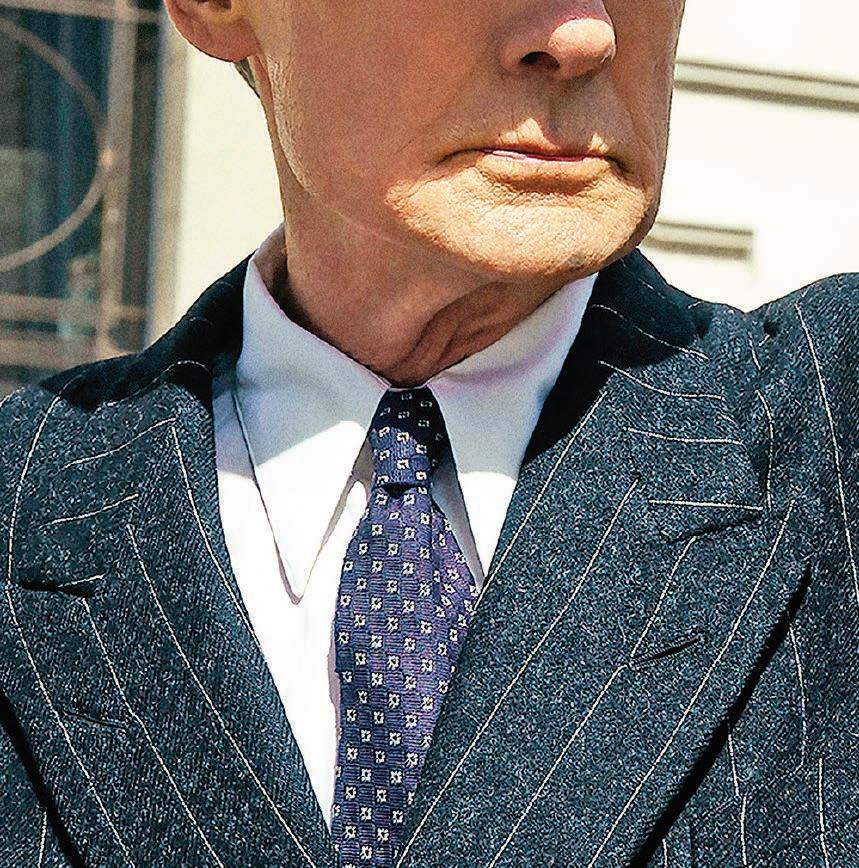

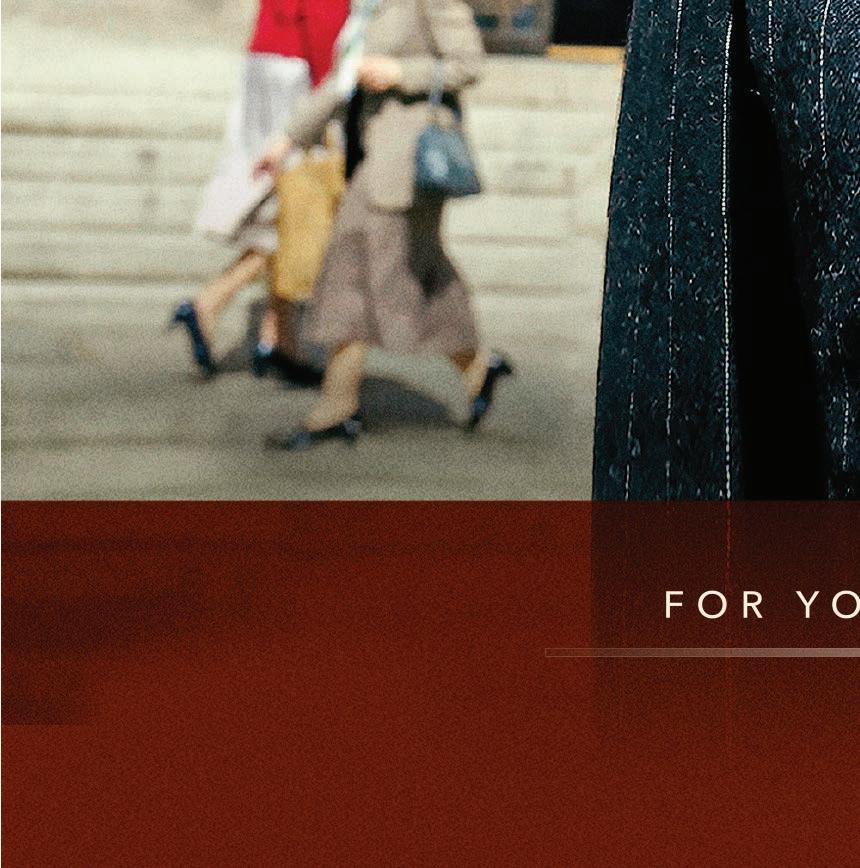
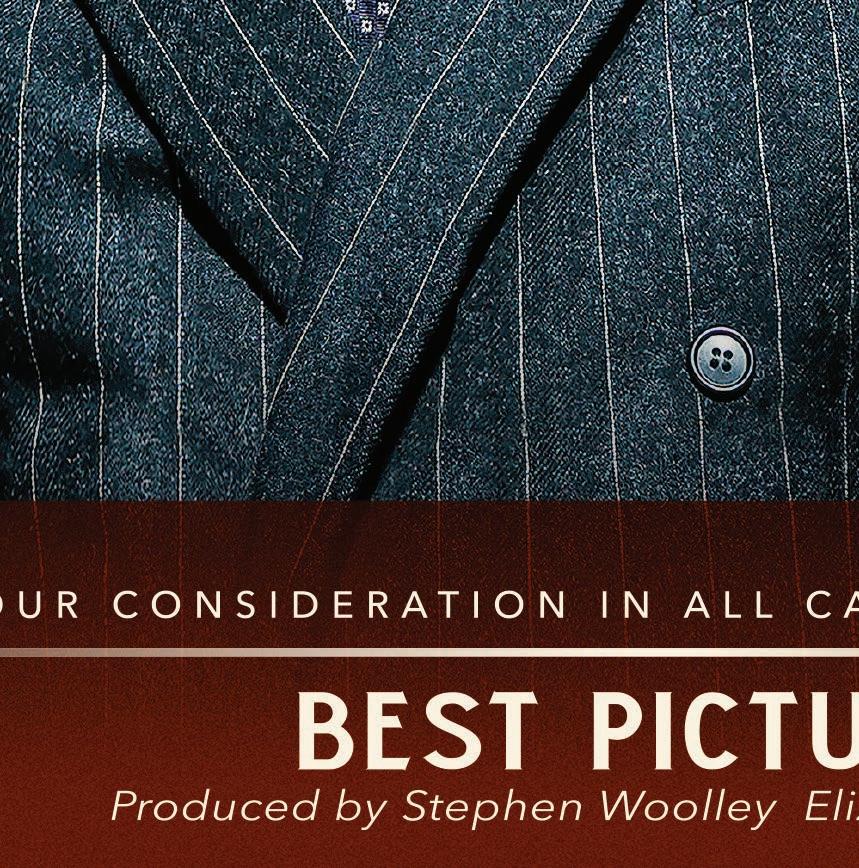
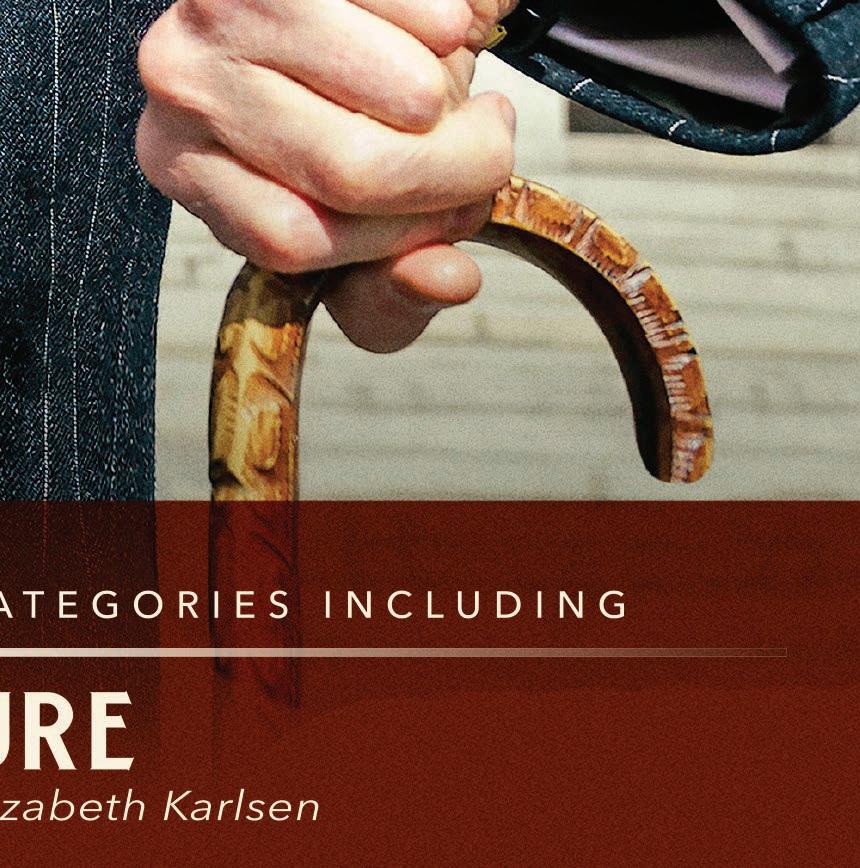



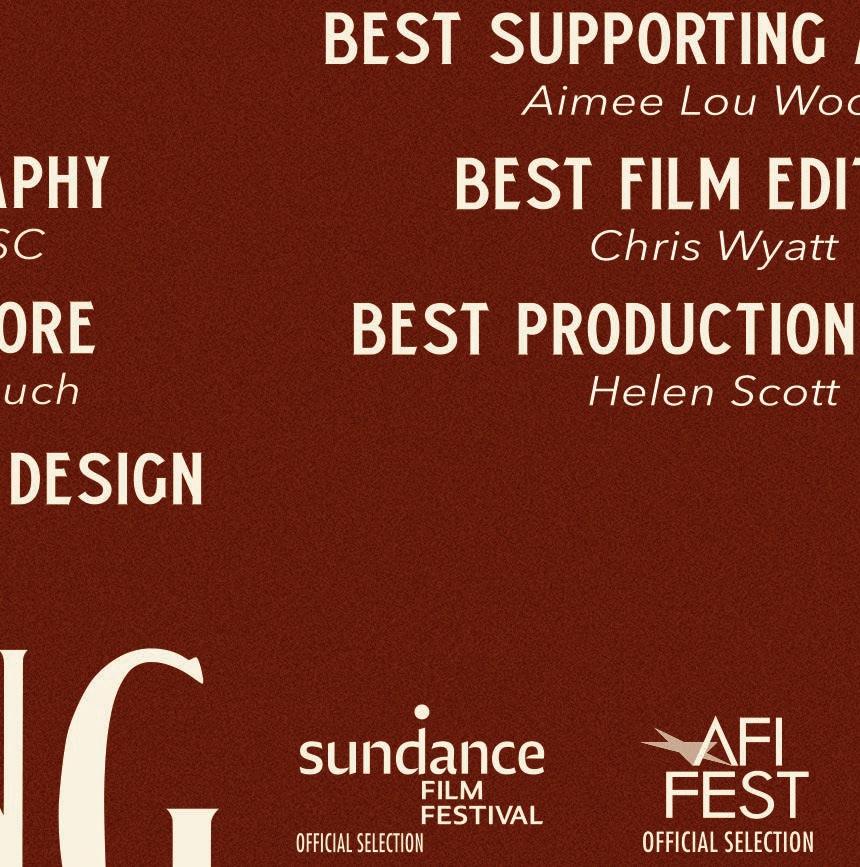
AUBREY PLAZA
Why, yes—Aubrey Plaza is showing up in just about everything these days. After getting rave reviews for her Sundance thriller Emily the Criminal this year, Plaza voiced the mother of Satan’s daughter in FX’s Little Demon before hopping a plane to Italy to join the second iteration of HBO’s The White Lotus . Now filming Francis Ford Coppola’s Megalopoli s before turning her attention to Marvel’s Agatha: Coven of Chaos for Disney+, Plaza looks back on playing a criminal for the big screen and a possible murderess on the HBO anthology.
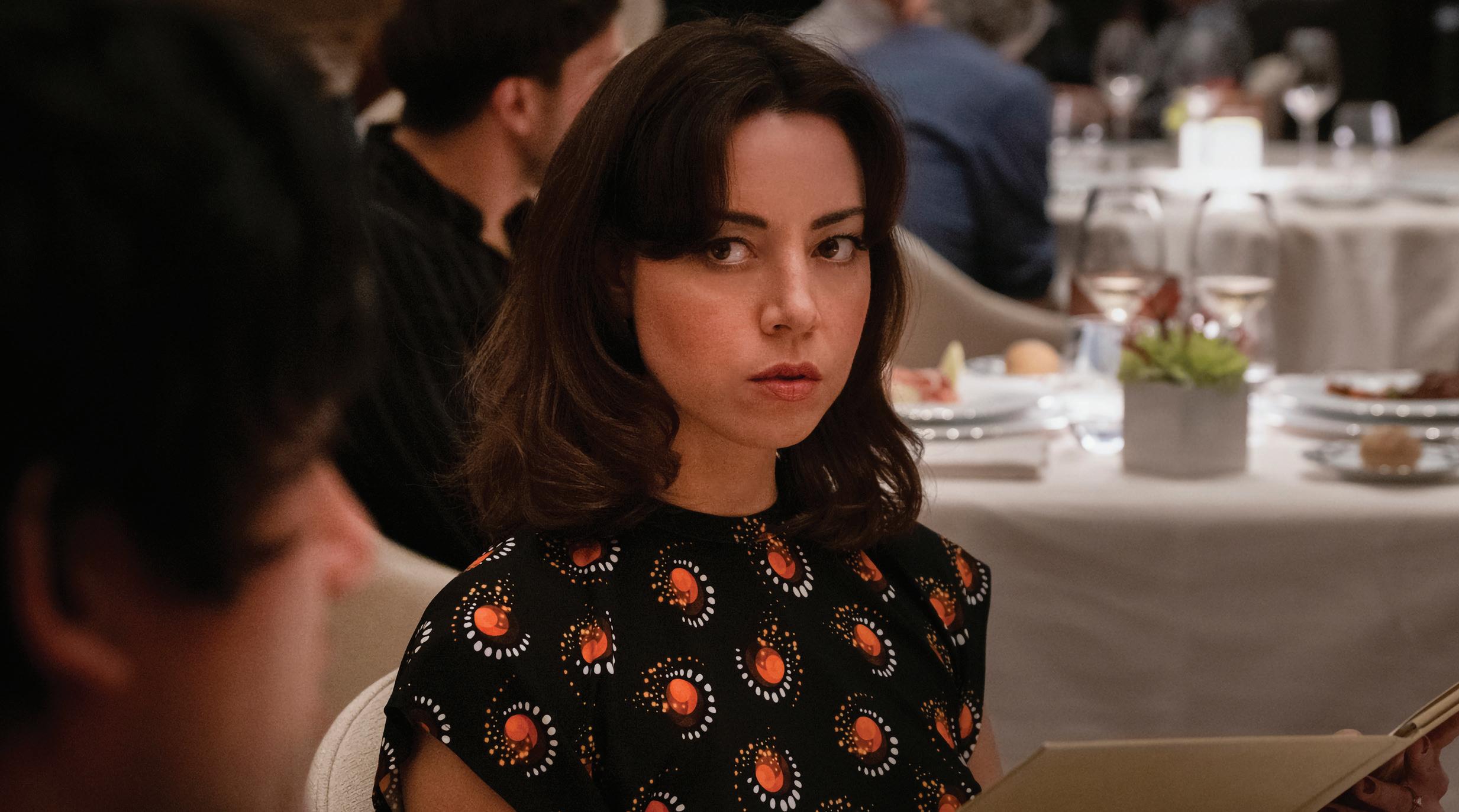
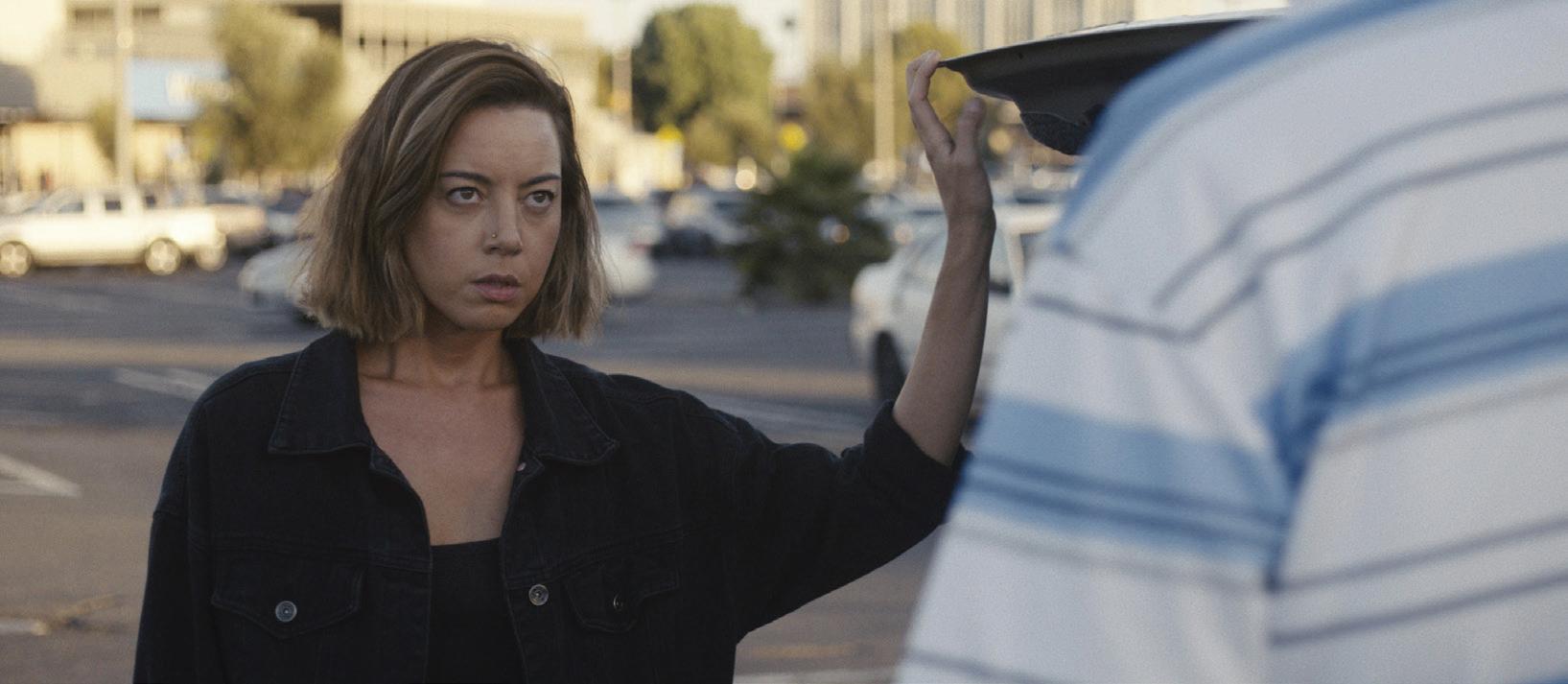
You've got a lot going on. Are you busier than ever, or is this just another month in the life of Aubrey Plaza?
This is just another month in the life of Aubrey Plaza. I've been busy for 10 years. A lot of things that I've done are all coming out at the same time. I can't control that part of it, but I've been busy from the minute I moved to Los Angeles. I haven't stopped.
It’s hard to launch a little indie like Emily the Criminal . Were you fearful you wouldn’t get the eyeballs?
I'm one of the last people that's kind of waving that theatrical ag. Me, Martin Scorsese and Spielberg, just the three of us. I'm romantic about it. I just believe with all my heart that if you make a movie that's undeniably great, people will hear about it and want to see it.
What was it like going on location to shoot The White Lotus?
It was incredible. We were shooting in Sicily for four months, living in a luxury hotel and staying in this gor geous town. You walk outside and look at the ocean from these cli s. It's breathtaking. And you've got the
backdrop of Mt. Etna volcano that can erupt at any second. Damn, that just kind of infuses the whole scene with this wild energy.
Is your character, Harper, capable of murder? Human beings are really fascinating creatures. Some times things can just push you over the edge. So, I think we're all capable of murdering in some ways.
Were you told at the beginning how the show would end?
Yes, I knew it all. What’s so great about working on this show it’s that I got to treat it like a seven-hour film. I knew exactly what was going to go down, which I really appreciated.
Can you say anything about who you are playing in Francis Ford Coppola’s Megalopolis?
I don't think so. But I'm really excited about it. I’m biased, but I think I have the best part in the movie.
Were you aware that these ultra conservative moms were going on social media to complain about Little Demon?
I had heard about it, yes. And it's not the rst time that a project I've done has created some kind of backlash in the Christian community. The Little Hours was the rst movie that I produced and I believe the Catholic Review or something called the movie “trash, pure trash.” We put that on the poster. Little Demon is an adult cartoon. Everybody calm down.
FA IO LOVINO/H O/ROADSIDE ATTRACTIONS/COURTESY EVERETT COLLECTION
Plaza in Emily the Criminal
Aubrey Plaza in The White Lotus
DEADLINE.COM/ AWARDSLINE New TV | 2022
THE WHITE LOTUS ; LITTLE DEMON

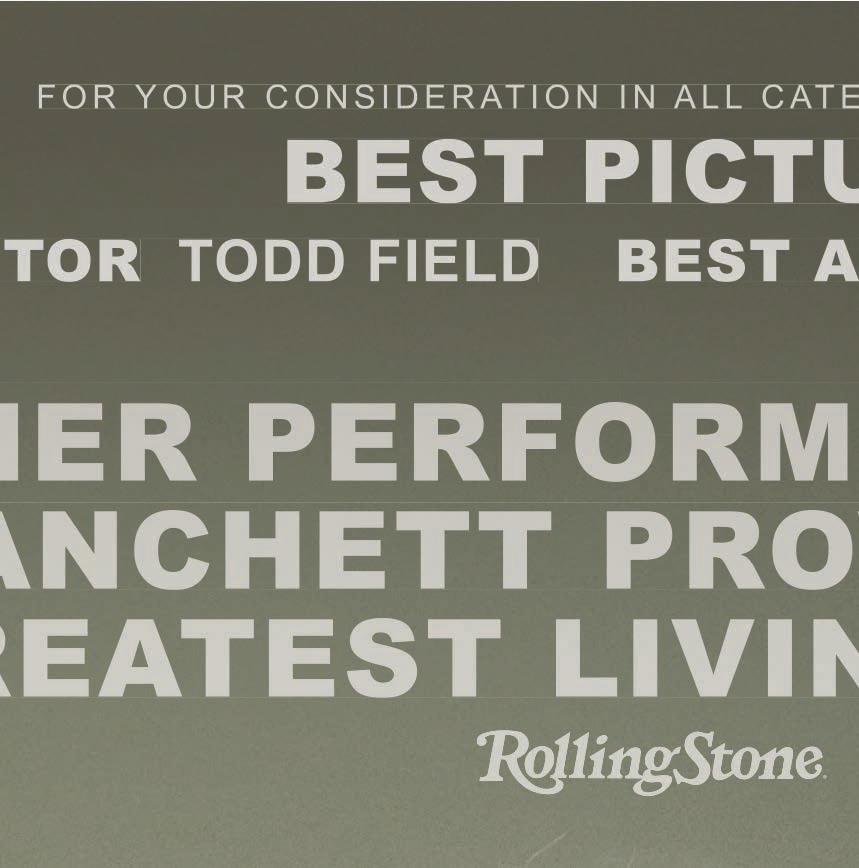
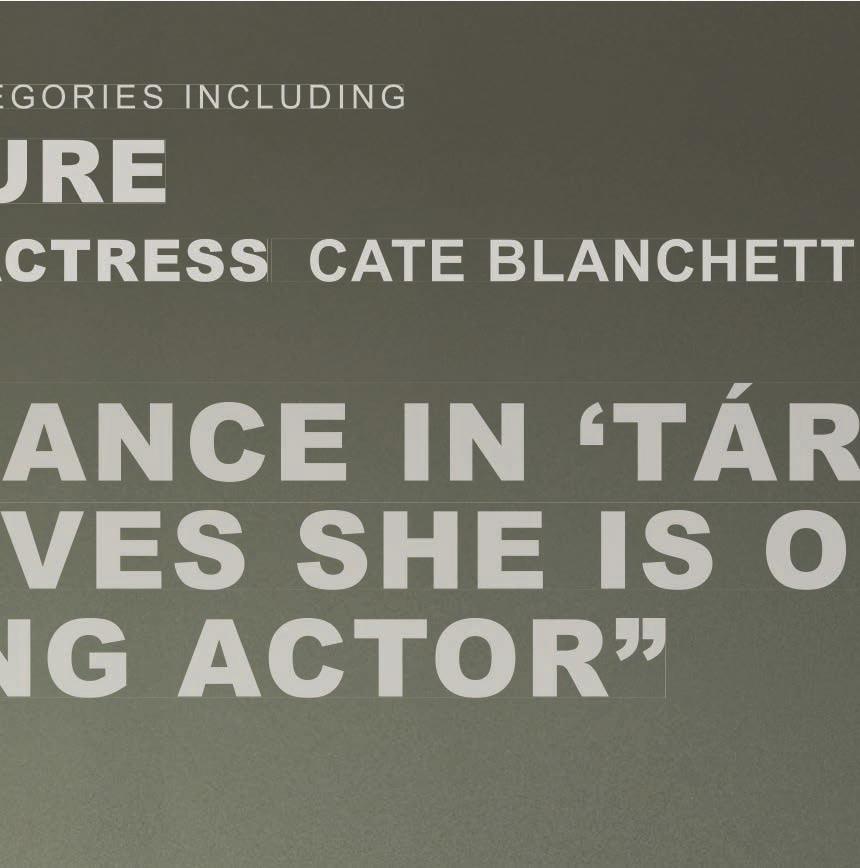


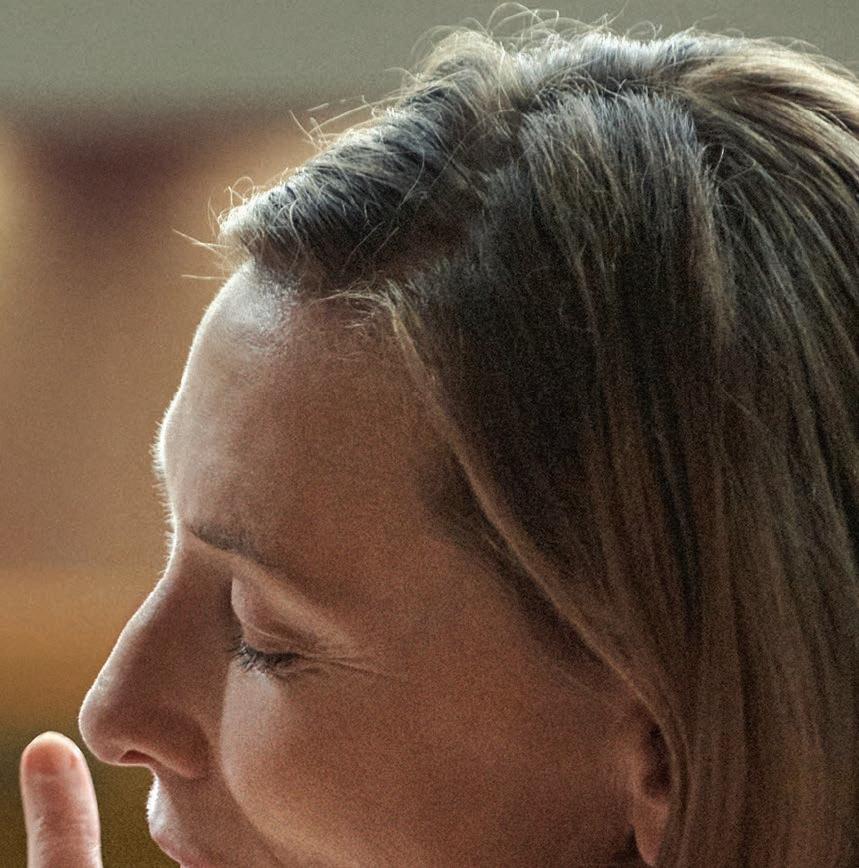

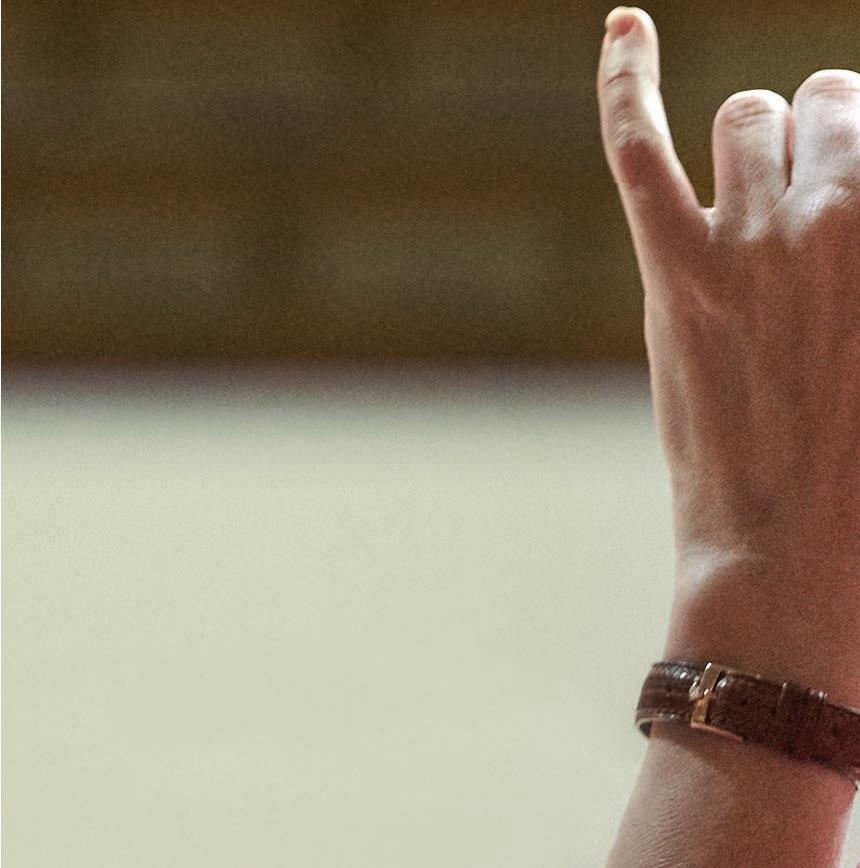




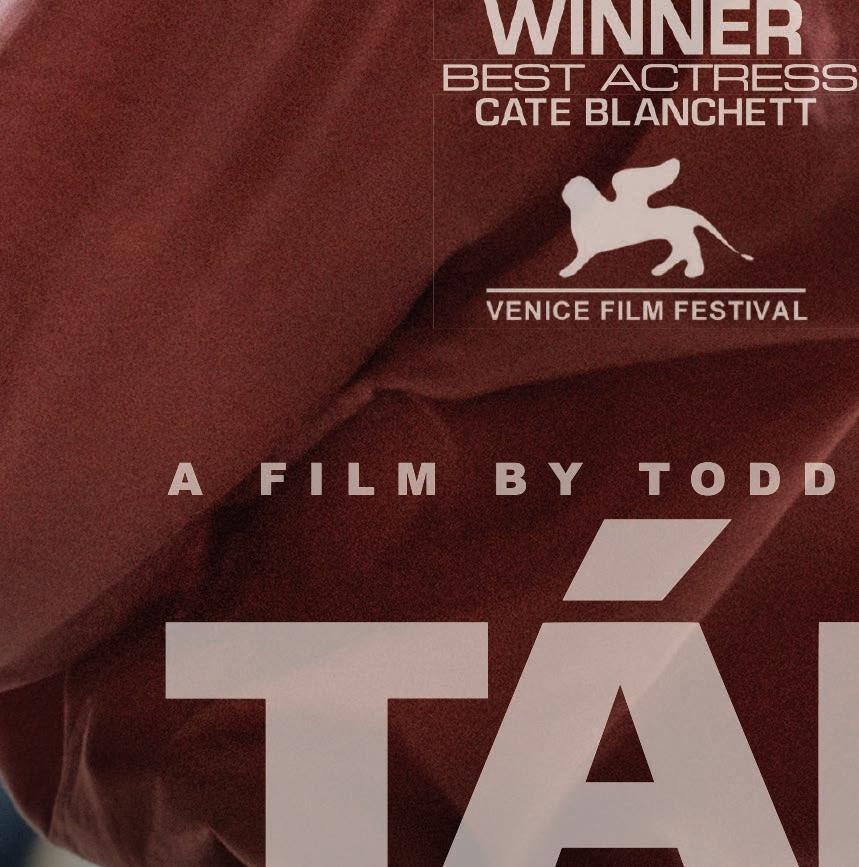

JEREMY ALLEN WHITE
In FX’s breakout series The Bear , Jeremy Allen White plays Carmy Berzatto, a prodigious young chef who returns home to Chicago to assume control of his dead brother’s sandwich shop. It’s the role of a lifetime for White, who’s already enjoyed great success on the small screen—first as a soldier in Homecoming , and as the brainy Lip Gallagher on Shameless . Here, the Brooklyn native talks about the importance of keeping things real over a hot stove.
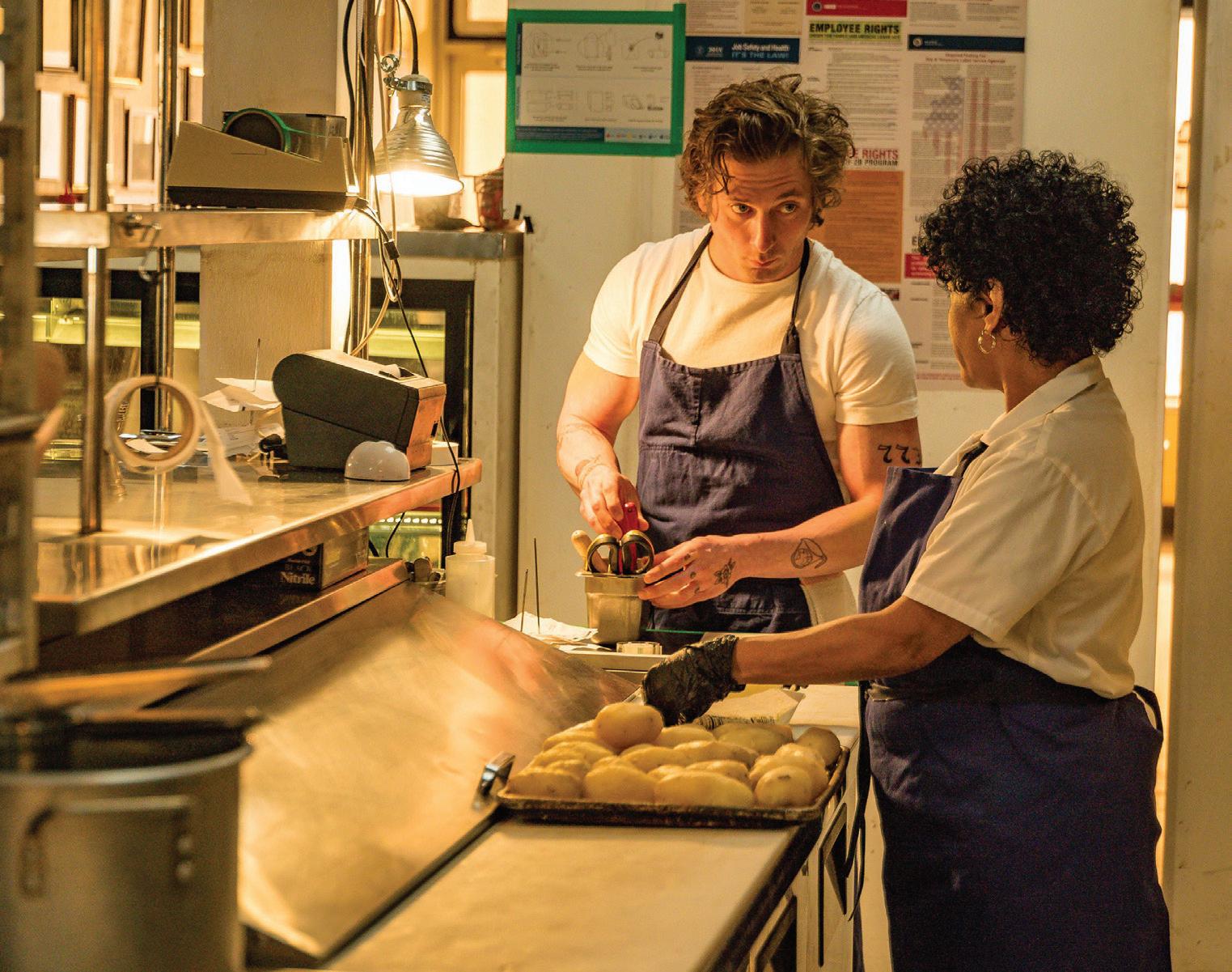

No. Chris told me about Carmy and the idea of this young man coming home and trying to pick up the pieces of a life he's been far away from for a long time. I read it and I thought it was really funny. But Chris's focus, which became mine as well as {writer/producer/ director] Joanna Calo’s, was telling an authentic story about the food industry and the back of the house.
He was totally fried from working in these ne dining spots. I think he felt a responsibility to his brother, but I also think he was angry at his brother for leaving it to him. I don't think he came completely willingly, but I think there was a lot of guilt involved in him taking over the restaurant. He also has a lot to prove.
I did a two-week crash course at Pasadena’s Institute of Culinary Education. I spent probably the most amount of time at a restaurant called Pasjoli in Santa Monica with a really wonderful chef, Dave Beran, who actually got his start in Chicago. At rst, I was just a y on the wall. I was just trying to watch the choreography of the kitchen and the line cooks. Then, we went o and shot the pilot. I didn't know if we were picked up yet, but I really wanted to be prepared so I went back to Pasjoli, and the chef put me on the line to prepare food. It’s a very, very serious kind of place and it was the most anxious I've ever been.
Above from left, Jeremy Allen White and Liza Colón-Zayas; below, from left, White, Lionel Boyce and Ebon Moss-Bachrach.
The reaction has been overwhelmingly positive, especially from the kitchen industry people who feel seen and understood. It requires long hours, a lot of commitment, skill and repetition. That's what we were trying to focus on, how stressful and out of control that industry can be. ★
MATT DINERSTEIN/FX ON HULU/COURTESY EVERETT COLLECTION
THE BEAR DEADLINE.COM/ AWARDSLINE New TV | 2022

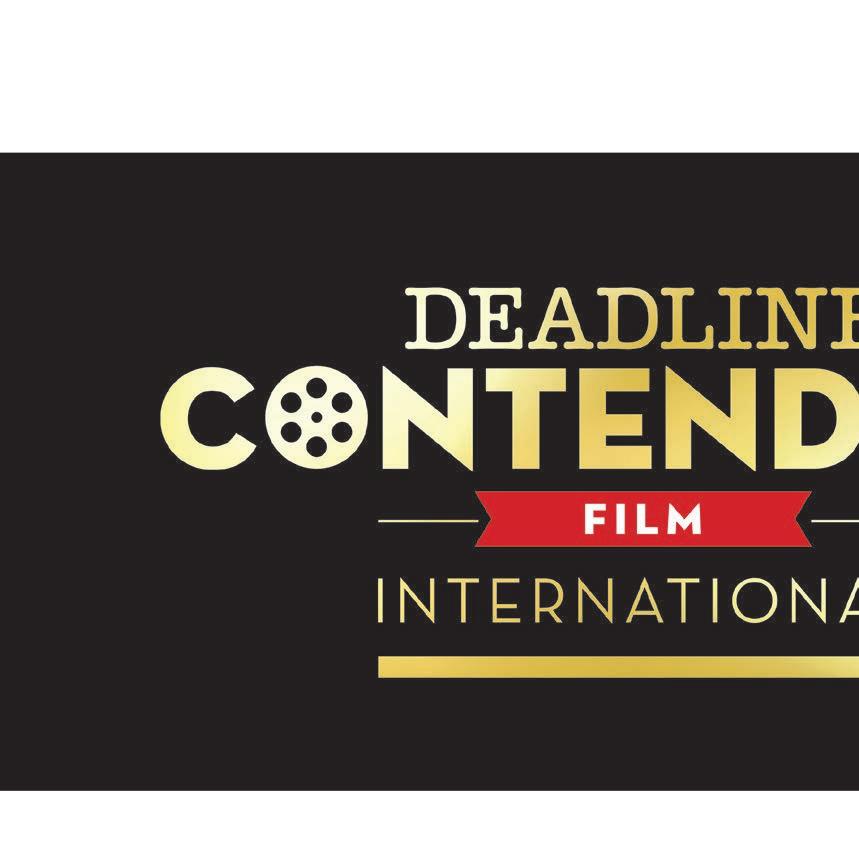


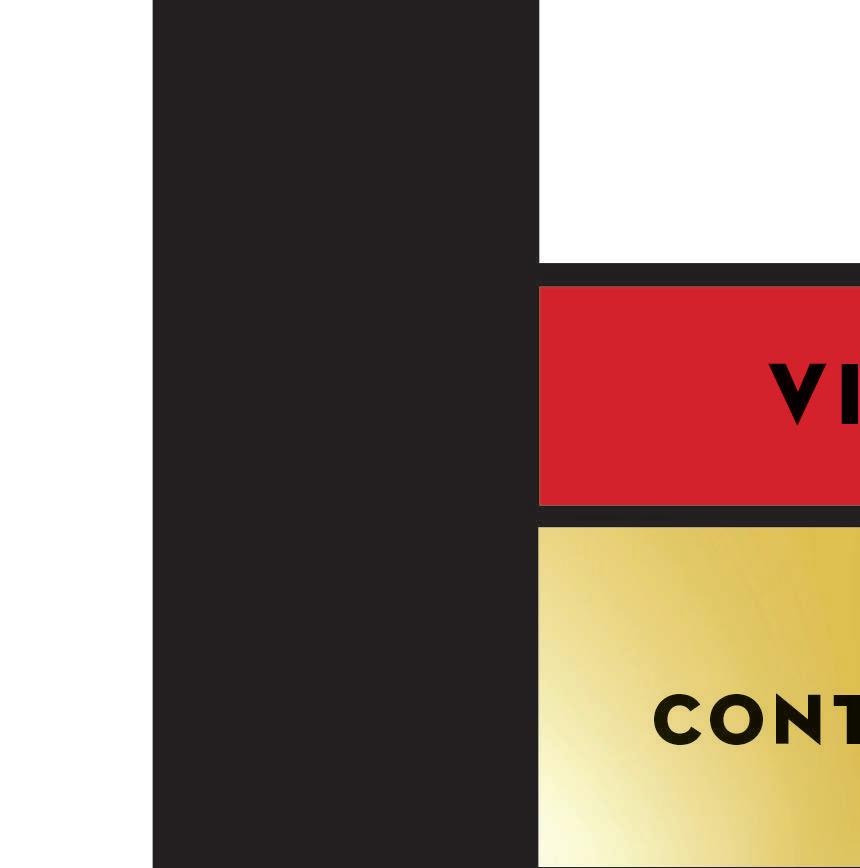



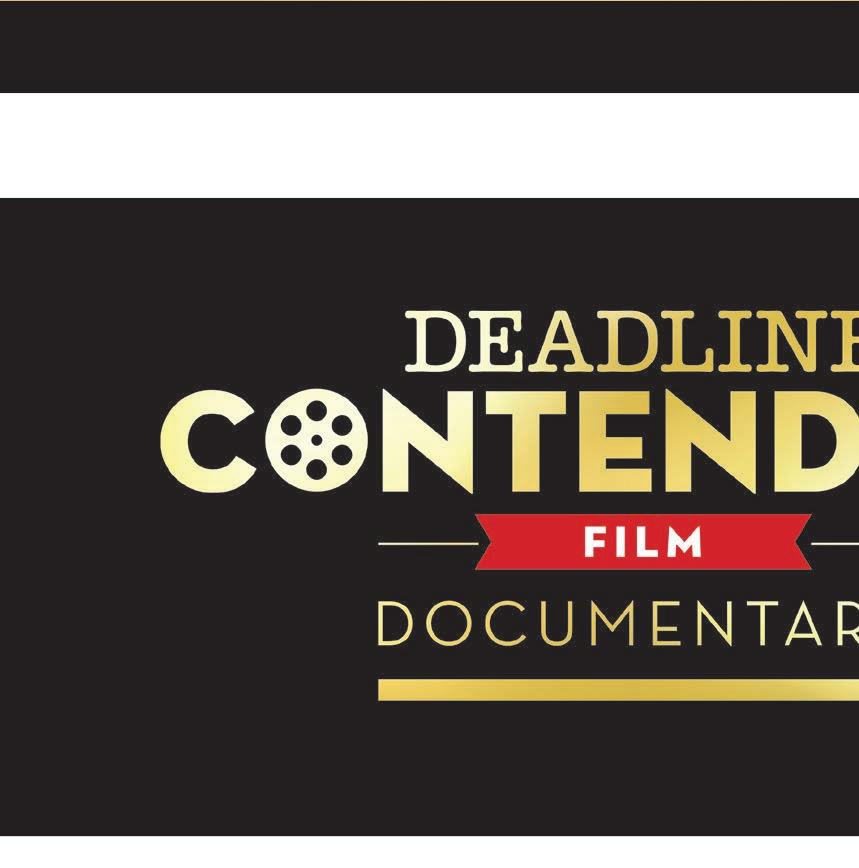
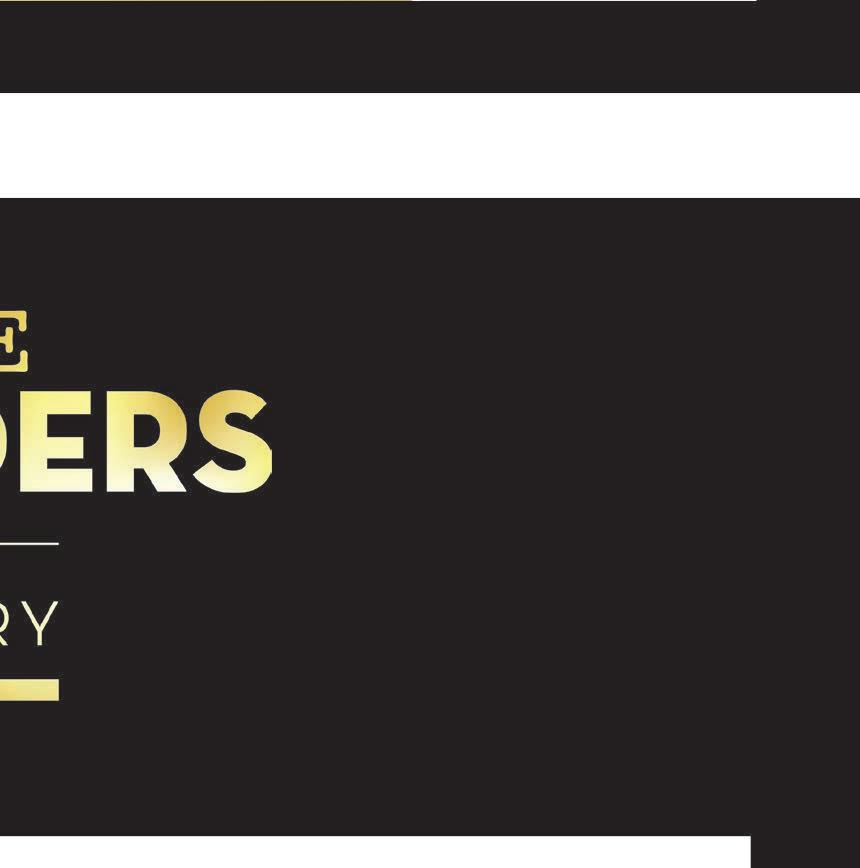




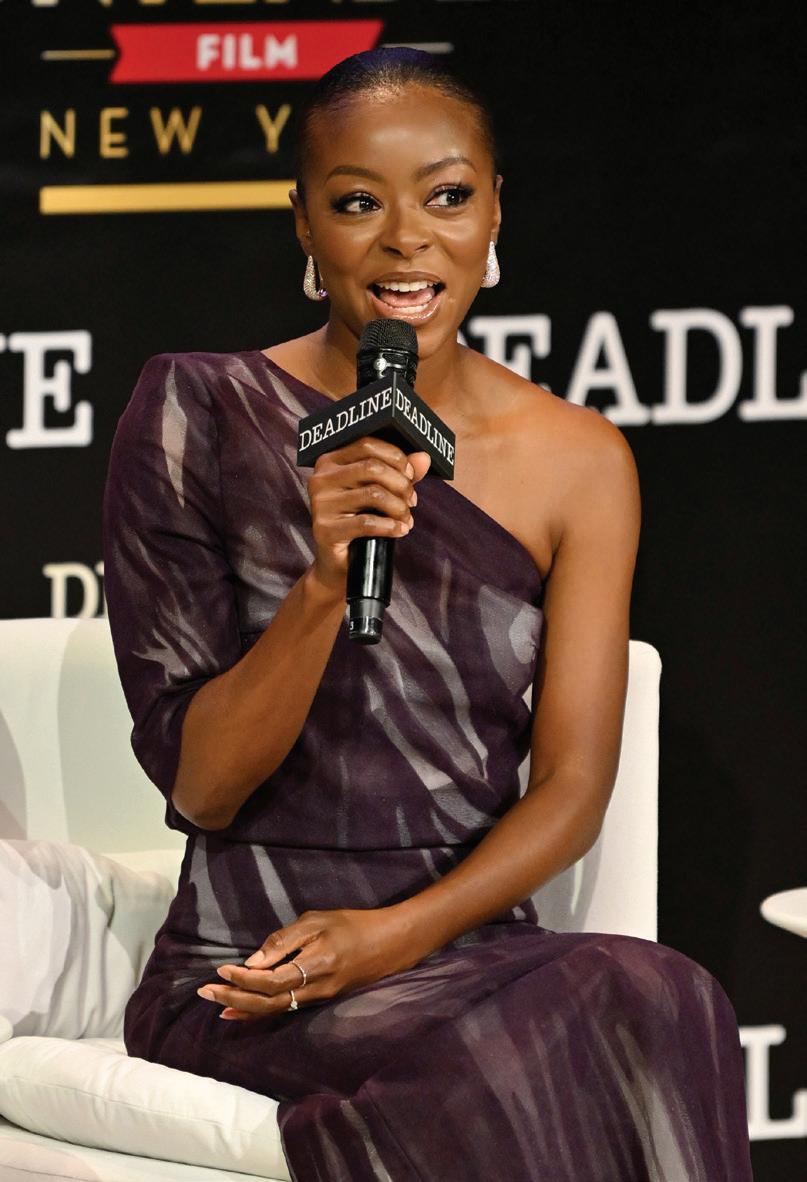

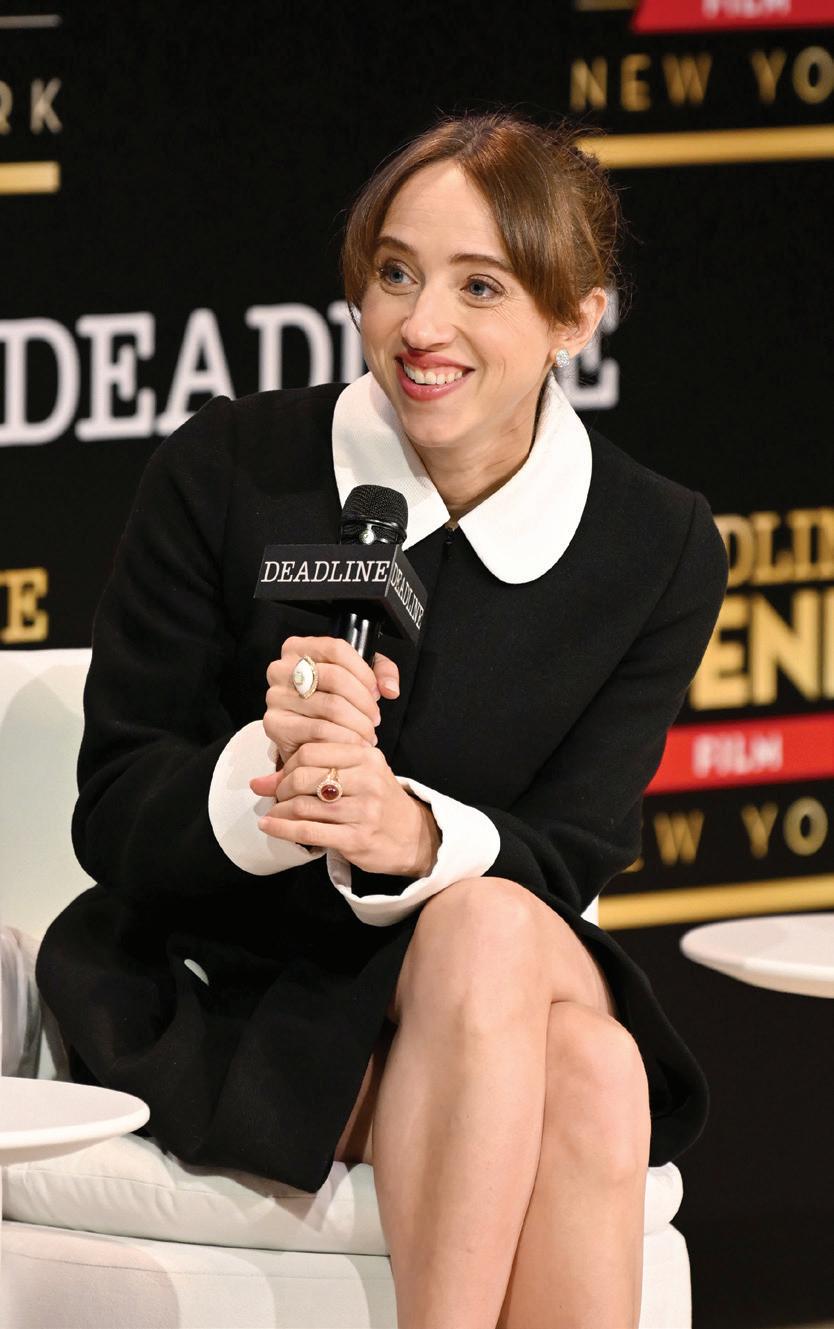
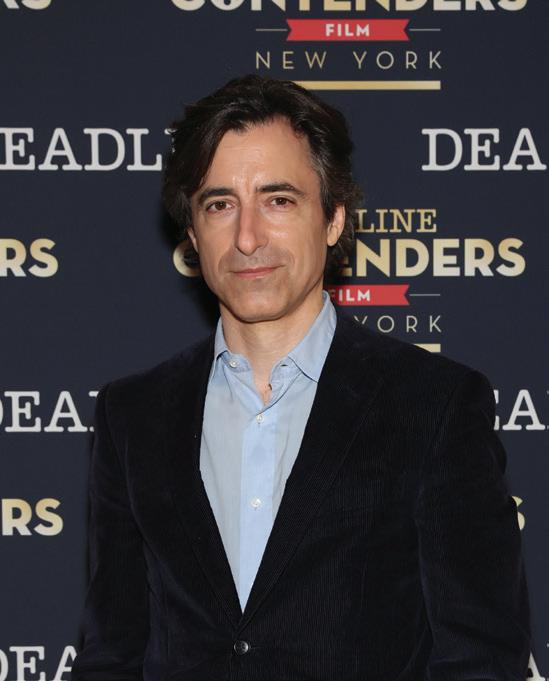

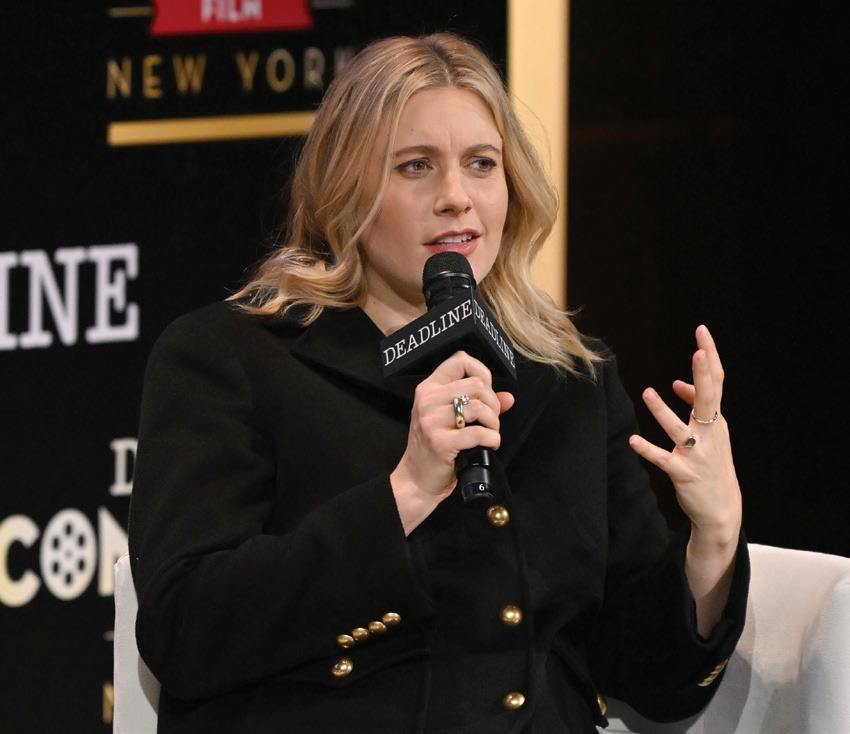
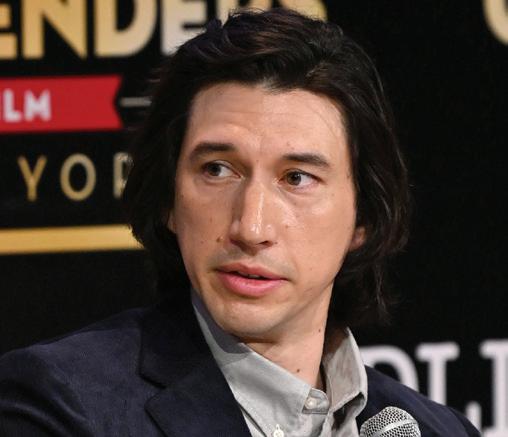
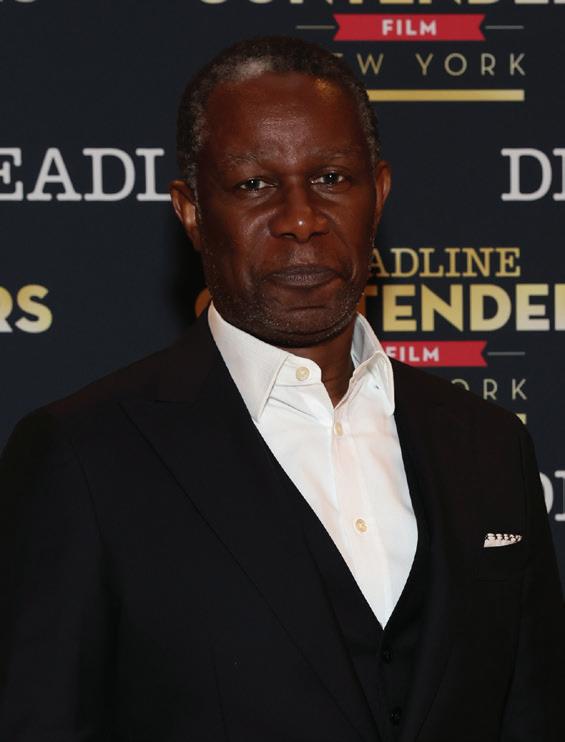
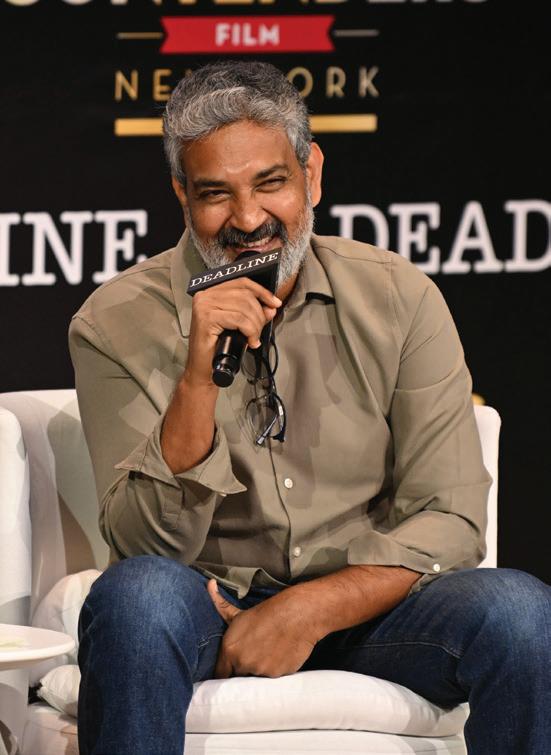
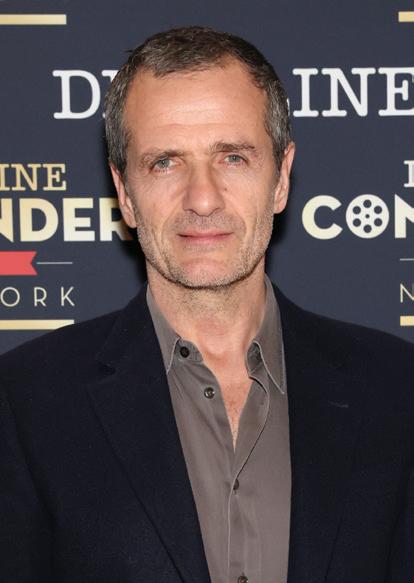
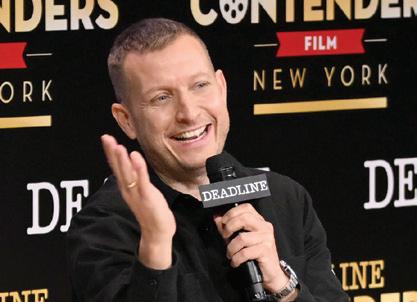
5 DEADLINE.COM/AWARDSLINE 1. Danielle Deadwyler 2. Noah Baumbach 3. Adam Driver 4. Ippolita Di Majo 5. Chinonye Chukwu 6. Zoe Kazan 7. Greta Gerwig 8. S.S. Rajamouli 9. David Heyman 10. Tobias Lindholm 11. John Douglas Thompson 3 2 7 8 6 11 5 4 1 9 10 Deadline Contenders Film: New York November 5, 2022 The Times Center, NYC GETTY IMAGES







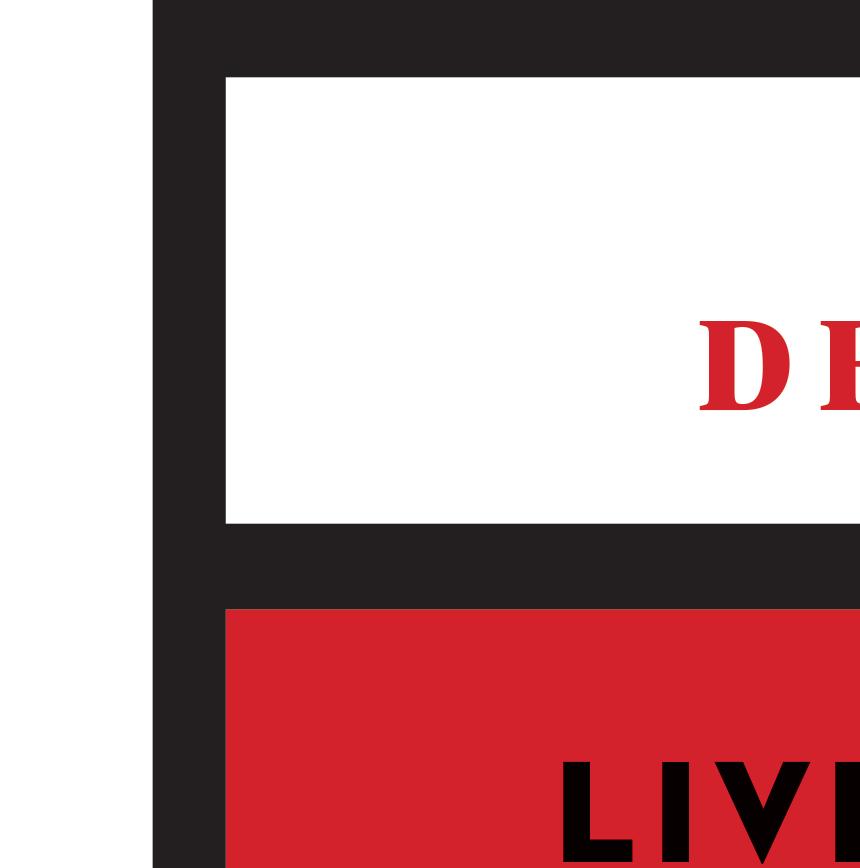

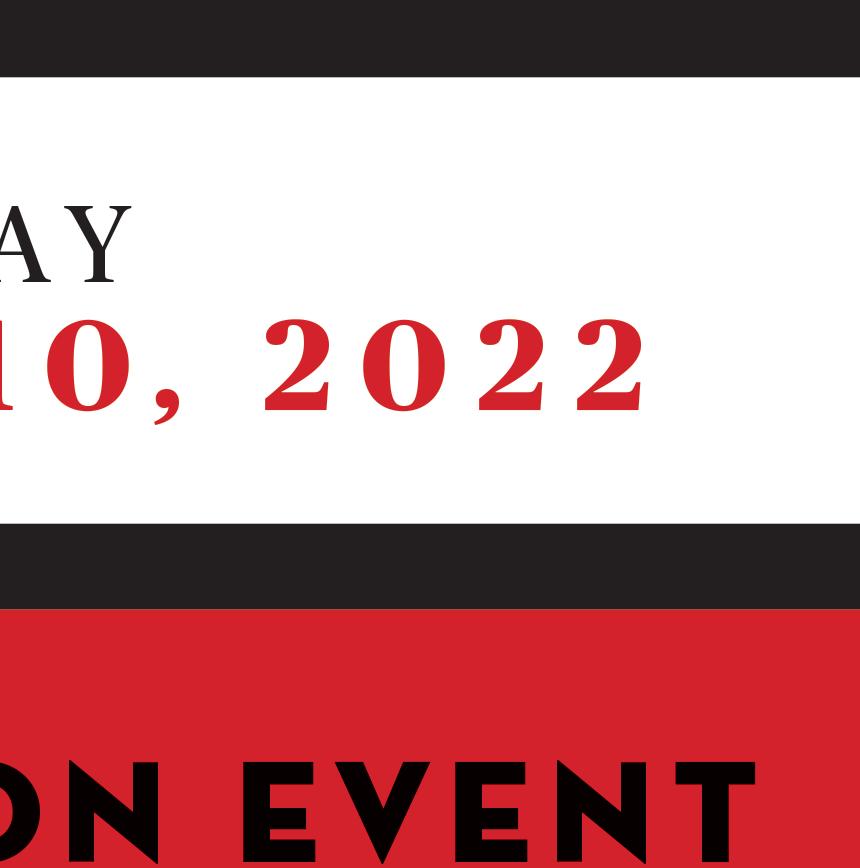





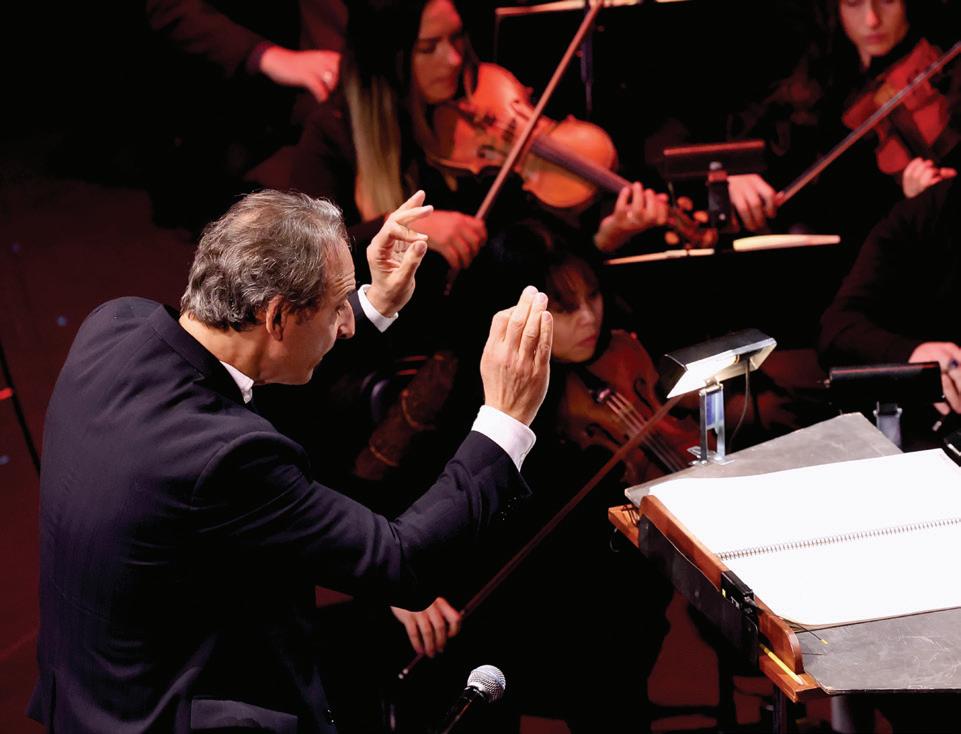
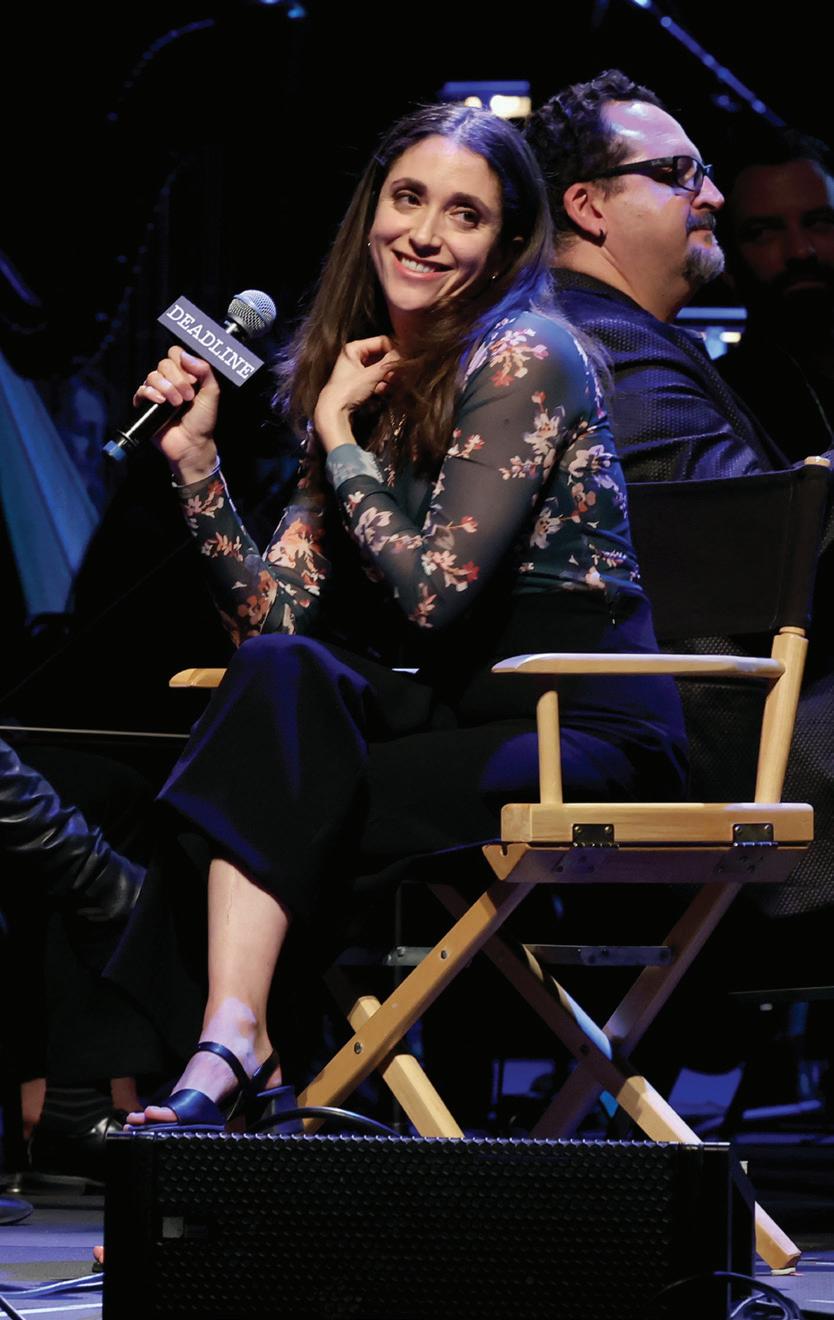




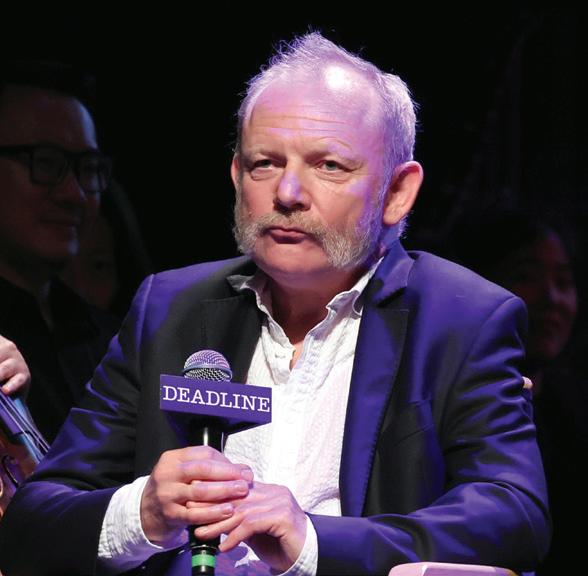
52 DEADLINE.COM/AWARDSLINE 1. Pawel Mykietyn 2. Michael Abels 3. Diane Warren 4. Meg Duffy, Azniv Korkejian & Robin Pecknold 5. Alexandre Desplat 6. Ian Eisendrath 7. Benjamin Wallfisch 8. Emilie Levienaise-Farrouch 2 6 8 7 5 4 3 Deadline Sound & Screen: Film November 10, 2022 UCLA Royce Hall, Los Angeles 1 GETTY IMAGES


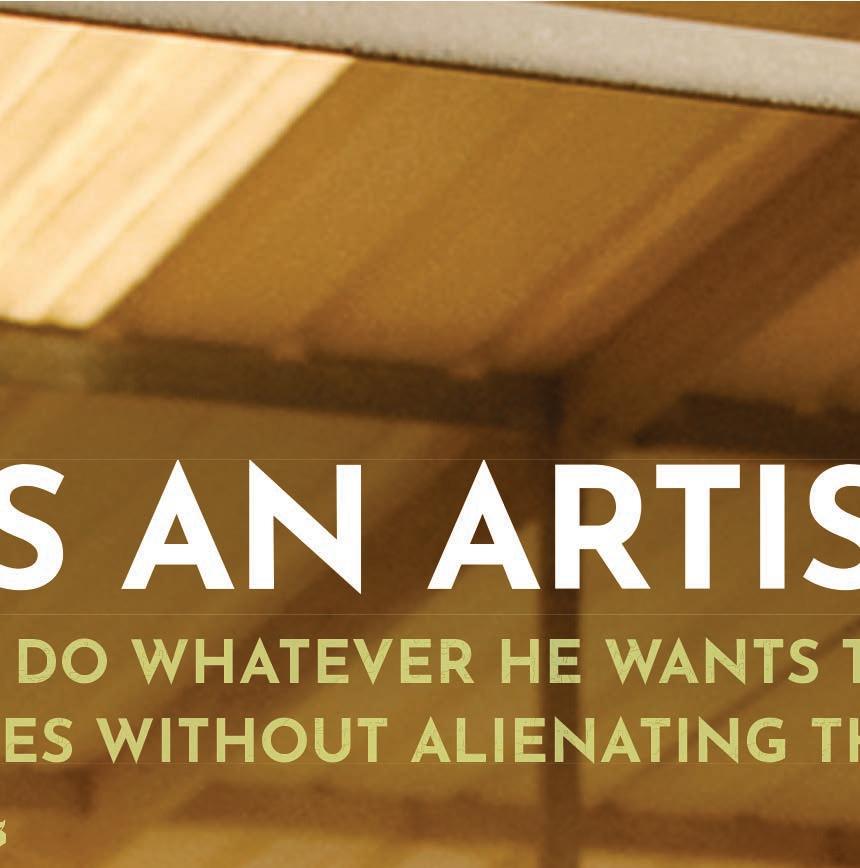

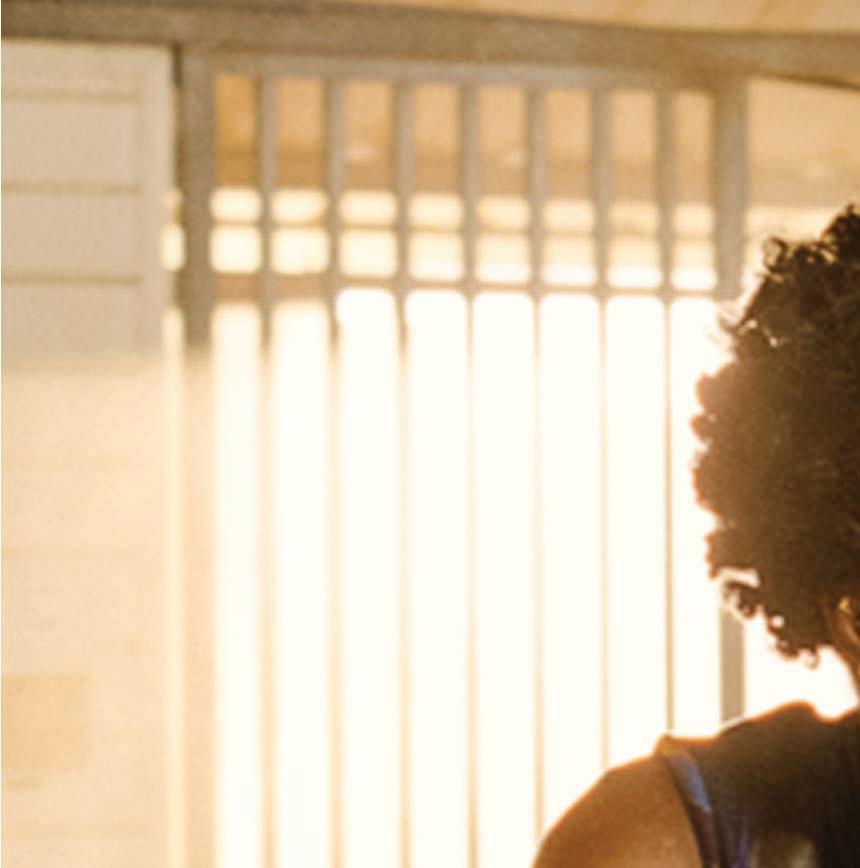


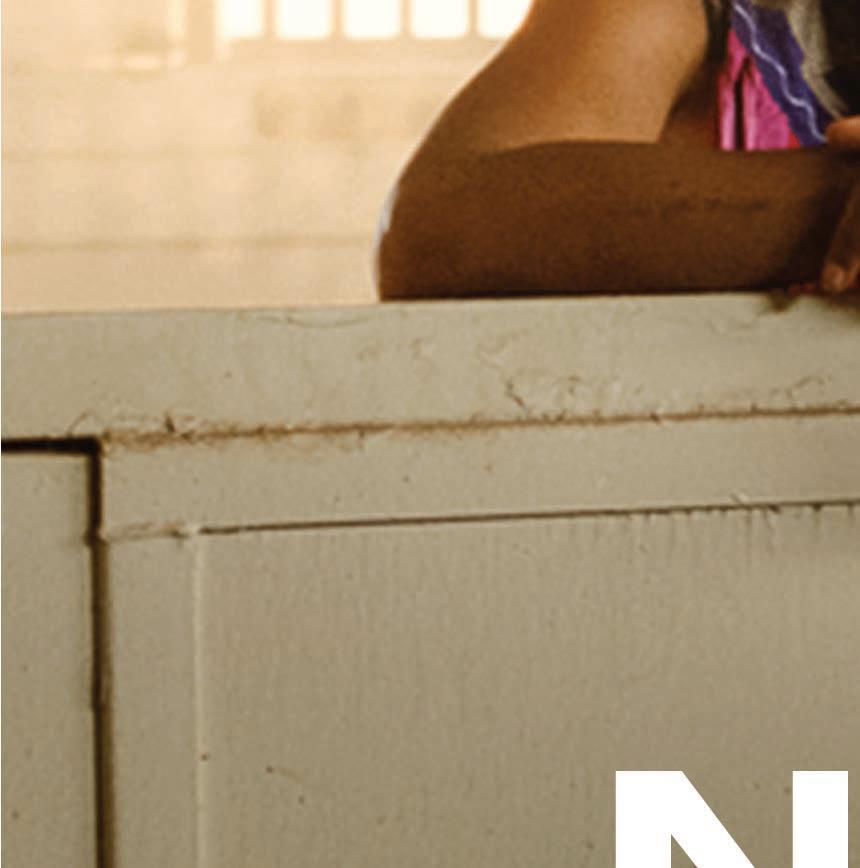



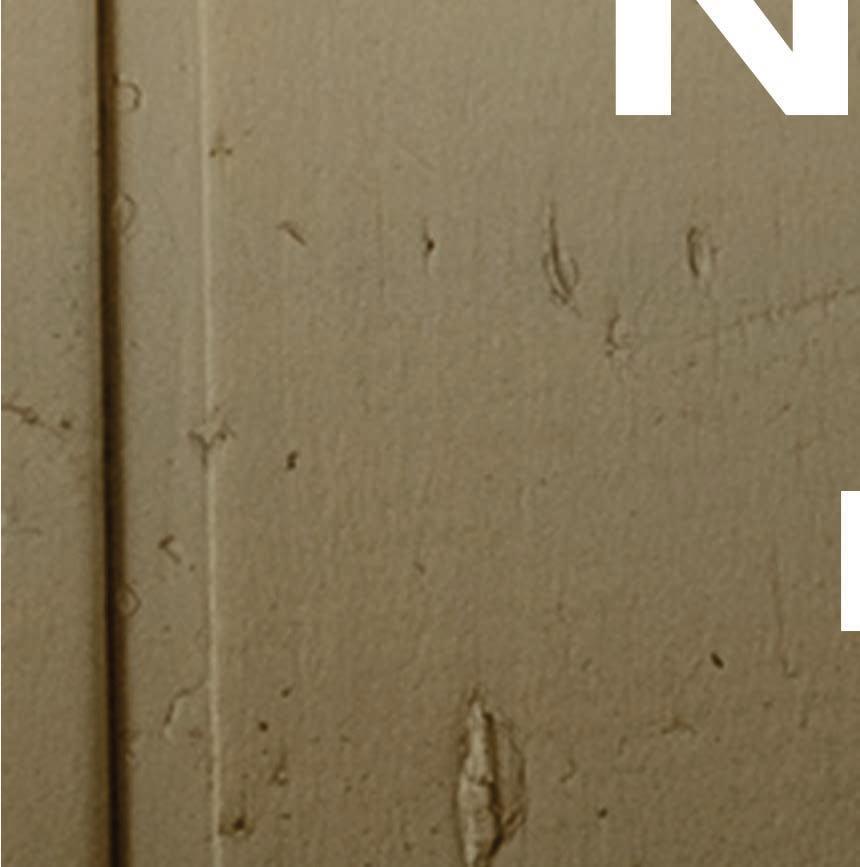
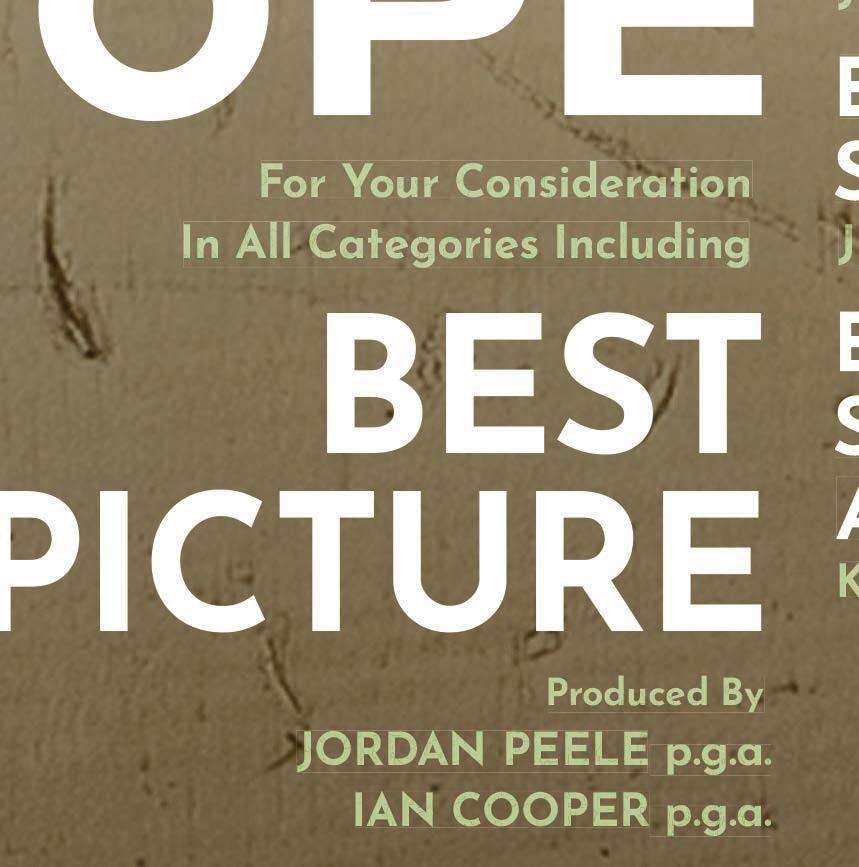

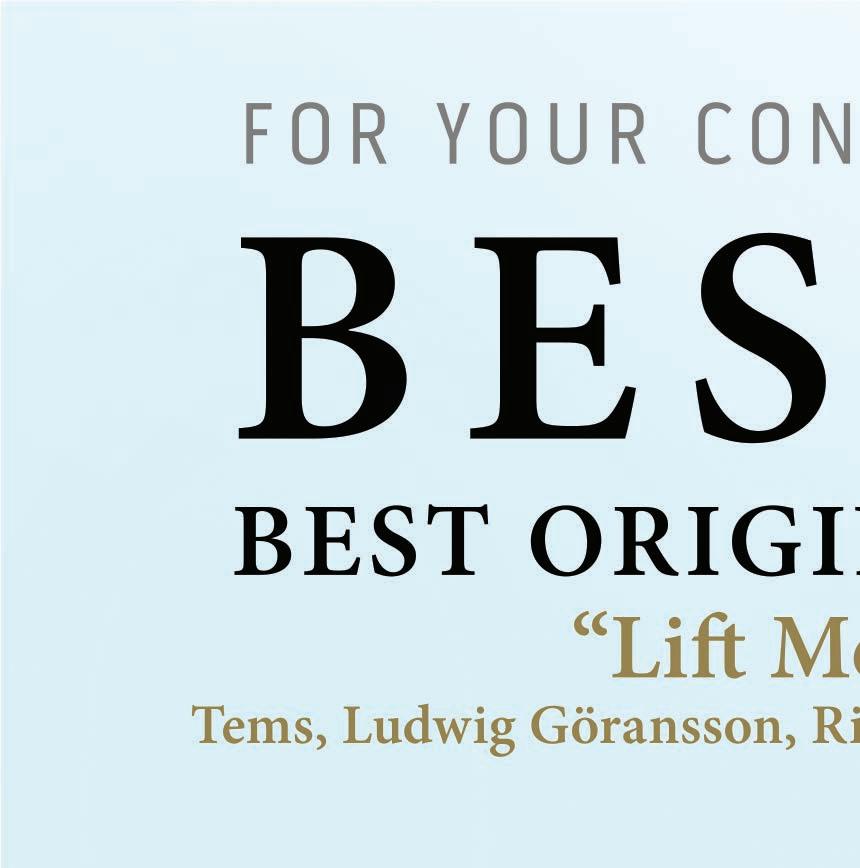
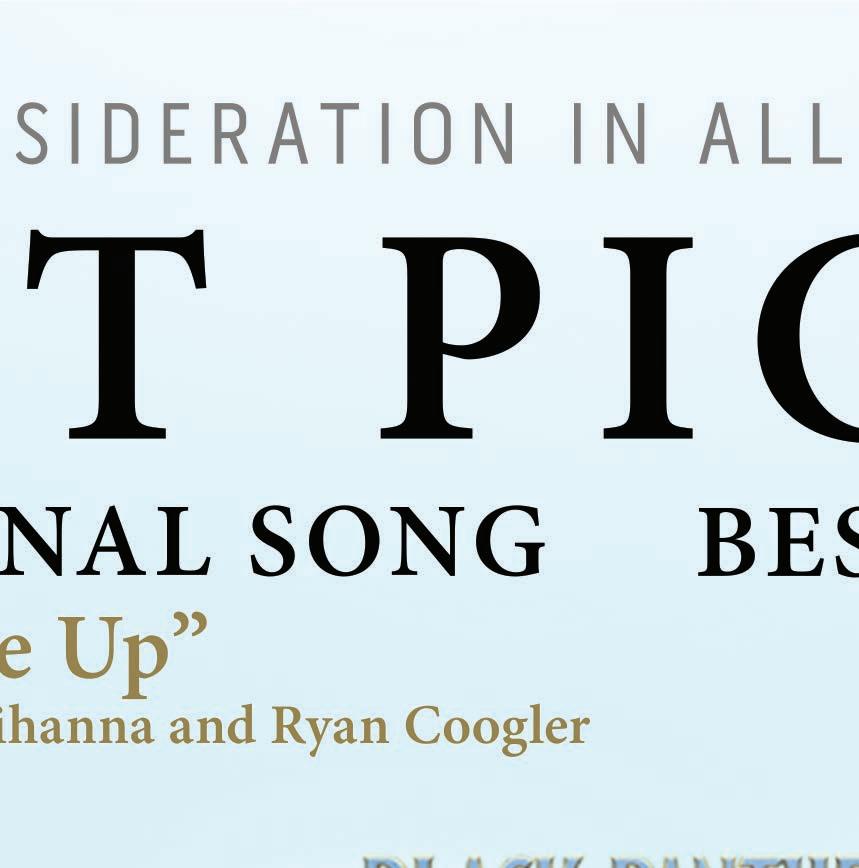
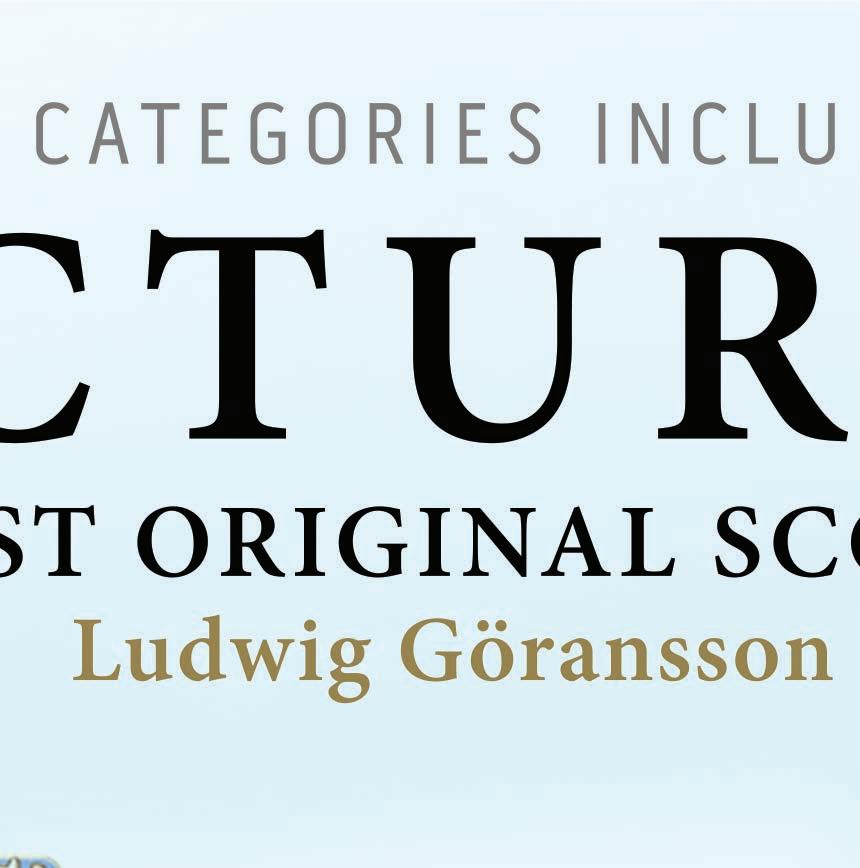








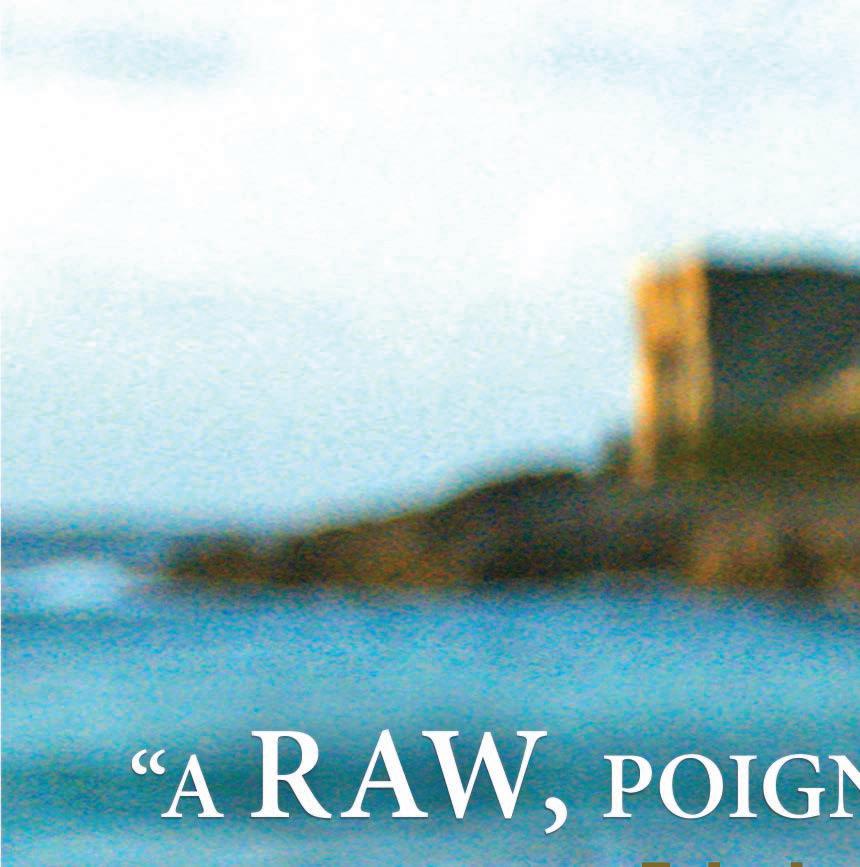
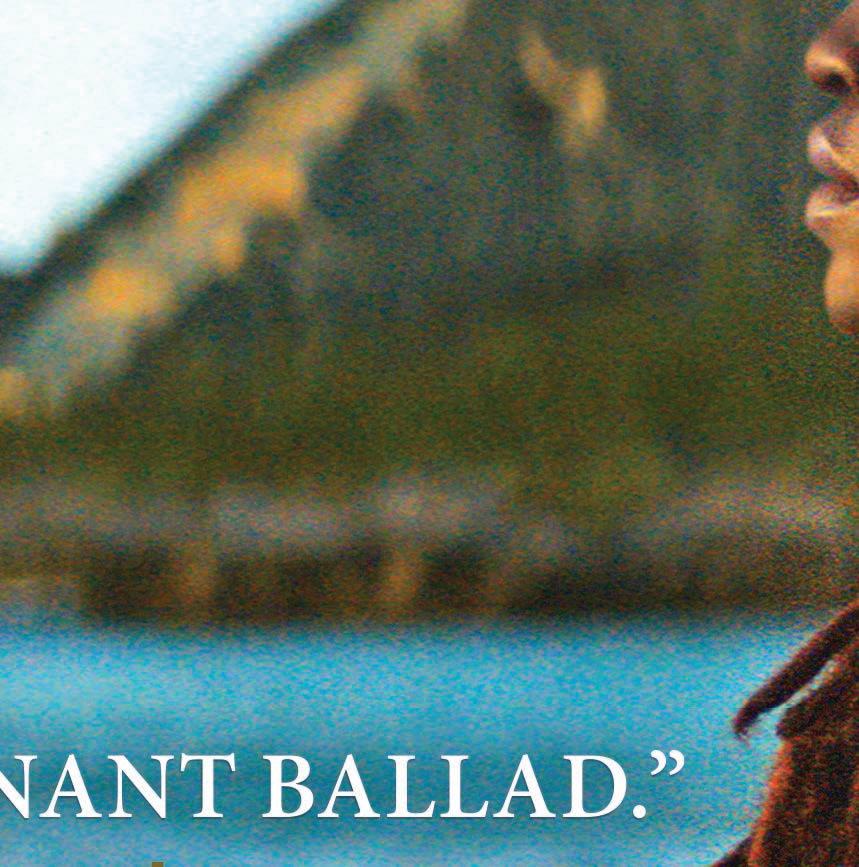













 WILD RIDE: JESSIE BUCKLEY’S JOURNEY TO STARDOM
CHANNELED: THREE FILMS THAT TURN BACK TIME PLUS: HUGH JACKMAN + KE HUY QUAN + AUSTIN BUTLER + JEREMY POPE + BRIAN TYREE HENRY , P
WILD RIDE: JESSIE BUCKLEY’S JOURNEY TO STARDOM
CHANNELED: THREE FILMS THAT TURN BACK TIME PLUS: HUGH JACKMAN + KE HUY QUAN + AUSTIN BUTLER + JEREMY POPE + BRIAN TYREE HENRY , P






























 By Stephanie Bunbury
By Stephanie Bunbury

















































































































































































































 Cassandra “Andi” Brand
Janelle Monáe
Cassandra “Andi” Brand
Janelle Monáe































 BY CARITA RIZZO
BY CARITA RIZZO





 By Ryan Fleming
By Ryan Fleming















































































































































